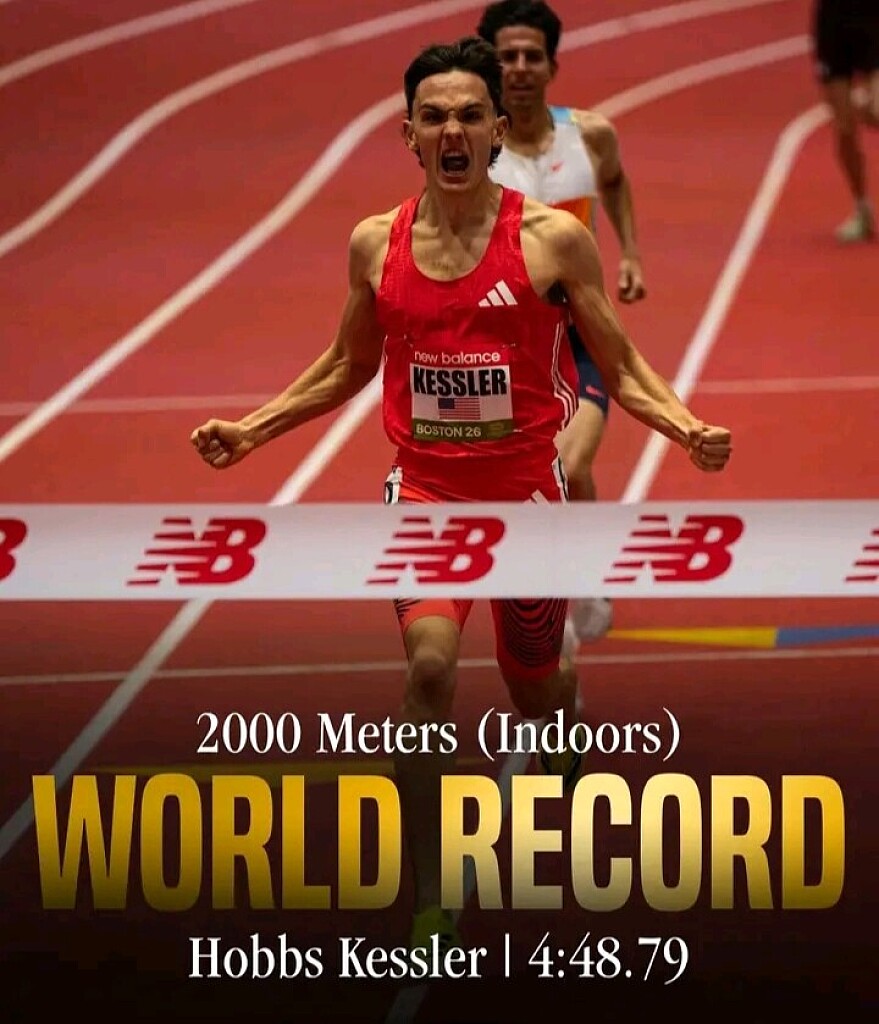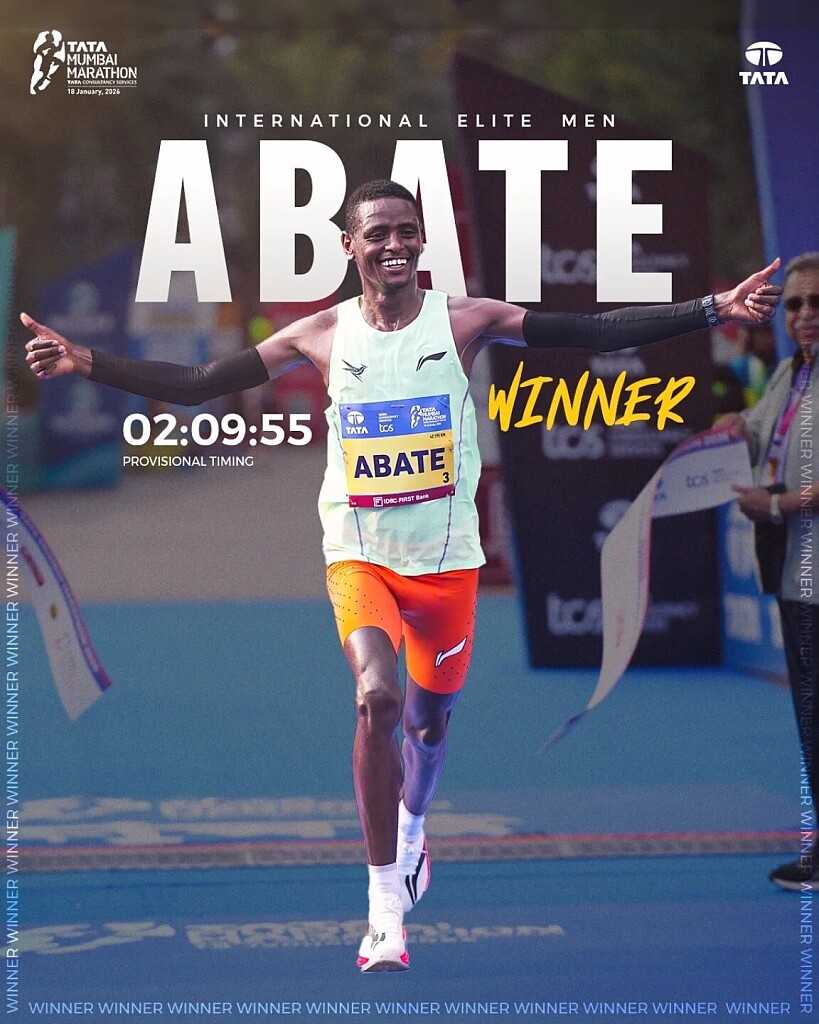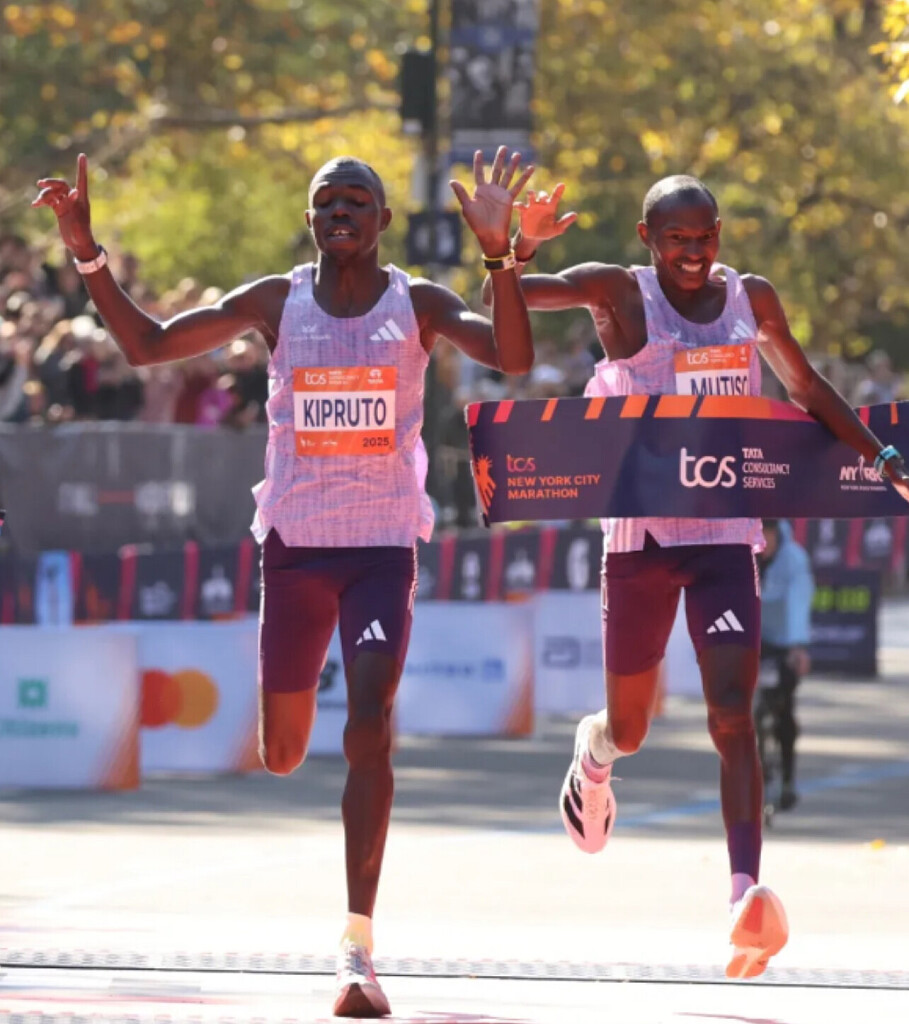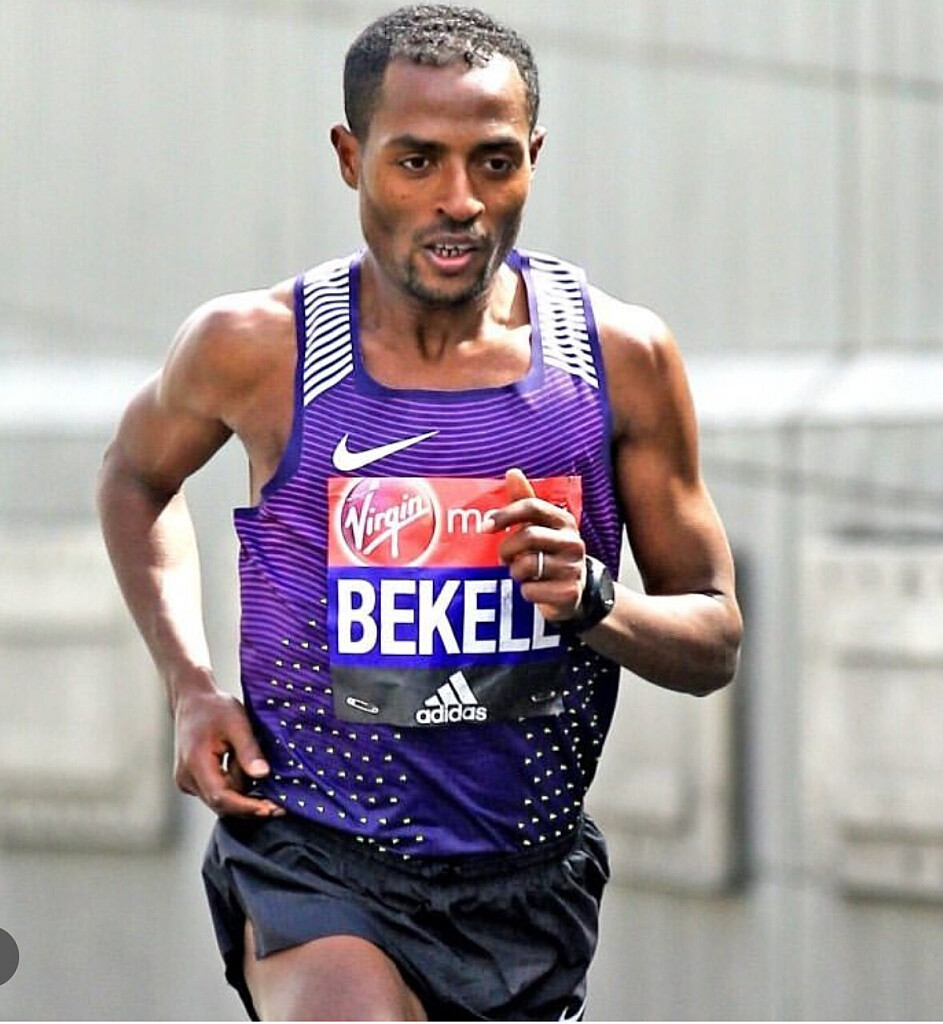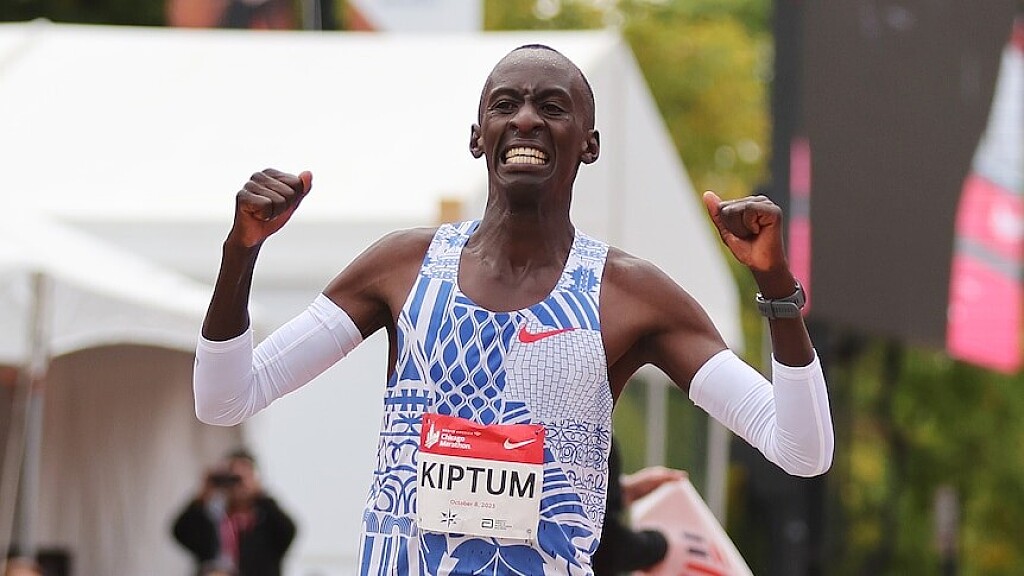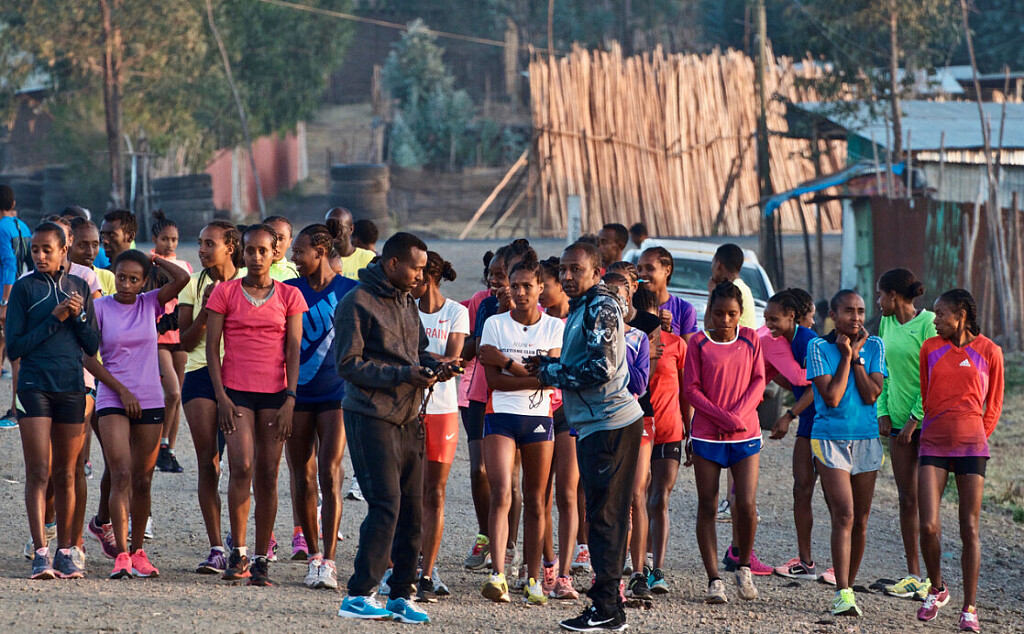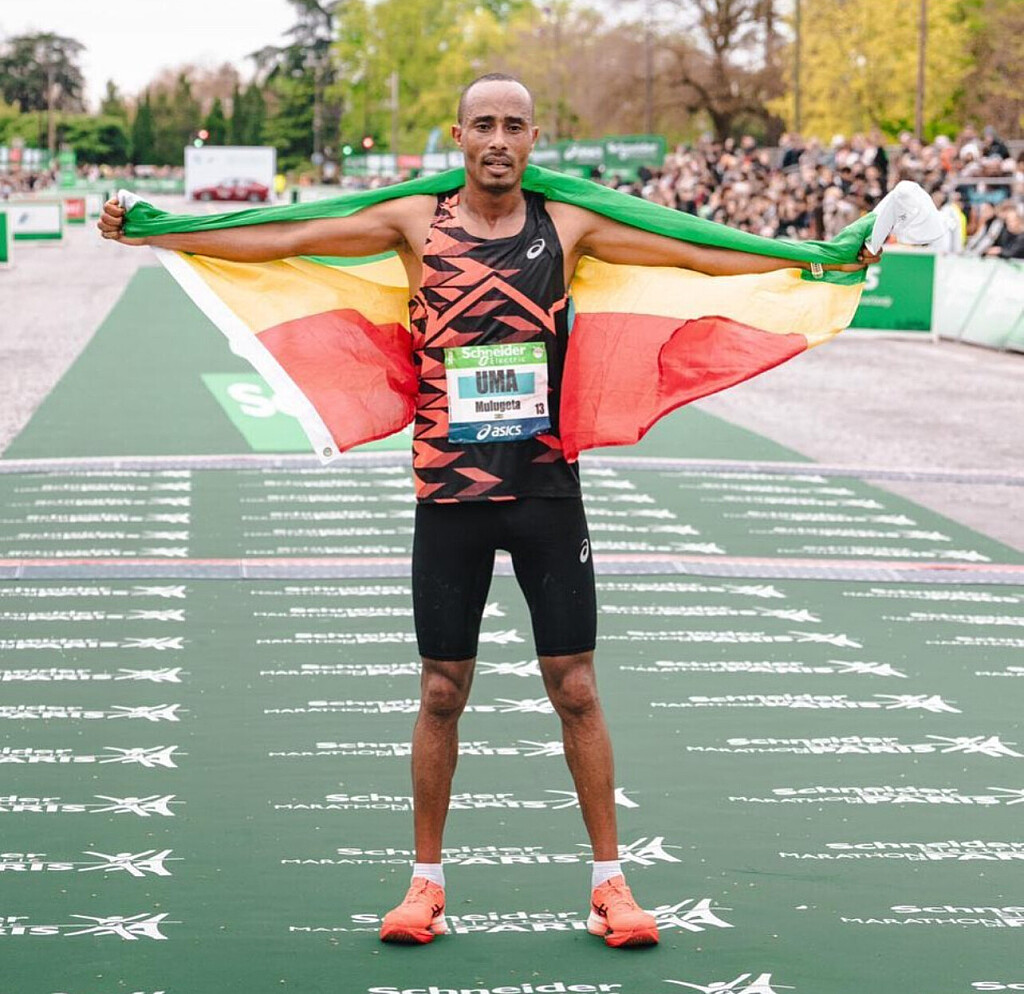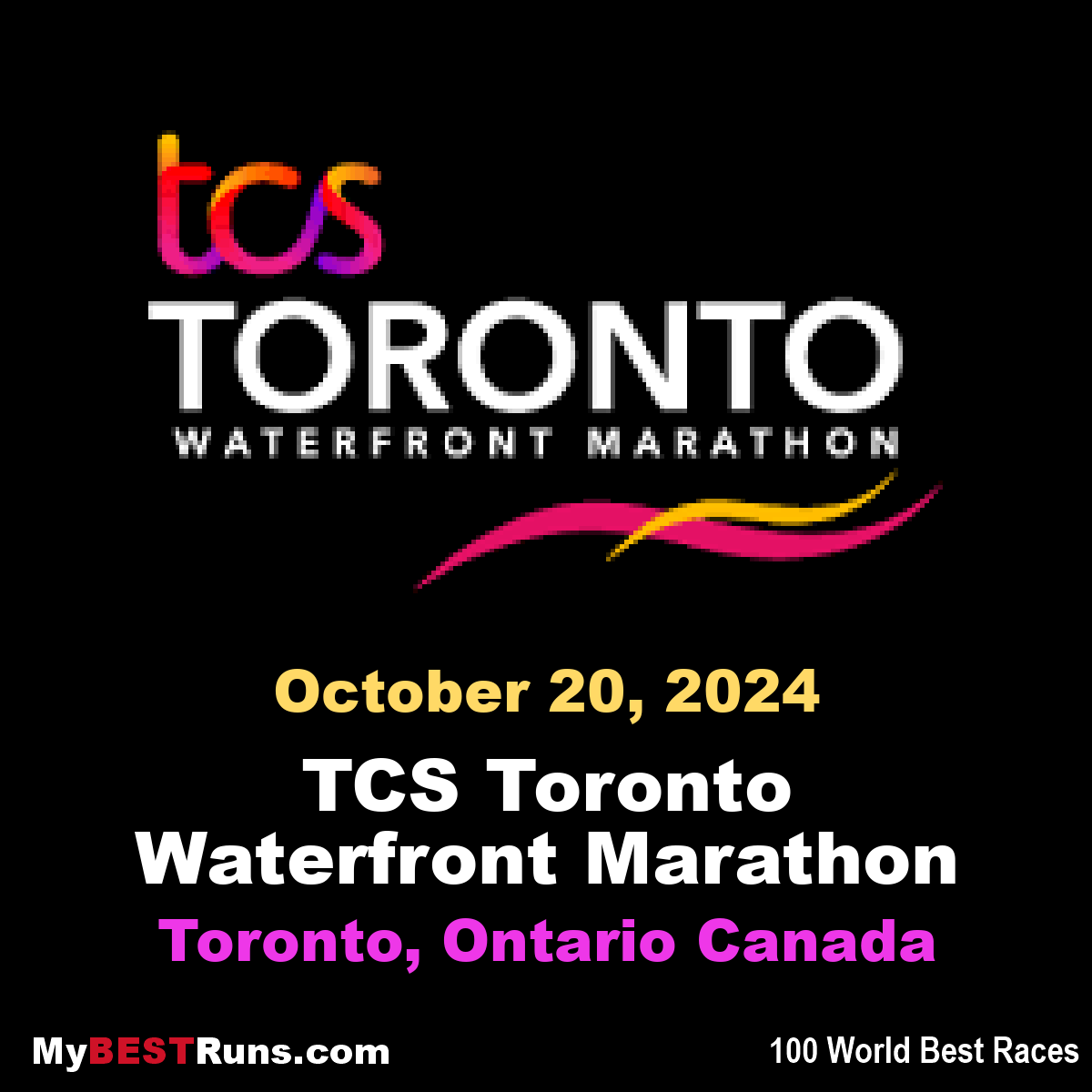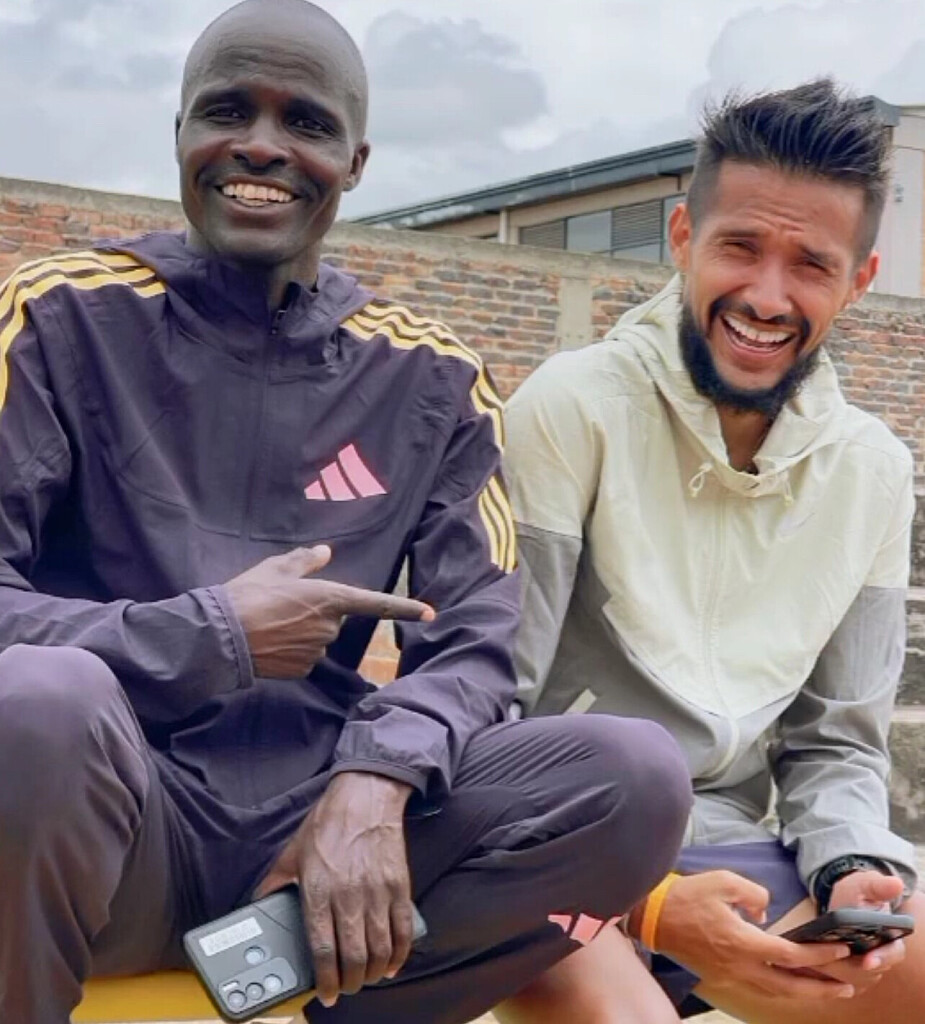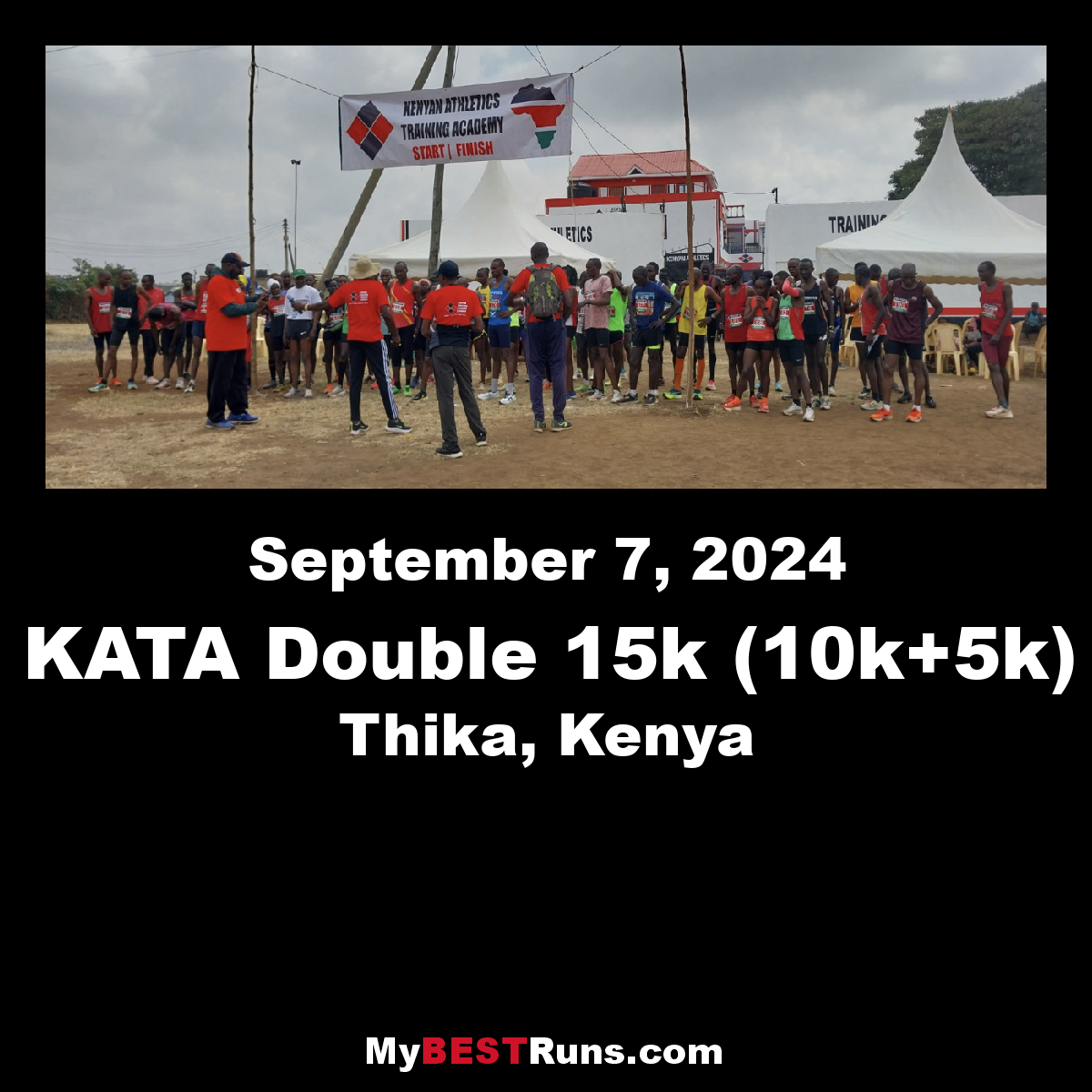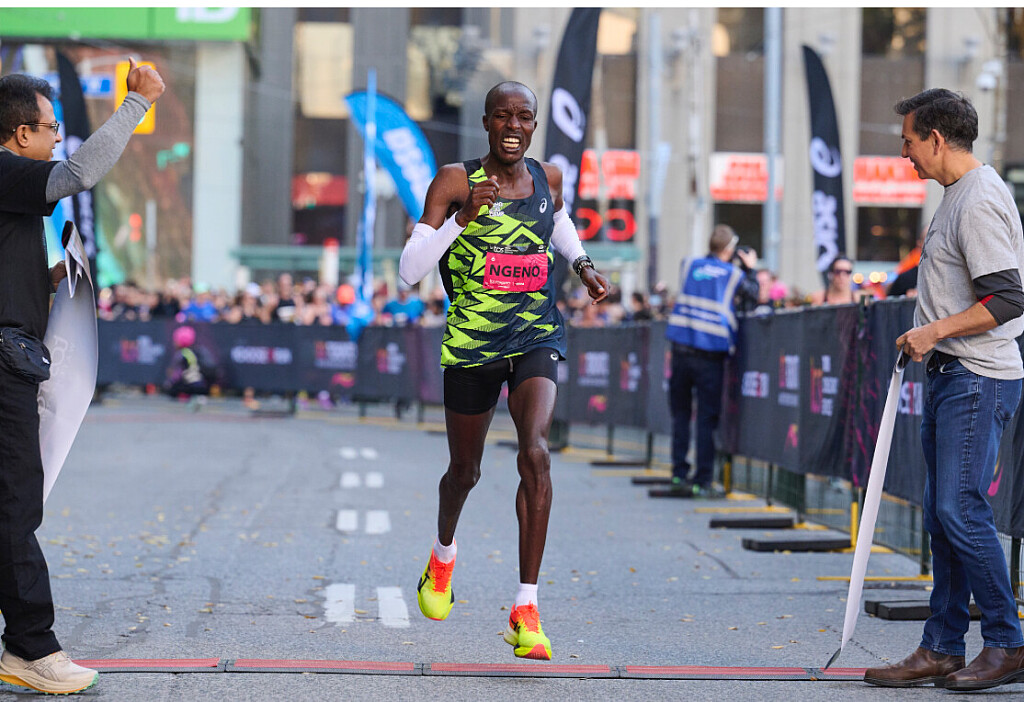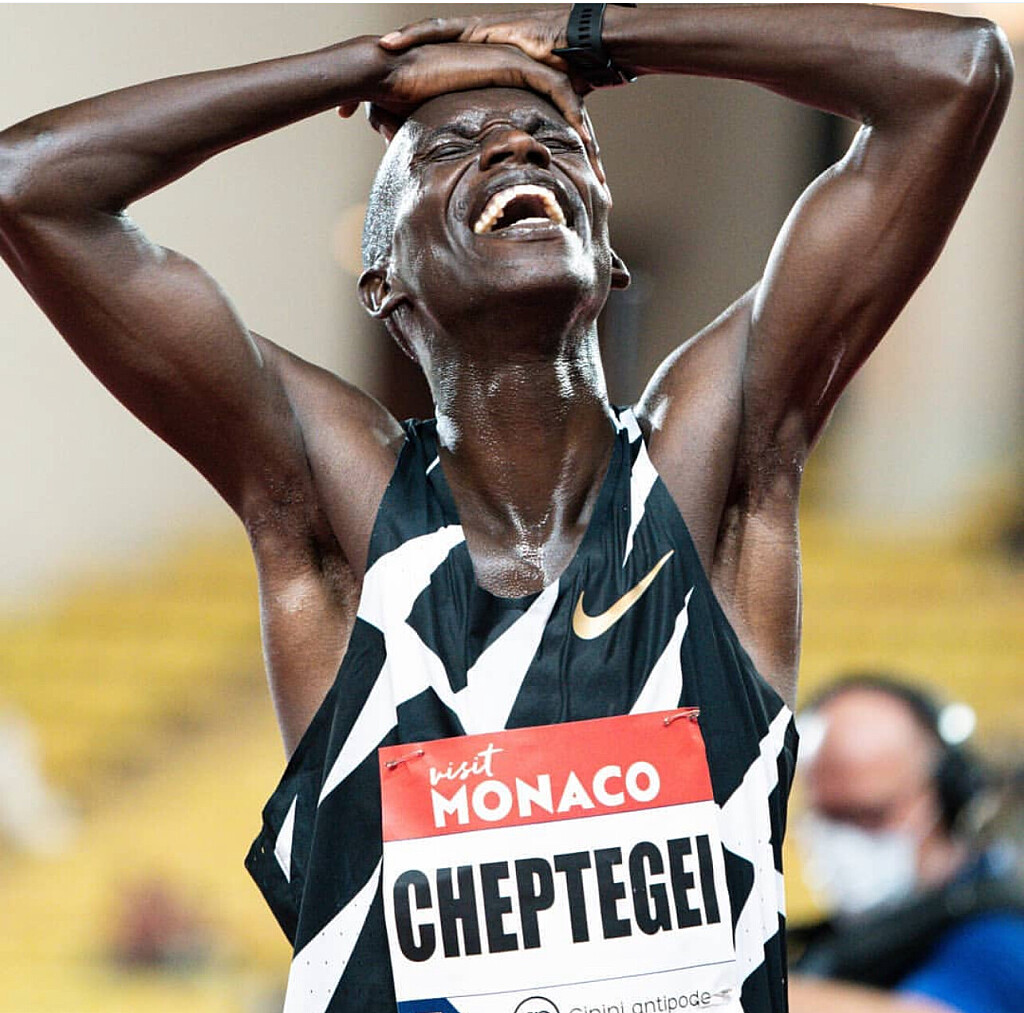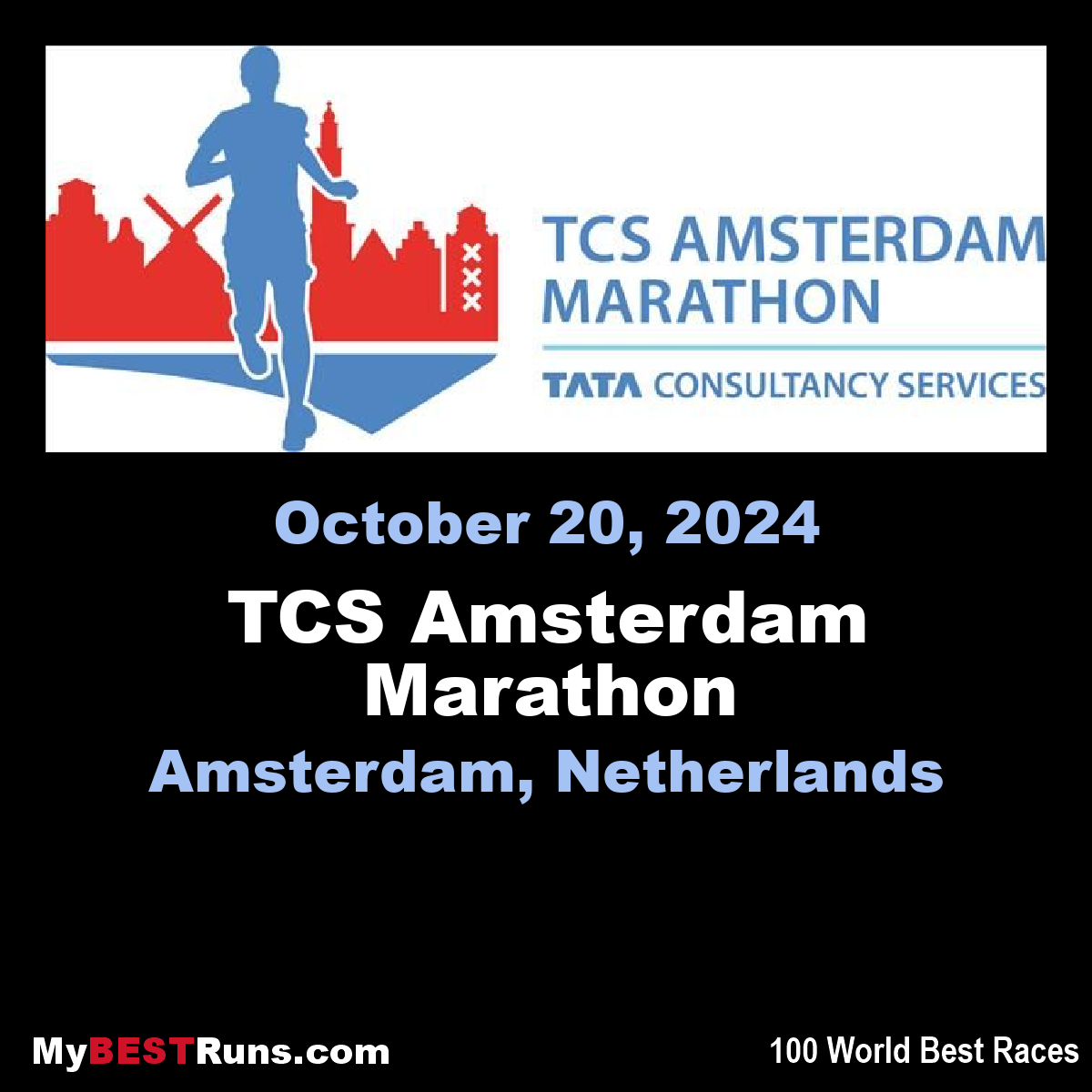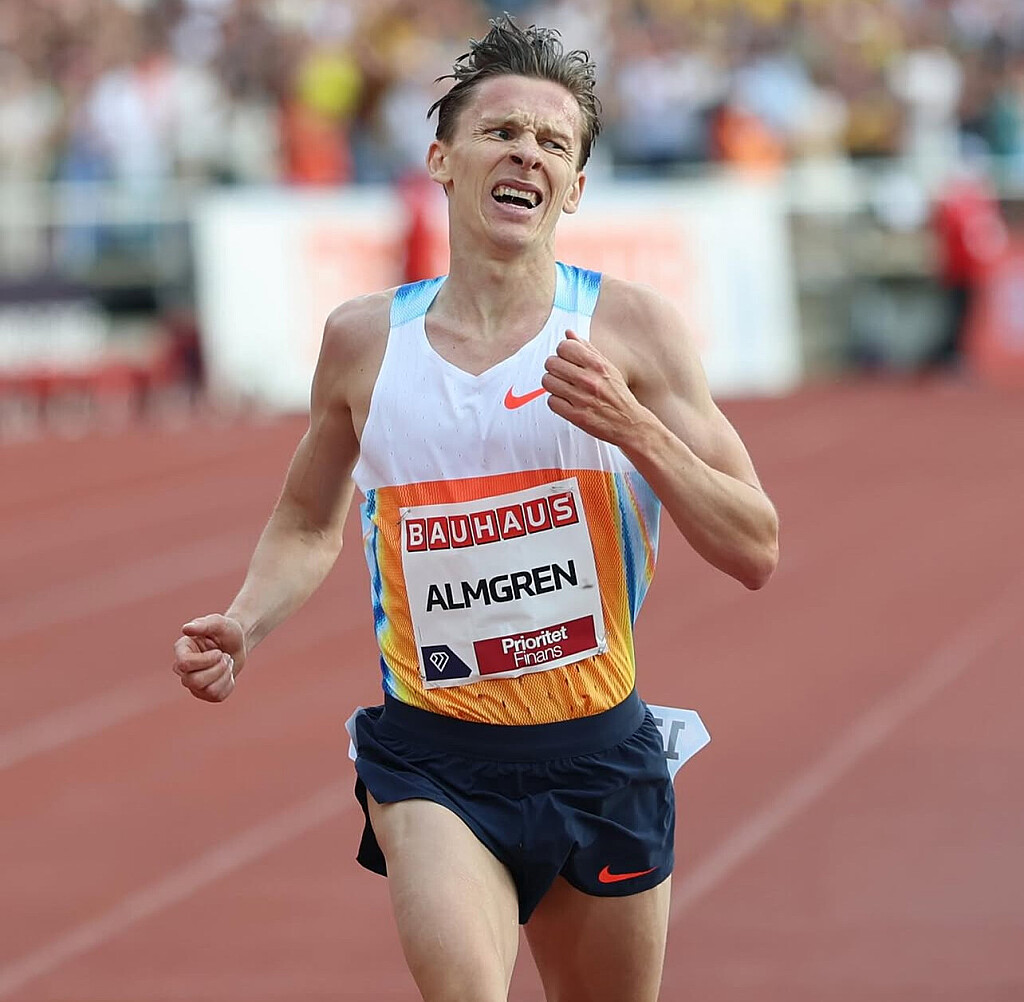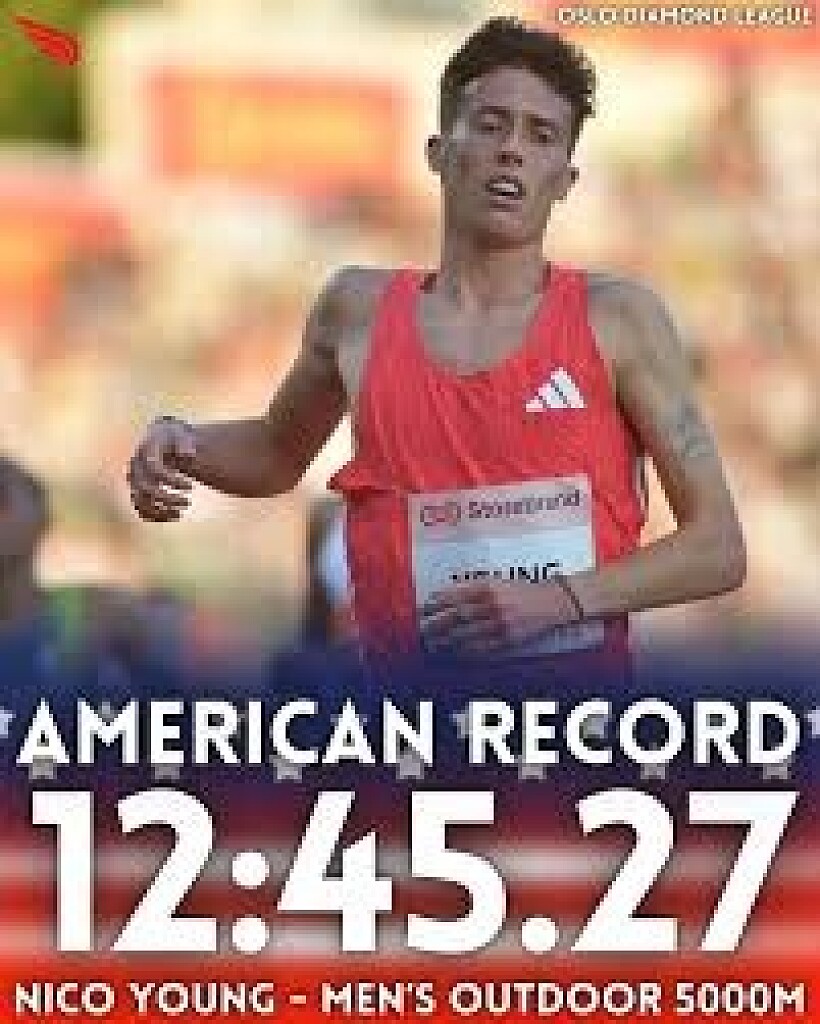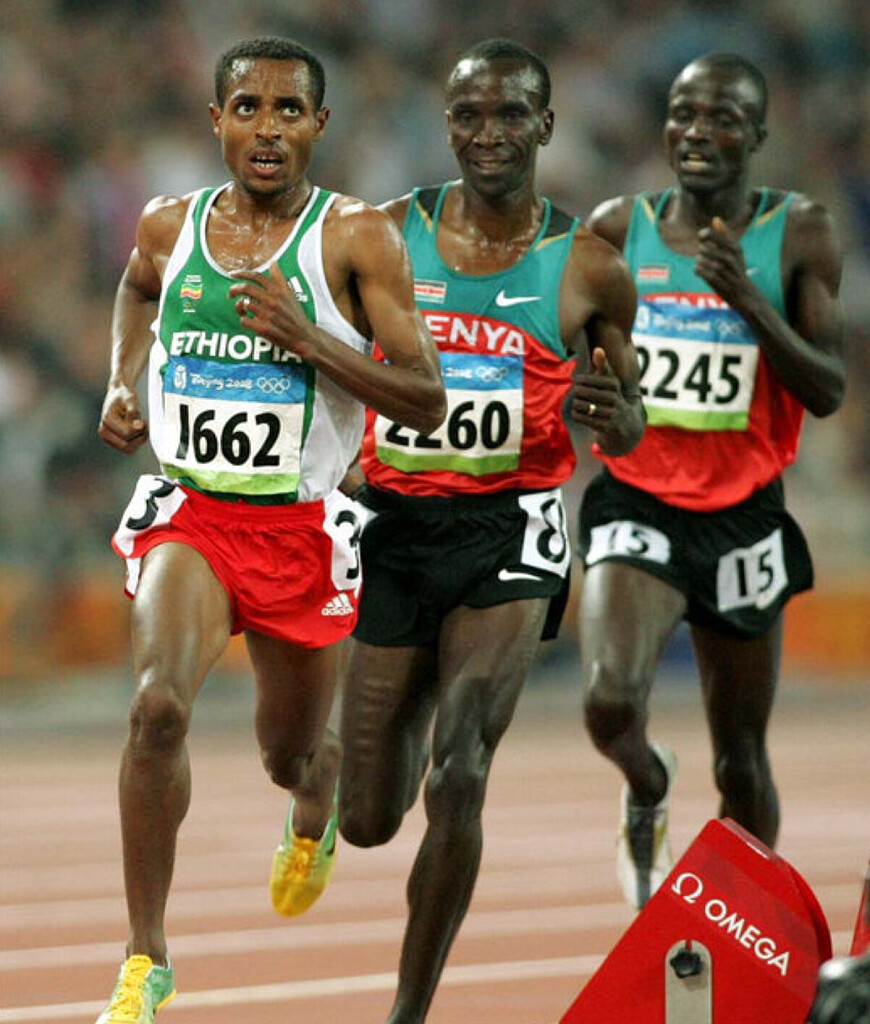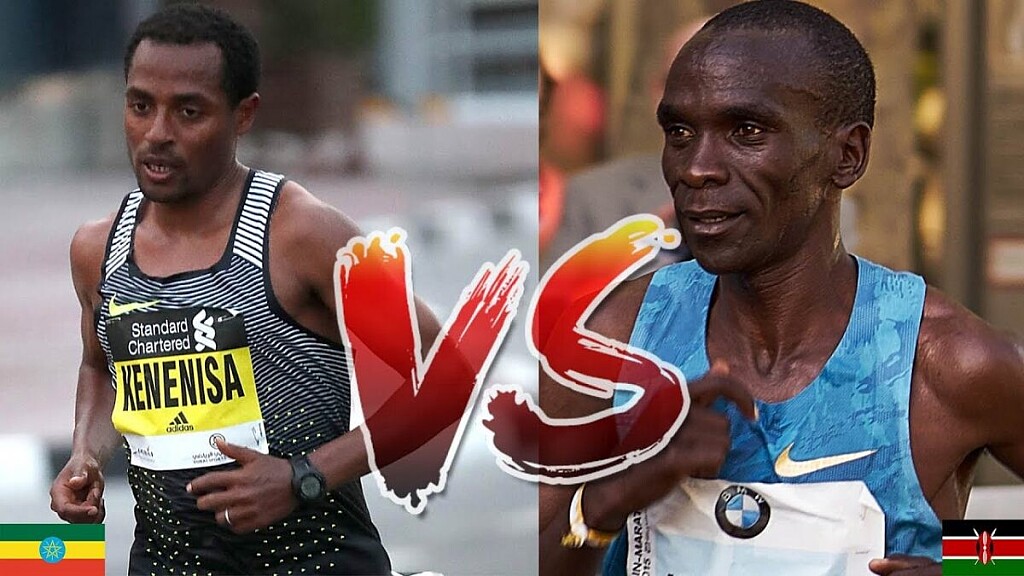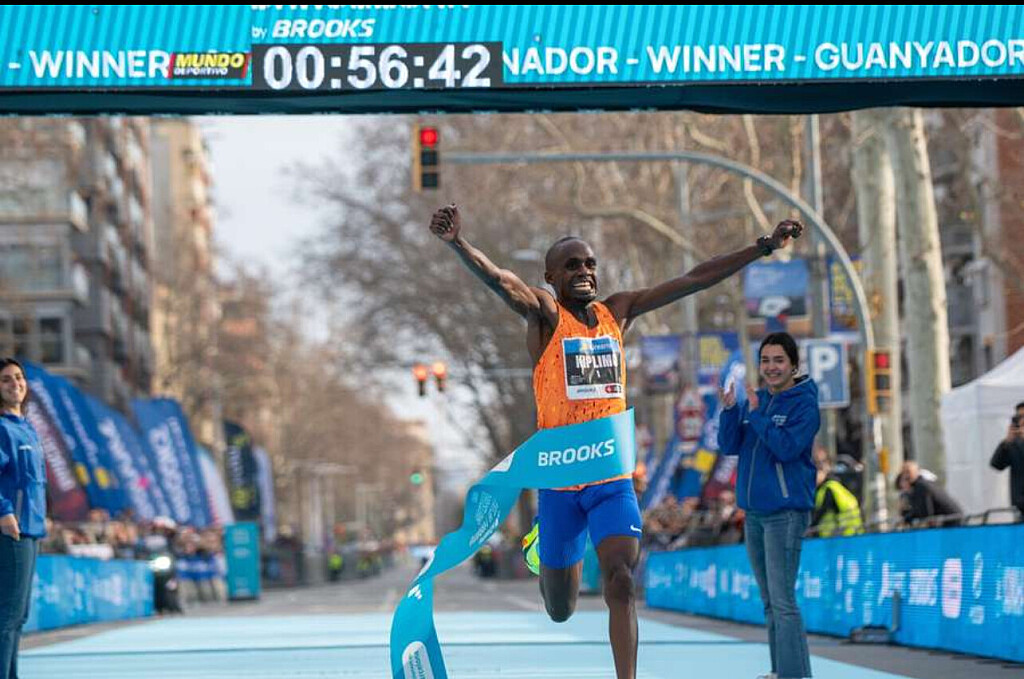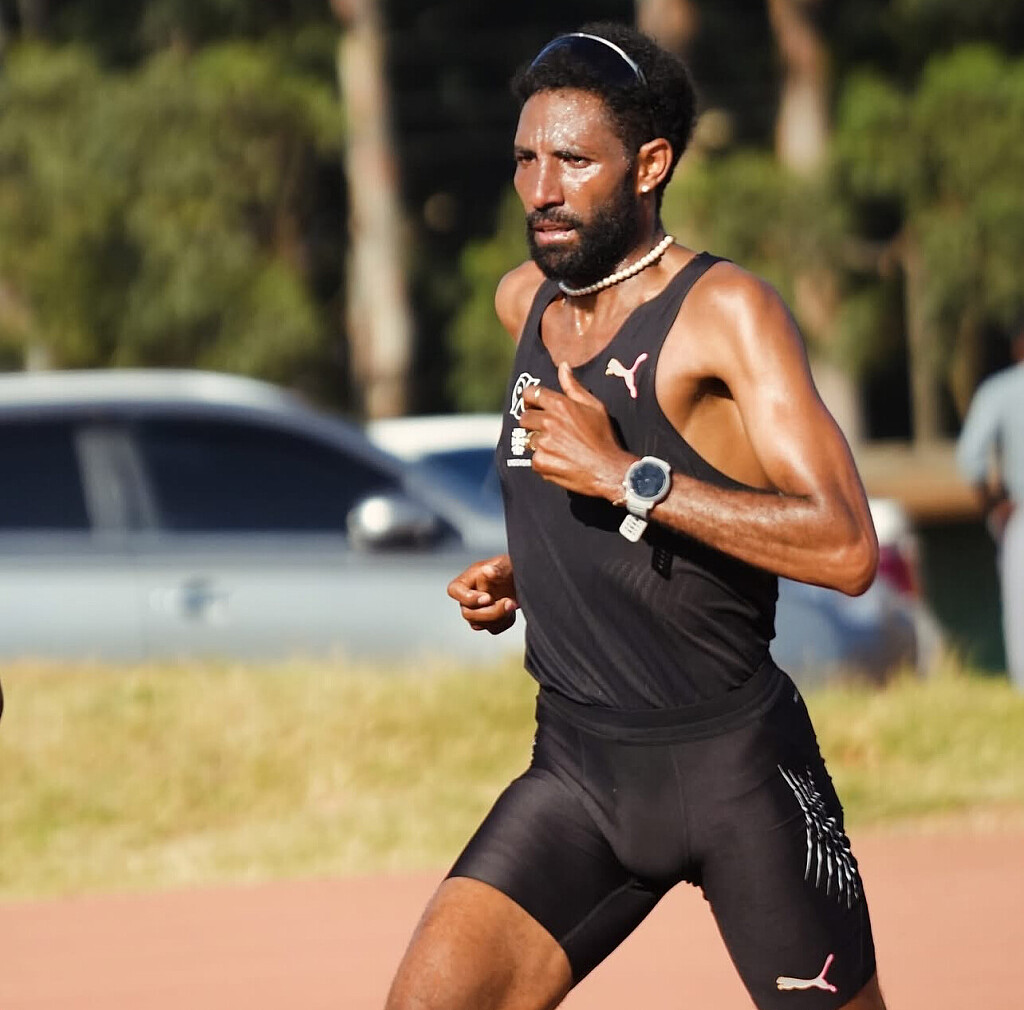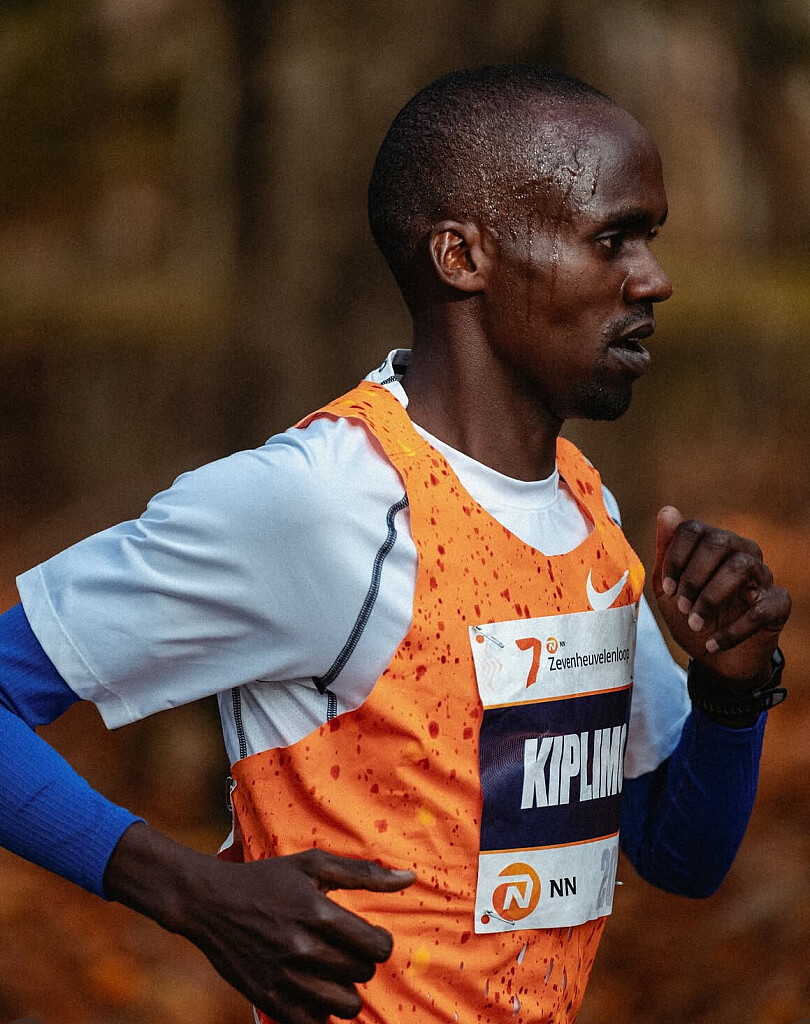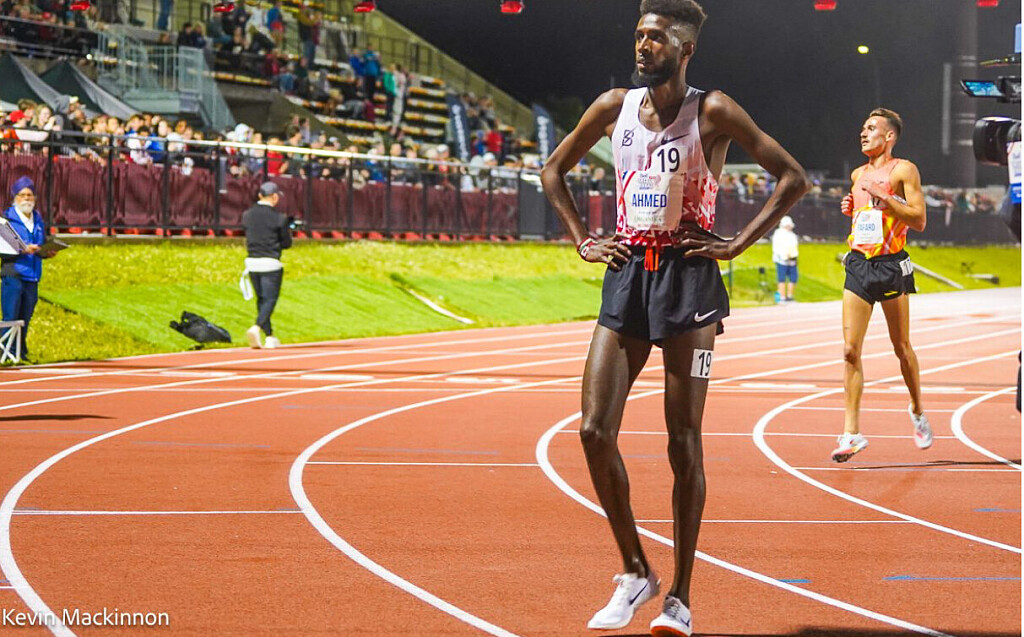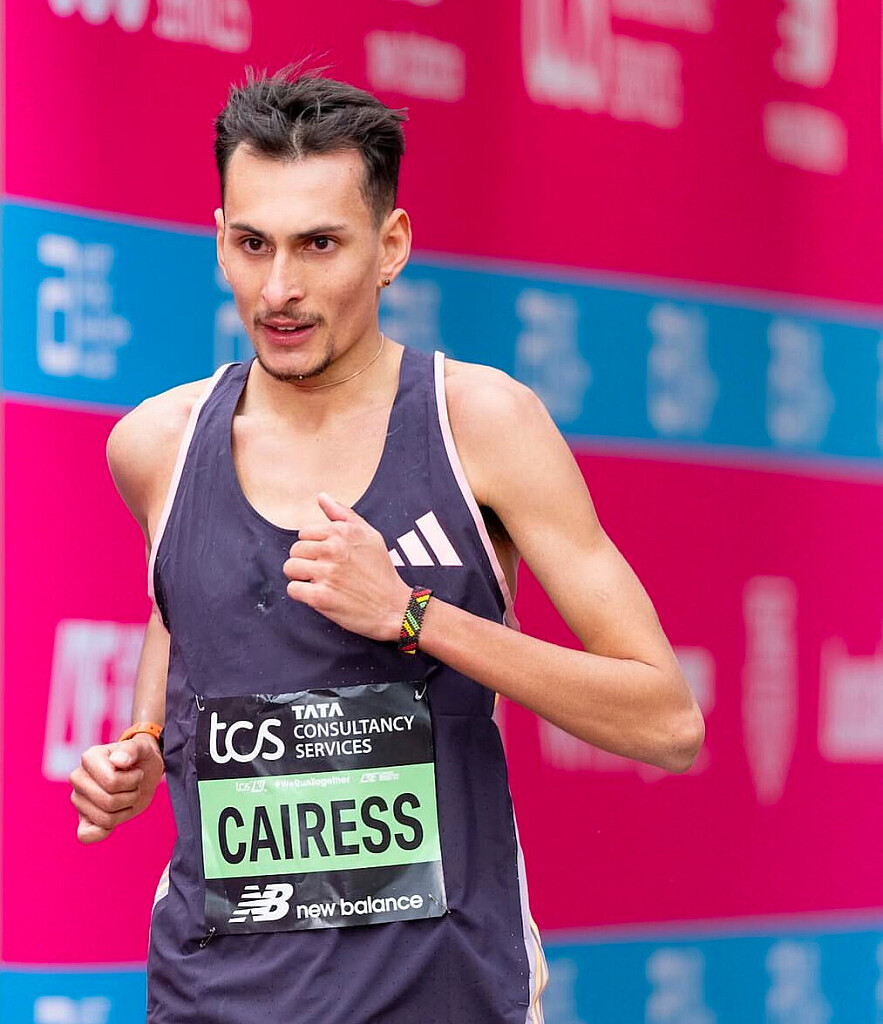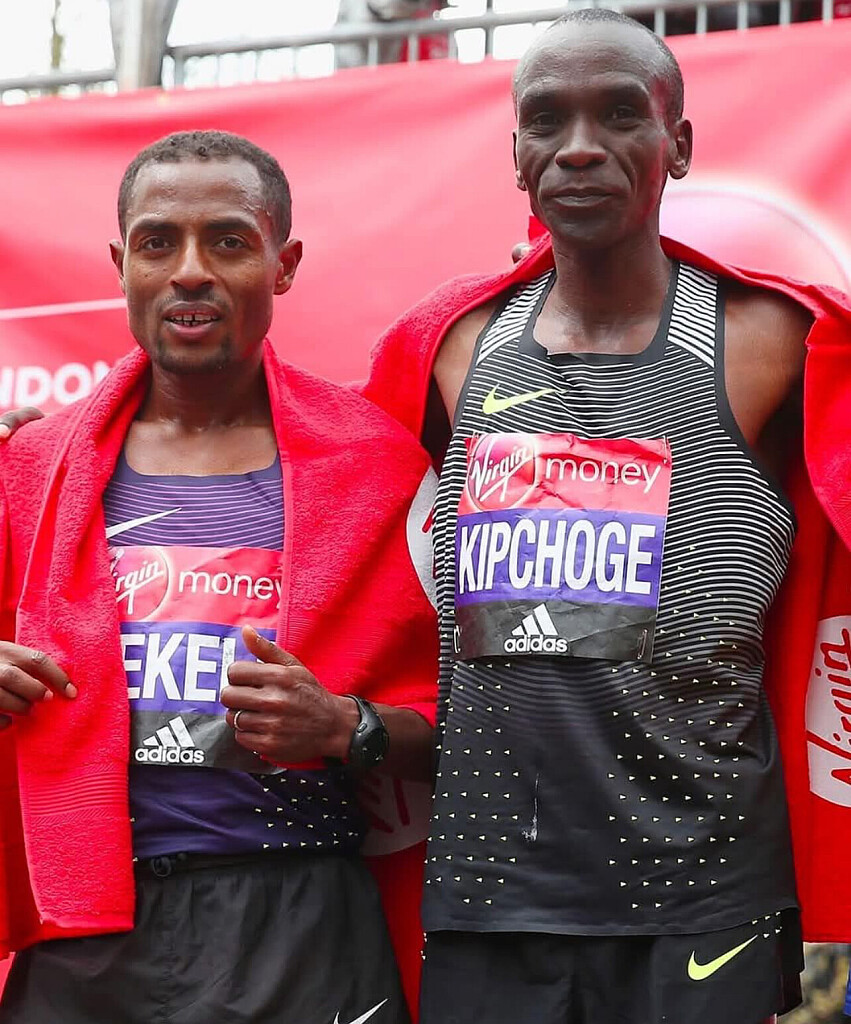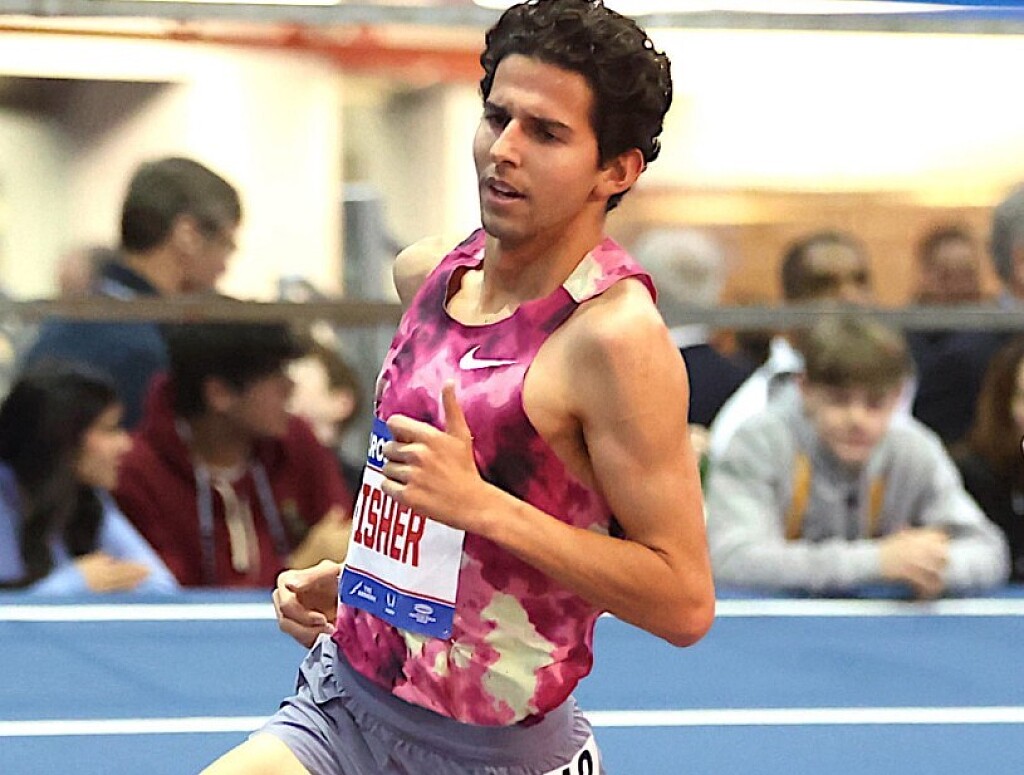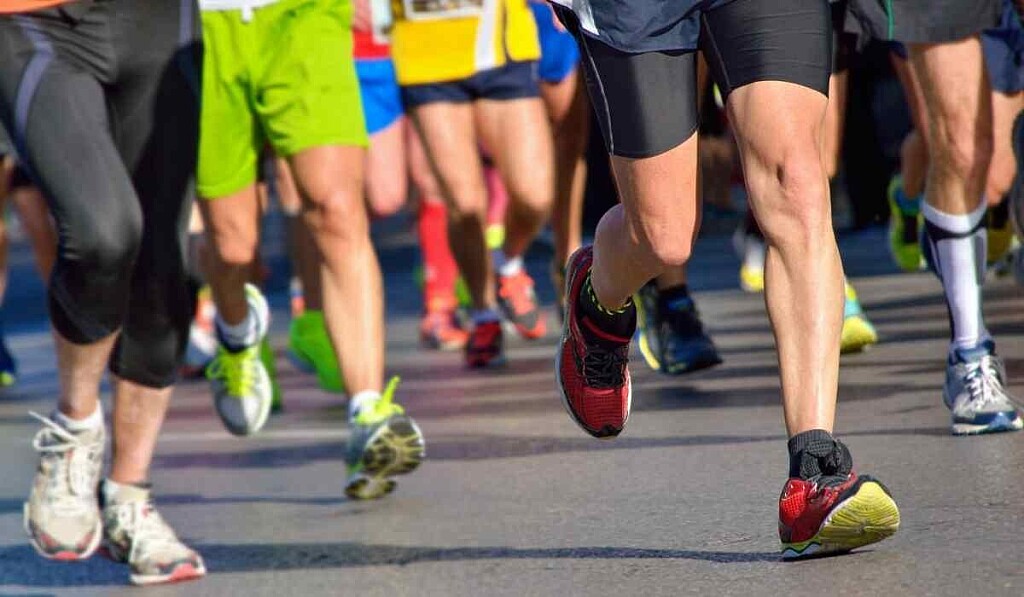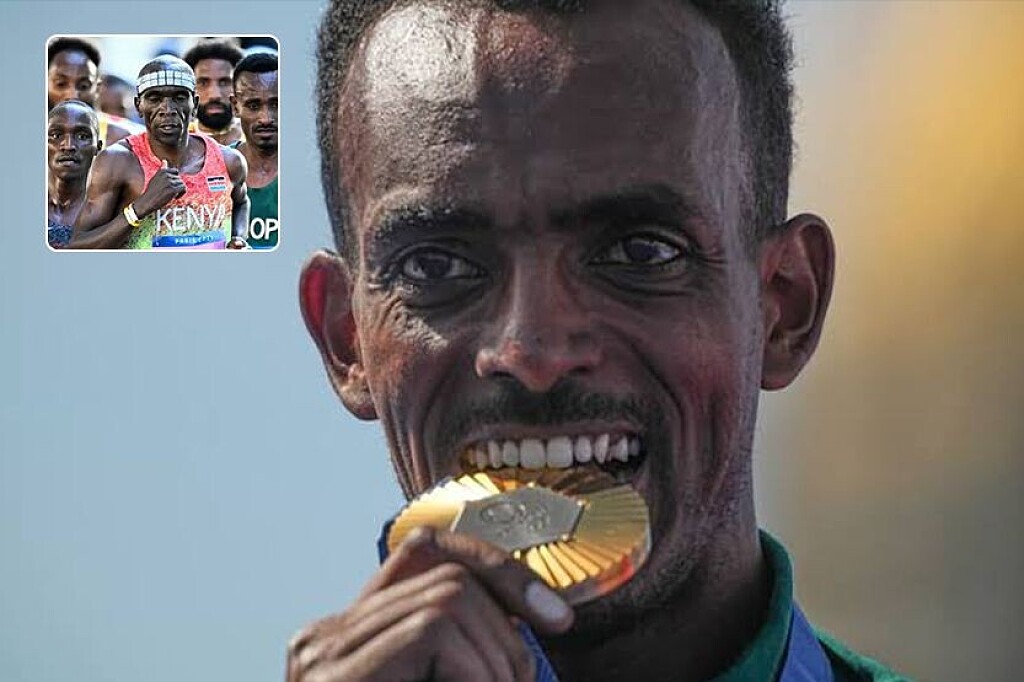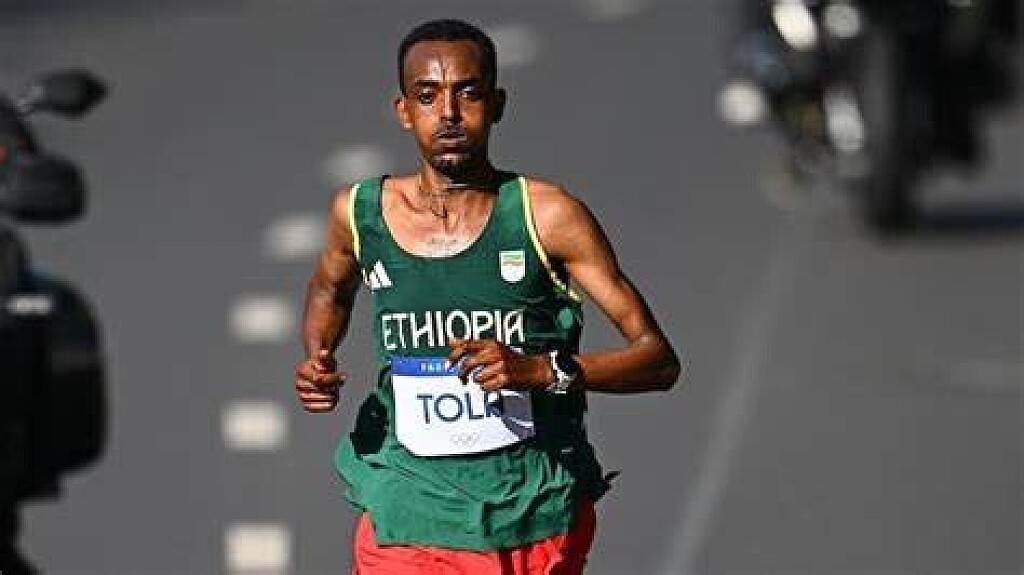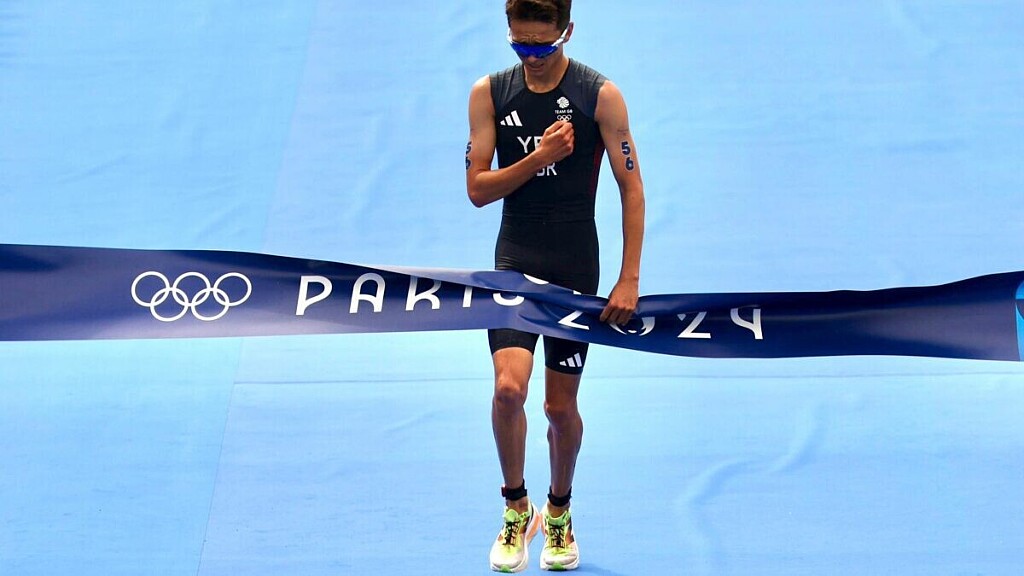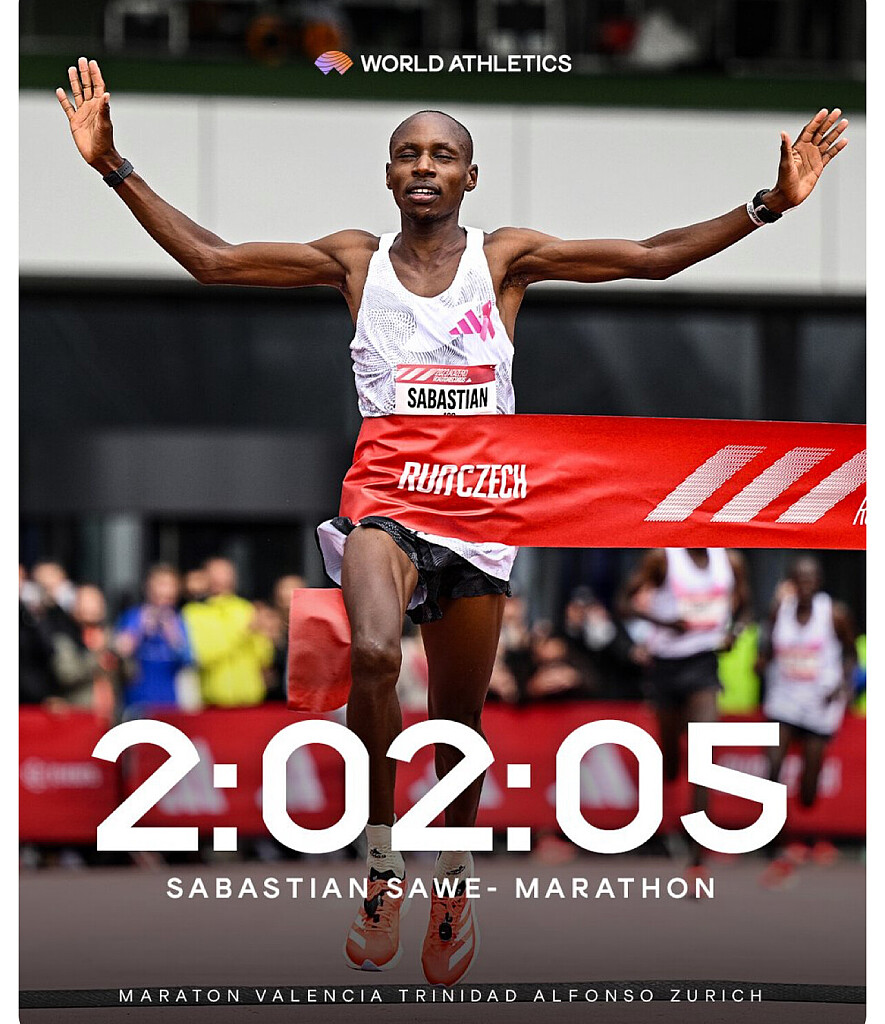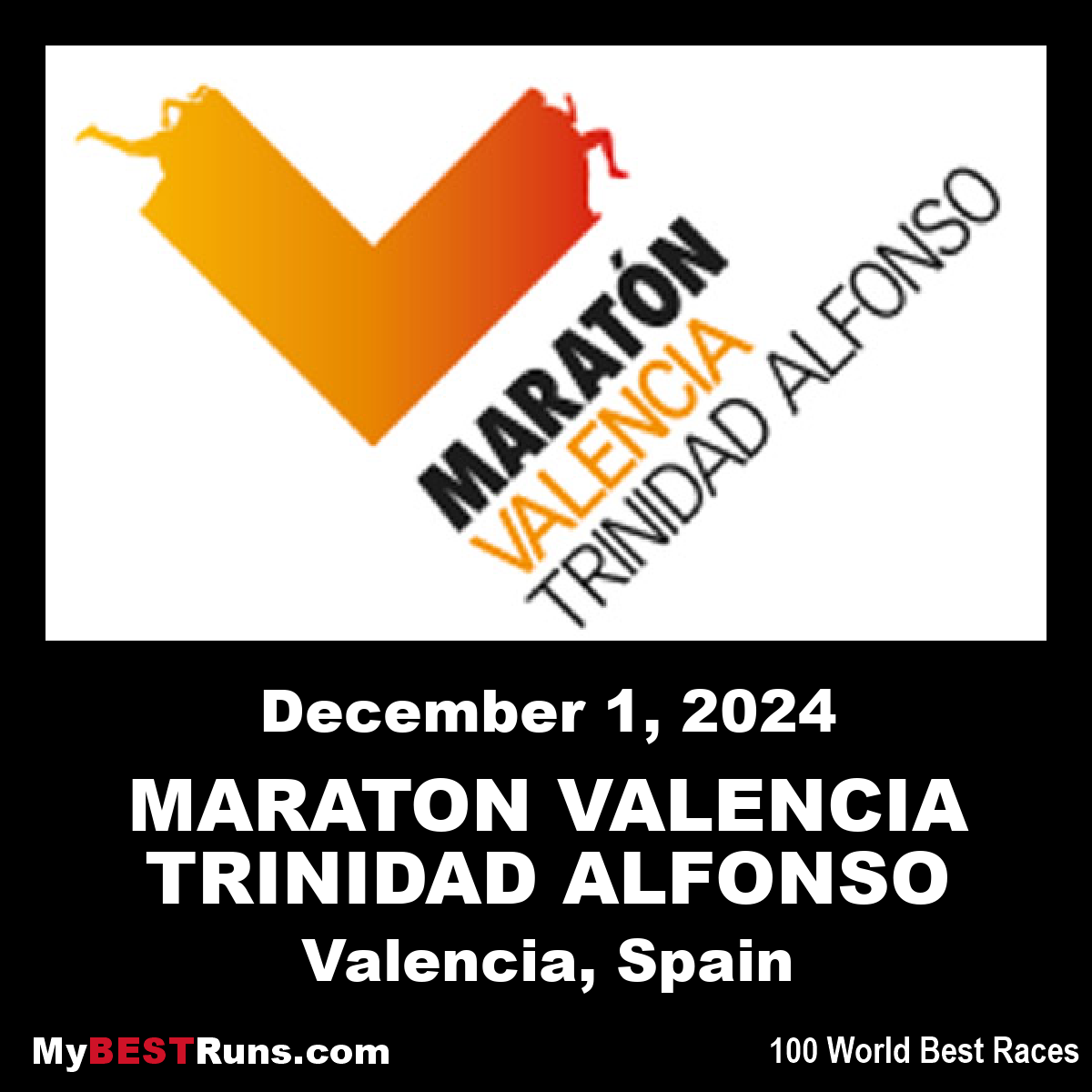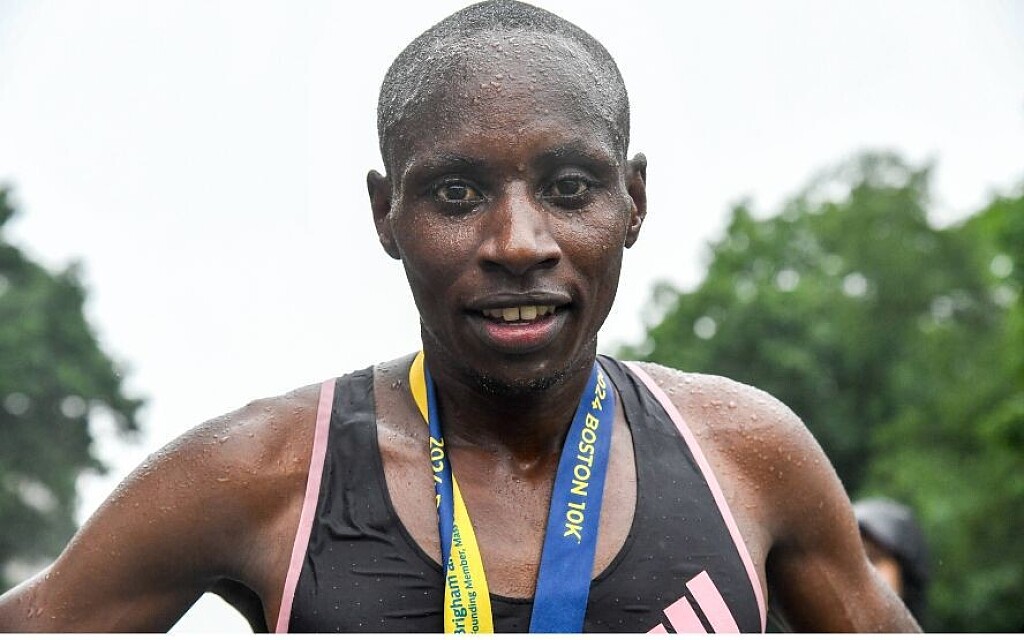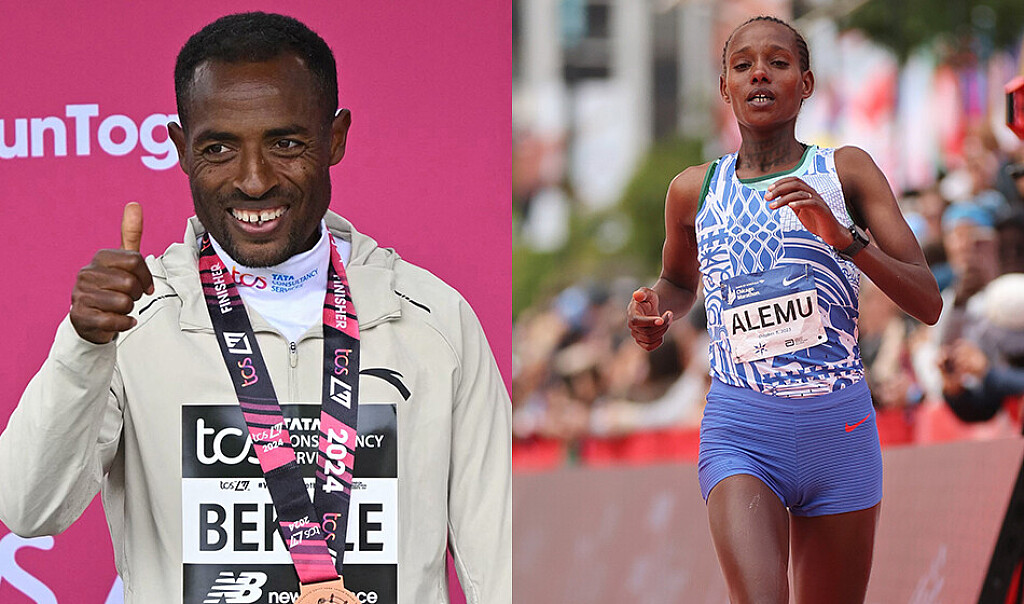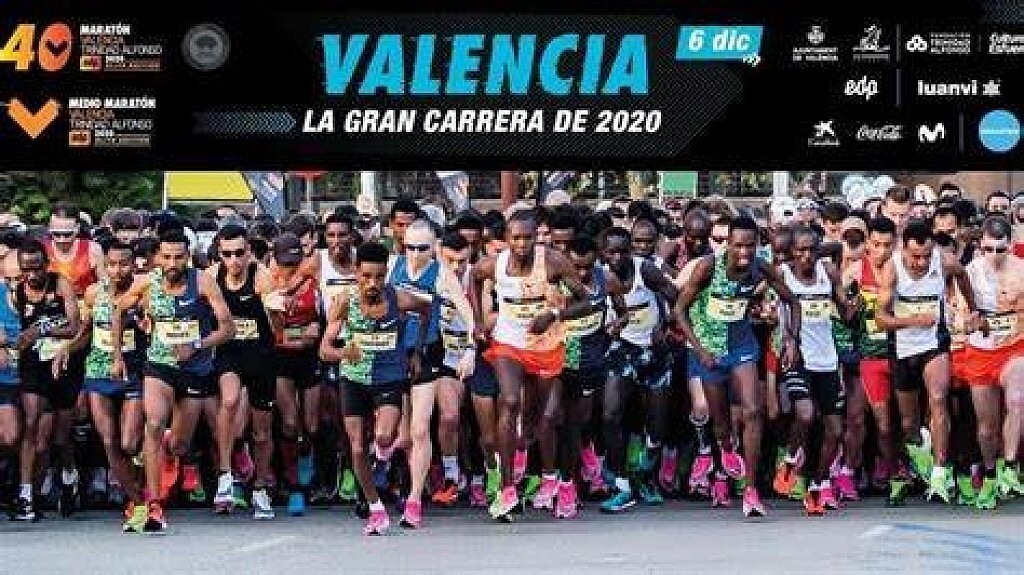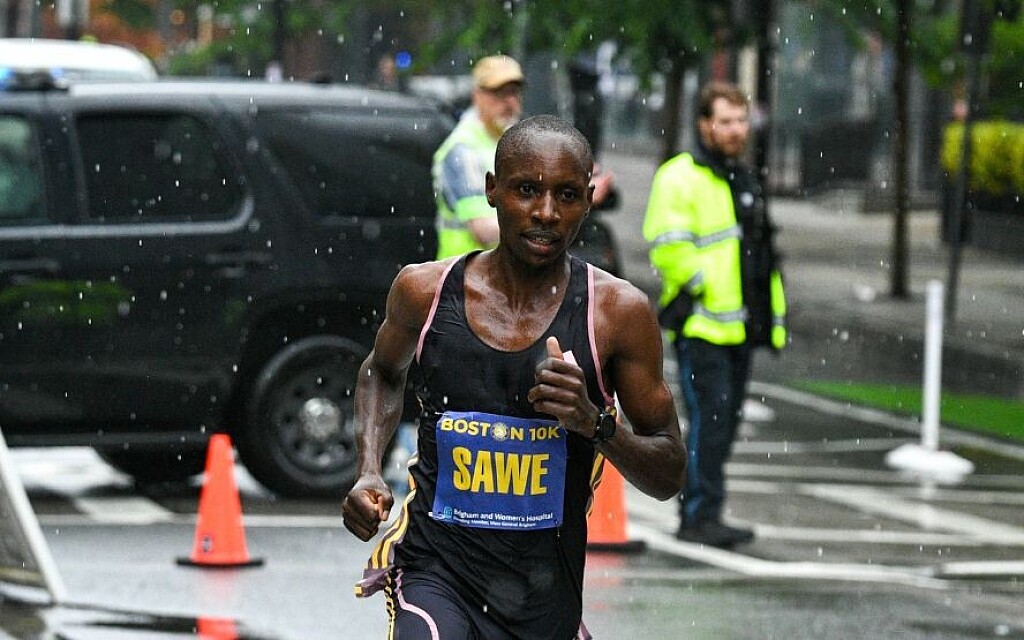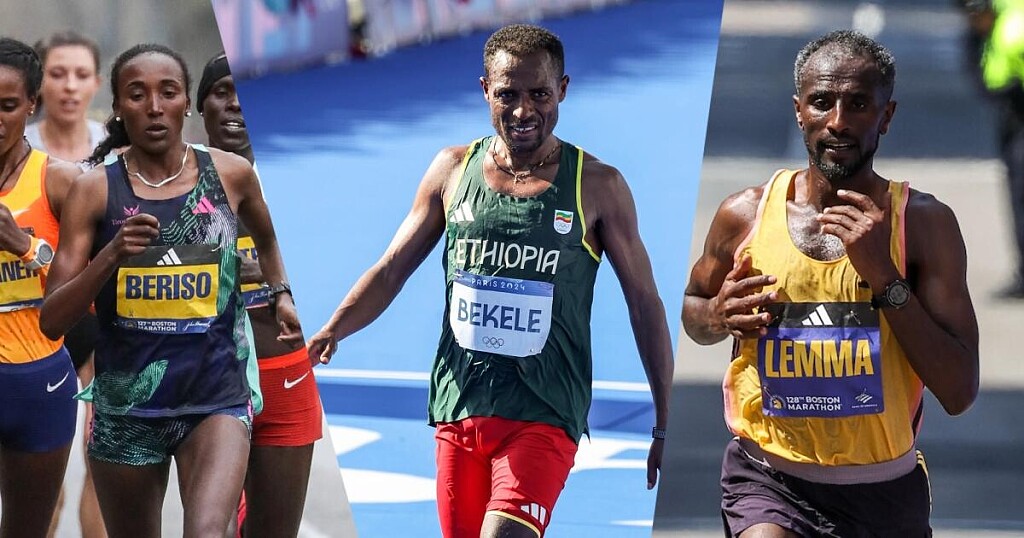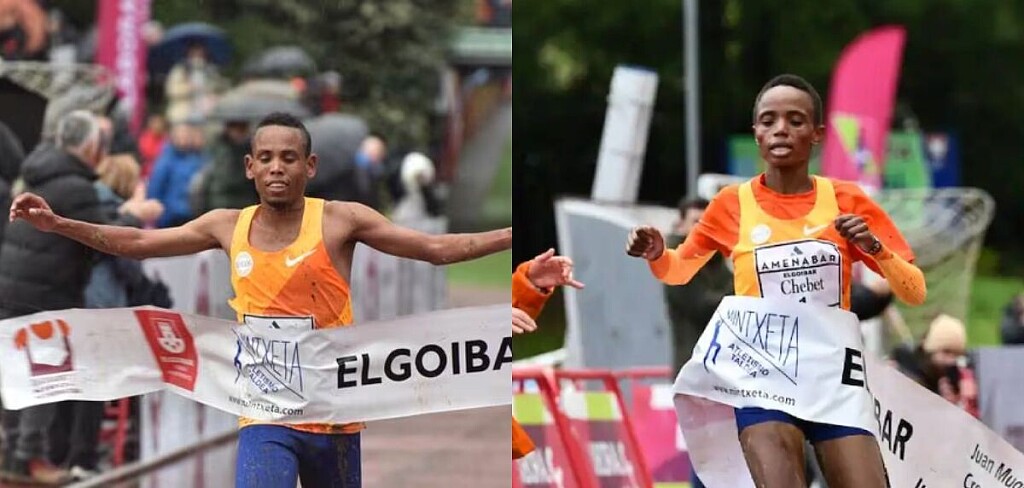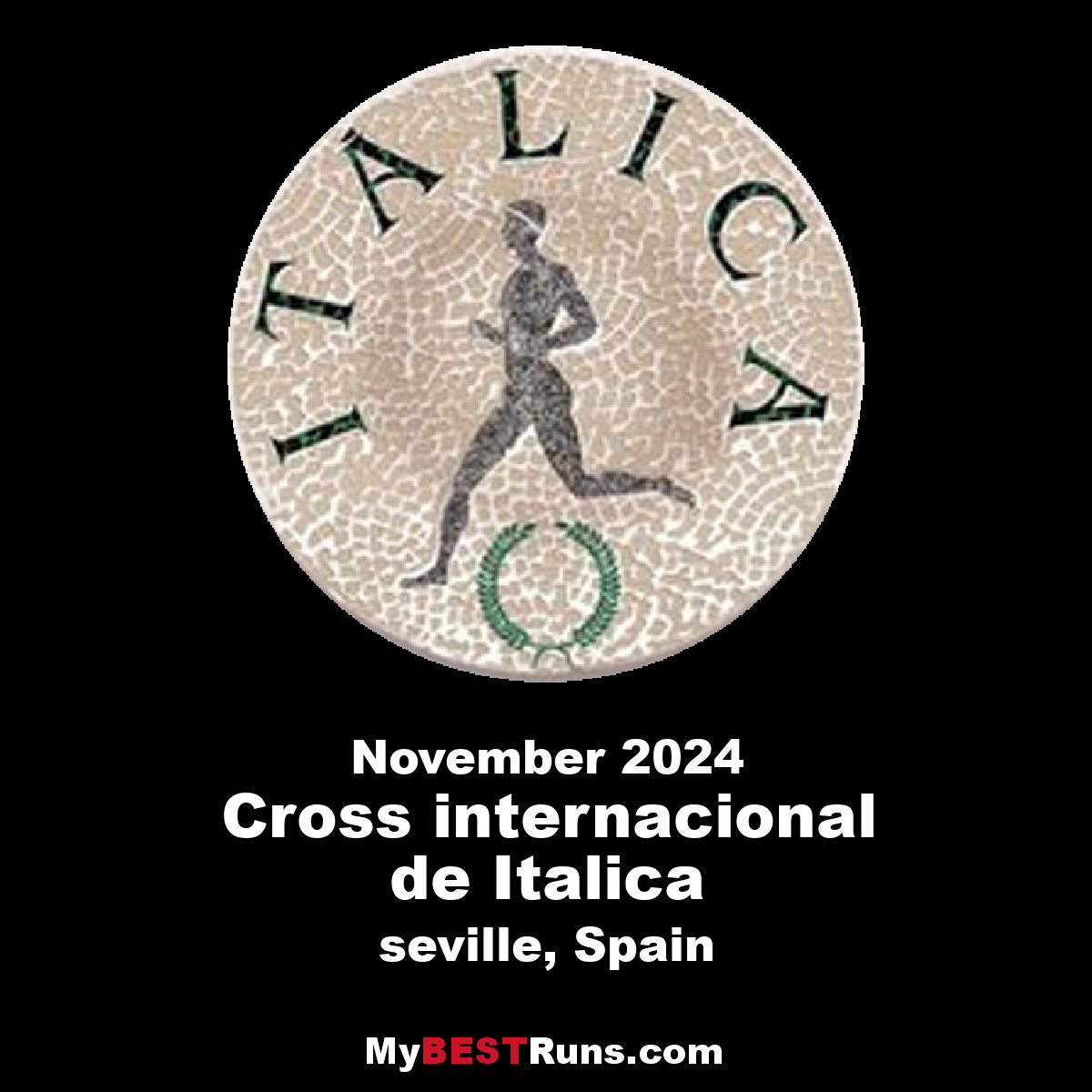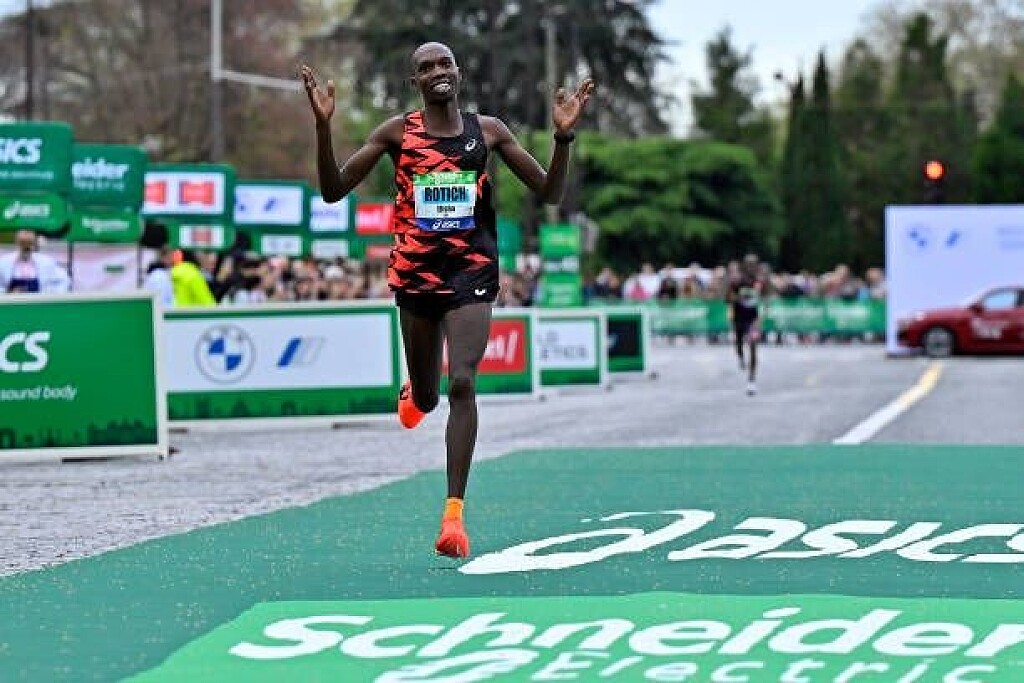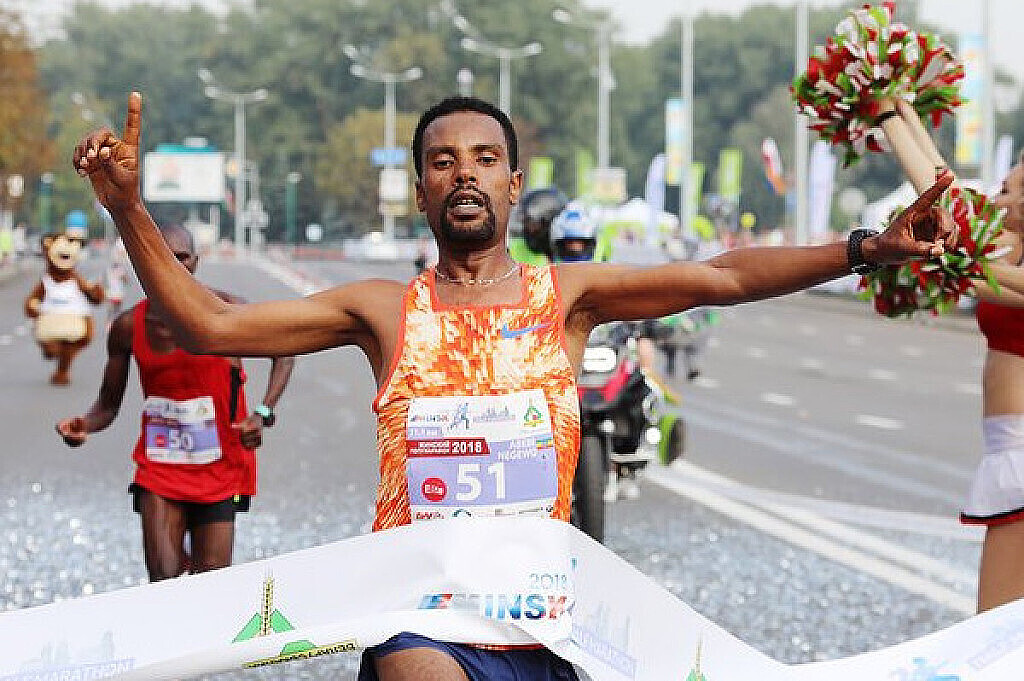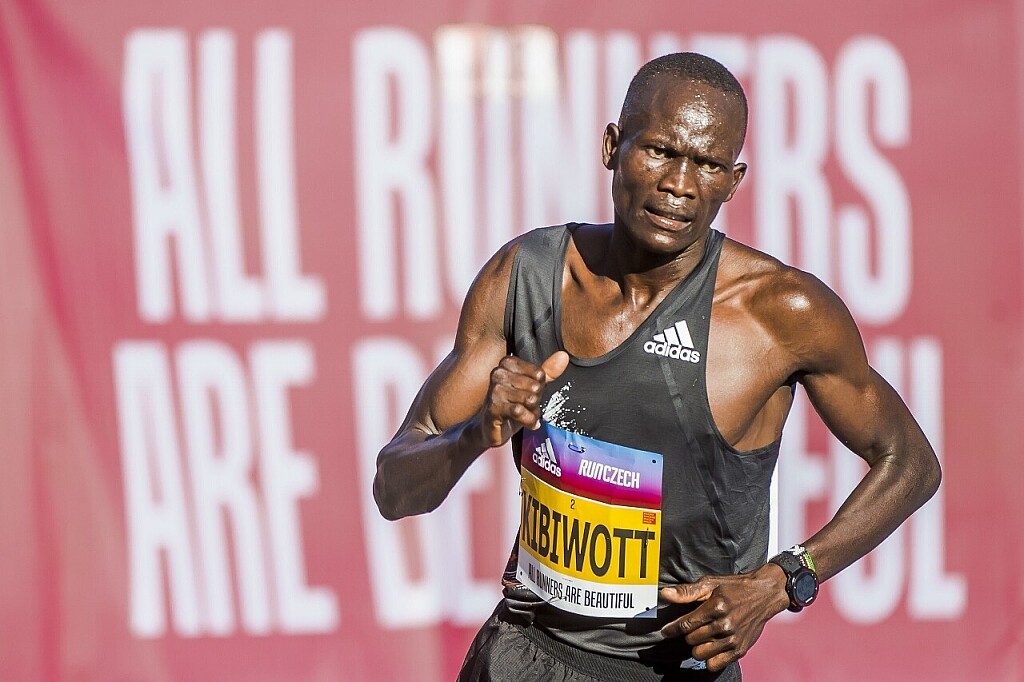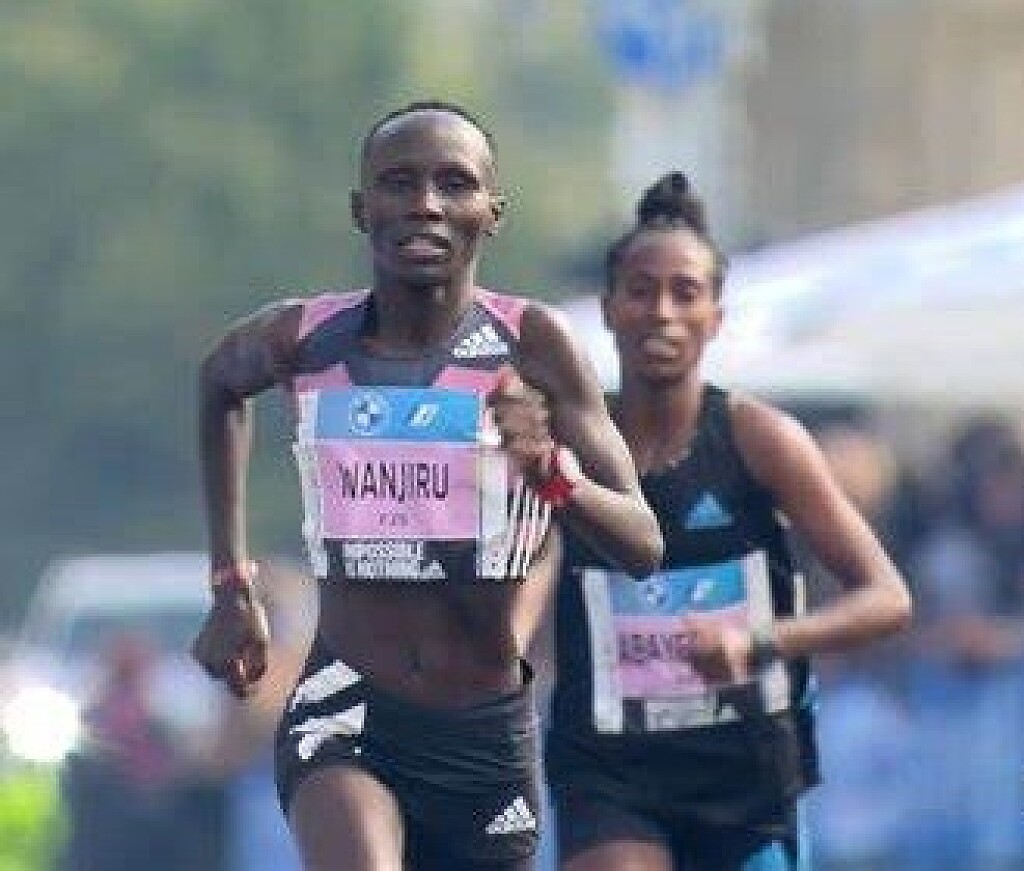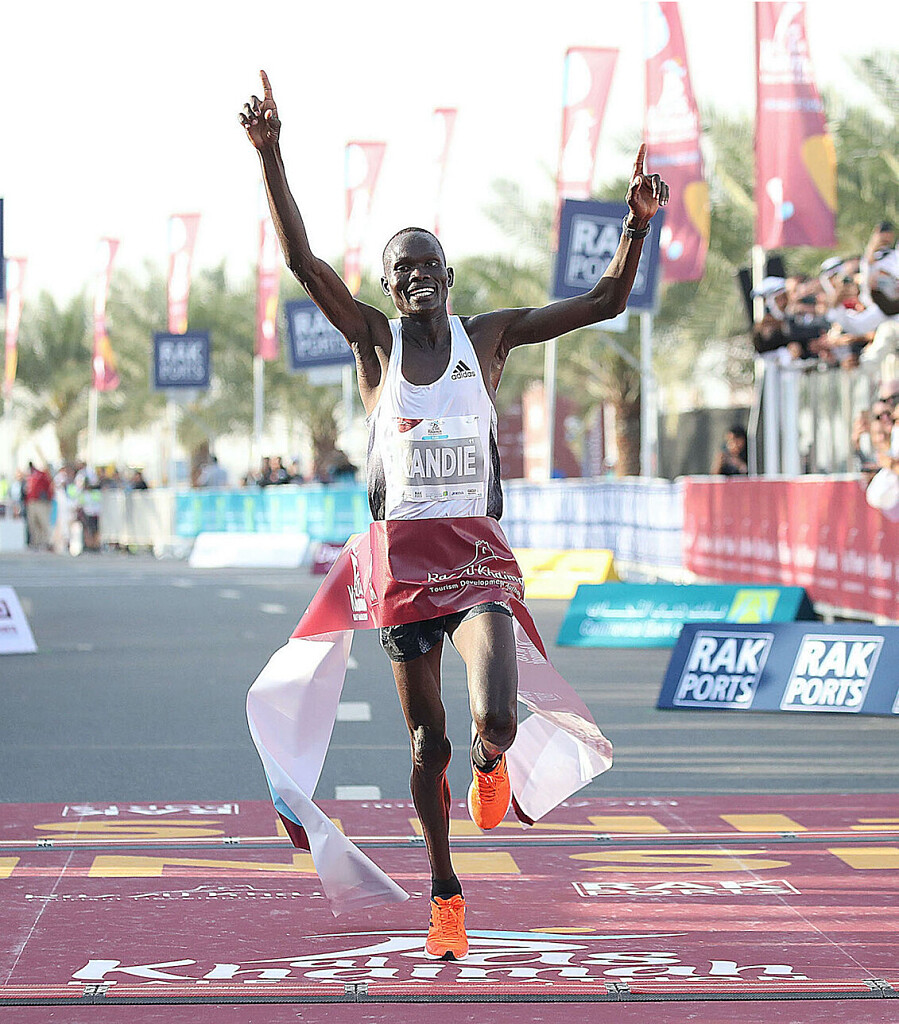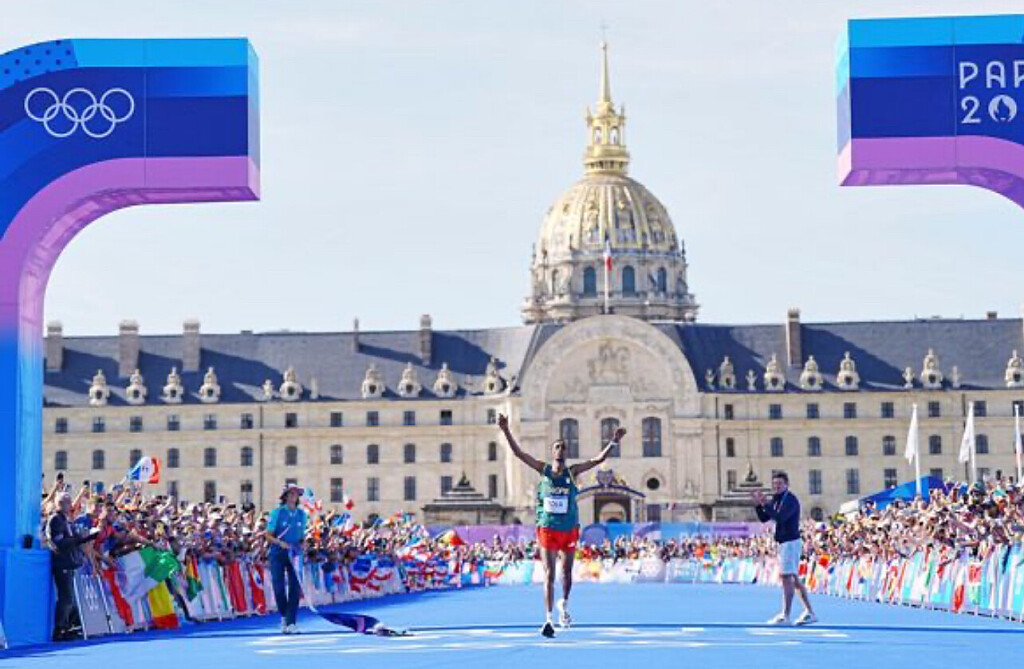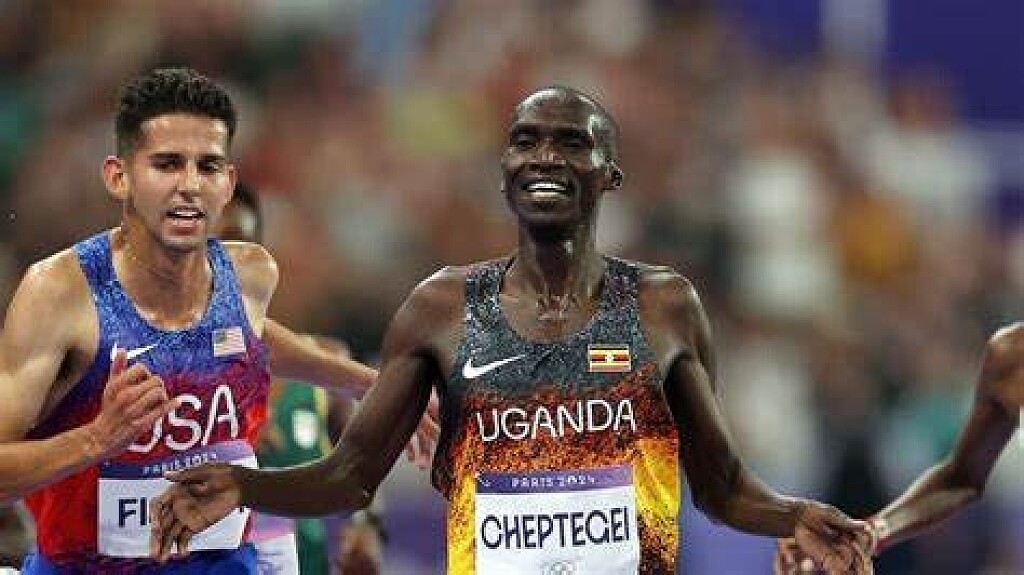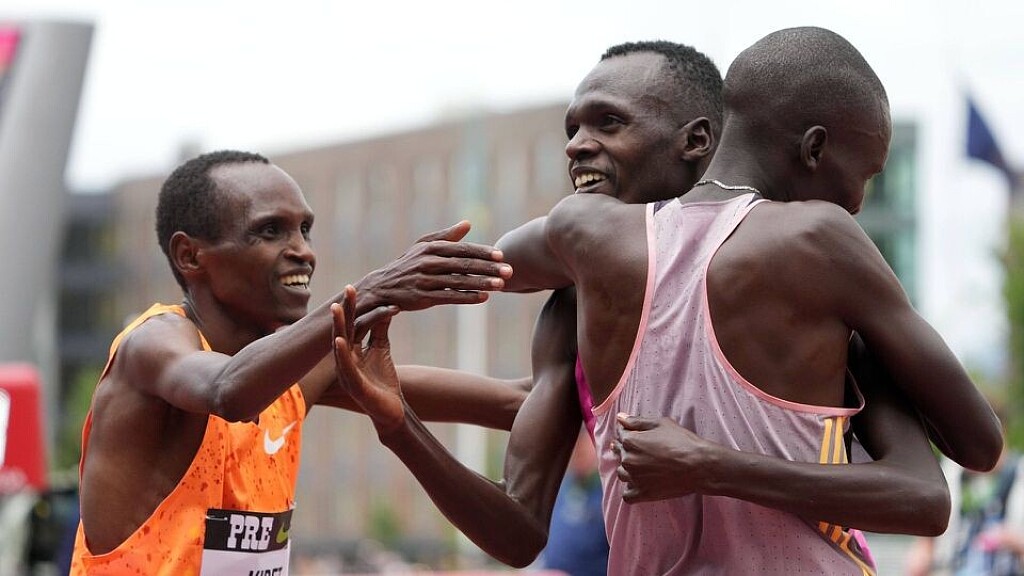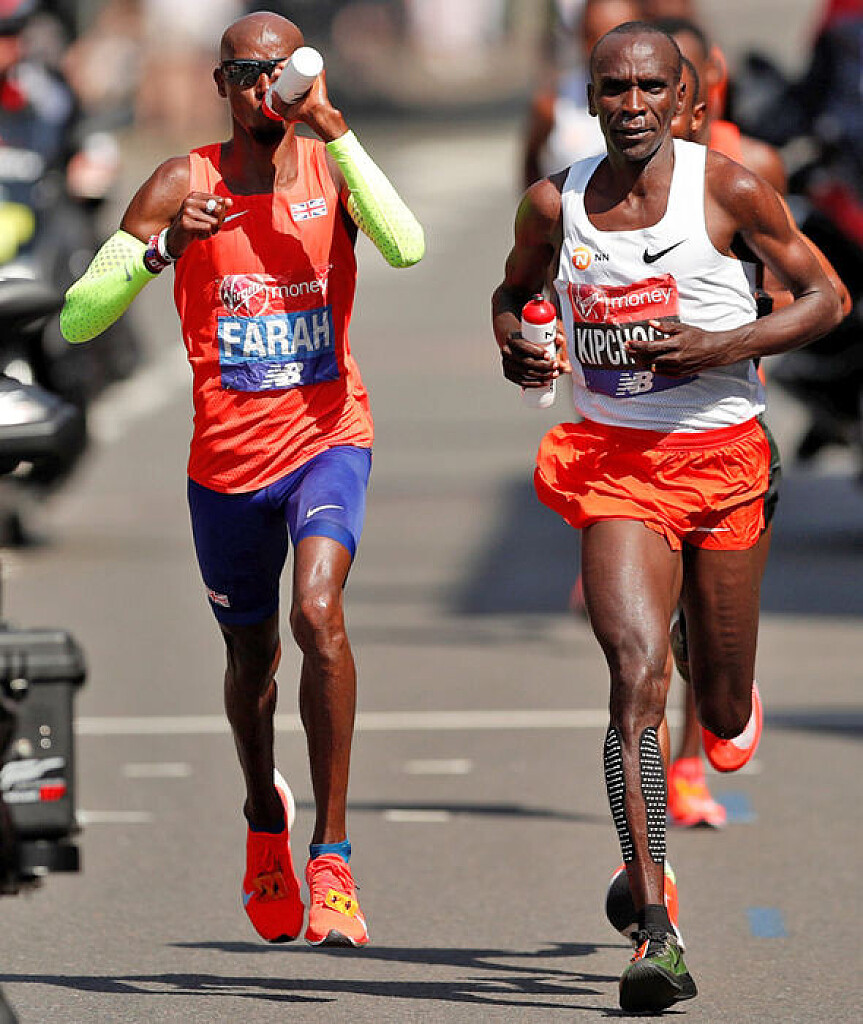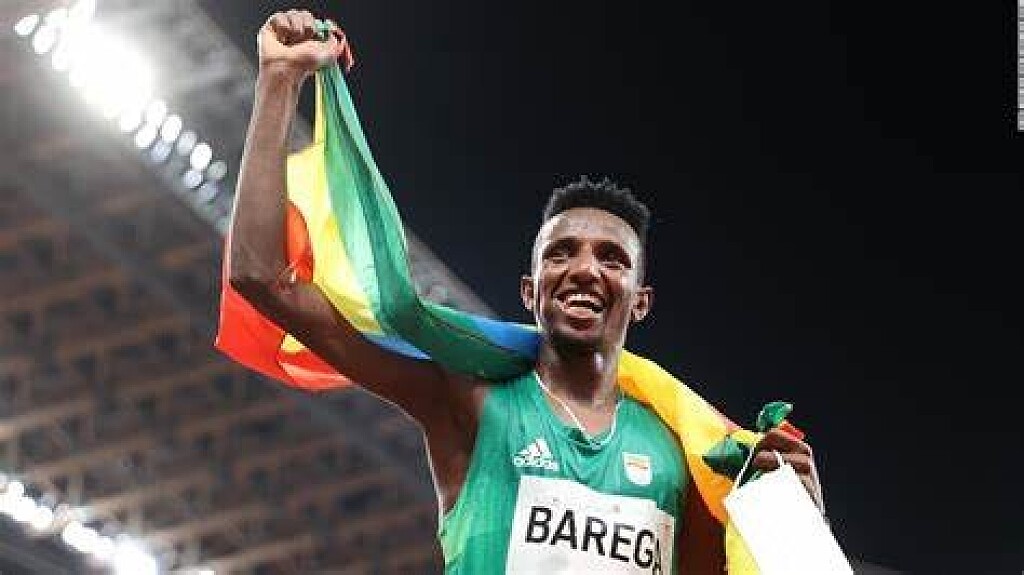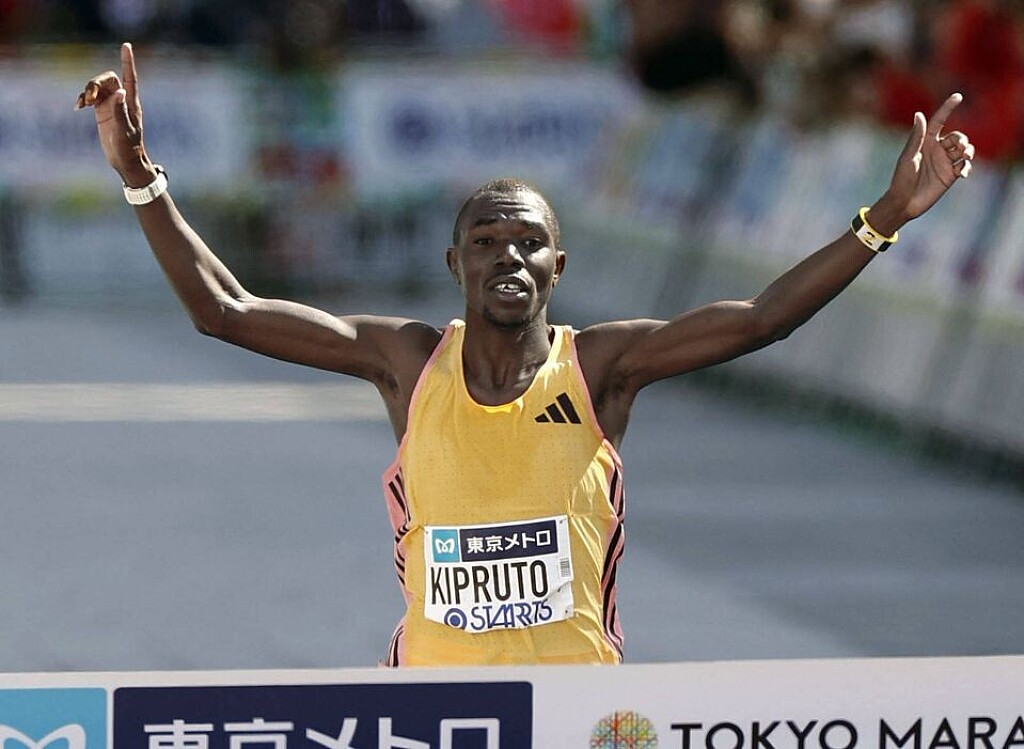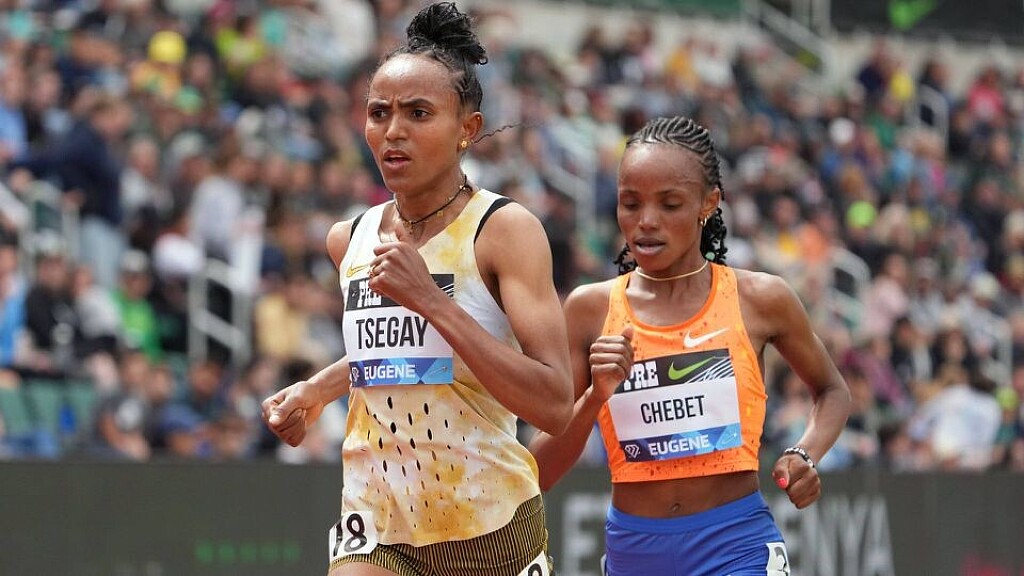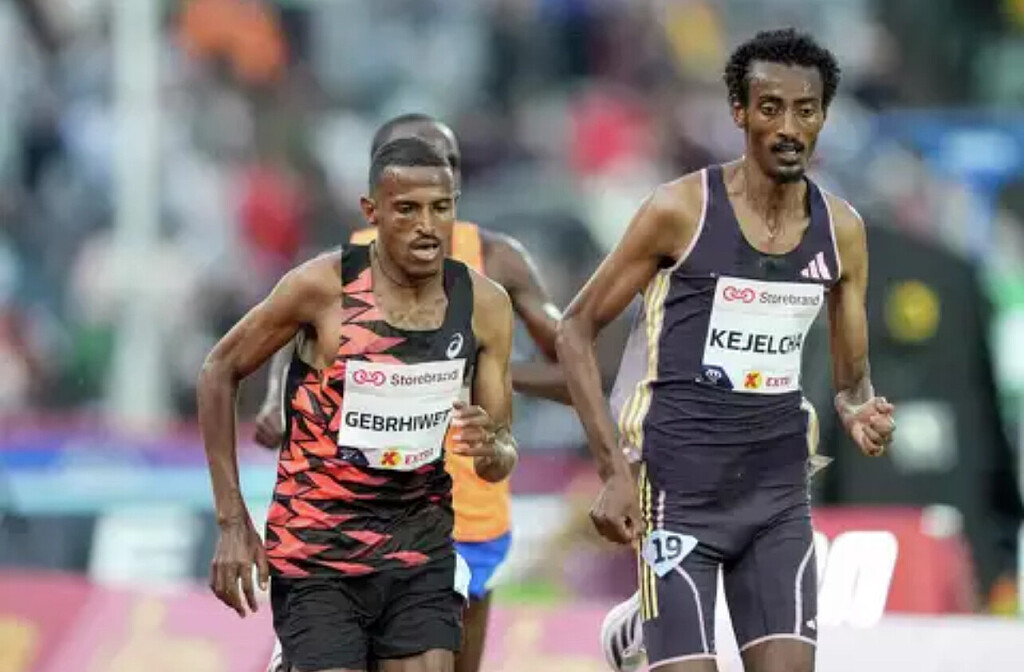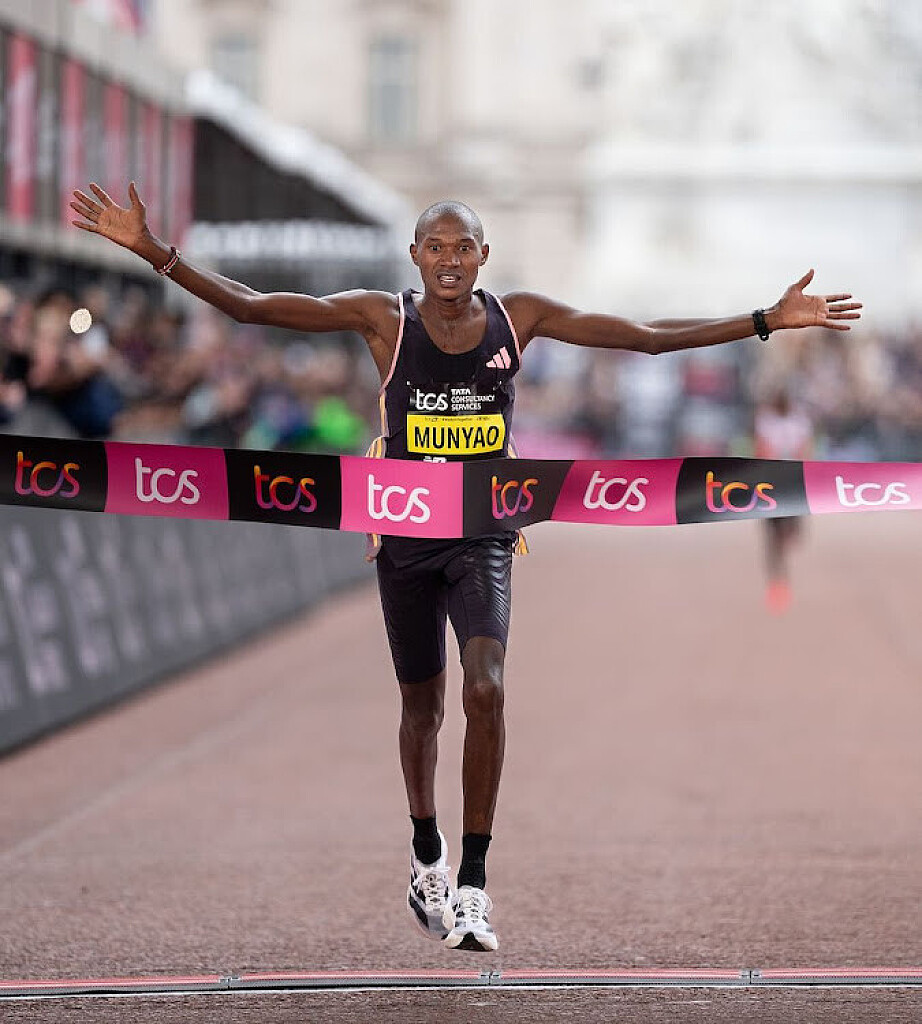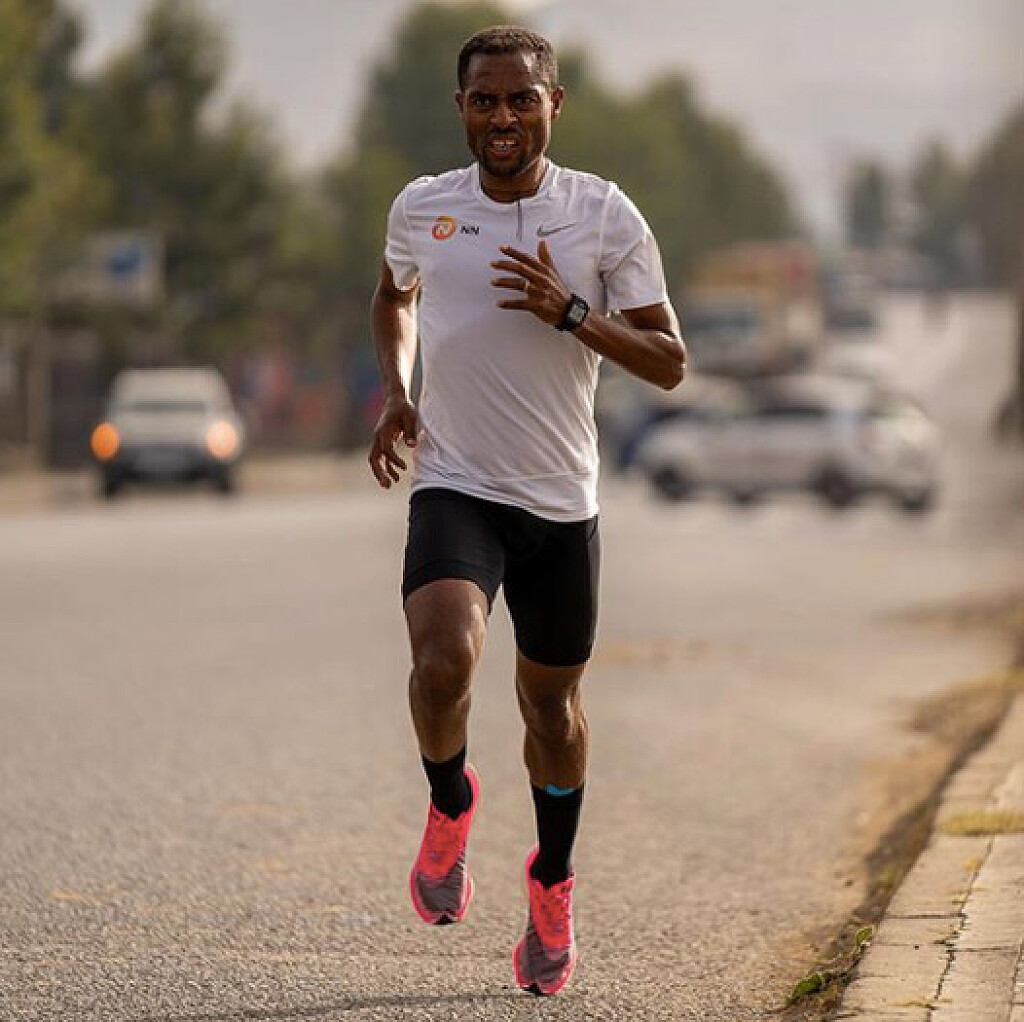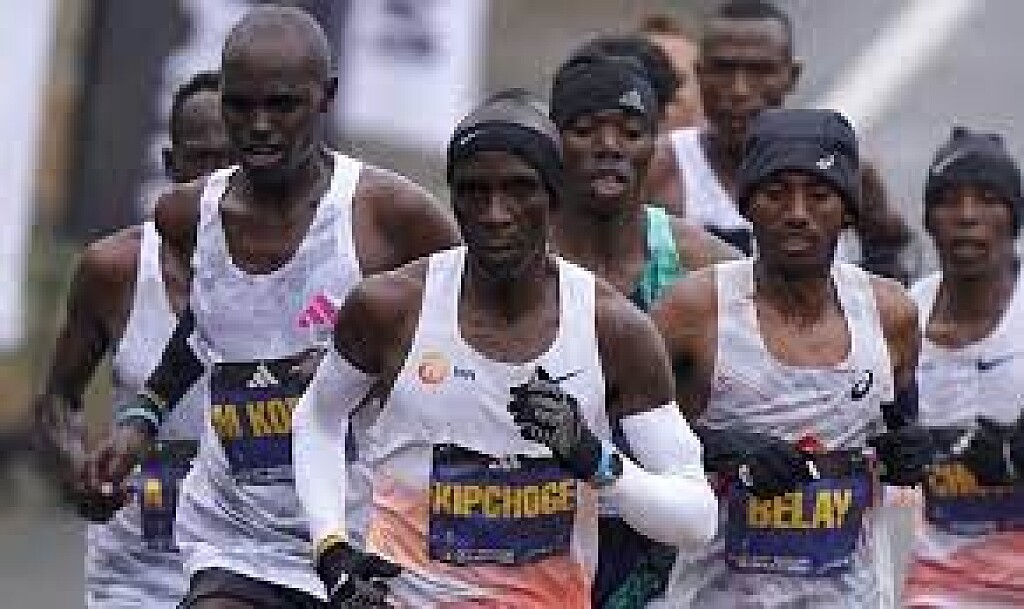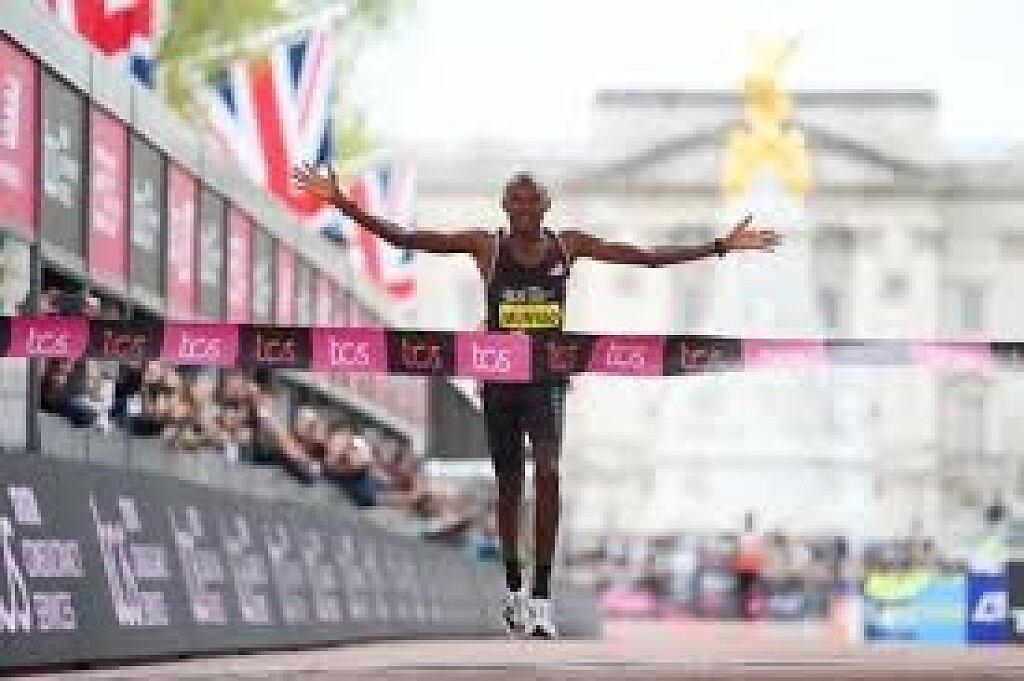Running News Daily
Running News Daily is edited by Bob Anderson. Send your news items to bob@mybestruns.com Advertising opportunities available. Train the Kenyan Way at KATA Kenya and Portugal owned and operated by Bob Anderson. Be sure to catch our movie A Long Run the movie KATA Running Camps and KATA Potato Farms - 31 now open in Kenya! https://kata.ke/
Index to Daily Posts · Sign Up For Updates · Run The World Feed
Articles tagged #Kenenisa Bekele
Today's Running News
When Time Finally Gave Way: Hobbs Kessler’s 4:48.79 and the Night Indoor History Fell
There are records that feel temporary, and then there are records that begin to feel permanent. For nearly nineteen years, Kenenisa Bekele’s 2000m indoor mark belonged to the second category—a time etched into the sport’s mythology, respected, feared, and largely left untouched. On a charged night at the New Balance Indoor Grand Prix 2026, Hobbs Kessler proved that even the most stubborn pieces of history eventually yield to courage, rhythm, and belief.
From the opening laps inside the packed arena, the race carried a different energy. The pace was honest, relentless, and daring, drawing the field into unfamiliar territory. Kessler, calm and composed beyond his 22 years, stayed patient as the laps unwound, shadowed closely by a deep cast of world-class talent. The moment arrived with one lap remaining. As the bell rang, Kessler shifted gears, surging past fellow American Grant Fisher with a move that felt both explosive and inevitable. There was no panic, no dramatic gesture—just precision, power, and an unbreakable line toward the finish.
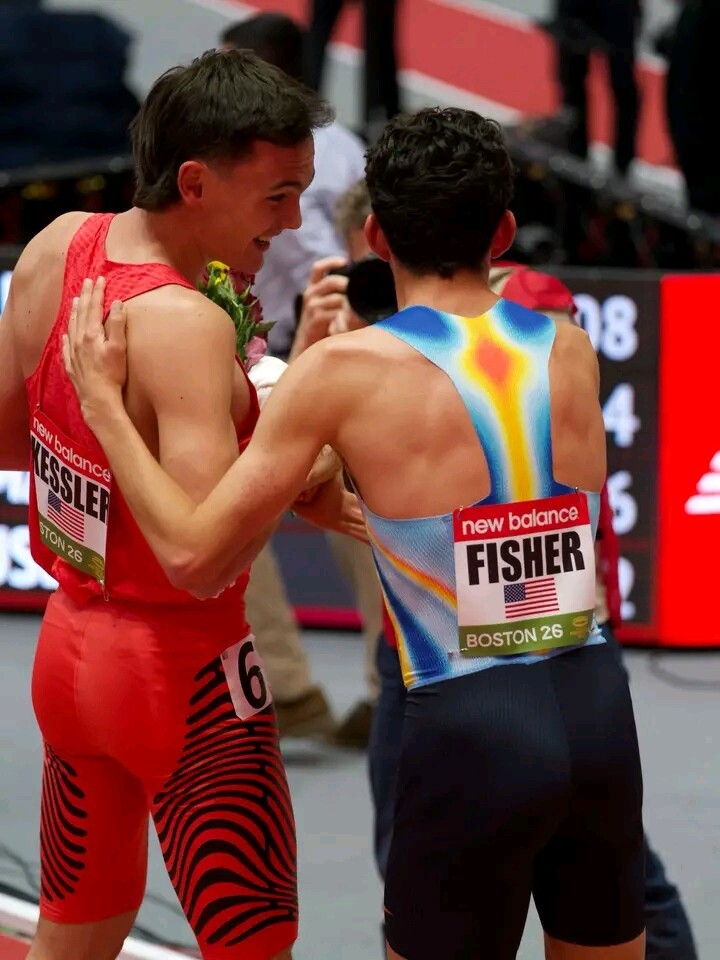
When Kessler crossed the line, the clock delivered the verdict: 4:48.79. Bekele’s long-standing 4:49.99 from 2007 was gone. Not chipped away, not narrowly surpassed—beaten decisively. In the same breath, Kessler claimed the American indoor record as well, eclipsing a mark that had been set just one day earlier by Olympic champion Cole Hocker, a detail that perfectly captured the extraordinary momentum of American middle-distance running.
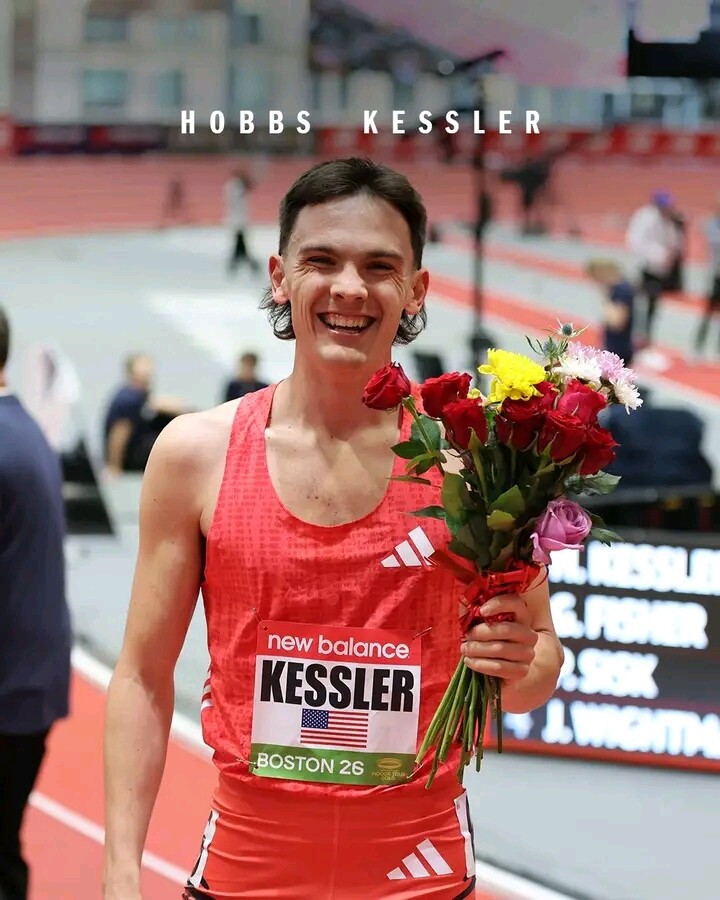
Behind him, Grant Fisher followed in 4:49.48, also inside the old world best, while Belgium’s Pieter Sisk and Great Britain’s Jake Wightman rounded out a race that will be remembered as one of the deepest and fastest in indoor history. Multiple careers were elevated in a single night, but it was Kessler who owned the moment.
The significance of the performance stretches far beyond one race. Kessler’s name now sits above a list populated by giants—Bekele, Haile Gebrselassie, Eamonn Coghlan, Bernard Lagat—athletes who shaped eras and redefined what was possible indoors. To surpass them at just 22 years old is not merely a breakthrough; it is a declaration.
The New Balance Indoor Grand Prix has long been a place where bold athletes chase ambitious ideas. On this night, ambition caught up with history. The record fell, the crowd roared, and time itself seemed to pause in respect.
Some performances win races. Others reshape belief. Hobbs Kessler’s 4:48.79 did both—and in doing so, reminded the world that no record is forever.
by Erick Cheruiyot for My Bestruns.
Login to leave a comment
21st Tata Mumbai Marathon: Abate Deme Surges to Victory in Tactical Men’s Thriller
The 21st edition of the Tata Mumbai Marathon, staged under the title sponsorship of the Tata Group, produced a compelling men’s race shaped by strategy, endurance, and mental resilience. Run over Mumbai’s iconic 42.195 km course — featuring long exposed stretches along Marine Drive and a demanding spiral climb in the closing kilometres — the race unfolded under rising January temperatures and increasing humidity, turning it into as much a test of judgment as raw strength.
A High-Stakes Duel in the Final Kilometres
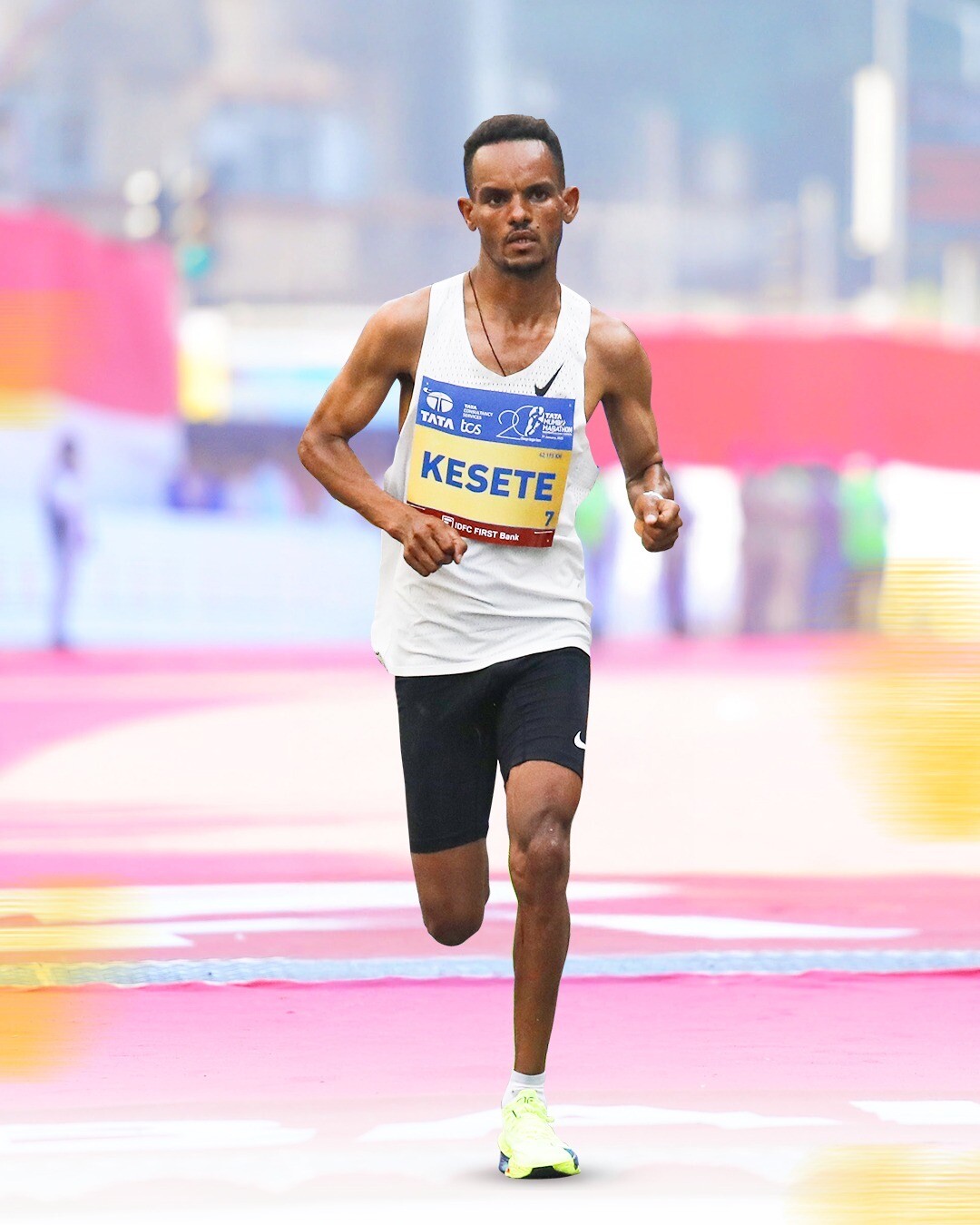
The men’s contest ultimately narrowed to a gripping duel between Ethiopia’s Tadu Abate Deme and Kenya’s Leonard Lang’at, with Eritrea’s Merhawi Kesete Weldemaryam remaining in contention deep into the race. As the decisive kilometres approached, the tension was unmistakable. “Neither of them giving any quarter. They’re both absolutely exhausted here,” commentators observed, capturing the mental and physical toll exacted by the Mumbai course.
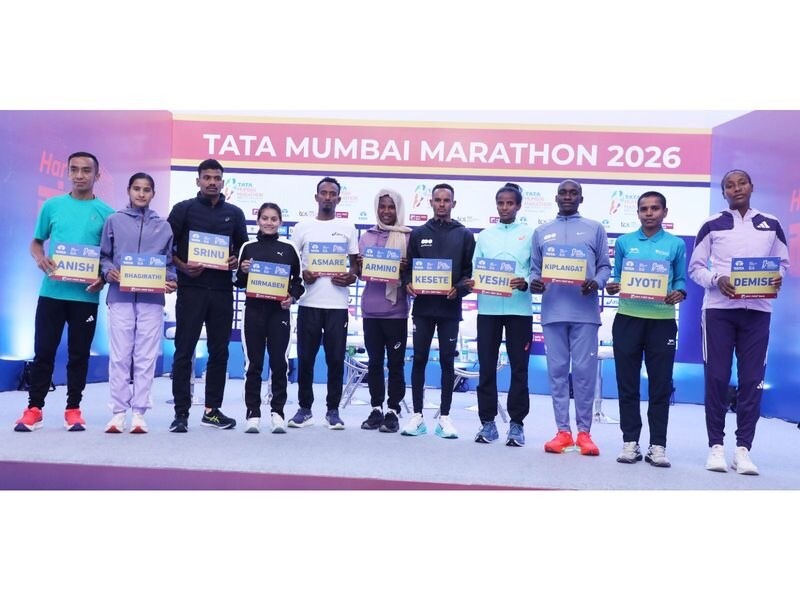
Abate, 28, arrived with an impressive résumé. His personal best of 2:05:55, set three years earlier in Tokyo, highlights his ability to combine speed with endurance. A frequent and consistent racer, Abate completed three marathons in 2025 alone — including one just six weeks before Mumbai — demonstrating exceptional recovery and conditioning. Inspired by Kenenisa Bekele, he blends track-like efficiency with road-racing instincts, conserving energy and striking precisely when it matters most.
Lang’at brought his own credentials to the battle. A seasoned marathoner known for strong finishes and tactical awareness, the Kenyan owns personal bests in the 2:08–2:09 range and has built a reputation as a relentless competitor in tightly contested races. As the leaders broke clear late, commentators noted, “It’s a mental battle between these two now, as much as a physical battle… Abate is moving smoothly. He can relax a little now; he’s got the race won.”
Weldemaryam, representing Eritrea, showcased steady progression on the international stage. Though unable to match Abate’s final acceleration, his endurance kept him among the leaders until the closing kilometres. “He’s been a good runner… getting better and better like a good wine,” the commentary reflected, underscoring his continued development.
Tactical Racing Takes Center Stage
By 40 km, the leaders had passed through 2:03:08, a clear signal that the race had shifted from time-chasing to a tactical contest of patience and resolve. Abate’s decisive move came after the final left-hand turn away from Marine Drive, where he surged with authority and opened a gap Lang’at could not close despite a determined pursuit.
The Mumbai course’s exposed roads, coastal winds, and late-race climb demanded precise energy management. Abate executed his race plan flawlessly — staying controlled through the middle stages, reading his rivals, and accelerating only when fatigue began to show in the field.
Lang’at, while ultimately second, demonstrated grit and composure throughout, while Weldemaryam and the chasing pack added depth to a men’s race in which every kilometre required concentration and discipline.
A Race Defined by Intelligence and Strength
The men’s race at the 21st Tata Mumbai Marathon will be remembered as a high-calibre strategic battle — one where Ethiopian excellence once again prevailed, but Kenyan and Eritrean challengers ensured a gripping international contest. Abate Deme’s well-timed surge earned him victory in 2:09:55, with Lang’at close behind and Weldemaryam rounding out the podium.
Once again, Mumbai proved that it rewards tactical intelligence, mental fortitude, and resilience as much as speed, reinforcing its reputation as one of Asia’s most demanding and strategically complex marathons.
Men’s International Elite Top 6 – 2026 Tata Mumbai Marathon
1. Tadu Abate Deme (ETH) – 2:09:55
2. Leonard Lang’at (KEN) – 2:10:10
3. Merhawi Kesete Weldemaryam (ERI) – 2:10:22
4. Gada Gemsisa Gudeta (ETH) – 2:10:49
5. Victor Kiplangat (UGA) – 2:11:02
6. Benjamin Kigen (KEN) – 2:15:28
by Robert Kibet for My Best Runs
Login to leave a comment
Tata Mumbai Marathon
Distance running epitomizes the power of one’s dreams and the awareness of one’s abilities to realize those dreams. Unlike other competitive sports, it is an intensely personal experience. The Tata Mumbai Marathon is One of the World's Leading Marathons. The event boasts of fundraising platform which is managed by United Way Mumbai, the official philanthropy partner of the event. Over...
more...Benson Kipruto Wins a Thrilling 2025 New York City Marathon as Kipchoge and Bekele Fade
The streets of New York witnessed one of the most dramatic finishes in recent marathon history as Benson Kipruto of Kenya edged compatriot Alexander Mutiso by fractions of a second to win the 2025 TCS New York City Marathon. Both men were clocked at 2:08:09, with Kipruto leaning ahead in the final meters of Central Park to claim the title.
The victory marked a triumphant return to the top for Kipruto, who has previously won the Boston and Chicago Marathons. On a day when tactics mattered as much as fitness, he delivered a perfectly timed surge to secure the crown.
Alexander Mutiso finished a close second in 2:08:09, just 0.16 seconds behind, while 2021 New York champion Albert Korir completed the Kenyan sweep in third with a time of 2:08:57. Great Britain’s Patrick Dever ran a superb debut marathon to finish fourth in 2:08:58, and Swiss athlete Matthias Kyburz crossed the line fifth in 2:09:55.
All eyes were on Eliud Kipchoge, the two-time Olympic champion and marathon world record holder, making his long-awaited debut in New York. The legendary Kenyan started conservatively and remained in the lead pack through halfway, but the relentless climbs and bridges of the course eventually took their toll. Kipchoge finished 17th in 2:14:36, smiling as he crossed the line, suggesting this could be his final appearance at a World Marathon Major.
Ethiopian great Kenenisa Bekele also started among the favorites but faded after the 30-kilometer mark and did not finish the race. His withdrawal, along with Kipchoge’s struggles, highlighted the unique difficulty of New York’s course—one that tests strategy and strength more than sheer speed.
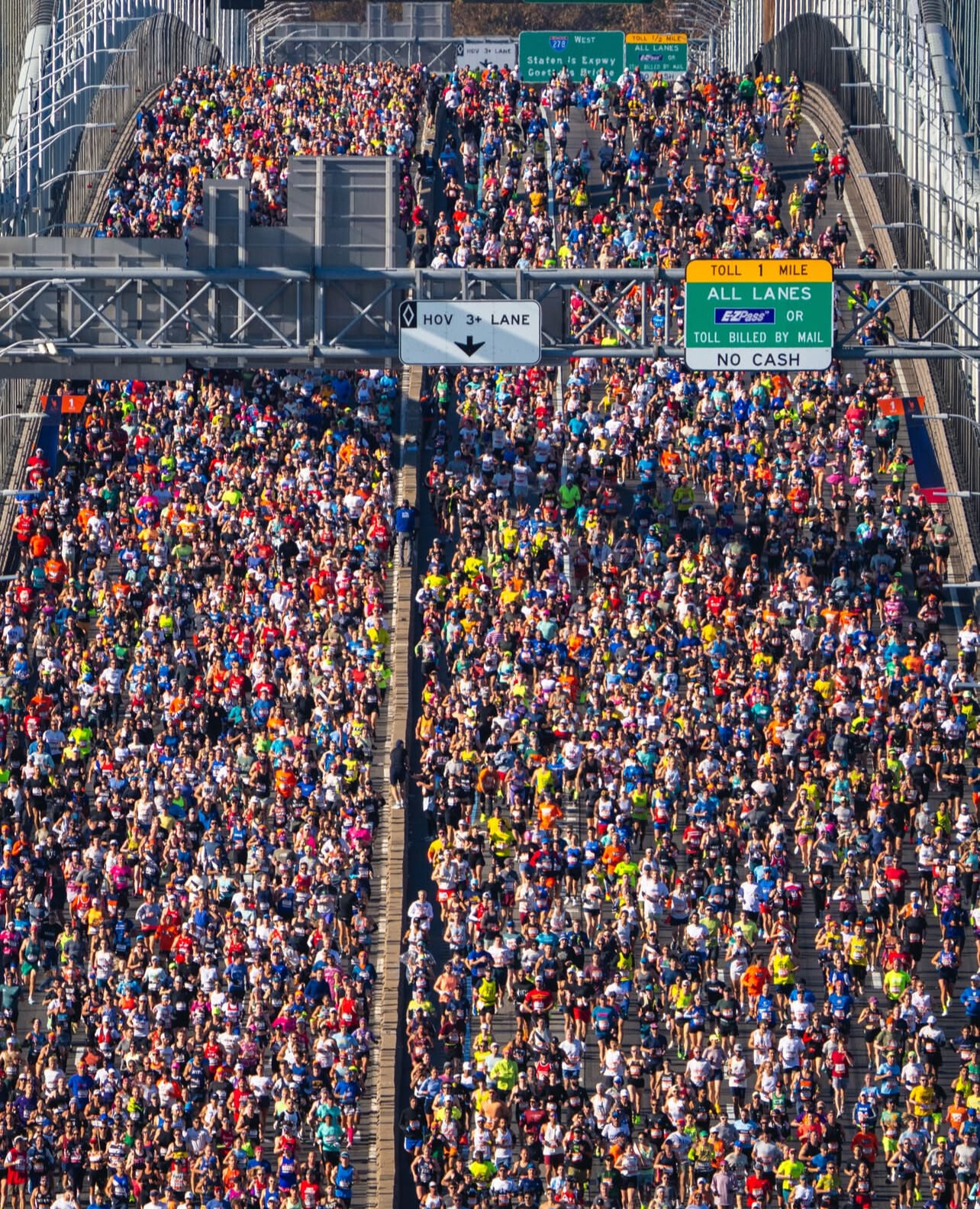
Despite the absence of a record-breaking time, the 2025 edition of the TCS New York City Marathon delivered unforgettable drama. The Kenyan trio’s podium sweep reaffirmed the country’s dominance in distance running, while thousands of runners from across the globe once again turned the streets of the five boroughs into a festival of endurance and inspiration.
Top 10 Men’s Results – 2025 TCS New York City Marathon:
1. Benson Kipruto (Kenya) – 2:08:09
2. Alexander Mutiso (Kenya) – 2:08:09
3. Albert Korir (Kenya) – 2:08:57
4. Patrick Dever (Great Britain) – 2:08:58
5. Matthias Kyburz (Switzerland) – 2:09:55
6. Joel Reichow (United States) – 2:09:56
7. Charles Hicks (United States) – 2:09:59
8. Sondre Moen (Norway) – 2:10:15
9. Tsegay Weldlibanos (Eritrea) – 2:10:36
10. Joe Klecker (United States) – 2:10:37
Eliud Kipchoge finished 17th in 2:14:36.
Kenenisa Bekele did not finish (DNF).
by Boris Baron
Login to leave a comment
Kenenisa Bekele Joins 2025 New York City Marathon Elite Field
Ethiopian legend Kenenisa Bekele, the third-fastest marathoner in history with a 2:01:41 personal best from Berlin 2019, has officially been added to the 2025 TCS New York City Marathon elite men’s field — setting up yet another thrilling clash with Eliud Kipchoge.
Bekele, now 43, withdrew from April’s London Marathon due to recurring injuries that disrupted his buildup. His most recent marathon finish came at the Paris Olympic Marathon, where he placed 39th in 2:12:24. Despite the setback, Bekele’s experience and resilience continue to make him one of the sport’s most compelling figures.
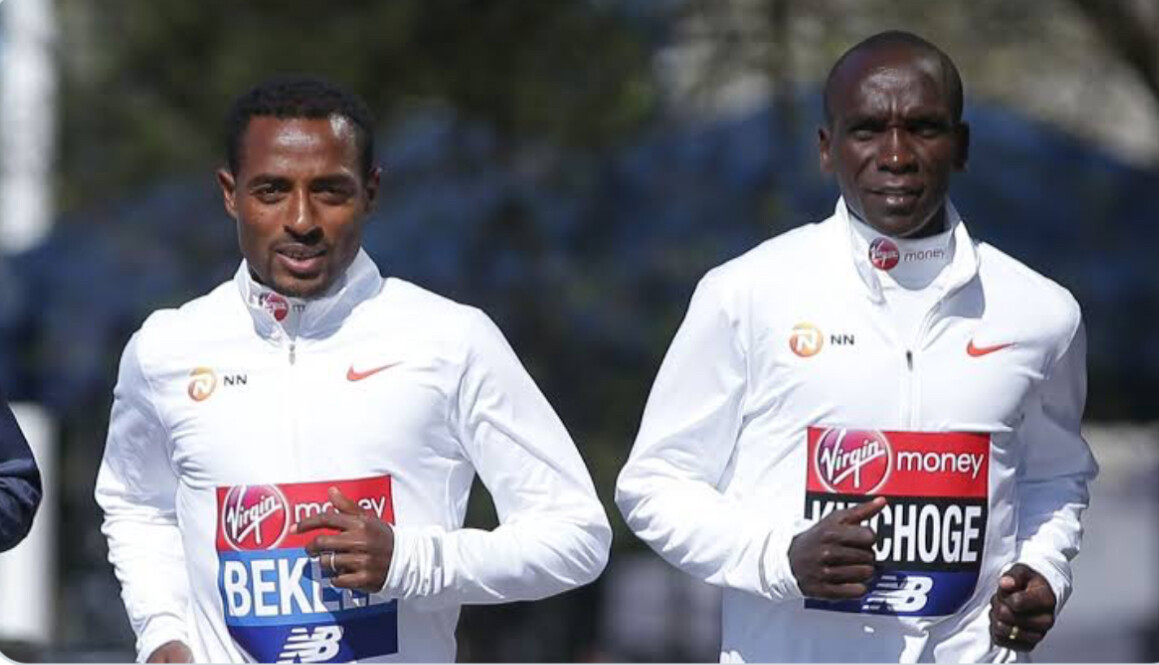
This year’s New York City Marathon will mark Bekele’s sixth career race against Kipchoge, the reigning Olympic champion and former world record holder. Bekele’s only “victory” in that rivalry came at the Paris Olympics, when Kipchoge dropped out mid-race.
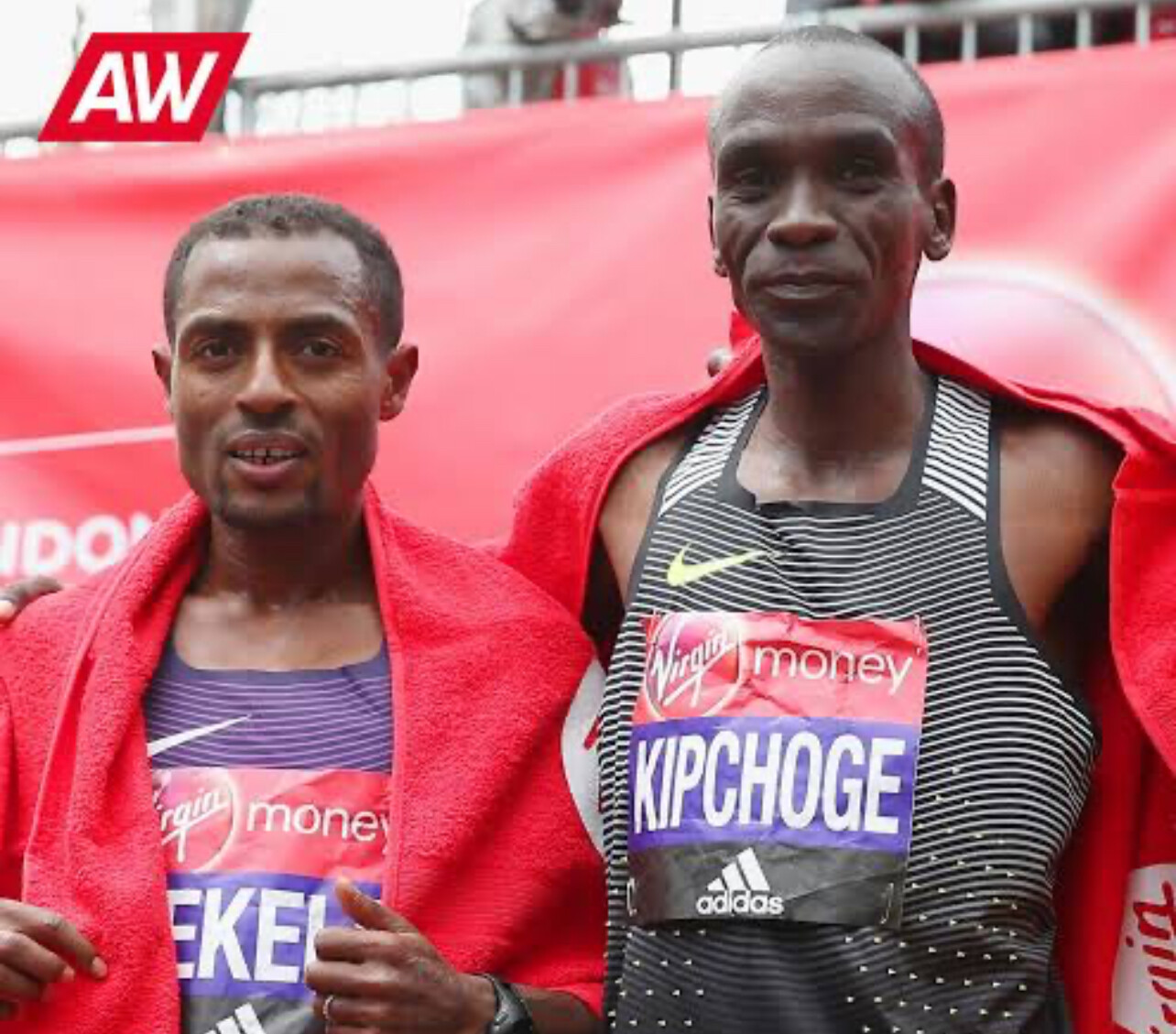
Bekele’s addition brings new intrigue to a field already rich in talent and storylines. While New York’s undulating course rarely produces record times, it remains one of the most prestigious and unpredictable races on the global marathon calendar — a true test of strategy and mental strength.
Notably absent from the 2025 lineup is Evans Chebet, the 2022 NYC Marathon champion and last year’s runner-up. Chebet has withdrawn from this year’s race after failing to finish at the Boston Marathon in April.
As the countdown begins, all eyes turn to Central Park, where two of the greatest marathoners of all time — Bekele and Kipchoge — are set to renew their rivalry on one of the world’s toughest stages.
Will Bekele’s comeback write a new chapter in marathon history, or will Kipchoge’s consistency once again define the day? On November 2, New York will have its answer.
by Boris Baron
Login to leave a comment
Chicago’s Marathon Legacy — From Kiptum’s Perfection to Kiplimo’s Power
Two years apart, on the same streets of Chicago, two East African greats delivered marathon performances that will be remembered for generations.
In 2023, Kenya’s Kelvin Kiptum stunned the world with his 2:00:35 world record, a run that redefined endurance and perfection.
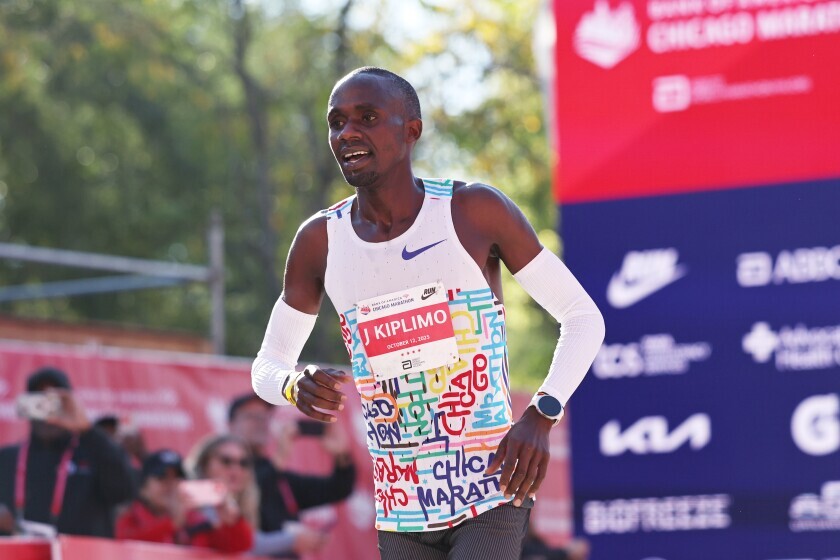
In 2025, Uganda’s Jacob Kiplimo, already the half marathon world record holder, returned to Chicago for his second career marathon and clocked 2:02:23 — his personal best and the seventh-fastest marathon ever run.
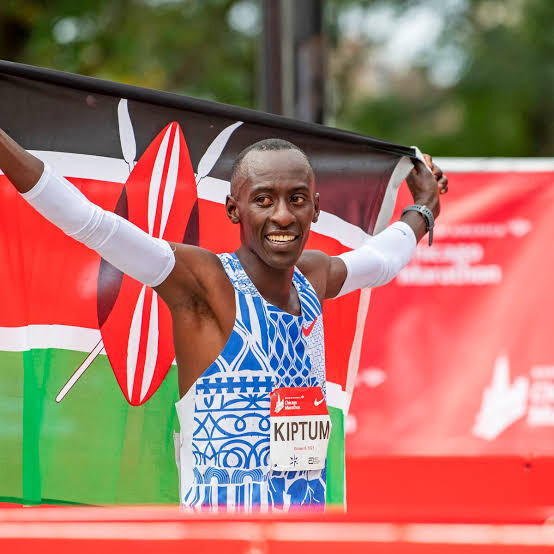
Split by Split — The Chicago Comparison
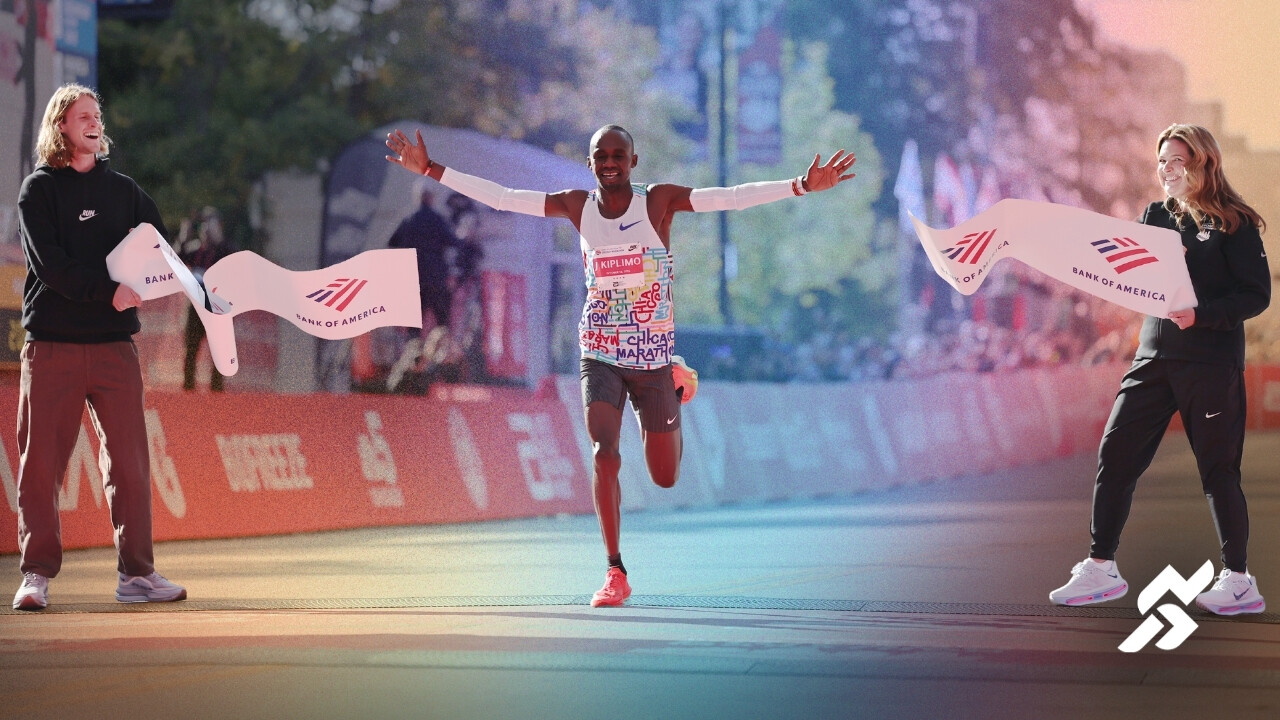
|
Distance |
Kiptum (2023) |
Kiplimo (2025) |
Difference |
|
5 km |
14:26 |
13:58 |
−28 sec |
|
10 km |
28:42 |
28:25 |
−17 sec |
|
15 km |
43:09 |
42:40 |
−29 sec |
|
20 km |
57:39 |
57:05 |
−34 sec |
|
Half |
1:00:48 |
1:00:16 |
−32 sec |
|
25 km |
1:12:04 |
1:11:12 |
−52 sec |
|
30 km |
1:26:31 |
1:25:31 |
−60 sec |
|
35 km |
1:40:22 |
1:39:52 |
−30 sec |
|
40 km |
1:54:23 |
1:55:10 |
+47 sec |
|
Finish |
2:00:35 (World Record) |
2:02:23 |
+1:48 |
How They Ran
Kelvin Kiptum (2023):
Kiptum ran one of the most perfectly executed marathons in history. After a steady opening half in 1:00:48, he unleashed a ferocious negative split of 59:47, the fastest second half ever recorded. His closing 10K in 27:52 sealed a new world record and forever changed how we think about the marathon.
Jacob Kiplimo (2025):
After finishing second in his marathon debut at the 2025 London Marathon, Kiplimo arrived in Chicago more prepared — and fearless. From the start, he attacked the course, opening in 13:58 for 5K, the fastest ever in Chicago. Through 30K, he was over a minute ahead of Kiptum’s world-record pace. Although he slowed slightly in the final 10K, his 2:02:23 finish was the fastest ever by an Ugandan and the 7th-fastest marathon in history.
âš–ï¸ The Contrast
• Strategy: Kiptum’s patience vs. Kiplimo’s aggression.
• Halfway: Kiplimo led by 32 seconds at 21.1K.
• Closing Power: Kiptum’s final 7K (13:51 split) remains unmatched.
• Outcome: Kiplimo’s performance wasn’t a world record, but it confirmed his place among the greatest marathoners of his generation.
Legacy and Continuation
Tragically, Kelvin Kiptum was killed in a car accident in Kenya in February 2024, just months after his world-record run. His passing shocked the running world and ended the career of a man many believed would one day break two hours on a record-eligible course.
When Jacob Kiplimo returned to Chicago in 2025, it felt like a continuation of that story — a symbolic passing of the torch. Running on the same course where Kiptum made history, Kiplimo carried forward the East African legacy of excellence, courage, and speed.
Final Thoughts
Kiptum’s 2:00:35 remains the marathon’s gold standard — calm, controlled, and utterly brilliant.
Kiplimo’s 2:02:23 showed fearless front-running and a promise of what’s still to come.
Two men. Two races. One city.
Chicago — where the modern marathon’s greatest chapters continue to be written.
- - -
The 9 Fastest Men’s Marathons of All Time (as of Oct 13, 2025)
|
Rank |
Name |
Time |
Venue |
|
1 |
Kelvin Kiptum (KEN) |
2:00:35 |
Chicago 2023 |
|
2 |
Eliud Kipchoge (KEN) |
2:01:09 |
Berlin 2022 |
|
3 |
Kenenisa Bekele (ETH) |
2:01:41 |
Berlin 2019 |
|
4 |
Sisay Lemma (ETH) |
2:01:48 |
Valencia 2023 |
|
5 |
Sebastian Sawe (KEN) |
2:02:05 |
Valencia 2024 |
|
6 |
Benson Kipruto (KEN) |
2:02:16 |
Tokyo 2024 |
by Bob Anderson
Login to leave a comment
Ethiopian Asimarech Naga to Race TCS Toronto Waterfront Marathon
Two years ago, Asimarech Naga was a promising Ethiopian steeplechaser. Now, at 26, she’s set to contend for the $25,000 CDN first-place prize at the 2025 TCS Toronto Waterfront Marathon on October 19.
“If it is God’s will, I want to win as I am preparing well for it,” she said. “I know the Toronto Waterfront Marathon is the biggest marathon in Canada and the course is flat. I am so excited to be there for the first time and do something great.”
From Track to the Roads
Nagging injuries from track spikes pushed Naga to pivot in 2023, joining the legendary coach Haji Adillo’s marathon training group. The move quickly paid off: she won the Dublin Marathon in 2:24:13, setting a new course record, and followed up with a 2:24:21 runner-up finish at the Wuxi Marathon in China earlier this year.
Now, she heads to Toronto—a World Athletics Elite Label race—ready to test herself again. “I have so many strong athletes [to train with], and the coaching program is great. It is really helping me,” she said.
Her inspiration dates back to elementary school, crediting a supportive sport teacher and citing Olympic legend Derartu Tulu—the first Black African woman to win Olympic gold (1992 Barcelona, 10,000m)—as her role model.
Coach Haji’s Confidence
Accompanying her to Toronto will be Haji Adillo himself. Known for guiding Olympic and World champions, Haji believes Naga is ready for a breakthrough:
“If everything goes as planned, and with a good pacer, she will run 2:22 or 2:23.”
His training group has featured icons like Tirunesh Dibaba, Kenenisa Bekele, and Lelisa Desisa, and his most cherished coaching memory remains Mare Dibaba’s 2017 World Championships win—Ethiopia’s first women’s marathon world title.
Haji’s Own Path
Before coaching, Haji was a 2:12 marathoner and a classmate of Haile Gebrselassie. Health issues ended his racing career, but his athletes have since won countless medals:
“Too many to count… maybe over a thousand,” he said with a smile.
Rising Star in the Making?
With her sharp progression, proven ability to win big races, and Haji’s belief in her potential, Asimarech Naga arrives in Toronto as one of the most exciting marathon talents to watch.
Could she be the next Ethiopian star to break through on the world stage?
by Paul Gains
Login to leave a comment
Mulugeta Uma Returns to Defend TCS Toronto Waterfront Marathon Crown
Ethiopia’s Mulugeta Uma, the 2024 TCS Toronto Waterfront Marathon champion, has confirmed he will return to Canada’s premier road race on October 19 to defend his title. The 27-year-old says his focus is clear:
“My aim is to run a fast time but if I am unable to run a fast time I must win the race.”
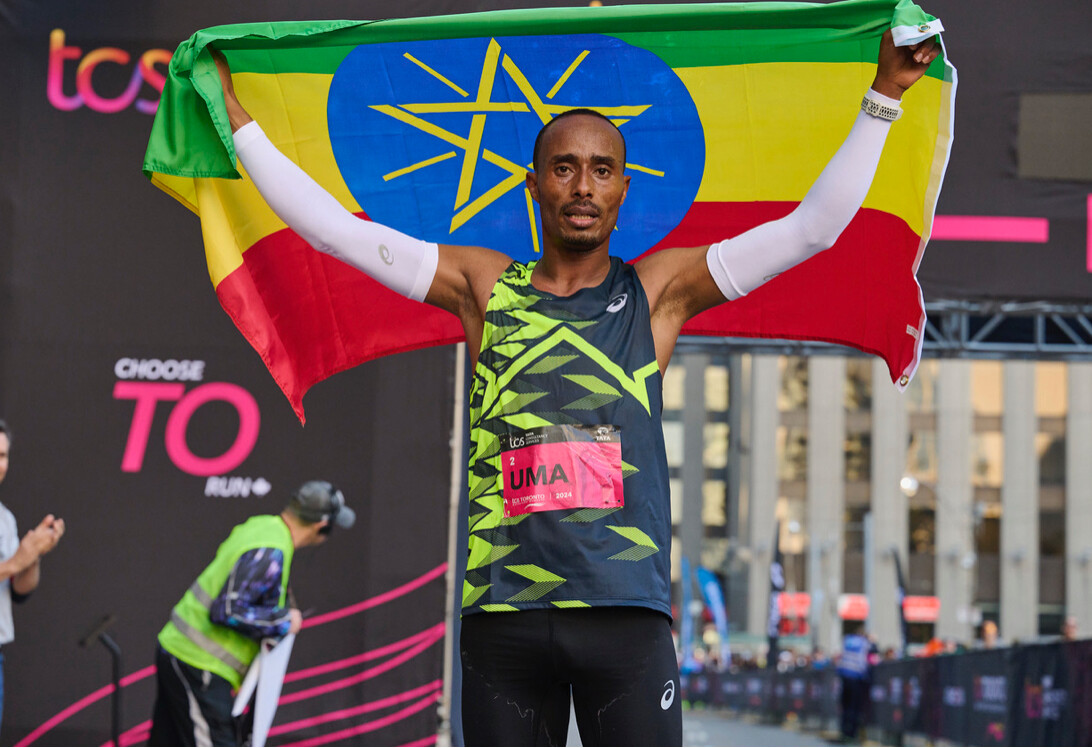
Podium Rematch
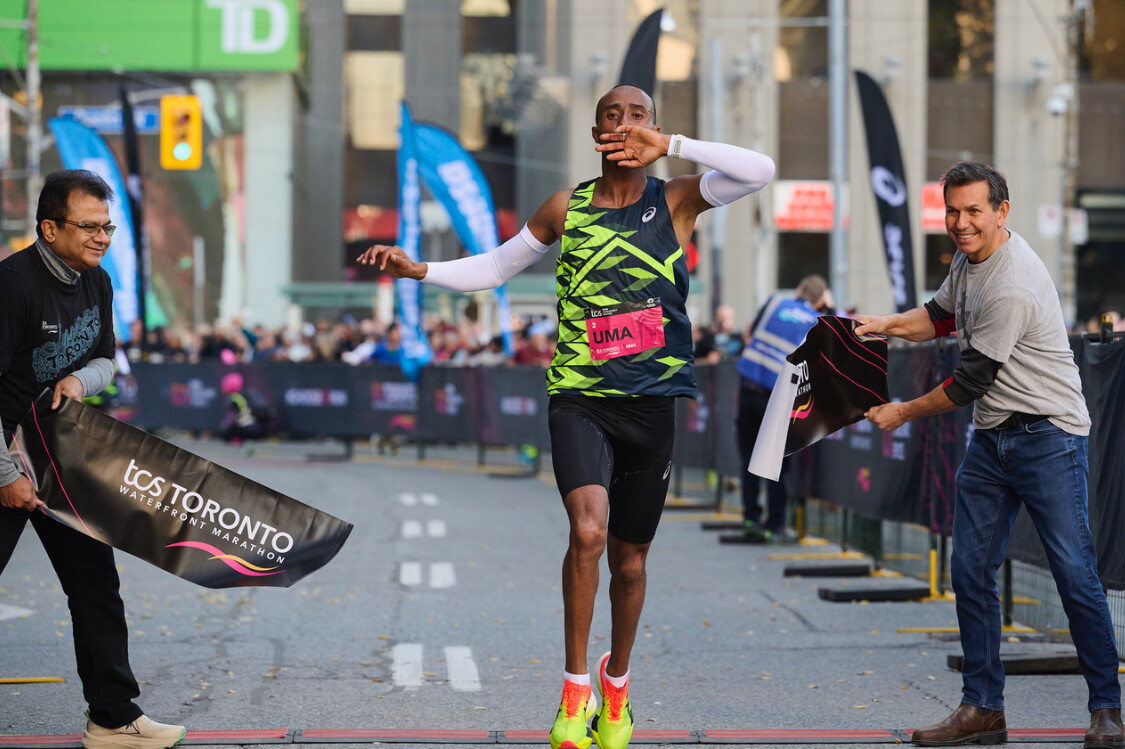
Uma’s addition to the field sets up an exciting reunion with the two men who joined him on last year’s podium. Kenya’s Dominic Ngeno, who finished second in 2024, and Noah Kipkemboi, who claimed third, have already been confirmed for this World Athletics Elite Label race.
Though Uma won Toronto last year in 2:07:16, he has proven he can run much faster. His personal best of 2:05:33 came at the 2024 Paris Marathon, and he clocked 2:05:46 for fifth place earlier this year at the prestigious Tokyo Marathon, a World Marathon Major.
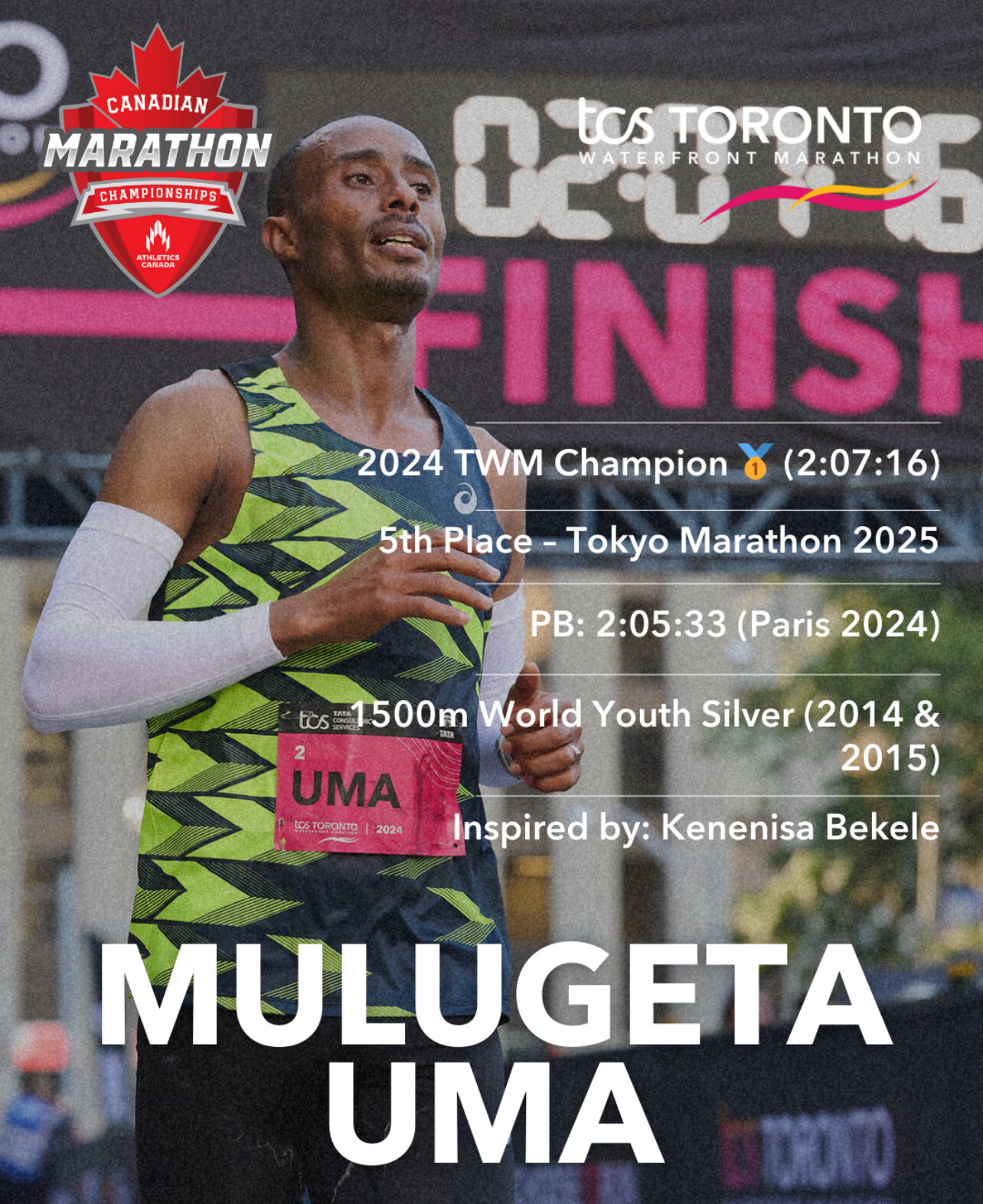
Remembering Toronto 2024
Uma recalls how last year’s Toronto victory unfolded dramatically.
“After halfway, no one was willing to lead but the Kenyan athlete (Ngeno) had a big surge and disappeared from our sight,” he remembers.
“We decided to leave him and thought we were going for second place. After a while I decided to try my best to catch him and, finally, I caught him and managed to win the race.”
His win earned him $20,000 CAD—a payday that has since risen to $25,000 for the 2025 edition. Beyond the prize money, Uma says he enjoyed his first visit to Canada’s largest city.
“I enjoyed the course and had an amazing experience in Toronto. I do have friends there and they are the ones who took me sightseeing.”
From Waliso to the World Stage
Born in Waliso, about 100 kilometers southwest of Addis Ababa, Uma grew up in a farming family. Inspired by Ethiopia’s Olympic heroes, he pursued running as a child and quickly made a name for himself in the 1,500m, winning silver at the 2014 Olympic Youth Games and the 2015 IAAF World Youth Championships.
But his career was derailed when he ruptured his Achilles tendon—an injury he attributes to racing in spikes. It forced him into a seven-year hiatus.
His return to the sport was fueled by watching his hero, Kenenisa Bekele, transition to the roads.
“Kenenisa was the athlete who inspired me. I was eager to achieve what he did on the track. Annoyingly, my injury prevented me from the track racing I loved, but still my role model showed me I could run sub-2:02. I am working hard to run a fast time like him.”
Bekele, a three-time Olympic champion, famously ran 2:01:41 in Berlin in 2019—just two seconds shy of the then world record.
Family and Future Goals
Uma is married to Bone Chuluka, who represented Ethiopia at two World Cross Country Championships, winning medals in the mixed relay event. The couple, who currently have no children, train together as they pursue their athletic goals.
Looking ahead to October, Uma has his eyes not just on defending his crown but also on history. The course record in Toronto remains 2:05:00, set in 2019 by Kenya’s Philemon Rono.
Asked if he might challenge that mark, his response was simple:
“Yes, why not?”
Few would doubt his ability to deliver.
by Paul Gains
Login to leave a comment
TCS Toronto Waterfront Marathon
The Scotiabank Toronto Waterfront Marathon, Half-Marathon & 5k Run / Walk is organized by Canada Running Series Inc., organizers of the Canada Running Series, "A selection of Canada's best runs!" Canada Running Series annually organizes eight events in Montreal, Toronto and Vancouver that vary in distance from the 5k to the marathon. The Scotiabank Toronto Waterfront Marathon and Half-Marathon are...
more...Edwin Soi Going After the World Record at the 5th Annual KATA Double Road Race in Thika Kenya
Over 130 KATA athletes will compete alongside many other runners in a field expected to be the deepest yet, all chasing glory and a share of 100,000 KES in prize money.
When the 5th Annual KATA Double Road Race returns to Thika on September 20, it will not be just another date on the calendar. It will be a celebration of endurance, strategy, and Kenyan running tradition. And at the heart of it all will be Edwin Soi, the Olympic bronze medalist whose longevity and tactical brilliance have made him one of Kenya’s most respected distance runners.
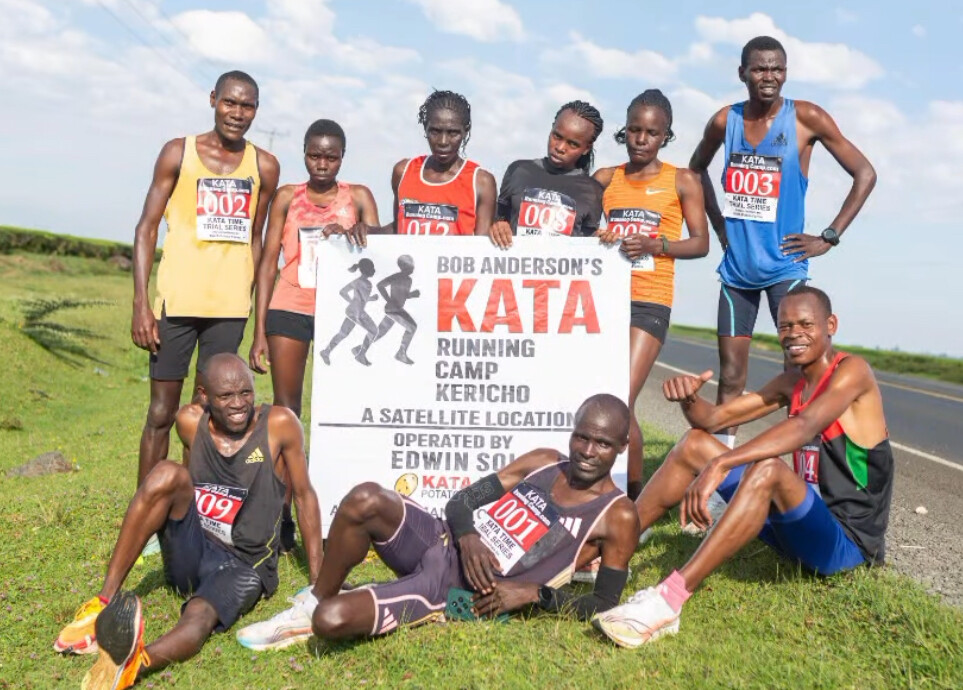
This year’s event also offers a prize purse of 100,000 KES, making the stakes even higher.
“Over 130 KATA athletes are expected to be on the line, joined by many more competitors from across the country and beyond,” says KATA founder Bob Anderson. “I am so proud of our KATA family and what we are building. This is just the beginning—athletics fueled by hard work and growing KATA potatoes.”
The Challenge of the Double
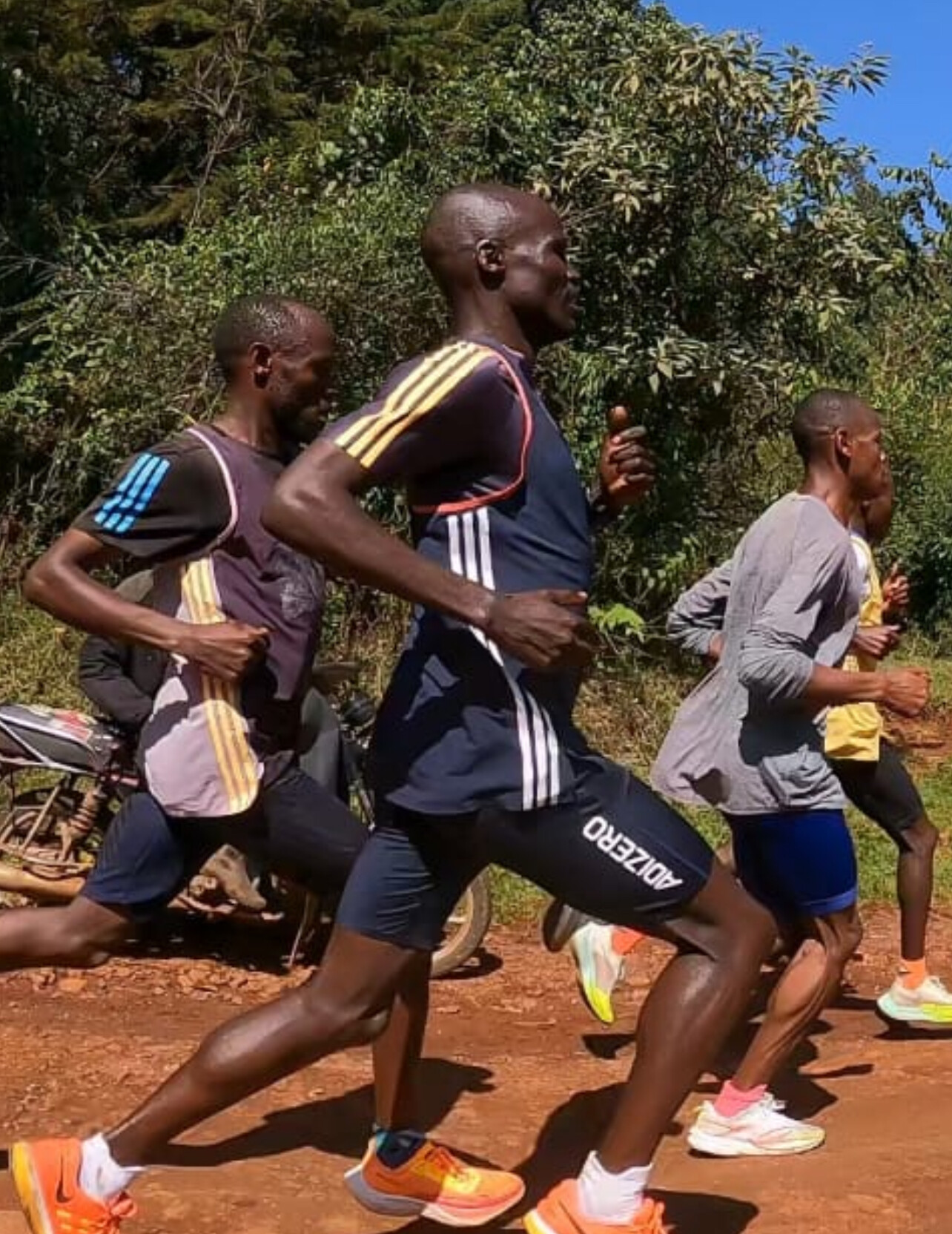
The Double is unlike any other race. Athletes first run a 10K, then take a halftime break where food and drink are provided as they prepare for the second leg. They return to the start line for a 5K. This is a two-leg event, and the times from each leg are added together for the final score.
For Soi—still formidable with career bests of 27:14 (10,000m) and 12:51 (5,000m)—the race is as much about mental strength as physical preparation.
“While others might wonder if they can even start the second race, my mind is already on pacing, form, and tactics,” Soi says. “Years of hard training and the right mental approach make a world record achievable.”
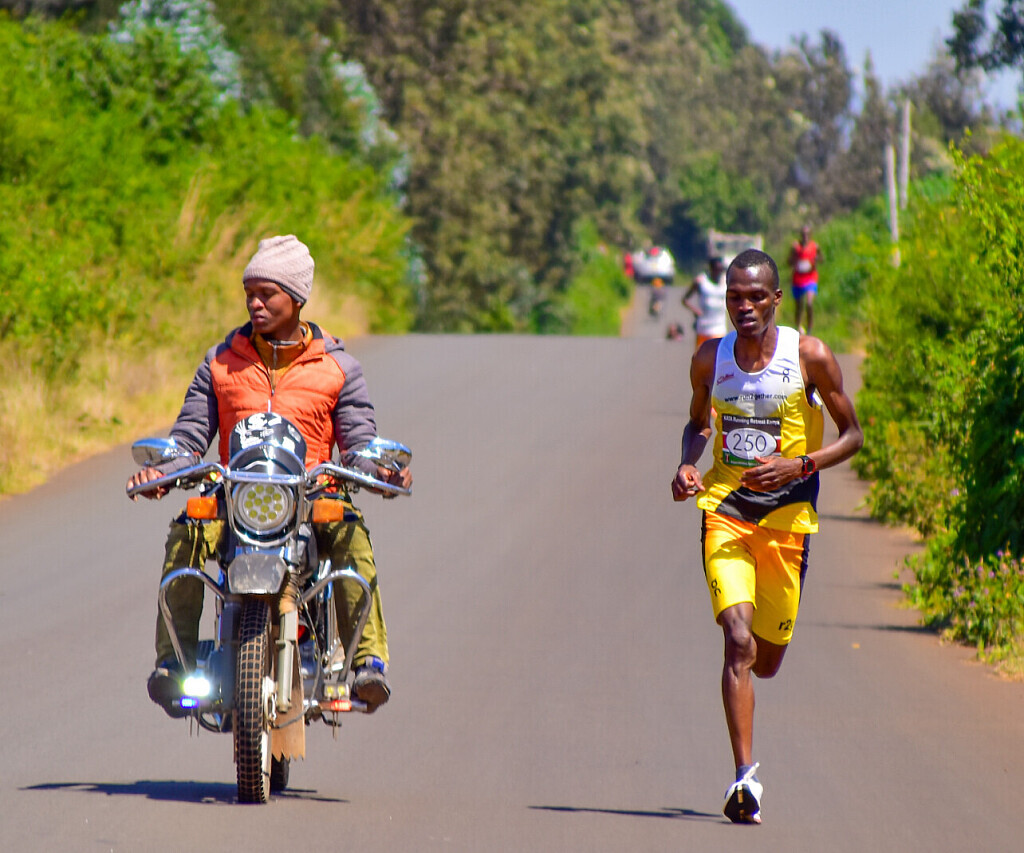
A Visionary Race with Kenyan Roots
The Double Road Race was created by Bob Anderson, founder of Runner’s World, to combine endurance with strategy. After pilot events in Mexico, the first official Double took place in Pleasanton, California, in 2012 with nearly 1,400 runners (5th photo).
Kenya quickly became a natural home. In 2014, races in Thika and Nyahururu introduced the longer Double 21K. By 2021, the Kenyan Athletics Training Academy (KATA)—also founded by Anderson—hosted Africa’s first Double 15K. Last year, Shadrack Kenduiywo (4th photo) set the world best of 42:34 on the Thika course, cementing Kenya’s place as the epicenter of the Double.
Soi’s Enduring Fire
At 39, Soi has experienced the full arc of an elite career. His defining moment remains the 2008 Beijing Olympics, where he won bronze in the 5,000m behind Ethiopia’s Kenenisa Bekele.
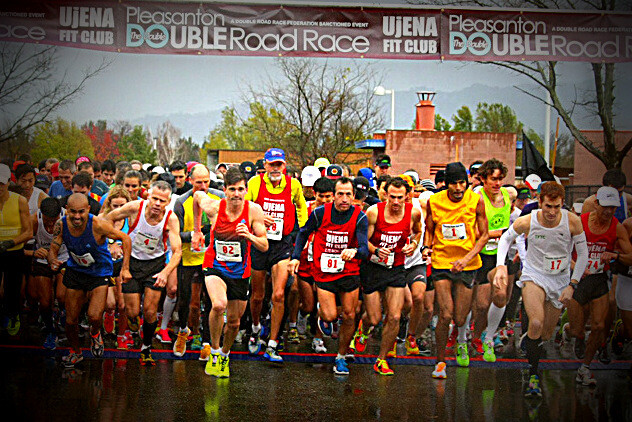
“Just making the Kenyan Olympic team drove me to push beyond limits,” Soi recalls. “I carried the hopes of more than 30 million Kenyans on my shoulders, and that choice ultimately led to my Olympic medal. My life changed—and my legacy changed.”
Since then, Soi has collected world championship medals and road titles worldwide. But today, what sets him apart is not only his victories but also his willingness to mentor and build the future.
Building Futures at KATA
Soi now heads the Kuresoi training camp under the KATA umbrella, guiding a new generation of athletes. His mentorship blends running discipline with life lessons, extending beyond training sessions.
KATA supports athletes with housing, nutrition, and income from sustainable farming projects like potato cultivation—ensuring both food security and financial independence. For Soi, this holistic model is crucial.
“I was fortunate to be mentored, and I feel a deep responsibility to pass that on. My victory will be in their success,” he says.
He also stresses integrity. With doping controversies tarnishing Kenyan athletics, Soi is determined to show that excellence can come from discipline, clean sport, and mentorship.
Why Thika Matters
The Thika Double has become more than a race; it is a stage where Kenyan athletes showcase strategy and resilience to the world. For the community, it is a festival of pride. For Soi, it is a chance to extend his legacy—competing for the clock, for his athletes, and for the values he believes in.
When the starter’s gun sounds on September 20, Soi will not only be racing 10K, resting, and running 5K. He will be carrying with him the arc of his career—from Olympic glory to mentorship—and the hopes of a new generation ready to follow in his footsteps.
The Double demands more than speed. It asks for resilience, intelligence, and composure. And with Edwin Soi on the line in Thika, chasing the world record, it promises to be a race—and a story—that inspires far beyond the finish.
by Robert Kibet
Login to leave a comment
KATA Double Road Race 15K
5th Annual KATA Double Road Race 15K Set for September 20, 2025, at KATA Thika The 5th Annual KATA Double Road Race 15K will be held on September 20, 2025, at the Kenyan Athletics Training Academy (KATA) in Thika, Kenya. The event includes a 10K leg, a break, followed by a 5K leg — a format designed to challenge runners...
more...Kenya’s Dominic Ngeno Returning to TCS Toronto Waterfront Marathon
It speaks volumes about a marathon when podium finishers are eager to come back. Last year, Kenya’s Dominic Ngeno finished runner-up at the TCS Toronto Waterfront Marathon. Now, from his home in Iten, he confirms he will return for this year’s edition on October 19.
“It was an amazing race last year and I learned a lot,” he says with a grin. “The race was good. I am coming now to combat. I was so happy that the fans were cheering us all the way in the streets. It was so amazing.”
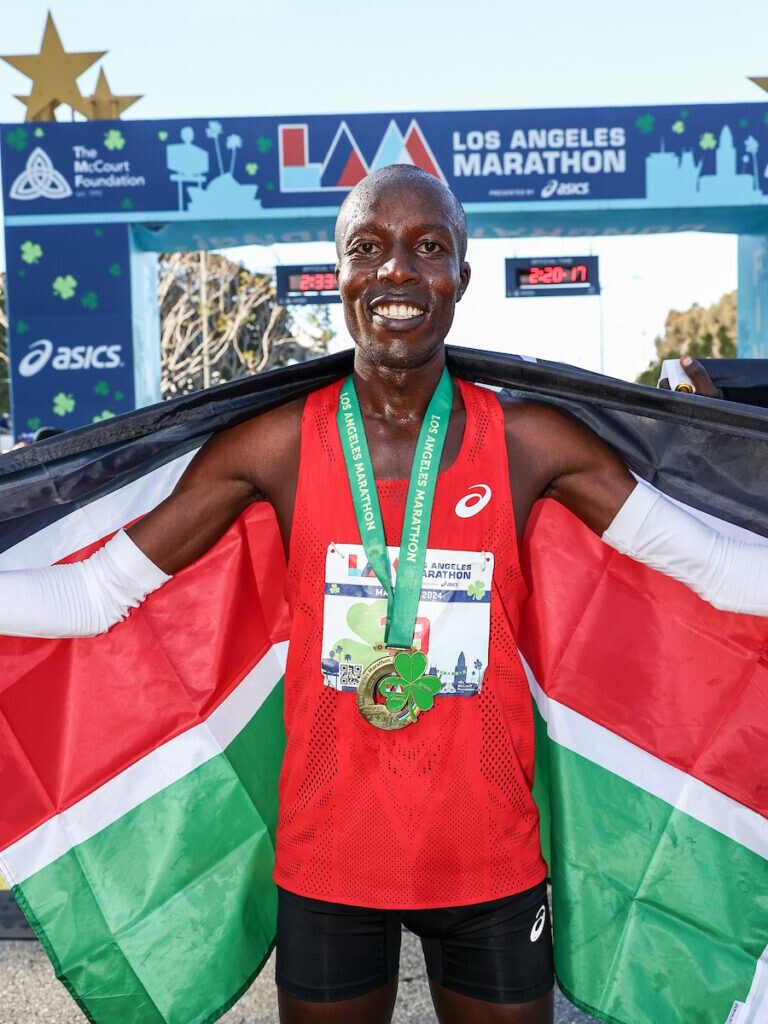
Finding his stride in Iten
In recent months, Ngeno has made some important changes. He left his training base in Kaptagat to return home to Iten, 2,400m above sea level — the famed “Home of Champions.” The switch has made him happier and, he believes, stronger. The proof came at the 2025 Paris Marathon, where he finished 5th in a new personal best of 2:06:37.
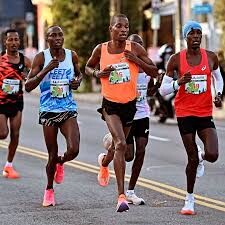
“I ran 2:06:37 in Paris and it is a hard course,” he explains. “It is not like Toronto. Last year I feared Toronto was tough because for a few years guys were running 2:09 or 2:10. But when I finished, I saw it was good. Paris compared to Toronto? Toronto is a nice course.”
Training with purpose
Speaking via WhatsApp video, he animatedly describes his training and credits his group of six training partners with pushing him forward. Just before the interview he had run 20km in the evening, then 10km the following morning, with a demanding session of 15 x 1km intervals planned later that day. Every couple of weeks he adds a 40km long run.
“When I am not training, I am resting in the compound — just sleeping,” he says with a smile. “Sleeping is part of the training program. After lunch I sleep, then go for training. When I come back, I take tea and wait for dinner.”
Like many Kenyan athletes, he still makes time to follow English Premier League football.
“Yeah, I am a big fan of Chelsea — the Blues,” he laughs. “My favourite player used to be Didier Drogba, but now it is Cole Palmer.”
A latecomer with big dreams
Ngeno turns 28 on September 3rd, still relatively new to the marathon. After high school he played soccer, then studied in Eldoret for two years, where he met some of Kenya’s top runners. But it was a chance encounter at a 2021 cross country meet with Amos Kipruto — the 2022 London Marathon champion and 2019 world bronze medalist — that shifted his focus.
“We had some small interactions,” Ngeno recalls. “He really inspired me because he didn’t run so many half marathons, and his dream came true after he started running marathons. That inspired me. I ran only two half marathons before deciding to be a marathoner full time.”
Building a future beyond running
Professional running offers him a chance to secure a brighter future. A contract with Asics helps, but he is also investing wisely.
“There is life after running so you need to invest whatever you get,” he says. “Now I have a small business — I have electronics stores and I am also farming. After running I will work with my family and grow that. I have shops and people who work for me. Whenever someone needs something like a television, they can go there.”
Looking ahead
Some of the greatest marathoners — Haile Gebrselassie, Kenenisa Bekele, Eliud Kipchoge — have thrived well into their late 30s. Ngeno believes he has another decade at the top and is motivated by the possibility of representing his country.
“First, I love running, and because I love running I want to run my best and change my life,” he declares. “I want to be the best. I have that dream of running for Kenya. This year when they were selecting the team I was not far from selection. I believe soon I will run for Team Kenya — maybe at the World Championships or Olympic Games.”
For now, his focus is firmly on the TCS Toronto Waterfront Marathon, where he aims to take on a world-class field and turn last year’s second place into victory.
by Paul Gains
Login to leave a comment
TCS Toronto Waterfront Marathon
The Scotiabank Toronto Waterfront Marathon, Half-Marathon & 5k Run / Walk is organized by Canada Running Series Inc., organizers of the Canada Running Series, "A selection of Canada's best runs!" Canada Running Series annually organizes eight events in Montreal, Toronto and Vancouver that vary in distance from the 5k to the marathon. The Scotiabank Toronto Waterfront Marathon and Half-Marathon are...
more...Joshua Cheptegei to Skip World Championships, All-In on Amsterdam Marathon
Joshua Cheptegei, one of the greatest distance runners of his generation, has officially confirmed he will not compete at the 2025 World Athletics Championships in Tokyo. Instead, the Ugandan superstar will focus exclusively on preparing for the 50th TCS Amsterdam Marathon, set for October 19, 2025.
This marks the first time since 2015 that Cheptegei will miss a World Championships—a clear signal that his transition from track to road is now complete.
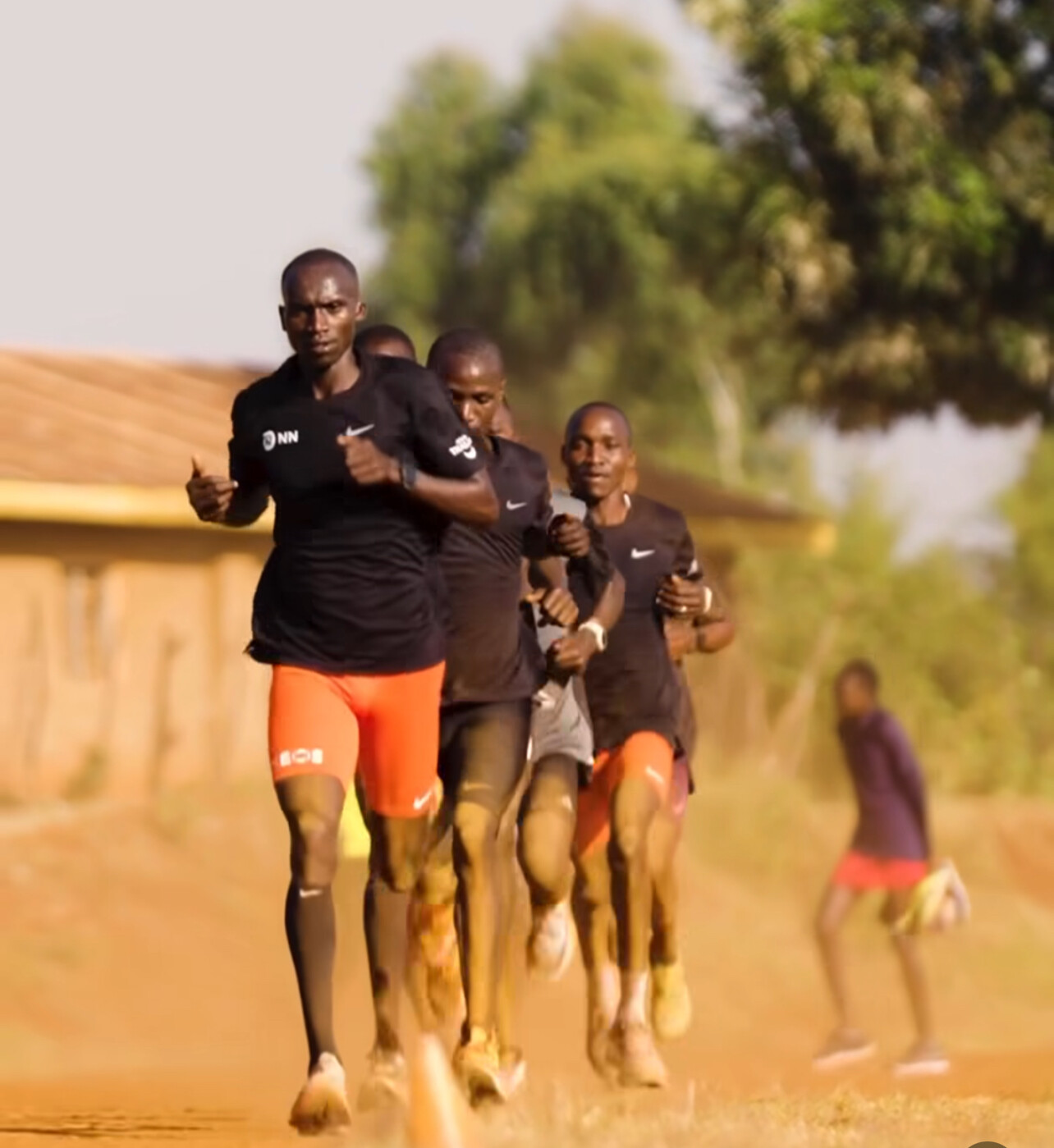
A Strategic Shift to the Marathon
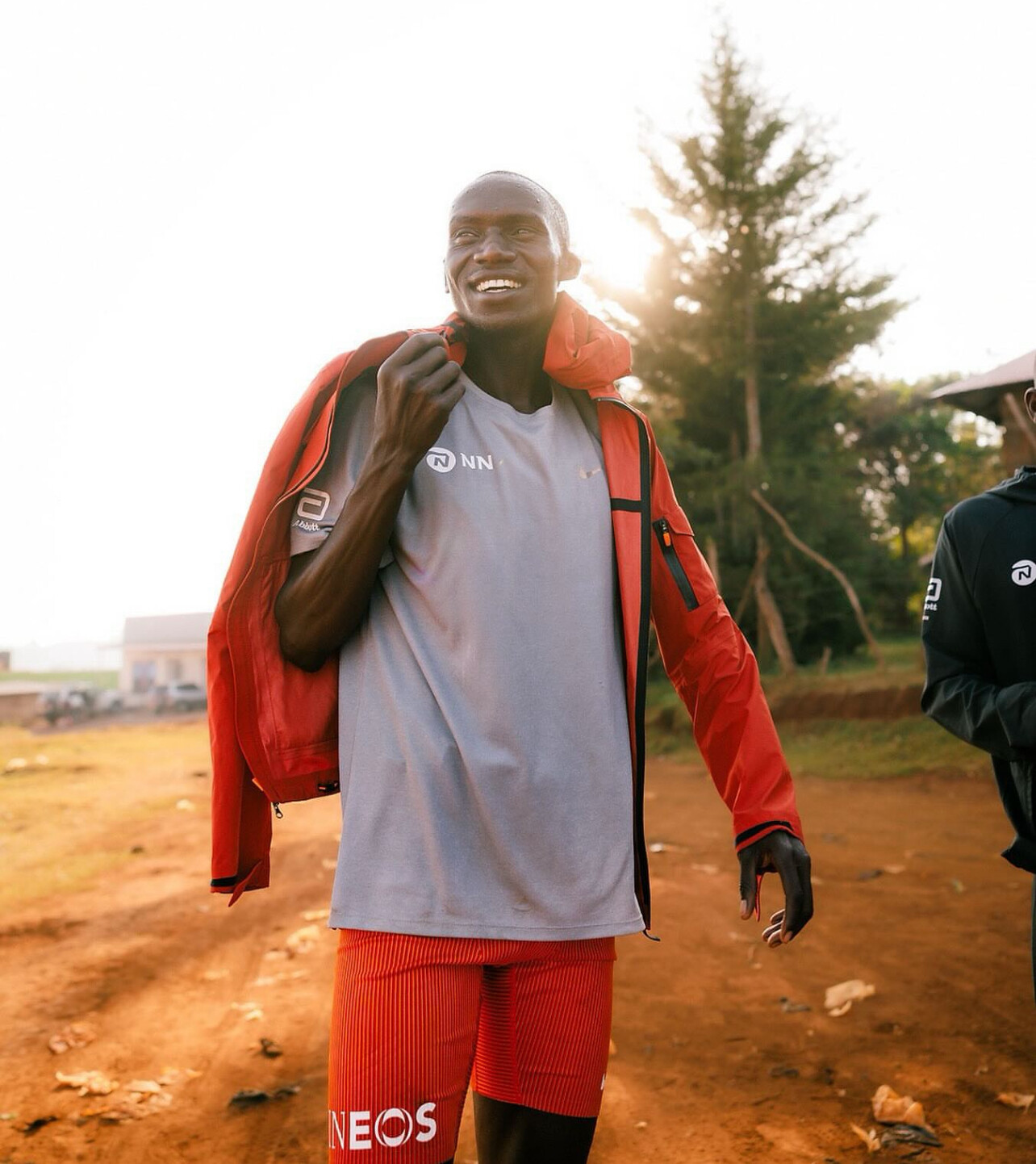
After winning gold in the 10,000m at the Tokyo Olympics and setting world records in both the 5,000m and 10,000m, Cheptegei is now dedicating himself to mastering the marathon distance.
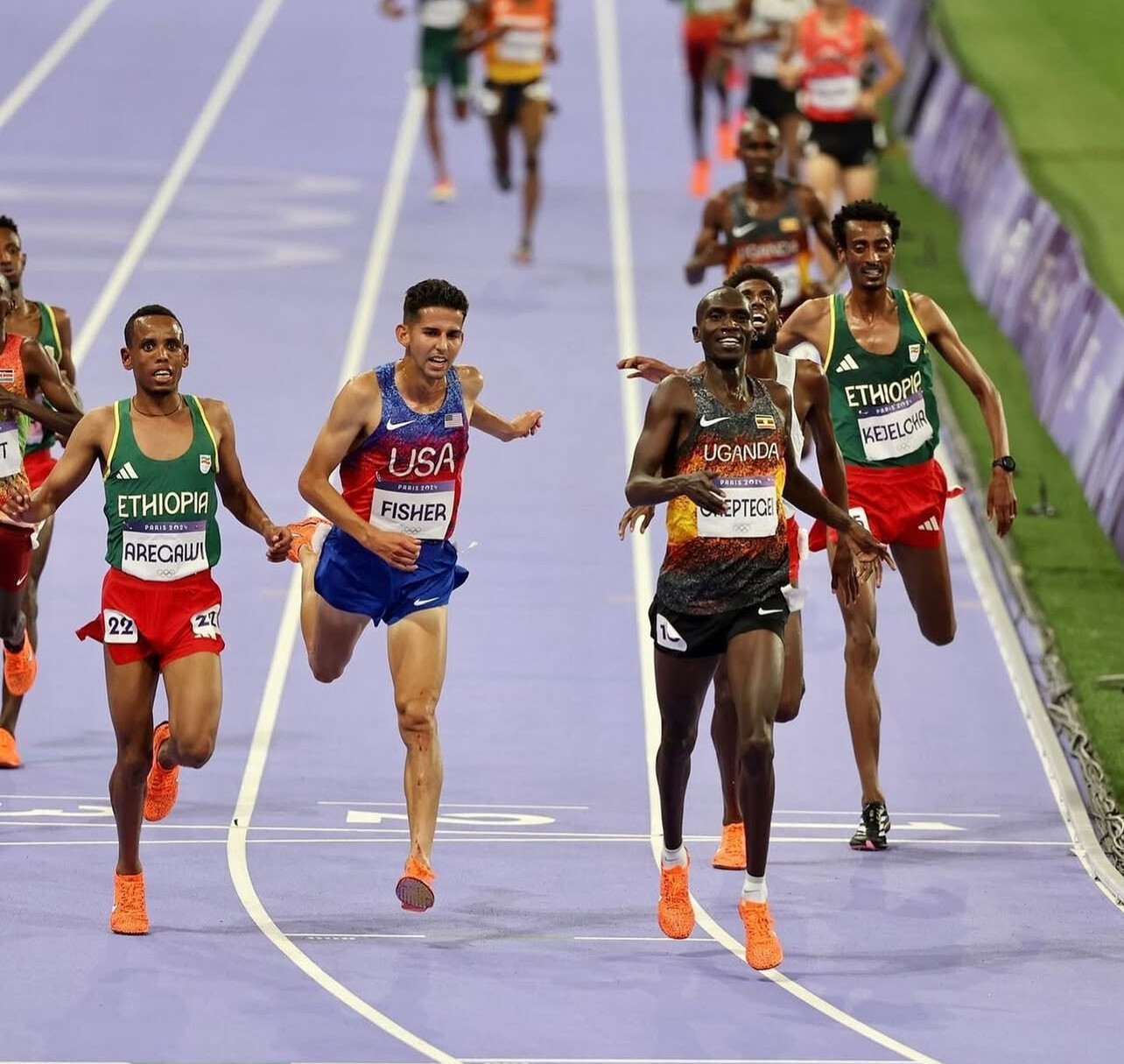
He made his marathon debut in Valencia (2023) with a 2:08:59, then followed up with an impressive 2:05:59 in Tokyo earlier this year. Those performances gave him the confidence to commit fully to the roads.
“I’m excited for this next chapter in my career,” Cheptegei told Ugandan media. “My full focus is now on the marathon. Amsterdam is the perfect opportunity to show what I’m capable of.”
Why He’s Skipping Worlds
The decision to sit out the 2025 World Championships, which will be held in Tokyo this September, comes down to two key factors:
1. Marathon Focus
Cheptegei has officially stepped away from the track to dedicate his training and energy toward long-term marathon success. The Amsterdam Marathon is his main priority this fall, and all preparations are centered around peaking on race day.
2. Tight Schedule & Recovery Demands
As part of his buildup, Cheptegei is scheduled to race the Antrim Coast Half Marathon on August 24, just three weeks before the World Championships. Running both would compromise his recovery and risk injury.
“We had to make a decision, and the priority is a strong marathon in Amsterdam,” said his coaching team.
Legacy on the Line
With the track chapter closed, Cheptegei is looking to solidify his status as a distance running legend on the roads. A strong performance in Amsterdam—especially against top names like Tamirat Tola—could place him firmly in the conversation among the world’s best marathoners.
His move is reminiscent of past greats like Kenenisa Bekele and Mo Farah, who also shifted focus to the marathon after dominating the track.
Amsterdam 50th Annual Marathon
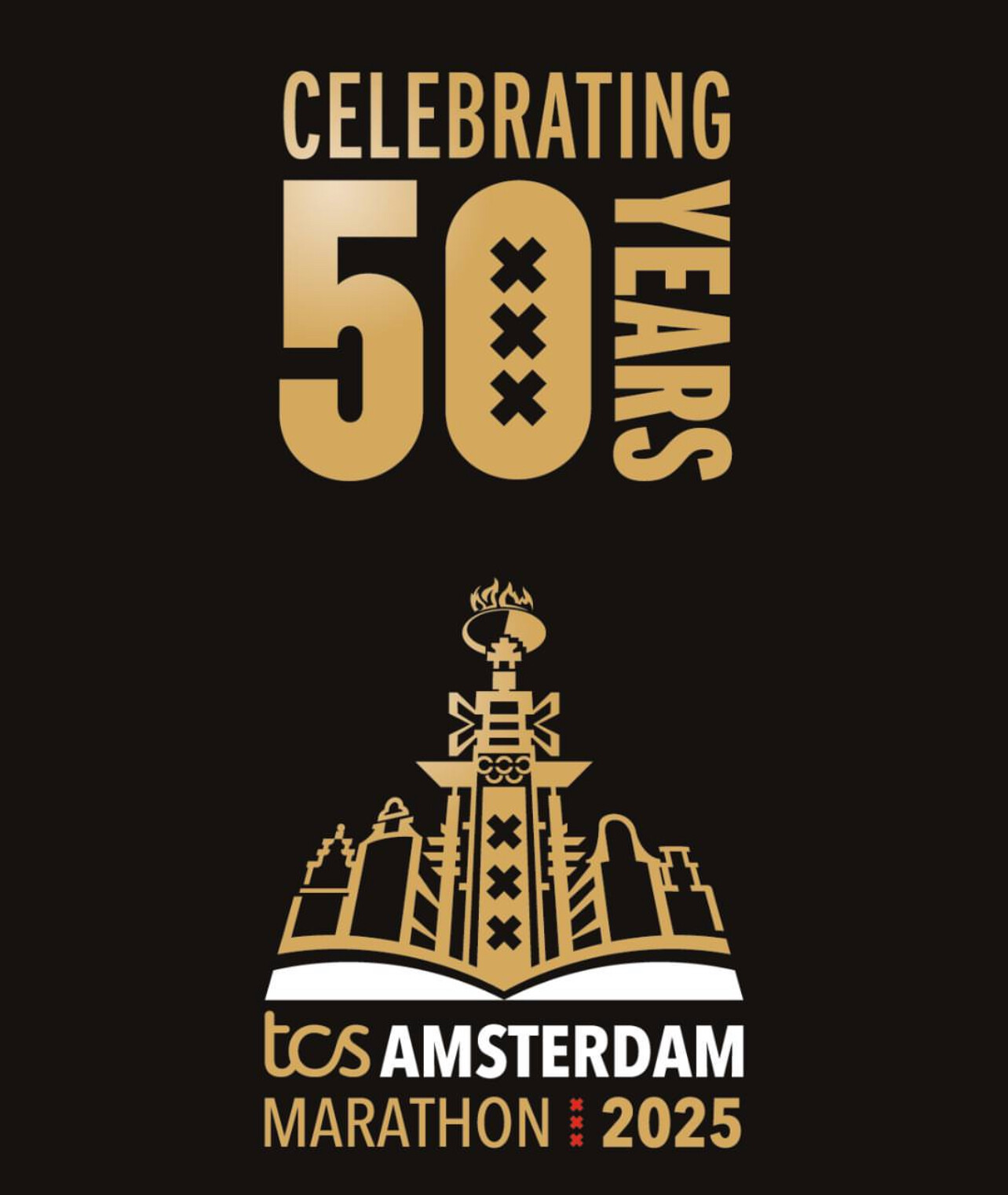
The 2025 edition of the Amsterdam Marathon marks the race’s 50th anniversary, making it one of the most anticipated events on the global road racing calendar. Known for its flat, fast course and scenic route through the historic streets and canals of Amsterdam, the race has become a favorite for elite athletes chasing personal bests and record times.
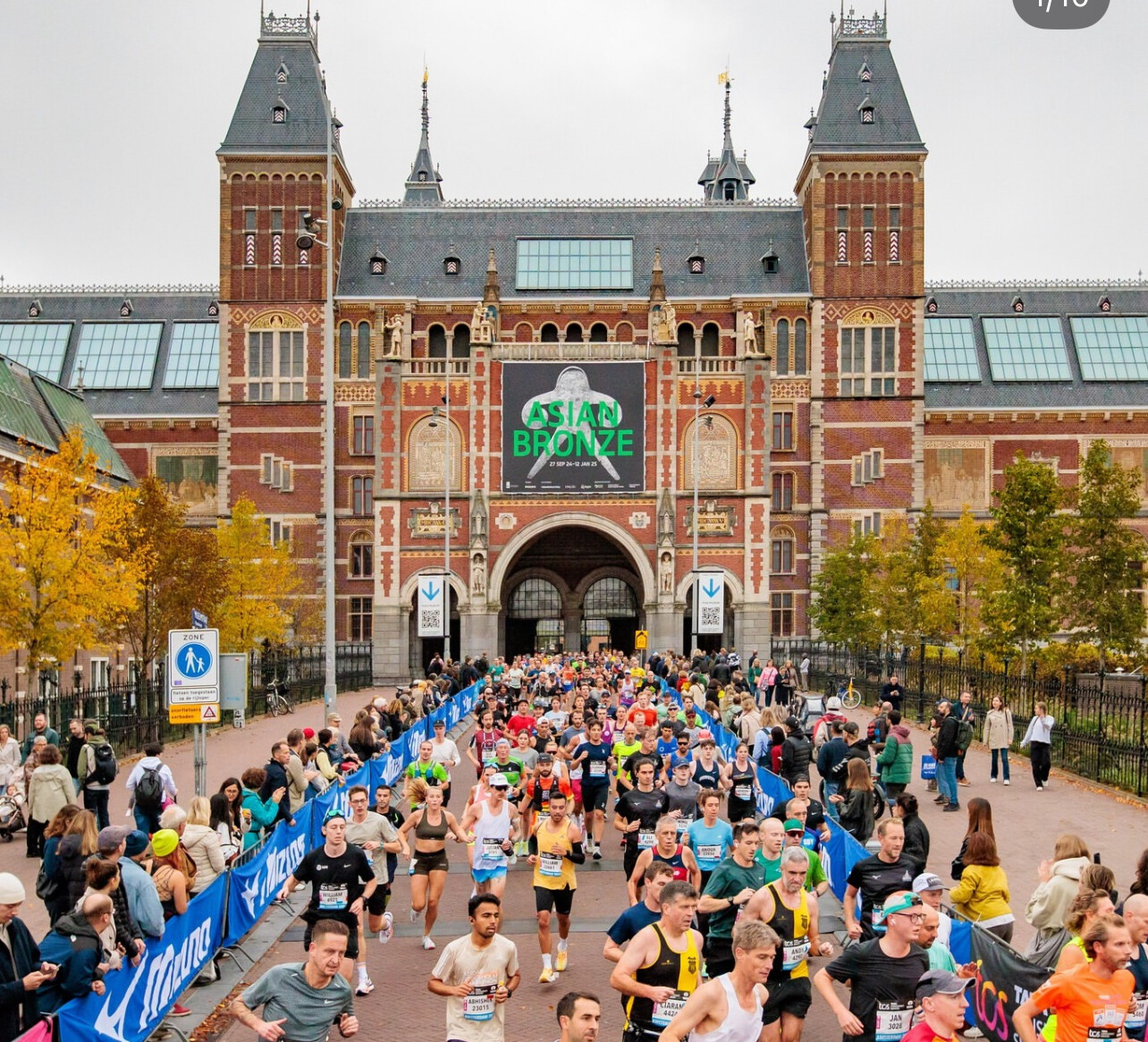
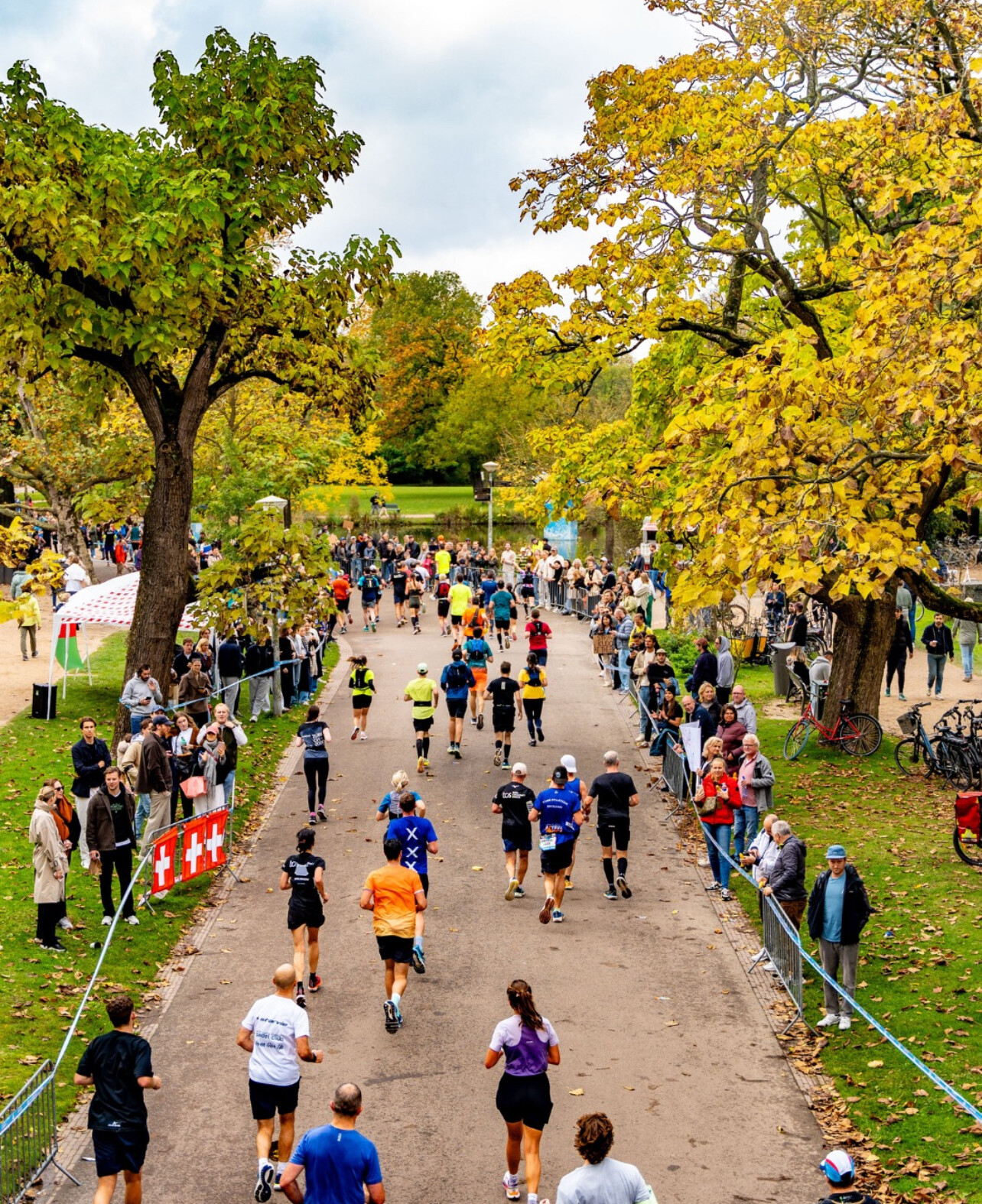
This year’s milestone edition is expected to draw a deep international field and heightened media attention, especially with stars like Joshua Cheptegei and Tamirat Tola headlining the men’s race. Organizers are planning special celebrations and tributes to the event’s rich history, ensuring the 2025 race is both competitive and commemorative.
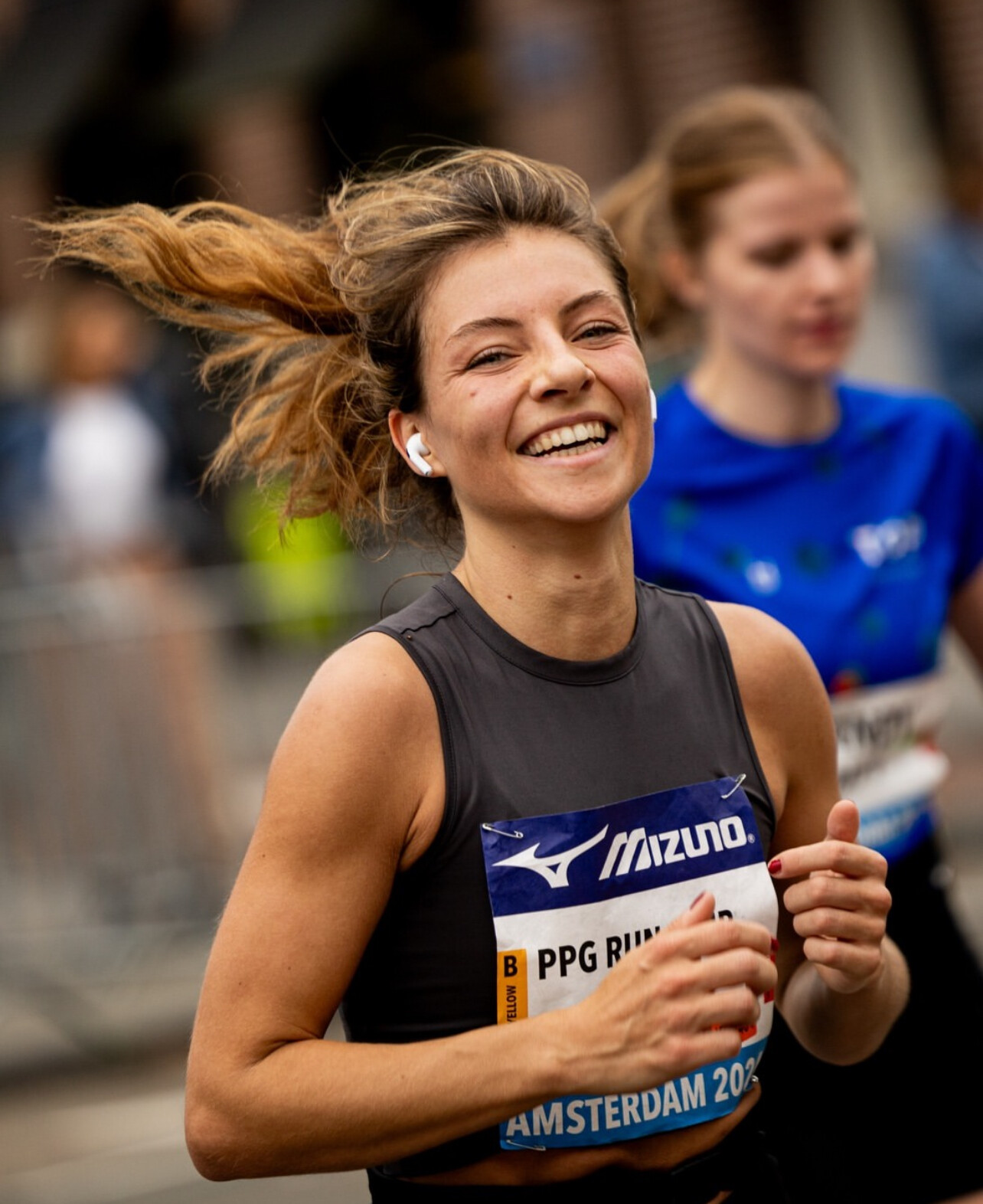
by Boris Baron
Login to leave a comment
TCS Amsterdam Marathon
Do you want to enjoy Amsterdam in October and all that the city has to offer you? Want to feel a real athlete and start and finish in the historic Olympic stadium? Or run across the widely discussed passage under the beautiful National Museum? Then come to Amsterdam for the annual TCS Amsterdam Marathon in October! The TCS Amsterdam Marathon...
more...Andreas Almgren Stuns the World with 12:44.27 in Stockholm 5000m, Smashing European Record and Entering All-Time Top 10
Swedish distance star Andreas Almgren delivered the race of his life at the Stockholm Diamond League, clocking a breathtaking 12:44.27 to win the men’s 5000m and send shockwaves through the global distance running world. His time not only shattered the European Record (ER) and the meet record, but it also catapulted him into the top 10 fastest performers in history, now ranking #8 all-time.
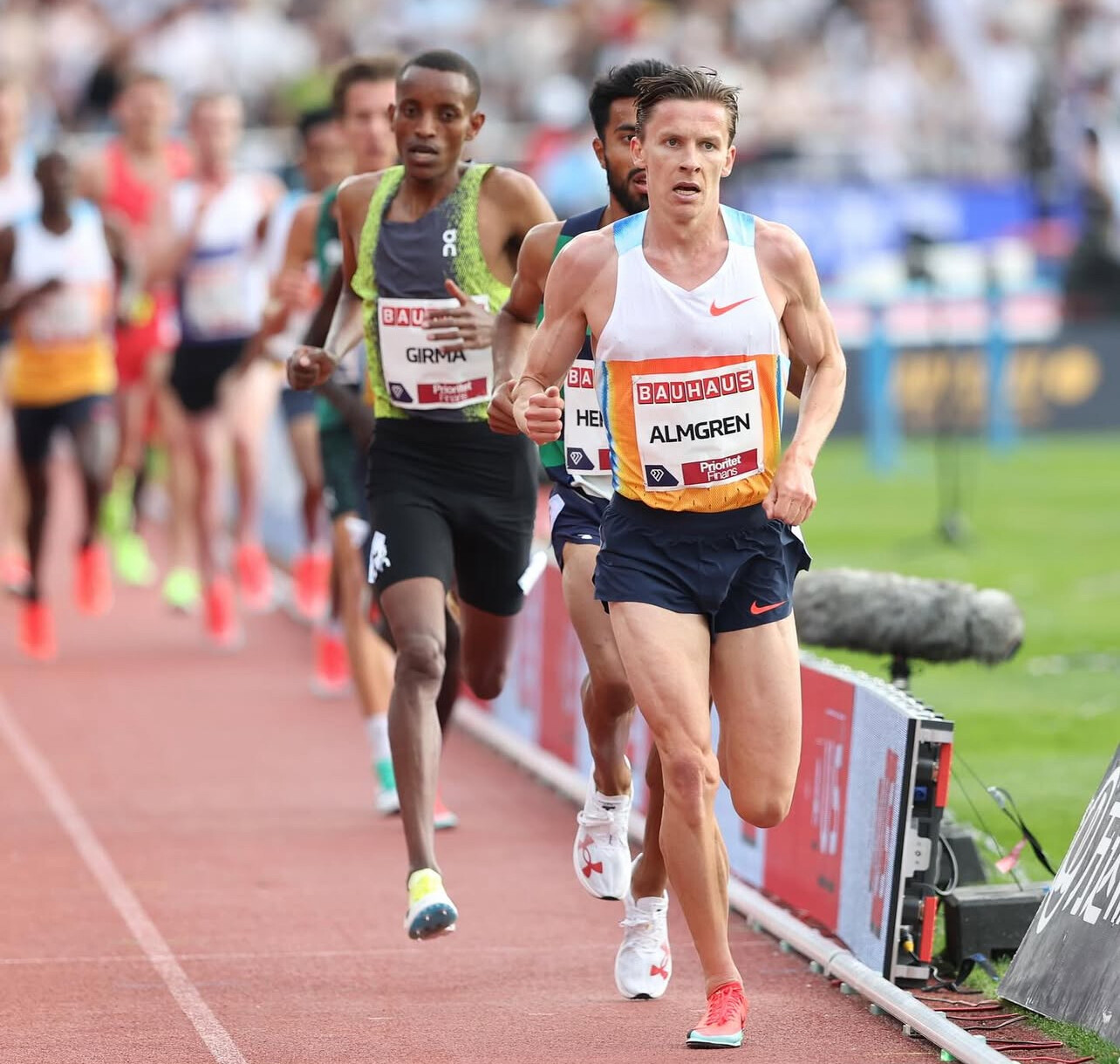
The home crowd in Stockholm witnessed a historic moment as Almgren, traditionally known for his prowess over 800m and 1500m, made a stunning statement in the long-distance arena. He became the first European ever to dip under 12:45 and now holds the fastest 5000m time ever run by a European athlete, surpassing Spain’s Mohamed Katir (12:45.01 from 2023).
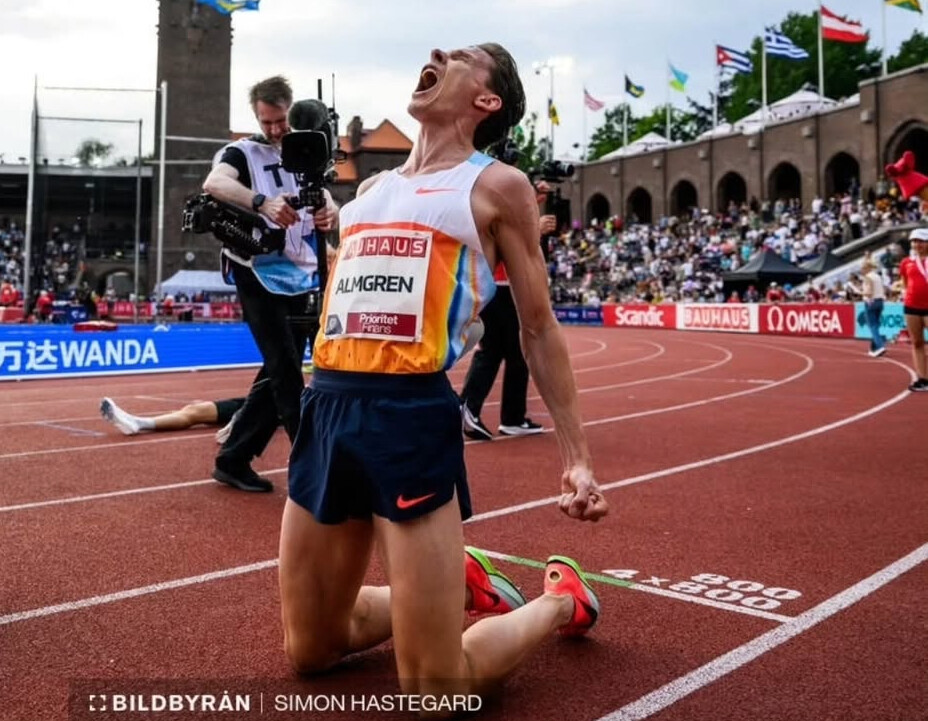
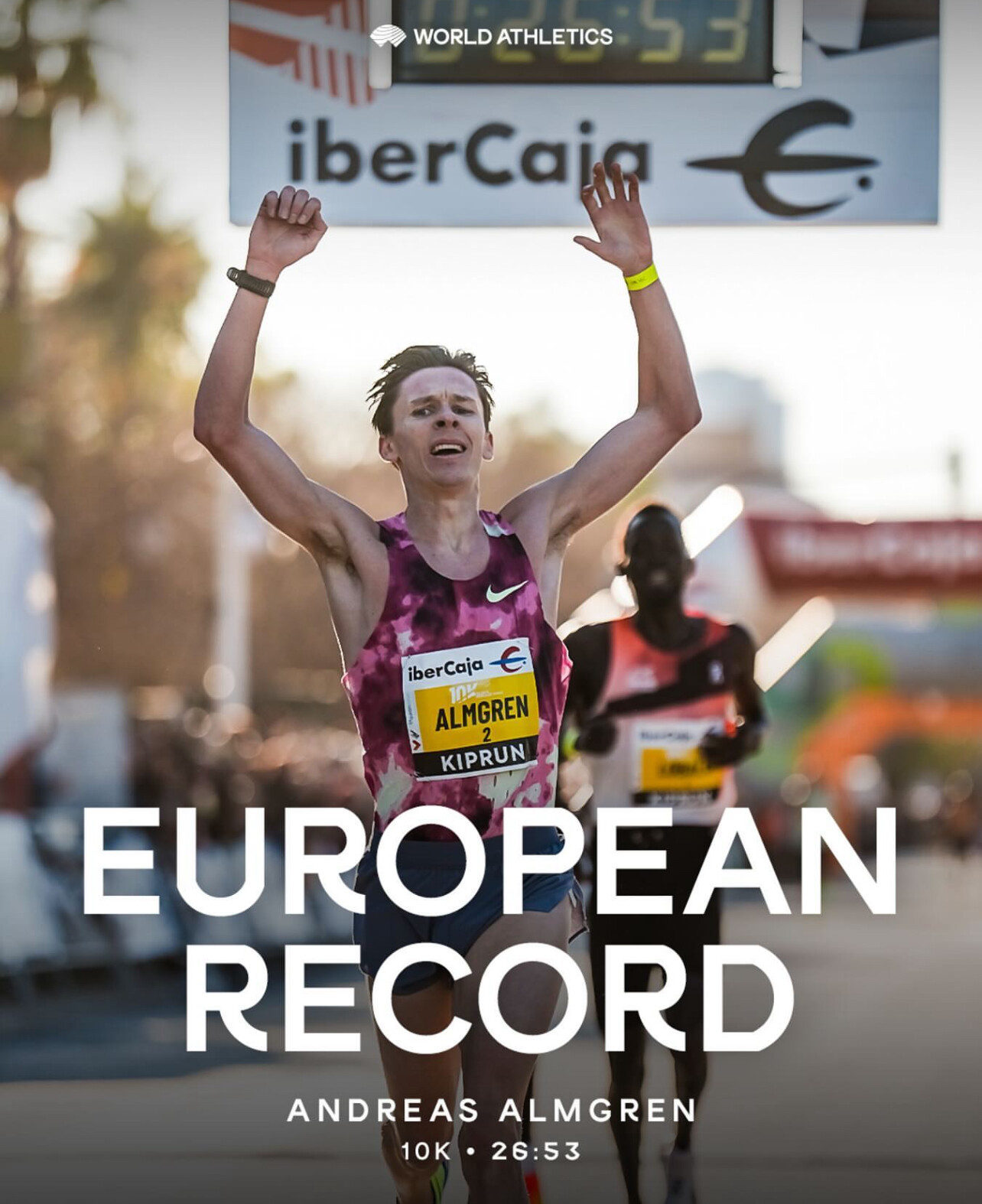
? Top Results – Men’s 5000m (Stockholm Diamond League)
1. Andreas Almgren (Sweden) – 12:44.27 ?? ER MR
2. Kama Girma (Ethiopia) – 12:57.46 ??
3. Ky Robinson (Australia) – 12:58.38 ??
4. Mike Foppen (Netherlands) – 13:02.43 ??
5. Kenneth Kiprop (Uganda) – 13:02.69 ??
6. Denis Kipkoech (Kenya) – 13:07.02 ??
All-Time Men’s 5000m Rankings (As of June 2025)
Andreas Almgren now stands 8th on the all-time global list, behind legends like Cheptegei, Bekele, and Gebrselassie.
|
Rank |
Athlete |
Country |
Time |
Year |
|
1 |
Joshua Cheptegei |
UGA |
12:35.36 |
2020 |
|
2 |
Kenenisa Bekele |
ETH |
12:37.35 |
2004 |
|
3 |
Haile Gebrselassie |
ETH |
12:39.36 |
1998 |
|
4 |
Daniel Komen |
KEN |
12:39.74 |
1997 |
|
5 |
Hagos Gebrhiwet |
ETH |
12:42.18 |
2023 |
|
6 |
Selemon Barega |
ETH |
12:43.02 |
2018 |
|
7 |
Mohamed Katir |
ESP |
12:45.01 |
2023 |
|
8 |
Andreas Almgren |
SWE |
12:44.27 |
2025 ✅ |
|
9 |
Yomif Kejelcha |
ETH |
12:46.79 |
2023 |
|
10 |
Berihu Aregawi |
ETH |
12:46.91 |
2021 |
Pace Breakdown – Almgren’s 12:44.27
• Per kilometer: 2:32.85/km
• Per mile: 4:05.57/mile
(12:44.27 = 764.27 seconds total
5000 meters = 5 kilometers or 3.10686 miles)
A New Era in Distance Running?
The Stockholm performance underscores a growing shift in elite distance running. For decades, Kenya, Ethiopia, and Uganda have been dominant in the 5000m and 10,000m, but Almgren’s performance—alongside strong finishes by Australia’s Ky Robinson and the Netherlands’ Mike Foppen—suggests a broader international resurgence.
As the World Championships in Tokyo loom, Almgren’s breakout raises the stakes. Can the Swede replicate this form against the likes of Cheptegei and Barega on the biggest stage of all?
One thing is clear: the race to the podium in global distance running is no longer limited to East Africa. Andreas Almgren has kicked open the door—and the world is watching.
by Boris Baron
Login to leave a comment
Nico Young Shatters American Record with 12:45.27 in Oslo Diamond League 5000m
In a performance that shook the foundations of U.S. distance running, Nico Young stormed to a stunning 12:45.27 at the Oslo Diamond League on June 12. Not only did he win the race, but he also demolished the American 5000m record, vaulting himself into the top ranks of global distance running.
The 21-year-old’s breakthrough marks the fastest 5000m ever run by an American and the fourth-fastest time in world history outdoors. His average lap was 61.4 seconds—roughly 4:06 per mile or 2:33 per kilometer—executed against one of the deepest fields ever assembled.
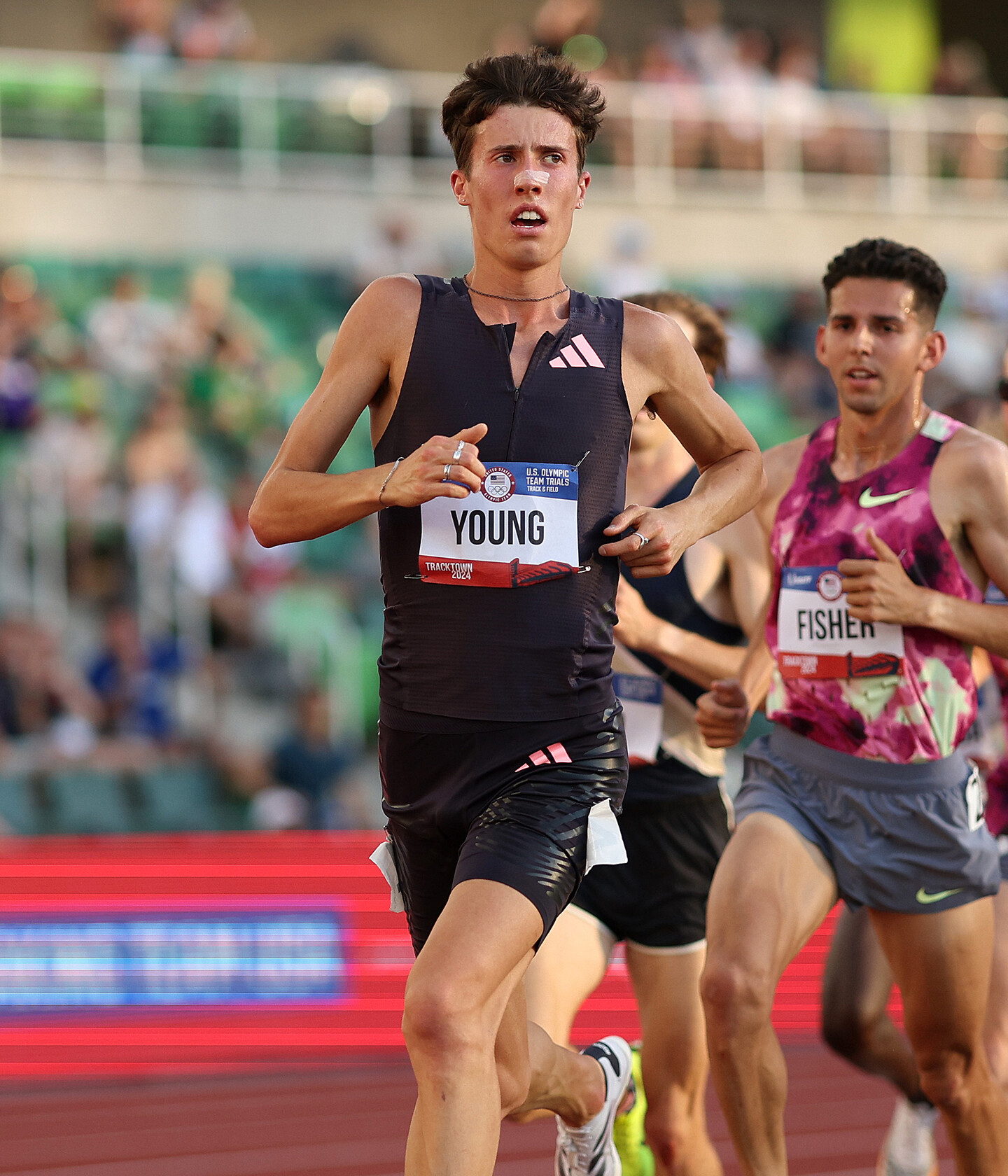
Standout Performances with Official Times
• Nico Young (USA) – 12:45.27 – ?? American Record
• George Mills (GBR) – 12:46.59 – ?? British National Record
• Thierry Ndikumwenayo (Burundi) – 12:47.67 – Personal Best
• Dominic Lokinyomo Lobalu (Switzerland) – 12:50.87 – ?? Swiss National Record
This was a race defined by speed, grit, and history-making performances. Eight athletes reportedly broke 12:51—unprecedented in Diamond League competition. National records fell on three continents.
Young’s Path to Greatness
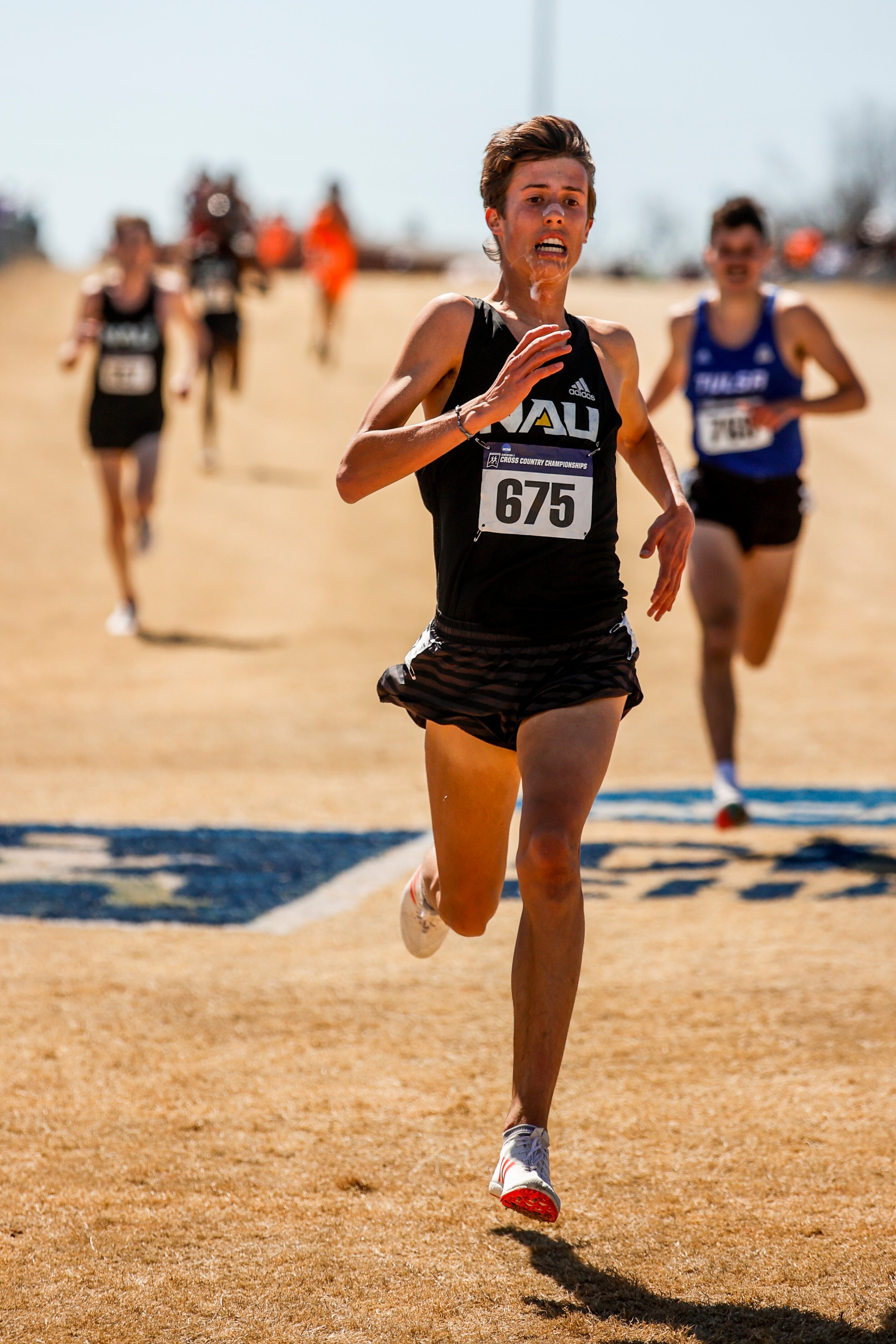
Nico Young’s rise began at Newbury Park High School, where he set high school records and led his team to national titles. At Northern Arizona University, he continued to dominate, becoming a multi-time NCAA All-American before turning pro with Adidas.
Training under coach Mike Smith, Young has honed not just his endurance but also his race instincts—perfectly on display in Oslo as he timed his final surge to perfection against the best in the world.
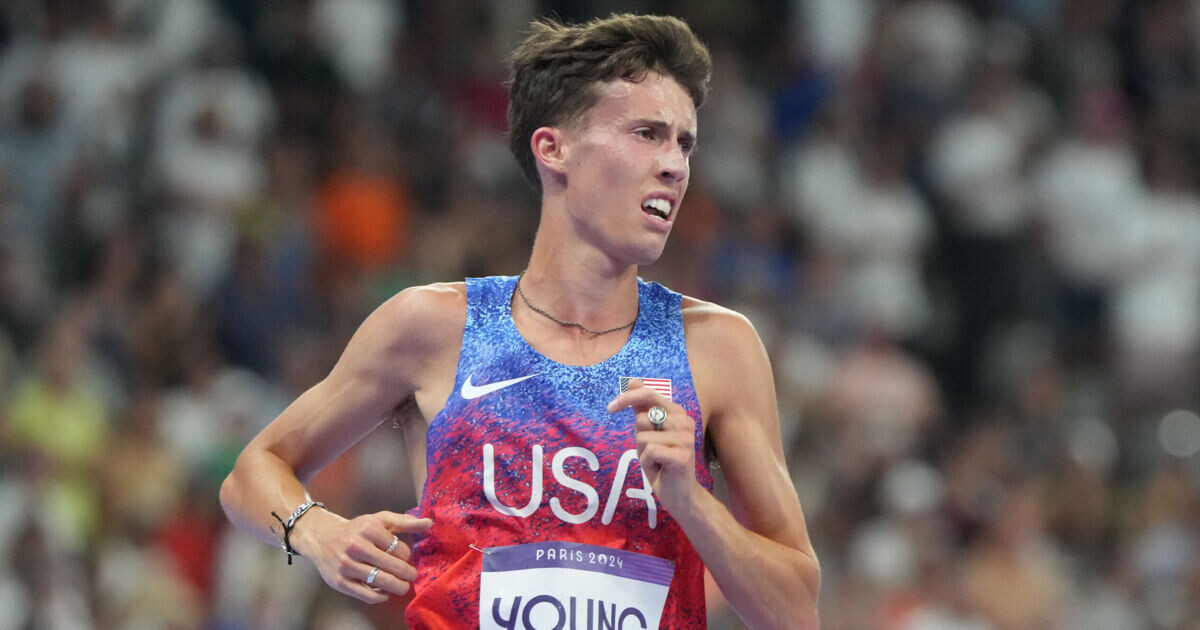
A New Standard
Young’s 12:45.27 surpasses Grant Fisher’s previous American record of 12:46.96 set in 2022. His time now ranks him behind only three men in history: Joshua Cheptegei, Kenenisa Bekele, and Hagos Gebrhiwet.
With this performance, Nico Young has redefined what’s possible for American distance runners and firmly positioned himself as one of the most exciting young talents in the sport.
by Boris Baron
Login to leave a comment
Olympic 5000m medalist Edwin Soi joins new KATA Running Camp in Kericho — a unique Kenyan training program blending elite coaching and community impact.
From Olympic bronze to farming for the future, Edwin Soi’s journey reflects both speed and sustainability.
In the world of distance running, Edwin Soi is a name etched in excellence. At the 2008 Beijing Olympics, Soi captured the bronze medal in the 5000 meters, finishing with a time of 13:06.22behind Kenenisa Bekele and Eliud Kipchoge—an iconic race that cemented his place among the greats of Kenyan running.
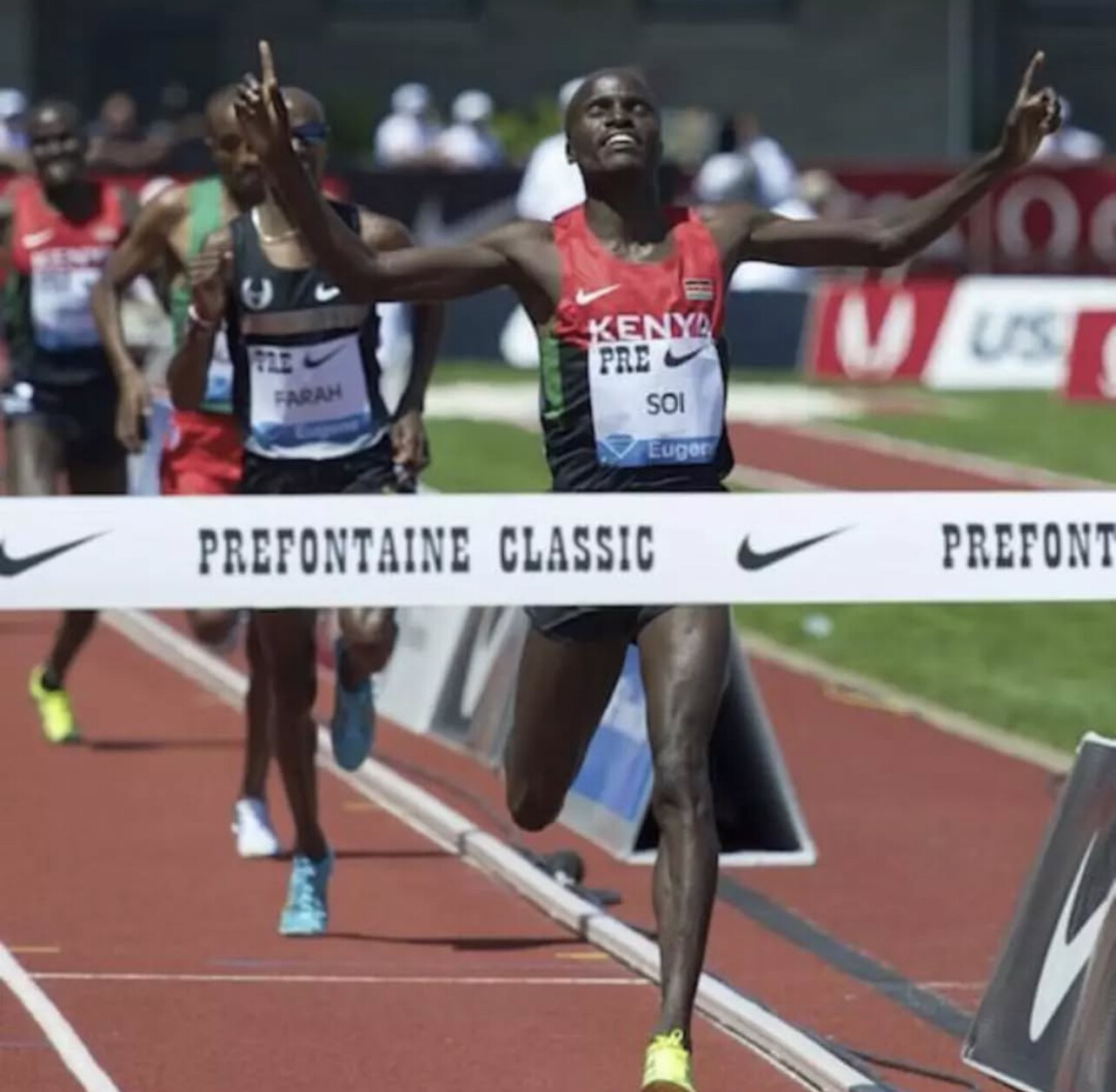
Now, over 15 years later, Soi continues to perform at an elite level. In early 2025, he placed on the podium at a major half marathon in Poland, proving that his speed and endurance have stood the test of time. But the accomplished Olympian is now expanding his impact beyond the track.
This year, Soi has teamed up with Bob Anderson, the founder of Runner’s World and the visionary behind the Kenyan Athletics Training Academy (KATA). Together, they are launching a unique initiative in Kericho, Kenya that combines world-class training with sustainable farming.
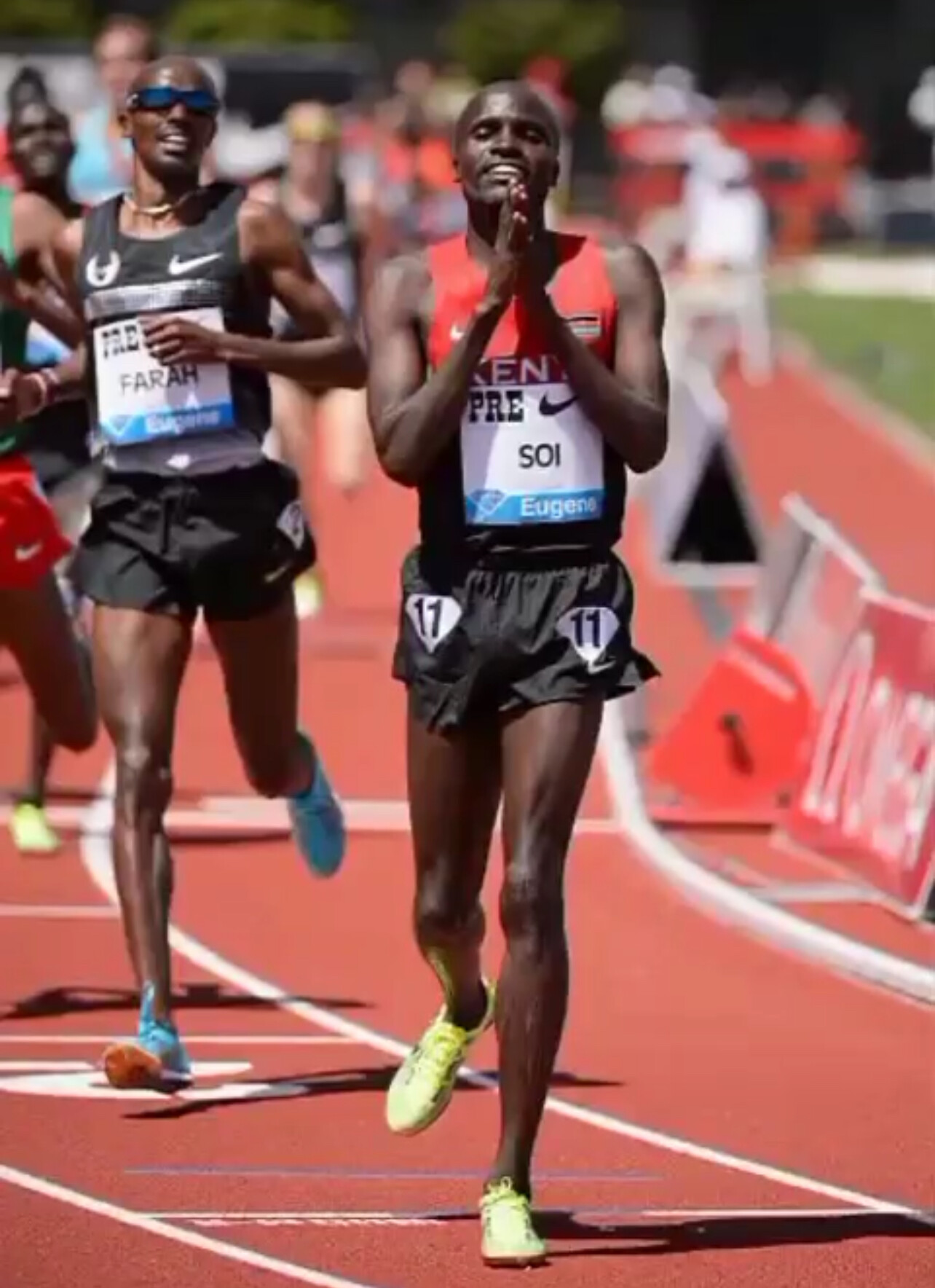
“I am very excited to be working with Bob Anderson on this new, unique program,” says Soi. “Bob has created something very special for athletes, and combining it with his ideas about farming KATA Potatoes gives us the opportunity to be sustainable. It’s perfect.”
A Vision Rooted in History
Bob Anderson’s connection to Kenyan running spans nearly four decades.
“I first traveled to Kenya in 1987 and saw and met many runners. I knew then that a program like what we have now set up was needed,” Anderson explains. “I returned with my wife Catherine in 2014 and met Elam and Joel. That’s when the idea for the Kenyan Athletics Training Academy (KATA) in Thika really started to take shape.”
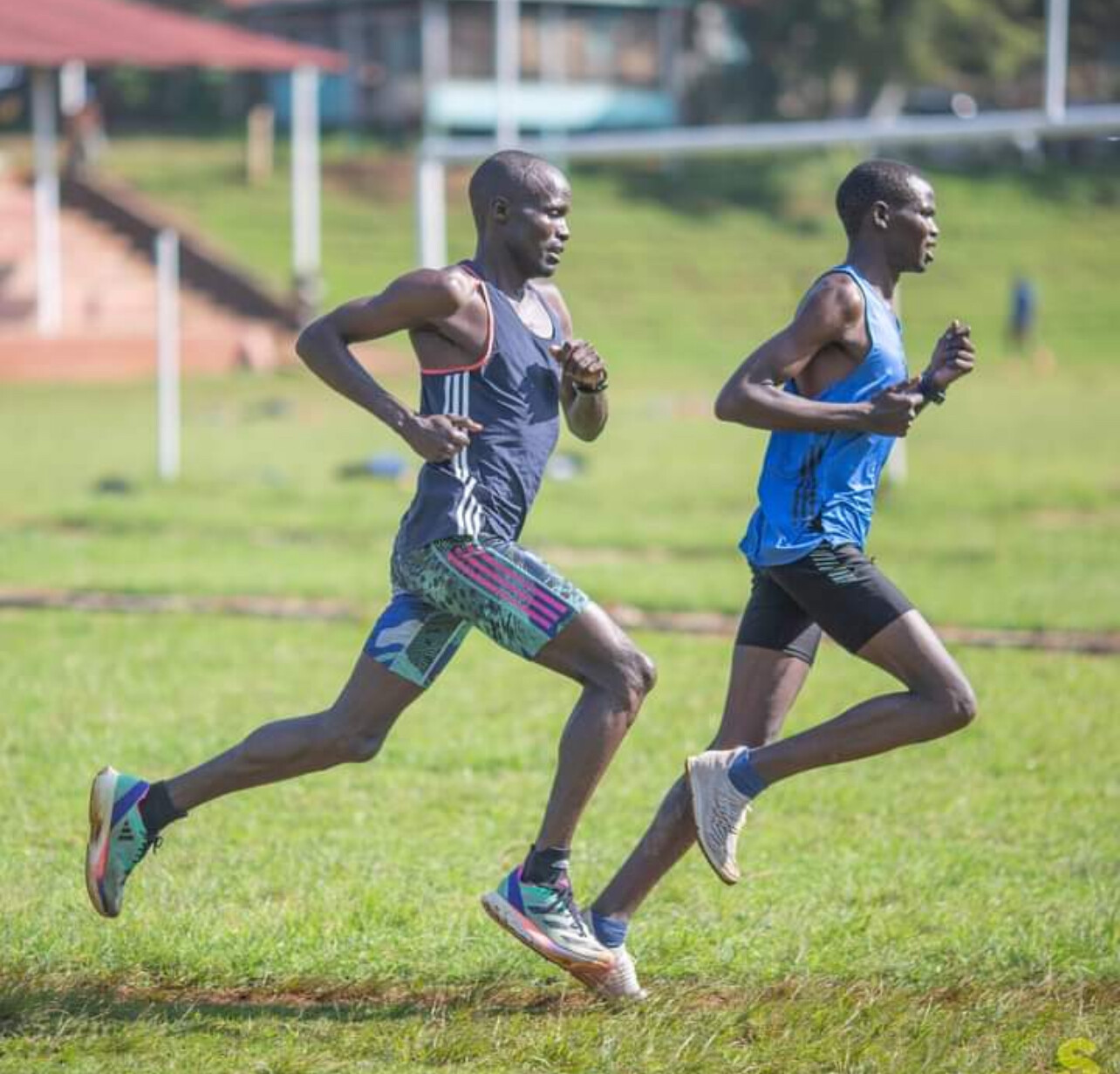
KATA officially opened in 2019, offering elite Kenyan athletes a base to train and grow. But the vision didn’t stop there.
In 2023, Anderson and longtime friend Brock Hinzmann (last photo) a 2:19 marathoner from Los Altos Hills, California, piloted the first KATA farm. The goal was to integrate agriculture into athlete development—creating a model where training and sustainability go hand in hand.
“We established a KATA farm in 2023 working with Brock, but the program needed some refinements. I finalized our new format in May of 2025. I told Edwin Soi about our program and he told me he loved the idea and jumped right on it,” says Anderson.
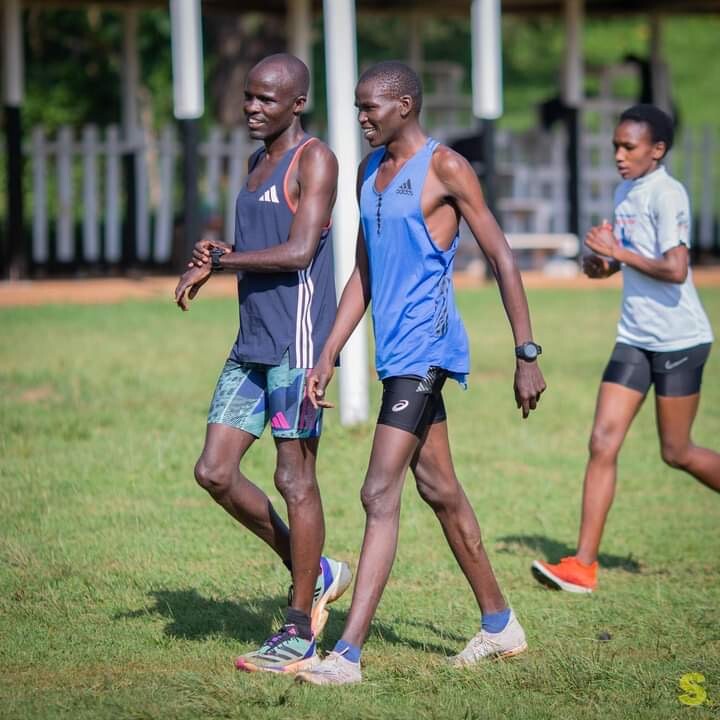
Kuresoi: A New Chapter
Now, with Soi’s leadership, the KATA Running Camp and Potato Farm in Kuresoi is set to become a flagship model for the future. Athletes will not only receive top-level training from one of the greatest distance runners of his generation, but they’ll also participate in sustainable farming practices—planting, maintaining, and harvesting KATA-branded potatoes.
The program provides housing, coaching, food, and competition opportunities—with the added benefit of long-term revenue from agriculture. It’s a model designed not just to develop athletes, but to support their lives beyond running.
“Edwin Soi brings credibility, passion, and wisdom to this project,” says Anderson. “It’s not just about winning races anymore—it’s about building something that lasts.”
Looking Ahead
With KATA camps now expanding across Kenya—including recent launches in Kapcherop, Molo, Nyandarua, and Kuresoi—the partnership between Bob Anderson and Edwin Soi represents a new chapter in Kenyan running. One where elite performance and local empowerment go hand in hand.
Soi’s journey—from Olympic bronze to coaching, mentoring, and planting the seeds of a new future—demonstrates what’s possible when world-class talent meets a visionary purpose.
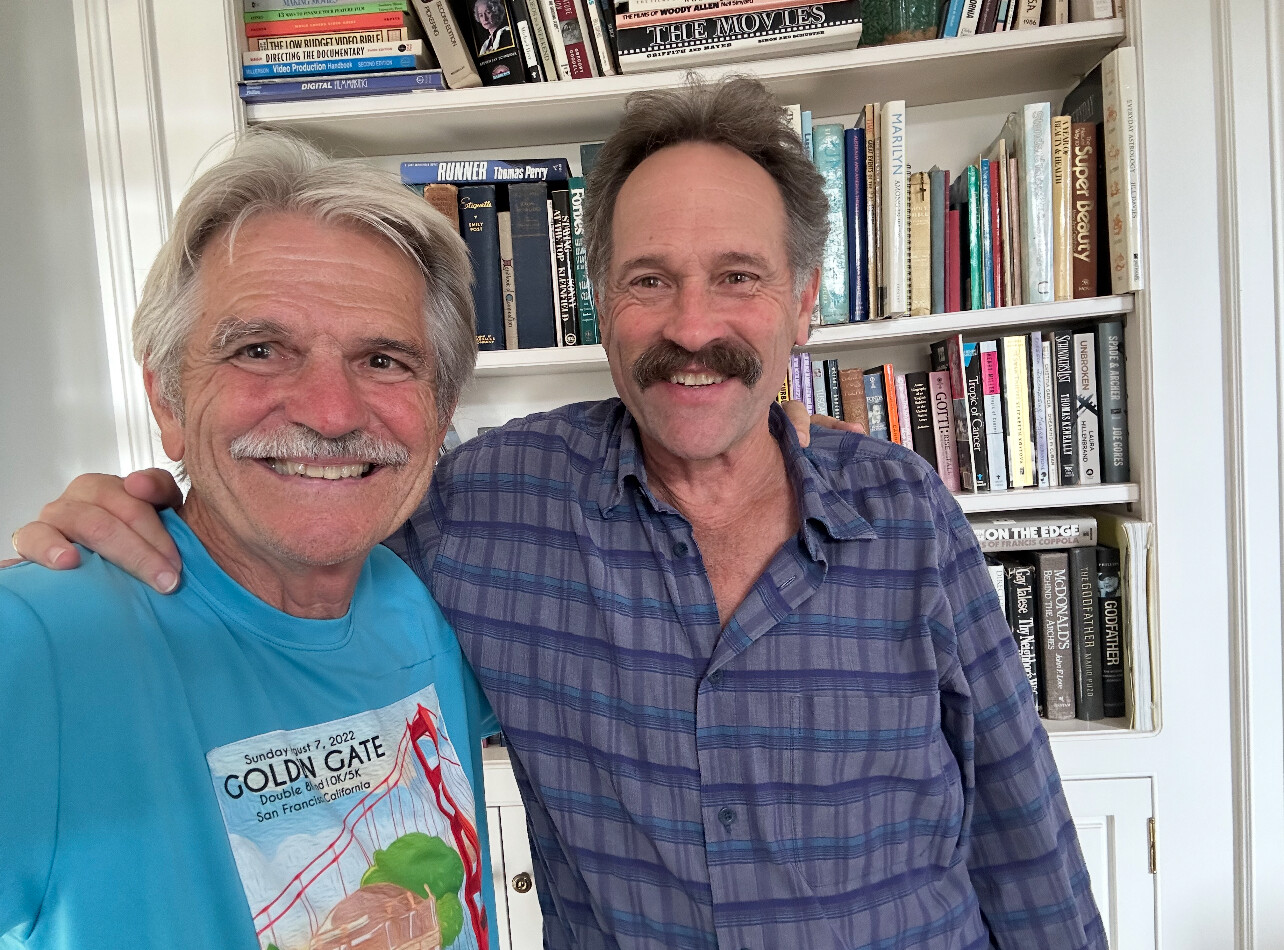
by Boris Baron
Login to leave a comment
Kenya vs Ethiopia What Sets Their Runners Apart
When it comes to distance running, no two countries are more dominant—or more frequently compared—than Kenya and Ethiopia. From 5Ks to marathons, athletes from these East African nations consistently top podiums and rewrite record books. But while the results may look similar, the paths to victory are often quite different.
Altitude Advantage, Different Terrains
Both Kenya and Ethiopia benefit from high-altitude environments that naturally boost endurance. Kenya’s top training hubs, like Iten and Eldoret, sit between 7,000 and 8,000 feet. Ethiopia’s Bekoji and Sululta offer similar elevations. But terrain matters too: Kenya’s roads are often red clay or uneven gravel, ideal for building strength and resilience. Ethiopia’s runners more frequently train on hills and mountain trails, with steeper and more demanding climbs integrated into daily runs.
Training Philosophies Diverge
Kenyan training is rooted in simplicity and rhythm. Athletes often meet for large group sessions, with a strong focus on tempo runs, long-distance efforts, and unstructured fartleks. The vibe is community-oriented and competitive—if someone surges, the group follows.
In contrast, Ethiopia’s elite training tends to be more individualized and coach-driven. Athletes follow structured schedules with clearly defined paces, recovery sessions, and high-intensity track workouts. The approach is more scientific, and recovery days are strictly observed.
Daily Life and Recovery
Kenyan runners typically live together in camps, waking early to train, followed by long periods of rest. A second run often comes in the late afternoon, and the lifestyle emphasizes minimal distractions.
Ethiopian runners may train in smaller groups and return home between sessions. There’s more variety in how the day is structured, though the focus on discipline remains.
(Photos) Kenyan Training in Iten and Eldoret
1. Mass Training Run in Iten
A striking image capturing a large group of Kenyan runners during a typical morning session on the red dirt roads of Iten, known as the “Home of Champions.”
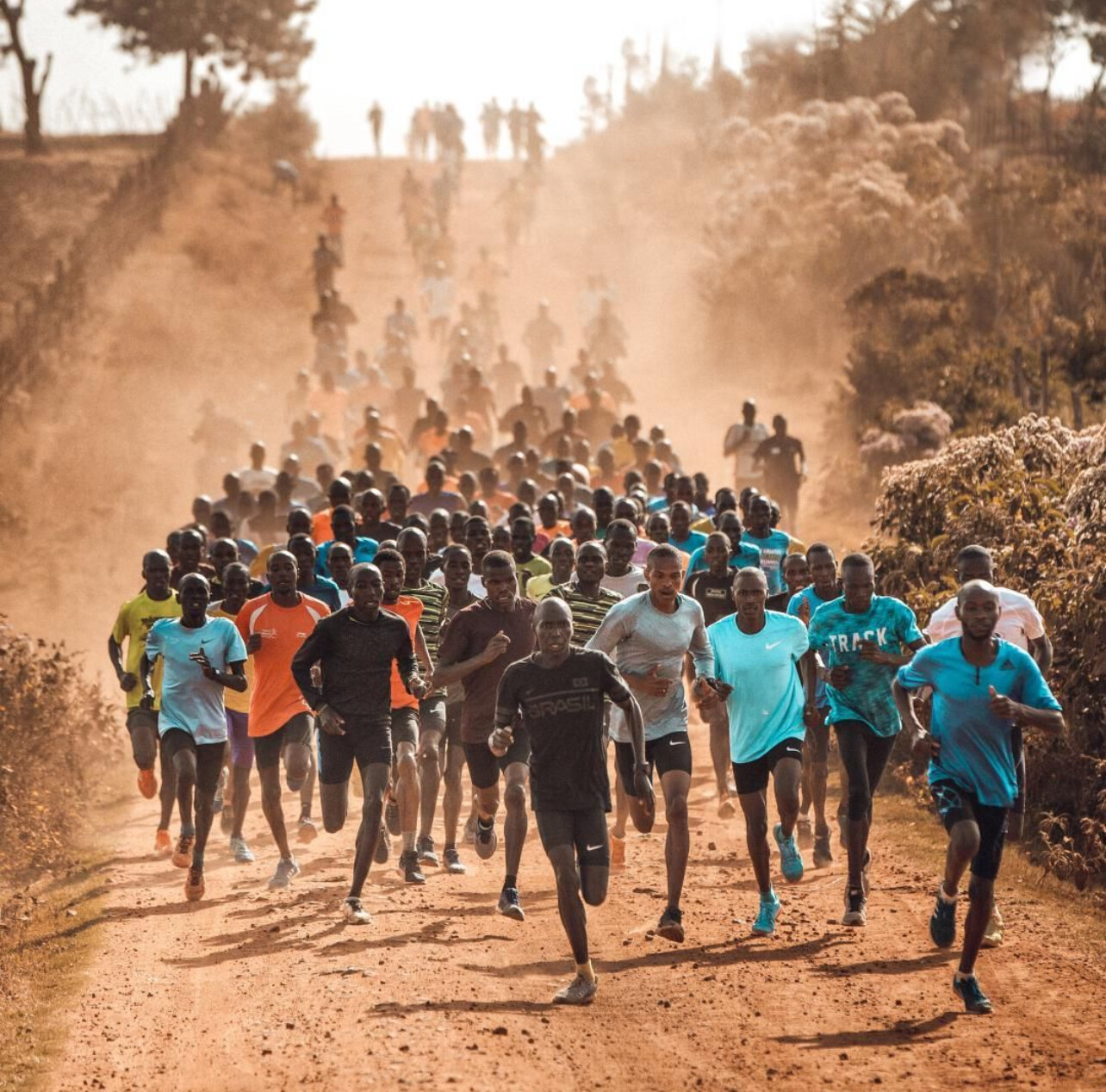
2. Track Workouts in Eldoret
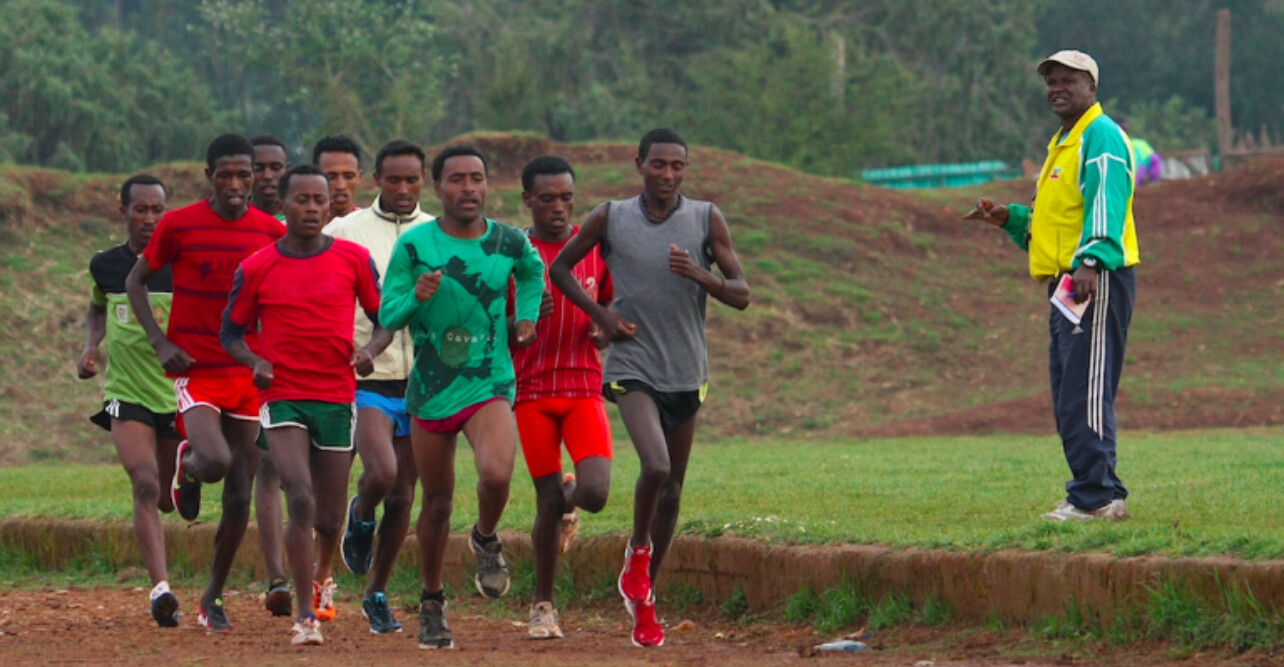
Kenyan marathon runners engaging in interval training at the athletics track in Eldoret, highlighting their emphasis on group cohesion and endurance.
(Photos) Ethiopian Training in Bekoji and Sululta
3. Group Training in Bekoji
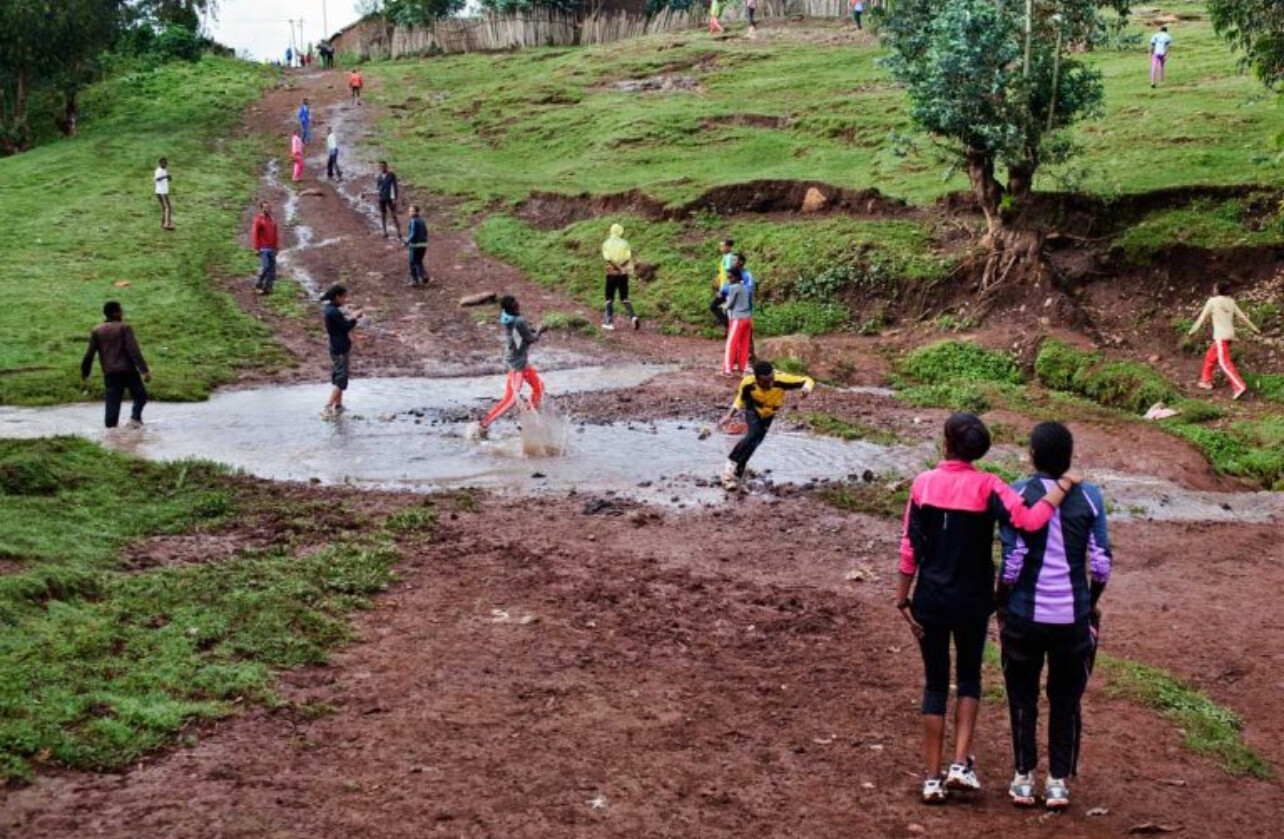
A glimpse into a training session in Bekoji, Ethiopia, showcasing runners on a dirt track, emphasizing their structured and coach-led routines.
4. Trail Running in Sululta
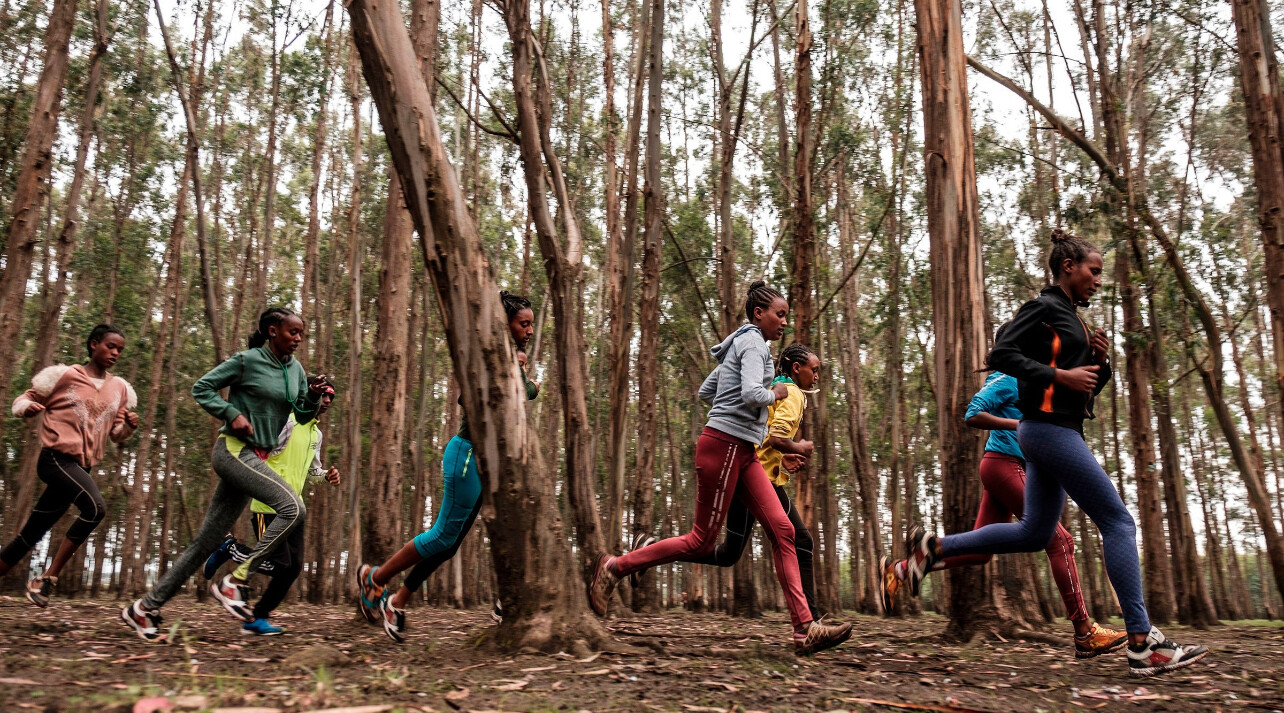
Ethiopian athletes navigating through forested trails in Sululta, reflecting their focus on varied terrains and natural environments.
Fueling for Success
Diet is another point of contrast. Kenyan athletes often eat ugali, a maize-based dish, with sukuma wiki (collard greens) and beans. Meals are consistent, simple, and heavy on carbohydrates. Hydration includes local teas and water, with little emphasis on supplements.
In Ethiopia, injera (a sour flatbread made from teff) is the foundation, served with protein-rich stews like shiro or doro wat. Teff is rich in iron and slow-digesting carbs—making it a valuable fuel for endurance.
Cultural and Coaching Influence
In Kenya, many athletes are inspired by runners from their own village or region—legends like Eliud Kipchoge or David Rudisha have inspired thousands. Training is often passed down through generations informally.
In Ethiopia, there’s a more centralized coaching system and support from the national federation. Greats like Haile Gebrselassie and Kenenisa Bekele have helped shape a more formal pathway from local clubs to the world stage.
Different Roads, Same Finish Line
Despite the differences, the results speak for themselves: both countries continue to dominate. Kenya may have the edge in the marathon, while Ethiopia consistently excels in 10K and track events. Together, they’ve redefined what’s possible in distance running.
by Boris Baron
Login to leave a comment
Breaking the Two-Hour Marathon: Could London 2025 Be the Stage?
The marathon world has long been captivated by the elusive sub-two-hour barrier. While Eliud Kipchoge’s 1:59:40 in Vienna 2019 showcased human potential, it occurred under controlled conditions and isn’t recognized as an official world record. As the 2025 TCS London Marathon approaches on April 27, the question arises: Could this be the race where history is officially rewritten?
The Elite Field: A Convergence of Legends and Rising Stars
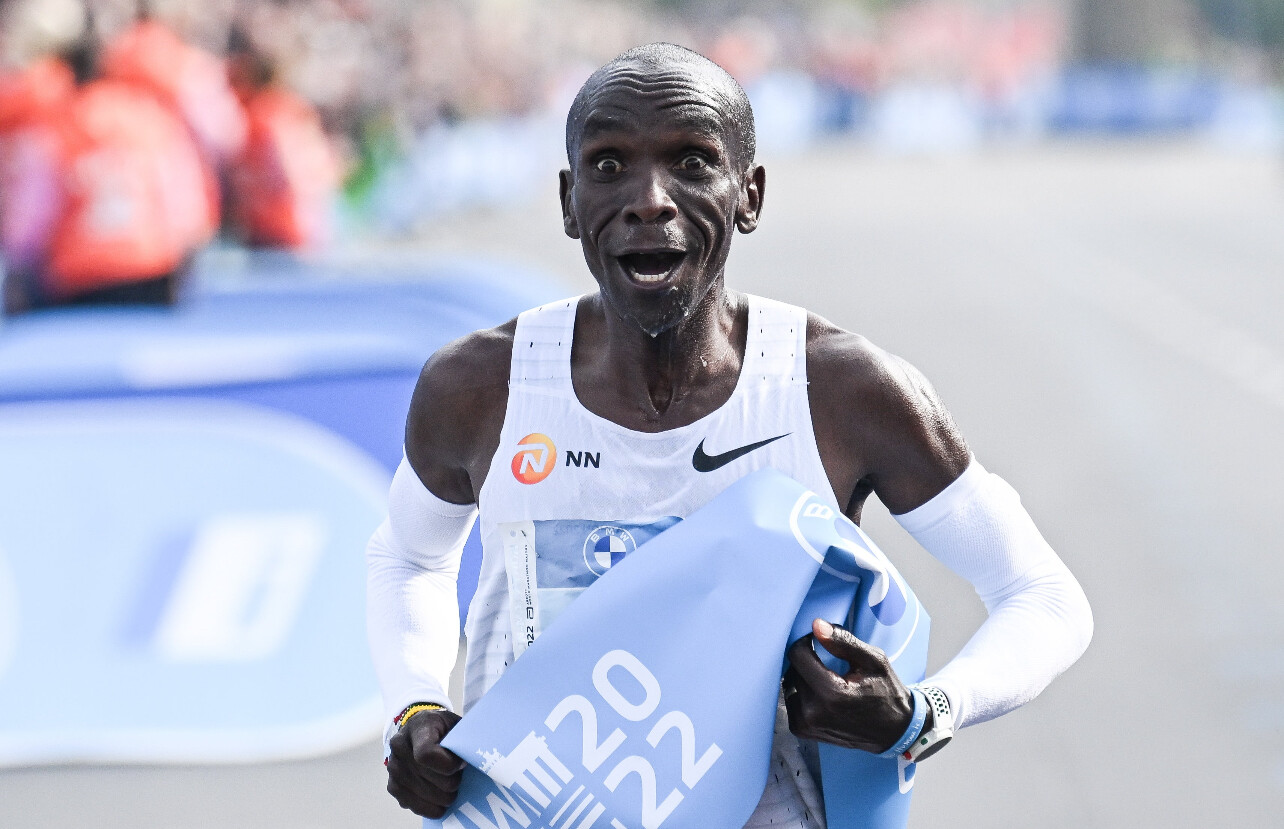
London’s 2025 lineup is arguably its most formidable yet. Eliud Kipchoge, the four-time London champion and former world record holder (2:01:09), returns to a course he has dominated. Joining him is Kenenisa Bekele, the third-fastest marathoner ever (2:01:41), seeking redemption after a close second-place finish in 2024. The field also features Olympic champion Tamirat Tola, reigning London champion Alexander Mutiso, and debutant Jacob Kiplimo, who holds the half marathon world record at 56:42.
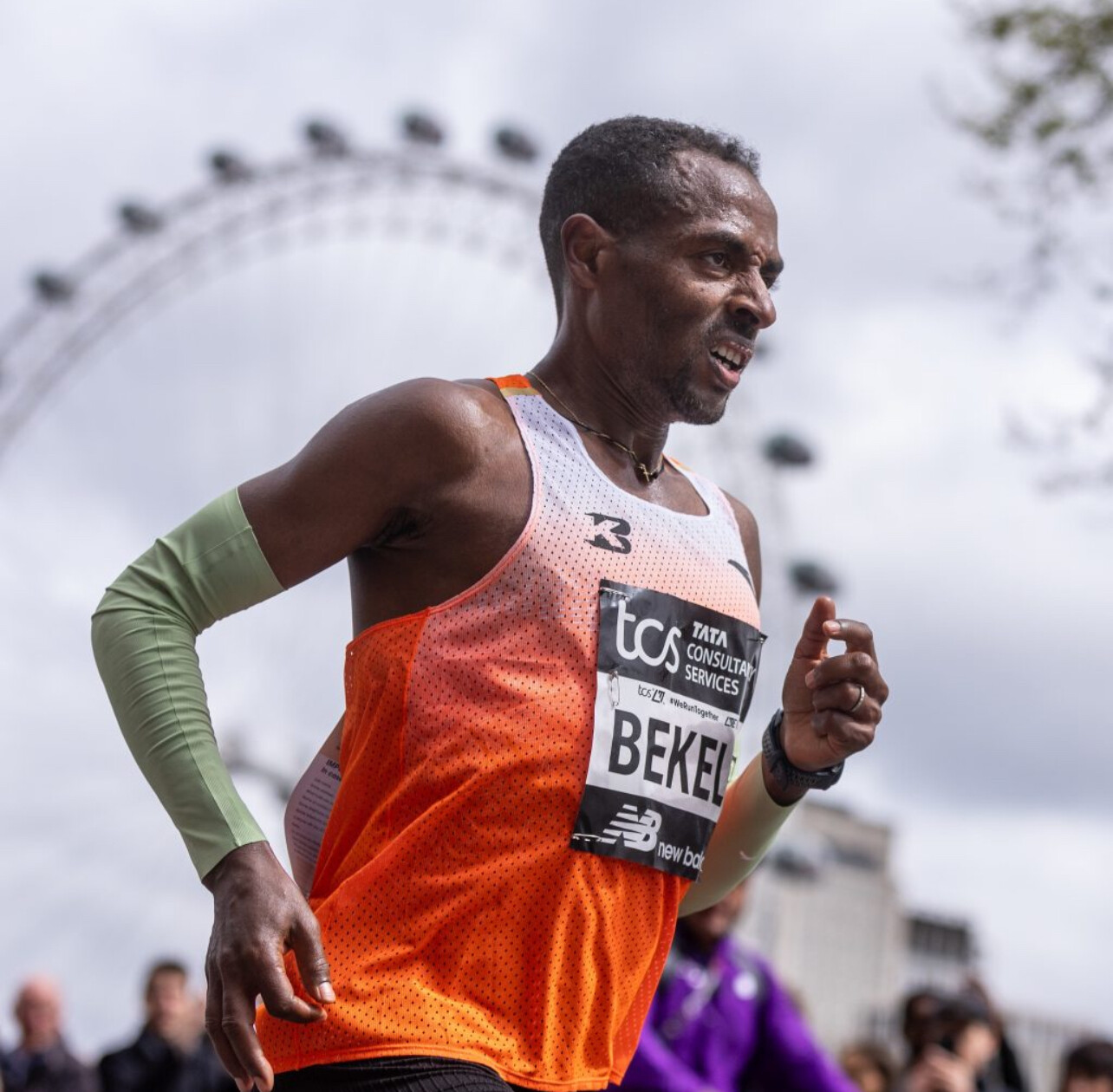
“The elite field for London is loaded, but my pick (if I must) is Jacob Kiplimo after watching him destroy the half marathon record,” says MBR editor Bob Anderson. “But the marathon is a different animal, and a sub-two-hour marathon is very possible. However, the weather will need to be perfect, and Jacob needs to have an ‘on’ day for it to happen. He might just go for the win. I wonder how his training has differed in preparation?”
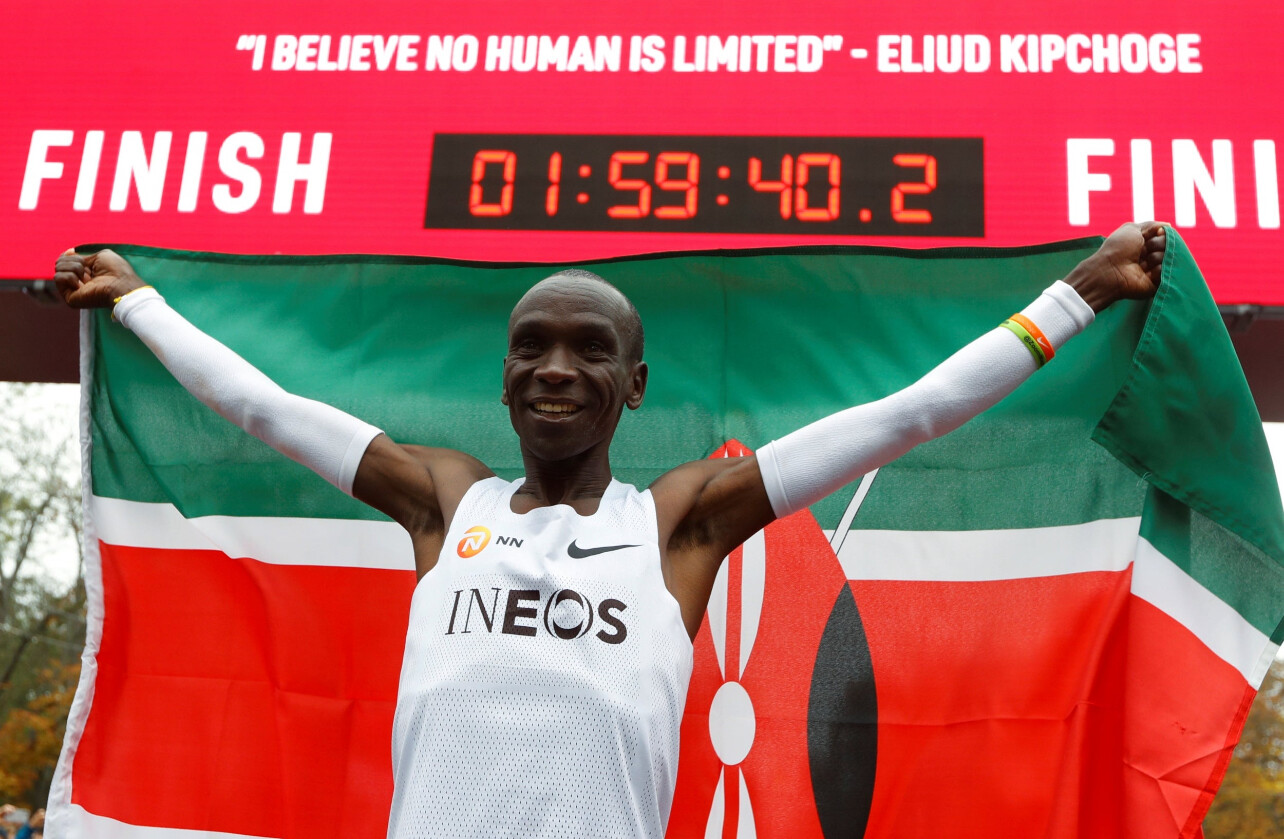
Course and Conditions: London’s Favorable Terrain
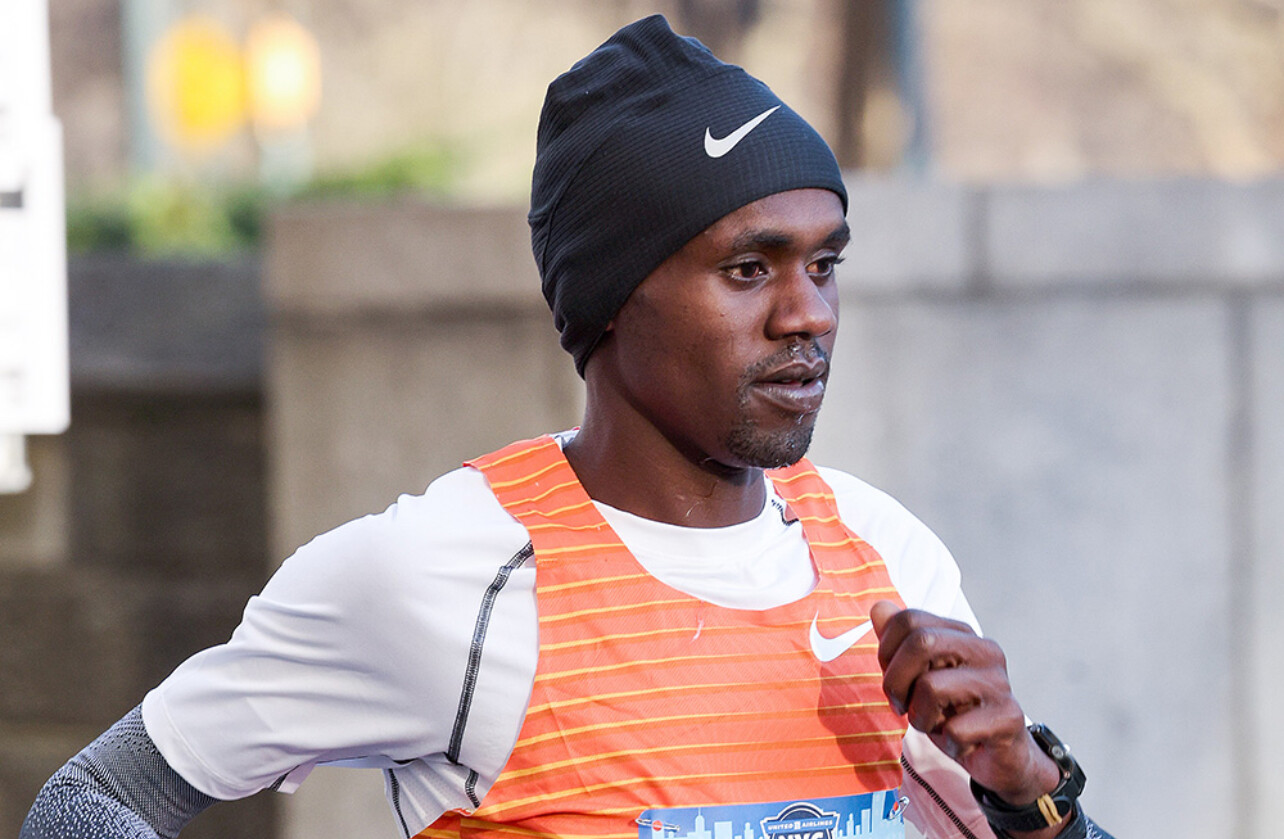
The London Marathon’s flat and fast course, combined with its sea-level altitude, provides an ideal setting for record-breaking attempts. The 2025 weather forecast predicts partly cloudy skies with temperatures ranging from 45°F to 56°F (7°C to 13°C) and minimal wind—conditions conducive to fast times.
Technological Advancements: The Role of Innovation
Modern advancements, notably in footwear technology, have played a significant role in recent marathon performances. The latest “super shoes” offer enhanced energy return, potentially shaving crucial seconds off elite runners’ times. Additionally, strategic pacemaking and optimized nutrition strategies are integral components in the pursuit of the sub-two-hour marathon.
The Verdict: Is Sub-Two Within Reach?
While the convergence of elite talent, favorable course conditions, and technological support makes the prospect enticing, breaking the two-hour barrier in an official race remains a monumental challenge. However, if ever there was a race poised to witness such a historic feat, the 2025 London Marathon stands as a prime candidate.
Stay tuned to My Best Runs for comprehensive coverage of the London Marathon and insights into the evolving landscape of elite distance running.
by Boris Baron
Login to leave a comment
TCS London Marathon
The London Marathon was first run on March 29, 1981 and has been held in the spring of every year since 2010. It is sponsored by Virgin Money and was founded by the former Olympic champion and journalist Chris Brasher and Welsh athlete John Disley. It is organized by Hugh Brasher (son of Chris) as Race Director and Nick Bitel...
more...Amanal Petros - From Refugee to Record-Breaker, Eyes Set on London Marathon Glory
German marathon record-holder Amanal Petros is preparing for a significant milestone in his athletic career as he sets his sights on the 2025 London Marathon, scheduled for April 27, 2025. This event will mark his inaugural participation in the London Marathon, where he will compete alongside an elite field featuring renowned athletes such as Eliud Kipchoge and Kenenisa Bekele. Petros’s personal best of 2:04:58, achieved at the 2023 Berlin Marathon, positions him as a formidable contender in this prestigious race.
A Journey of Resilience and Achievement
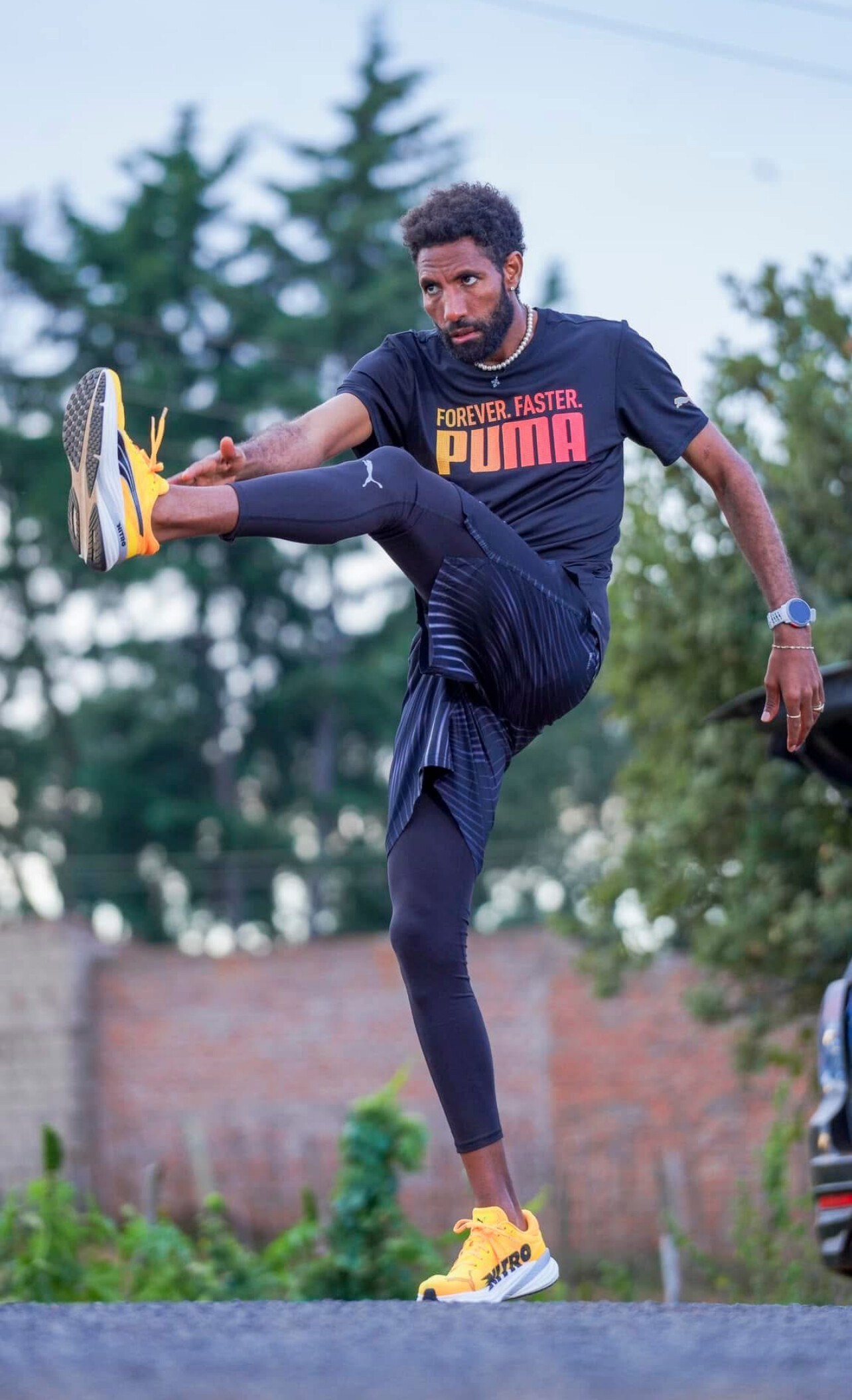
Born on May 17, 1995, in Assab, Eritrea, Petros’s early life was marked by adversity. At the age of two, his family fled the Eritrean-Ethiopian conflict, seeking refuge in Ethiopia. In 2012, as a teenager, Petros embarked on a journey to Germany, where he sought asylum and eventually acquired citizenship in 2015. It was in Germany that he discovered his passion and talent for long-distance running, setting the stage for a series of remarkable achievements.
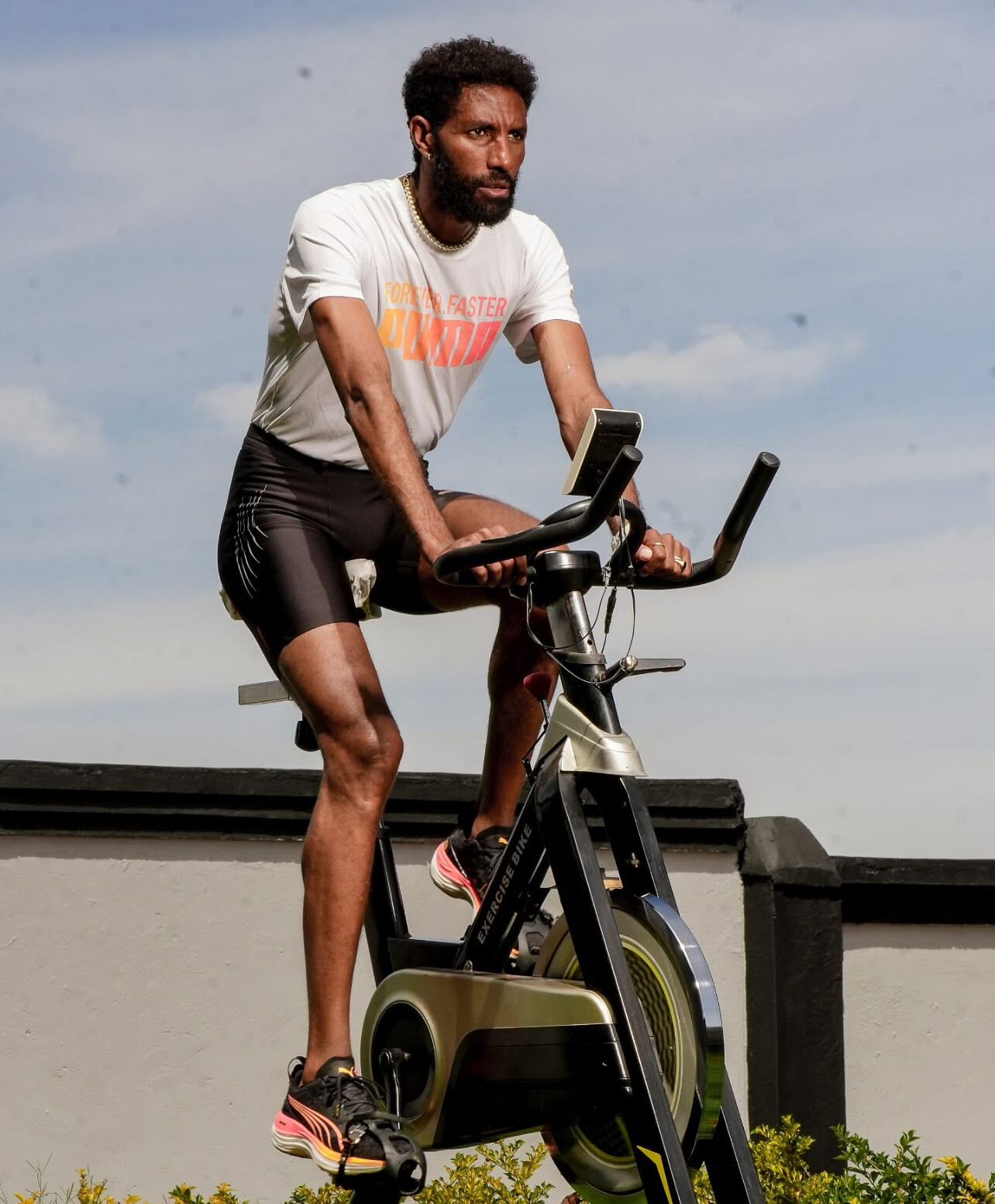
Record-Breaking Performances
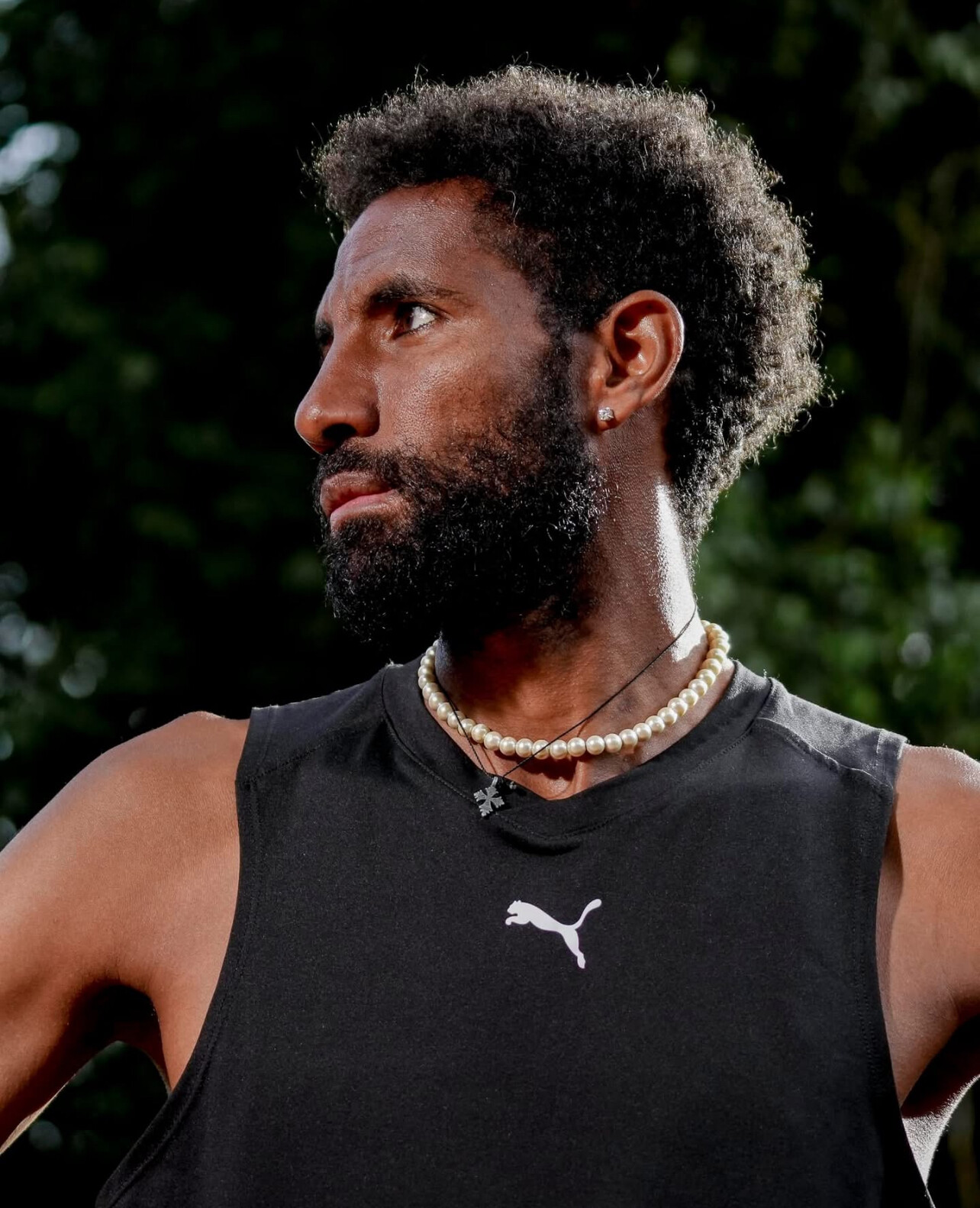
Petros’s dedication and perseverance have led to several national records:
• Marathon: German national record of 2:04:58, set at the 2023 Berlin Marathon.
• Half Marathon: National record of 1:00:09, achieved in Valencia on October 24, 2021.
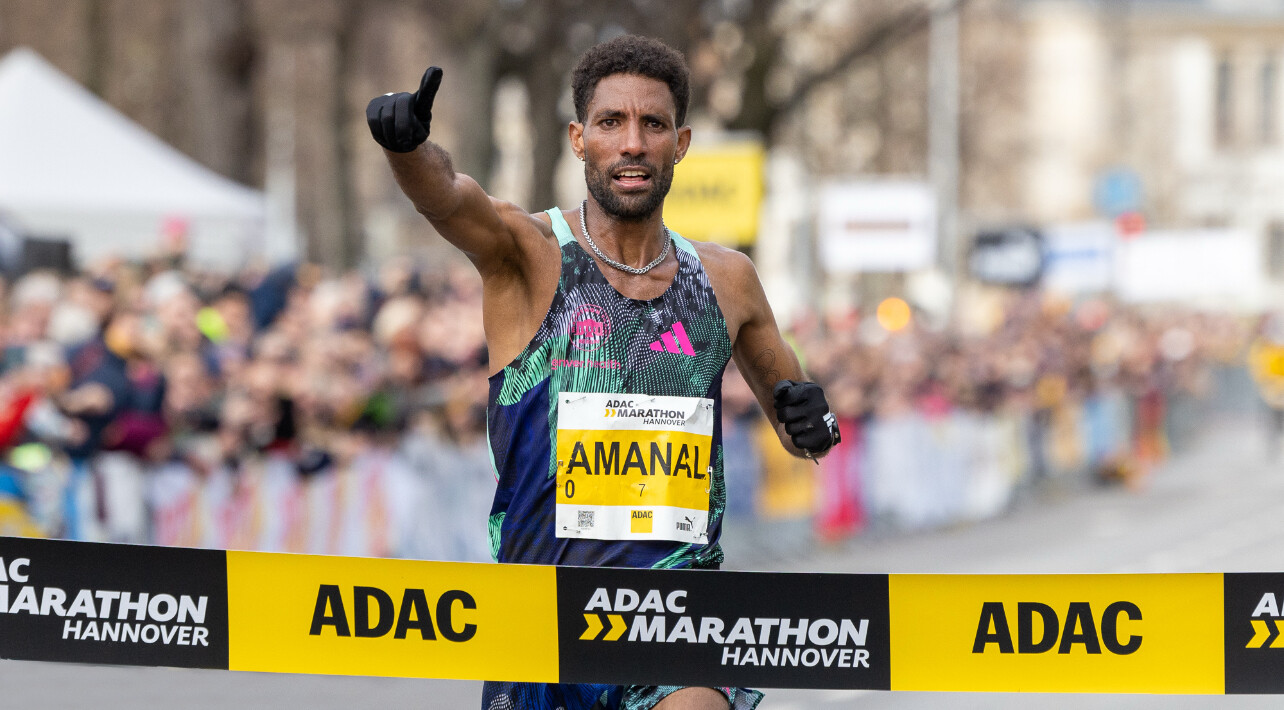
• 10 km Road Race: National record of 27:32, set in Castellón, Spain, on February 26, 2023.
International Representation
Petros has proudly represented Germany on the international stage:
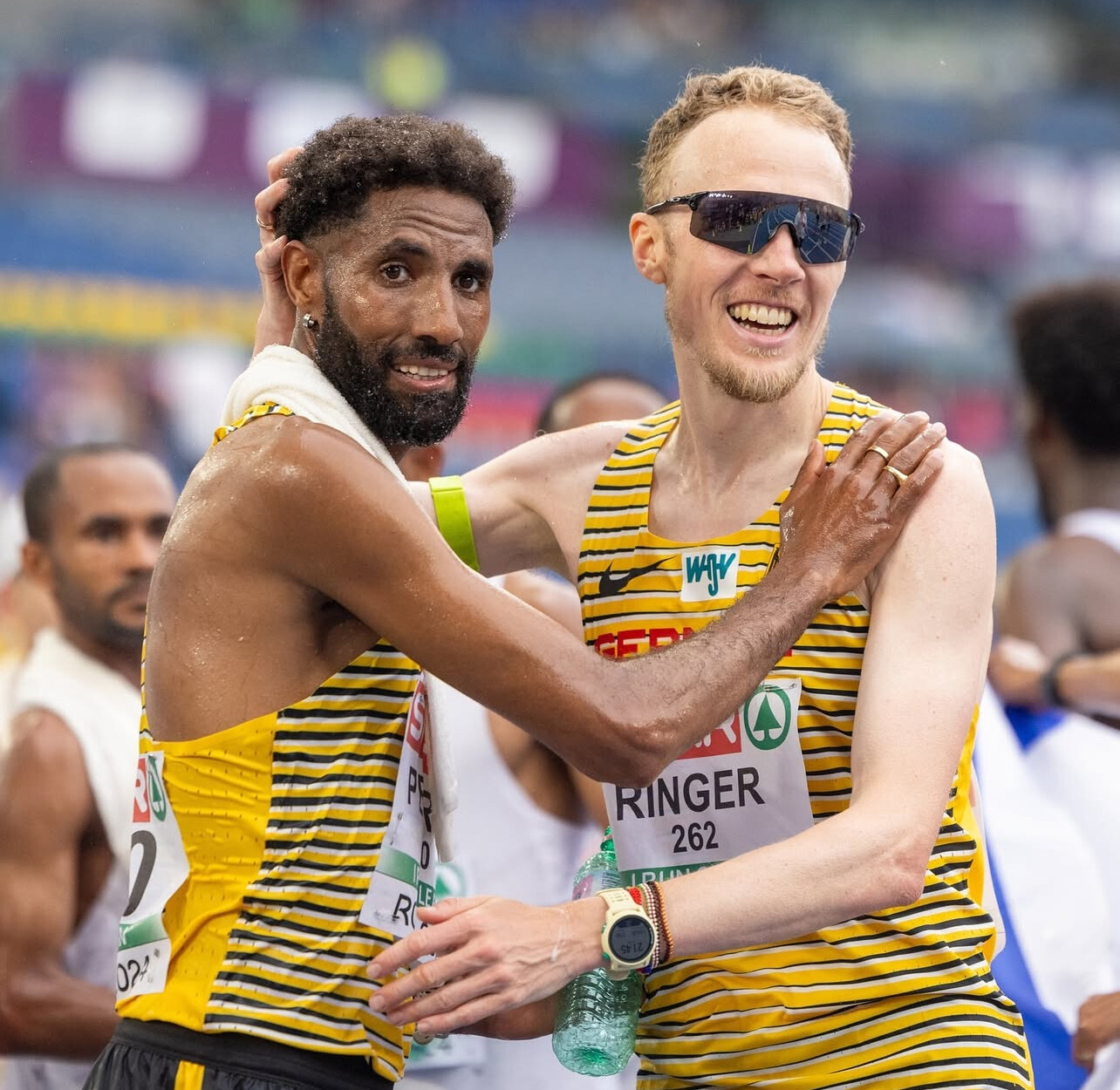
• Olympic Games: Competed in the men’s marathon at the 2020 Tokyo Olympics, finishing 30th.
• European Championships: Secured a silver medal in the team marathon event and placed fourth individually at the 2022 European Athletics Championships in Munich.
Recent Preparations and Professional Milestones
In preparation for the London Marathon, Petros participated in the eDreams Mitja Marató Barcelonaon February 16, 2025, completing the half marathon in 1:01:51. Reflecting on his performance, he stated:
“Today I ran quite far from my German record, but I am happy to run my first competition in 61:50 after the Olympic Games in Paris. Looking forward to my first marathon in London 2025.”
In addition to his athletic endeavors, Petros has recently joined the Puma Running Team, expressing enthusiasm about this new partnership and the opportunities it presents for the upcoming seasons.
Looking Ahead
As the 2025 London Marathon approaches, the running community eagerly anticipates Petros’s performance. His journey from a refugee seeking asylum to a national record-holder exemplifies resilience and determination. With his eyes set on London, Petros continues to inspire and set new benchmarks in long-distance running.
The last photo
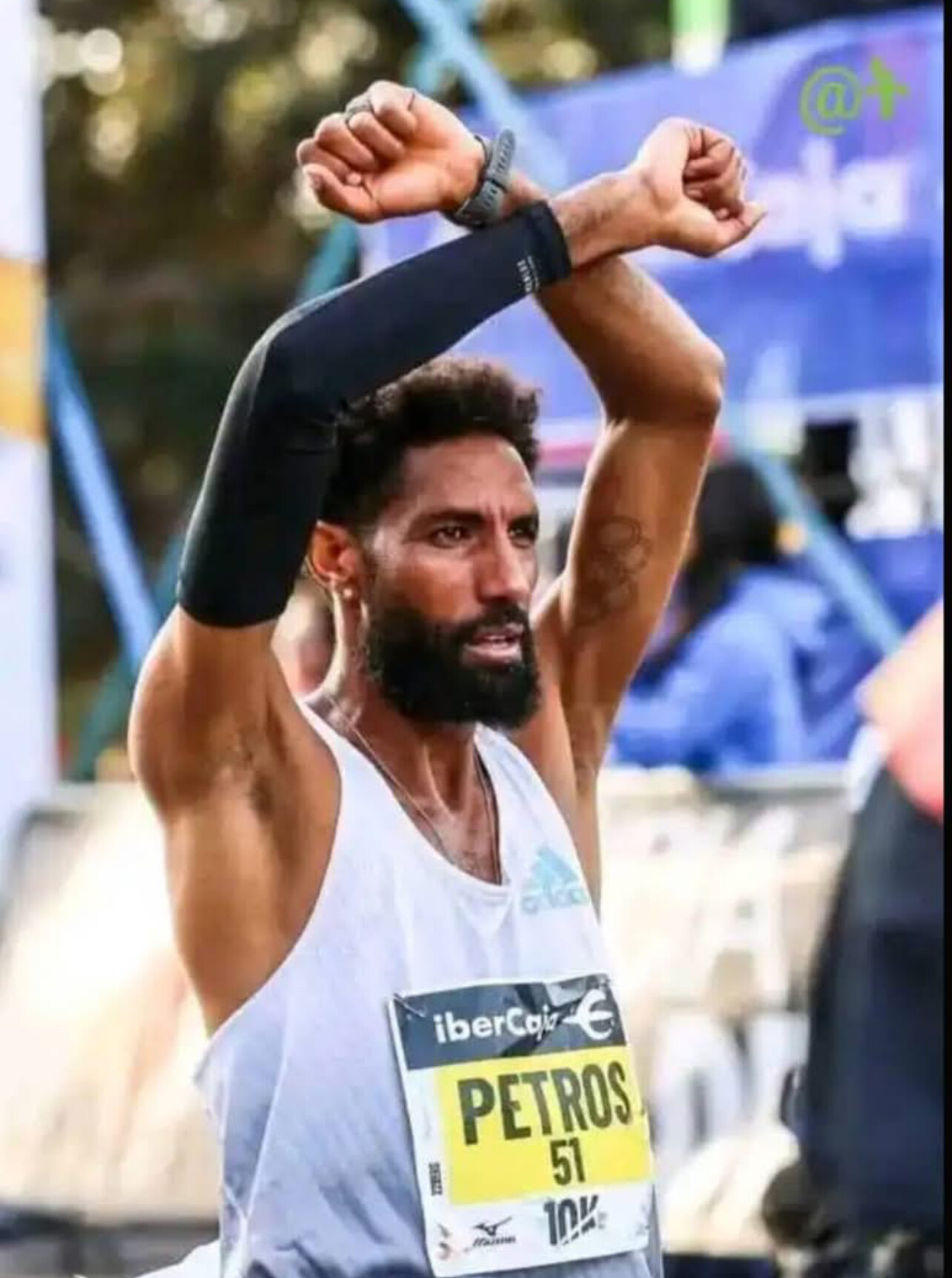
The gesture Amanal Petros is making in this photo — crossing his arms above his head — is a powerful and symbolic act. He does not do this gesture often but his beliefs have not changed.
This “X” gesture has been widely recognized as a sign of solidarity with the Tigray people in northern Ethiopia. It’s used by athletes and others to bring attention to the humanitarian crisis and conflict in the region, where countless civilians have suffered due to war, famine, and displacement.
Petros, who was born in Eritrea and whose roots are in Tigray, is using this moment at the finish line to make a public statement of support and raise awareness.
by Boris Baron
Login to leave a comment
Jacob Kiplimo’s Marathon Debut: Pursuing the Sub-Two-Hour Barrier at the London Marathon
Jacob Kiplimo, the 24-year-old Ugandan distance running sensation, has recently captured global attention with his record-breaking performances. His upcoming marathon debut at the 2025 London Marathon has sparked widespread speculation: Could Kiplimo be the first to officially break the elusive two-hour marathon barrier?
A Record-Breaking Prelude
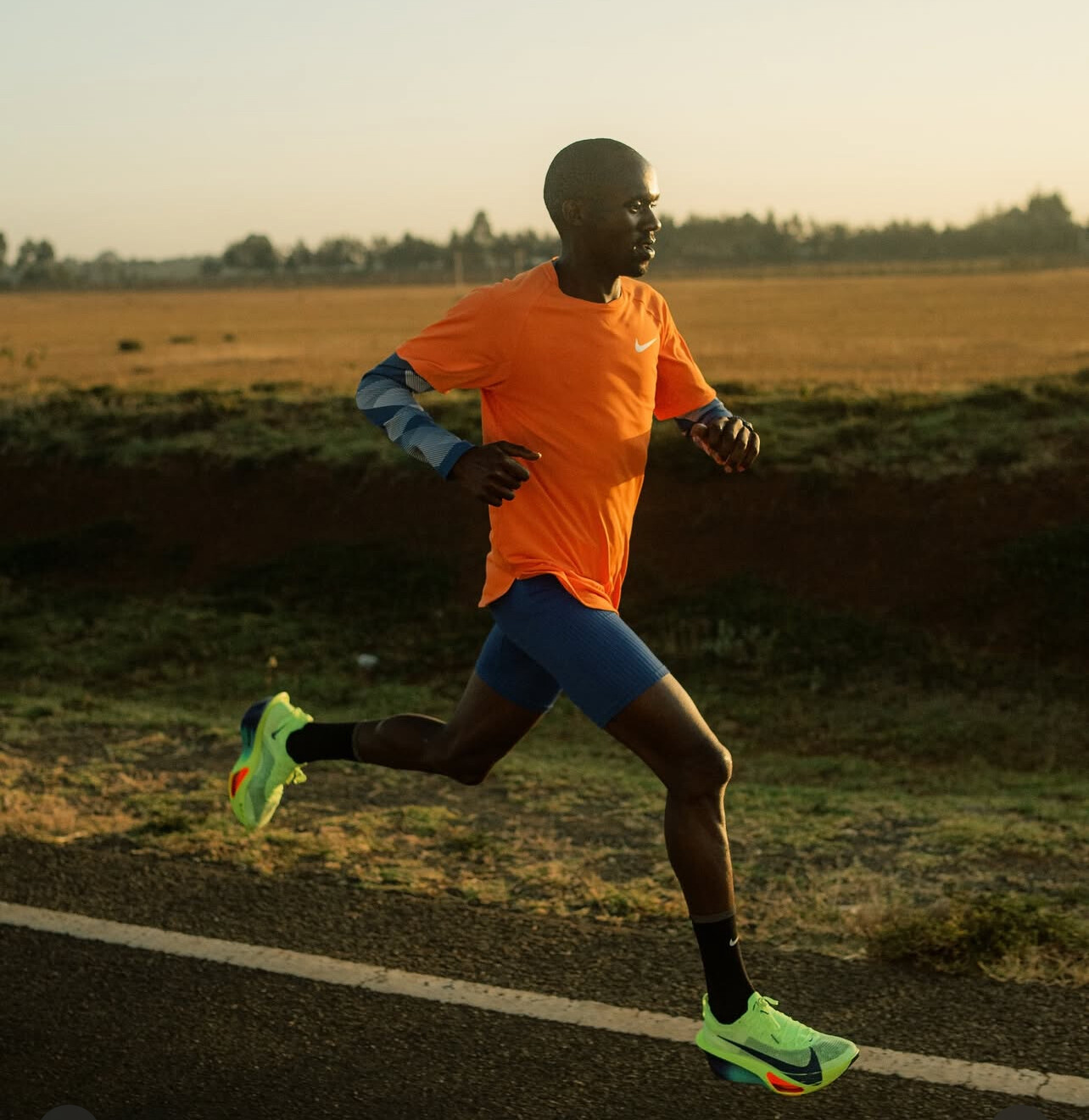
In February 2025, Kiplimo shattered the half marathon world record at the Barcelona Half Marathon, clocking an astonishing 56 minutes and 42 seconds. This feat not only eclipsed the previous record by 48 seconds but also showcased his exceptional endurance and speed. Reflecting on his performance, Kiplimo remarked, “I didn’t expect to break the world record… I told myself that I had to maintain that pace no matter what it took.”
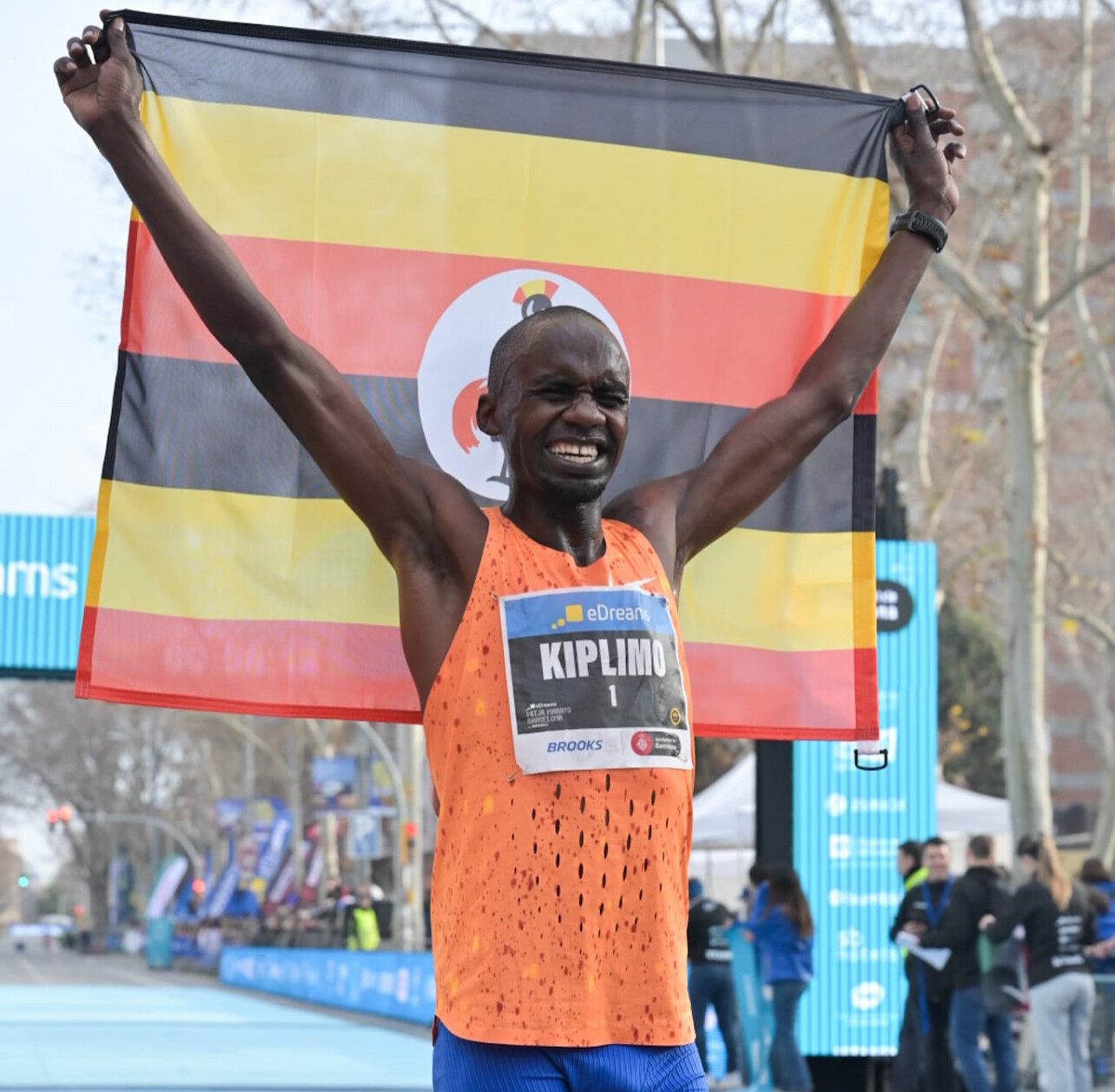
Training Regimen: Balancing Quality and Volume
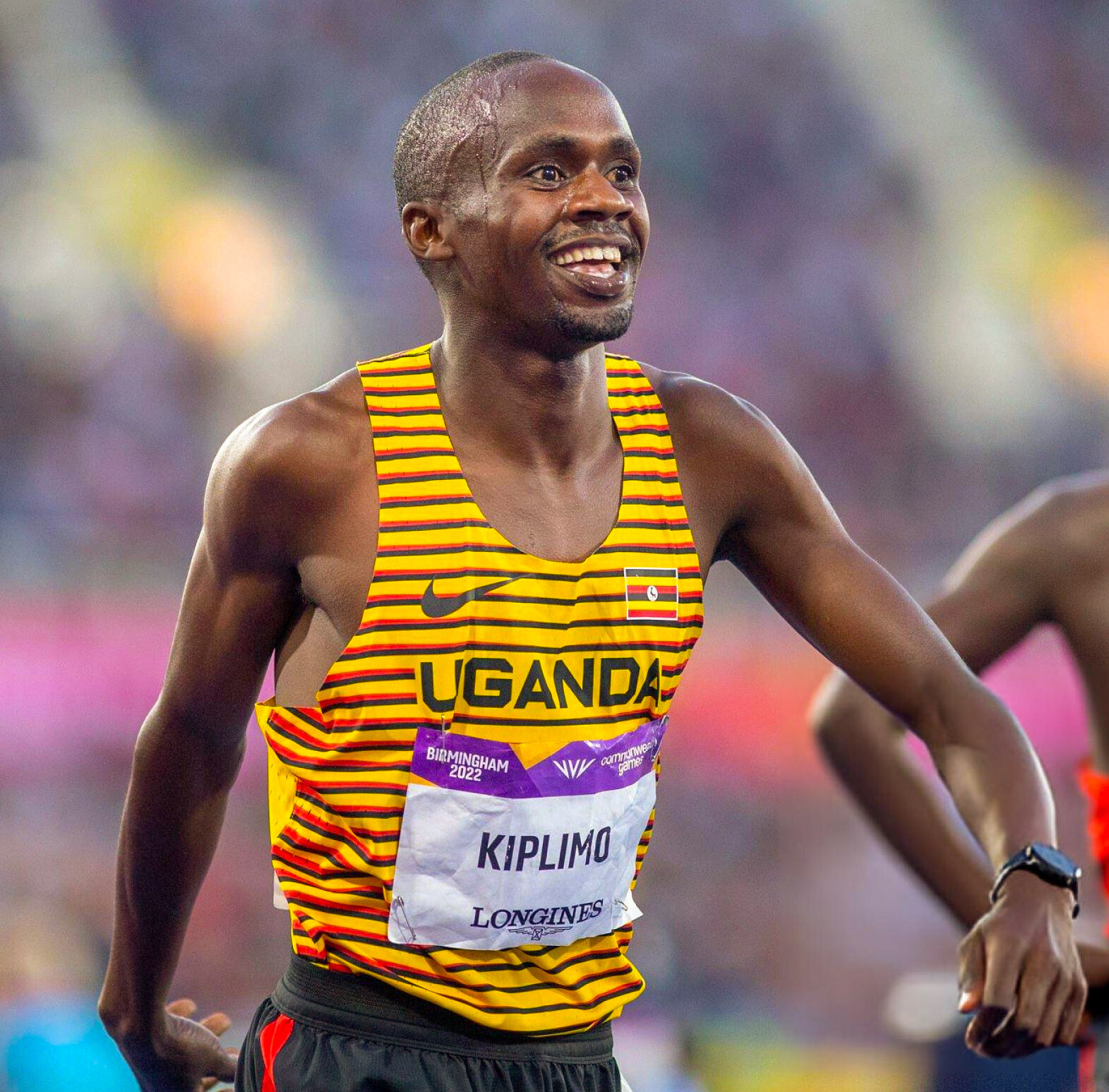
Kiplimo’s training approach emphasizes quality over sheer volume. Reports indicate that he typically runs between 80 to 95 miles per week, incorporating fartlek sessions, hill workouts, and threshold runs. His coach prioritizes structured, scientifically-based training, focusing on improving speed and personal bests before transitioning fully to marathon distances.
Assessing the Sub-Two-Hour Possibility
While Kiplimo’s half marathon performance suggests immense potential, translating that success to a full marathon presents distinct challenges. The physiological demands of 42.195 kilometers require not only speed but also exceptional endurance and energy management. Historically, even elite half marathoners have faced hurdles when moving up to the marathon distance. As noted in discussions about his transition, “His potential over 42.2km is massive, but marathon success isn’t just about being fast over 21.1km and doubling the effort.”
Strategic Considerations for London
Kiplimo’s race strategy for the London Marathon remains a topic of speculation. Given his aggressive approach in Barcelona, where he took the lead early and maintained a blistering pace, it’s plausible he might adopt a similar tactic in London. However, the marathon’s extended distance and the presence of seasoned competitors like Eliud Kipchoge and Kenenisa Bekele may influence a more measured strategy. Experts suggest that starting with a conservative pace could be advantageous, allowing Kiplimo to conserve energy for the latter stages of the race. Bob Anderson, founder of Runner’s World magazine and the Kenyan Athletics Training Academy, emphasizes the importance of early pacing:
“The marathon is twice the distance as the half, but to go under two hours Kiplimo has to be in good enough shape to push early,” says Bob Anderson. “He showed us in Barcelona he has the guts to do it. However, he has to be on that day, the temperature has to be perfect and with no wind. It can happen.”
Community and Expert Insights
The running community is abuzz with predictions. Some enthusiasts believe that with optimal conditions, Kiplimo could achieve a sub-two-hour marathon. One commentator expressed, “With the right course and good weather, this guy is going to do a sub 2 hour marathon. Amazing!” However, others urge caution, emphasizing the unpredictability of marathon debuts and the need for experience over the full distance.
Looking Ahead to London
As the London Marathon approaches, all eyes will be on Kiplimo. His performance will not only provide insights into his marathon potential but also indicate whether the sub-two-hour barrier can be breached in an official race setting. While optimism surrounds his debut, the marathon’s unique demands mean that even athletes of Kiplimo’s caliber must approach the challenge with respect and strategic preparation.
While Jacob Kiplimo’s transition to the marathon is highly anticipated, breaking the two-hour barrier in his debut remains a formidable challenge. His journey will undoubtedly captivate the running world, offering a compelling narrative of talent, preparation, and the relentless pursuit of athletic excellence.
by Boris Baron
Login to leave a comment
TCS London Marathon
The London Marathon was first run on March 29, 1981 and has been held in the spring of every year since 2010. It is sponsored by Virgin Money and was founded by the former Olympic champion and journalist Chris Brasher and Welsh athlete John Disley. It is organized by Hugh Brasher (son of Chris) as Race Director and Nick Bitel...
more...Moh Ahmed Makes Half Marathon Debut A New Chapter for Canadas Distance Running Star
For elite runners, moving up in distance as they age is a natural progression History has shown this with legends like Kenenisa Bekele Haile Gebrselassie and Eliud Kipchoge all of whom transitioned from middle distance events to dominate the 5000m 10000m and eventually the marathon Now following a similar trajectory Canadian distance running star Moh Ahmed is set to make his highly anticipated half marathon debut at the United Airlines NYC Half Marathon on Sunday March 16 2025
From the Track to the Roads
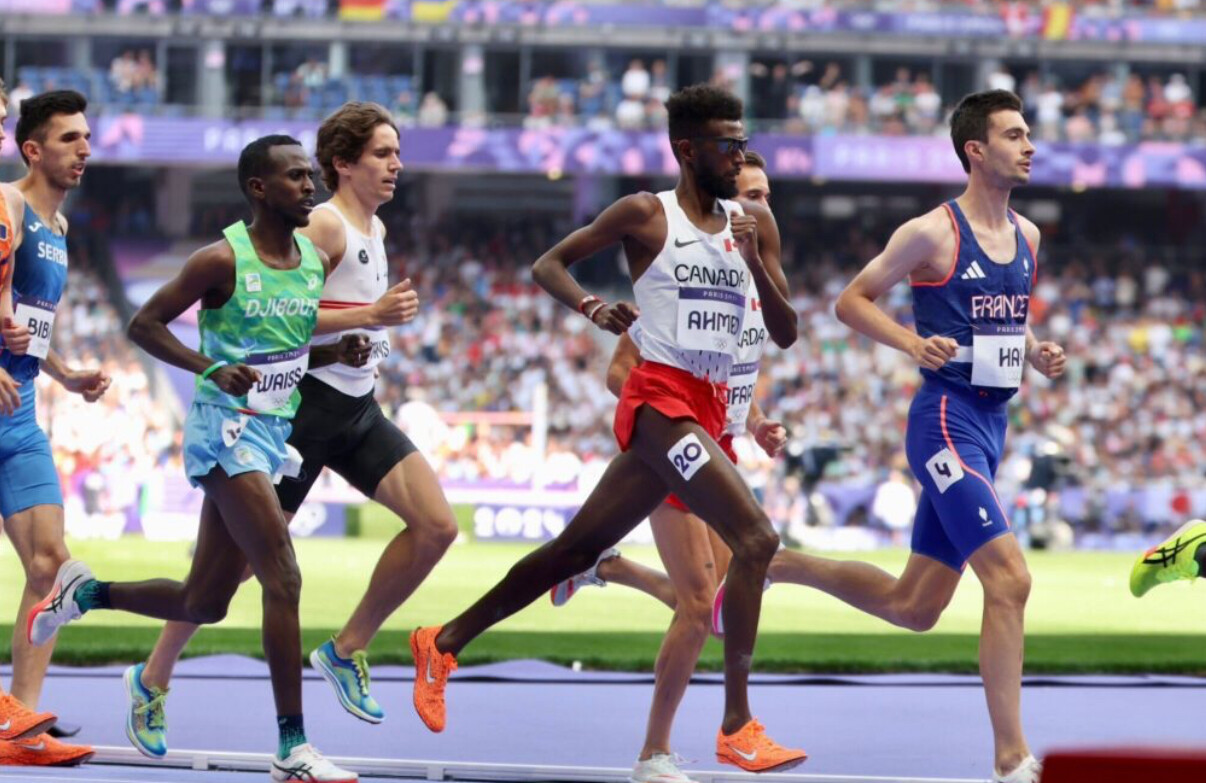
Ahmed a native of St Catharines Ontario has been a force in international athletics for over a decade He has built an impressive résumé earning
• Olympic Glory Silver in the 5000m at the Tokyo 2020 Olympics
• World Championship Medals Bronze in the 5000m at the 2019 and 2022 World Championships
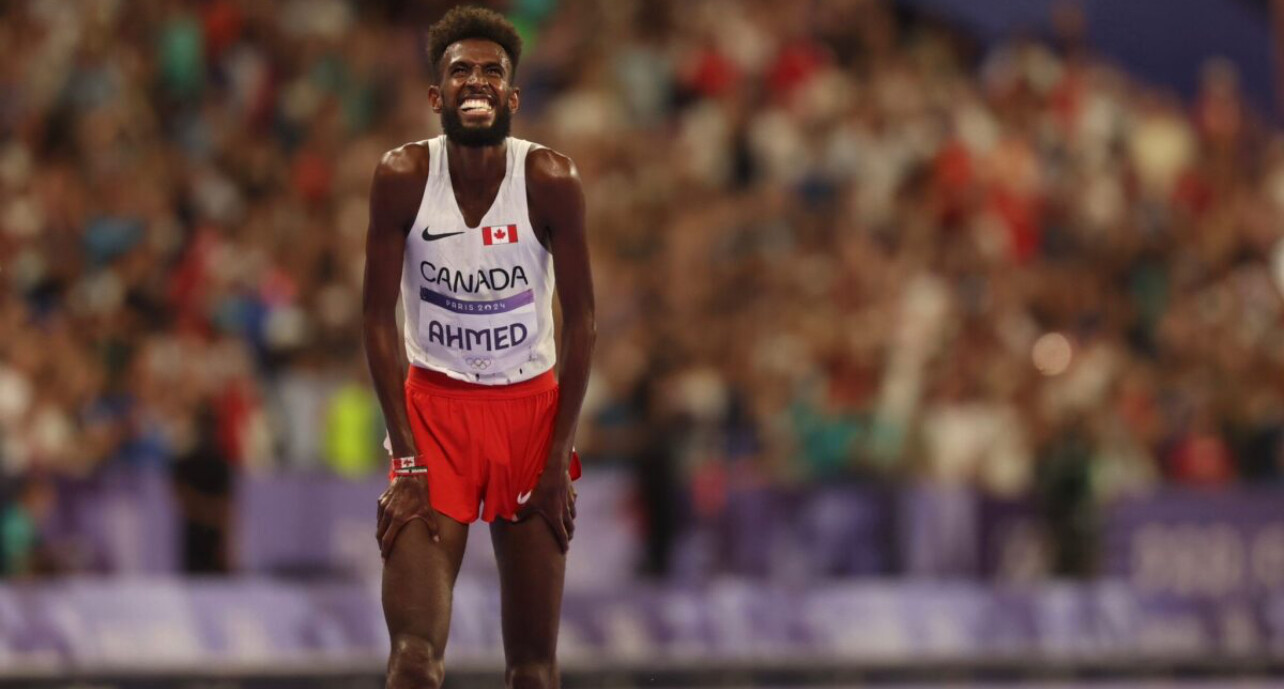
• National Records Holding Canadian records in the 5000m 124720 and 10000m 263414
As he transitions from the track to road racing Ahmed joins a long list of elite runners who have sought new challenges over longer distances His decision to step up to the half marathon has generated excitement as fans and analysts eagerly anticipate how his track speed will translate to 131 miles
The NYC Half A Premier Road Racing Test
The United Airlines NYC Half Marathon is one of the most prestigious half marathons in the world drawing elite and amateur runners alike The race begins near the Brooklyn Museum passes through Times Square one of the only times the area is closed to traffic for a race and finishes in the heart of Central Park The course presents a challenging mix of hills and fast sections making it an excellent test for Ahmeds road racing debut
Ahmed will face a strong field that includes fellow Canadian Olympian Ben Flanagan a national record holder and a formidable competitor in the event The race will be a major test of Ahmeds endurance and strategic racing skills against some of the best long distance runners in the world
Breaking Barriers in the Big Apple
To date only three runners have broken the 60 minute barrier at the NYC Half Marathon a testament to the courses difficulty If Ahmed can challenge this mark in his debut it will further solidify his potential as a future marathon star With a background of blistering track times and world class endurance his performance in New York could signal the beginning of a new era for Canadian distance running
A New Beginning
As Ahmed takes on this new challenge all eyes will be on him to see how he adapts to the demands of road racing Whether this debut is a stepping stone toward future marathon ambitions or simply an exciting new test one thing is certain Moh Ahmeds journey is far from over His transition to the half marathon is just the beginning of another thrilling chapter in his already legendary career
by Boris Baron
Login to leave a comment
United Airlines NYC Half-Marathon
The United Airlines NYC Half takes runners from around the city and the globe on a 13.1-mile tour of NYC. Led by a talent-packed roster of American and international elites, runners will stop traffic in the Big Apple this March! Runners will begin their journey on Prospect Park’s Center Drive before taking the race onto Brooklyn’s streets. For the third...
more...Emile Cairess Withdraws from London Marathon Due to Injury, Halting Record Pursuit
Top British marathoner Emile Cairess has officially withdrawn from the 2025 TCS London Marathon due to a persistent ankle tendon injury that has derailed his training. The setback forces the 27-year-old to put his pursuit of Mo Farah’s British marathon record of 2:05:11 on hold as he focuses on recovery.
Cairess, who burst onto the marathon scene as the fastest British debutant of all time in 2023 with a 2:08:07 finish, had since lowered his personal best to 2:06:46, securing third place in last year’s London Marathon behind Alex Mutiso and Kenenisa Bekele. He followed that success with a fourth-place finish at the Paris Olympics, further solidifying his status as one of Britain’s brightest distance-running stars.

“It’s incredibly disappointing to miss London this year, especially after how well things had been progressing,” Cairess shared. “But the ankle injury has made it impossible to maintain the consistency I need. Right now, my focus is on healing properly so I can come back stronger.”
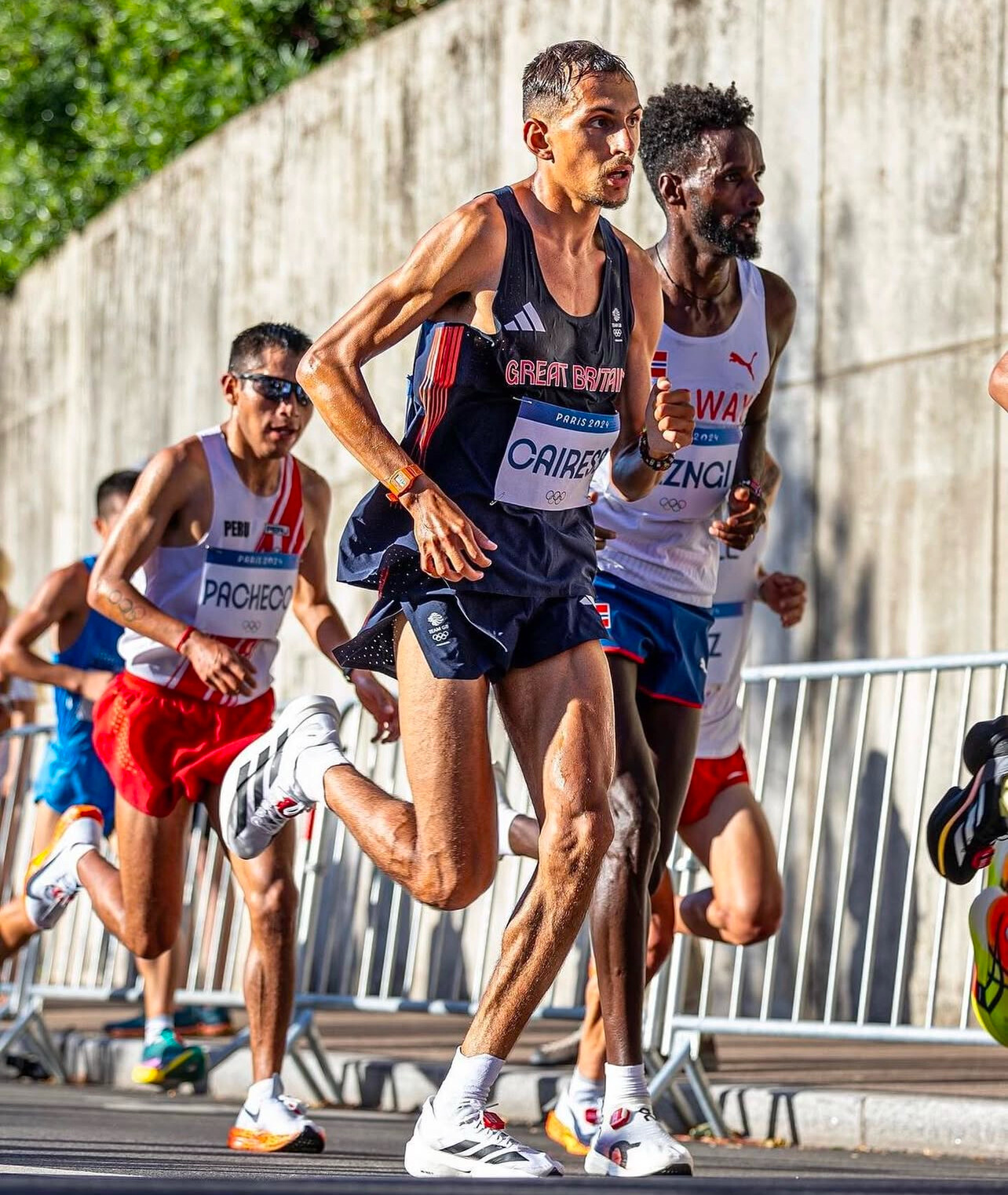
Star-Studded Field Remains
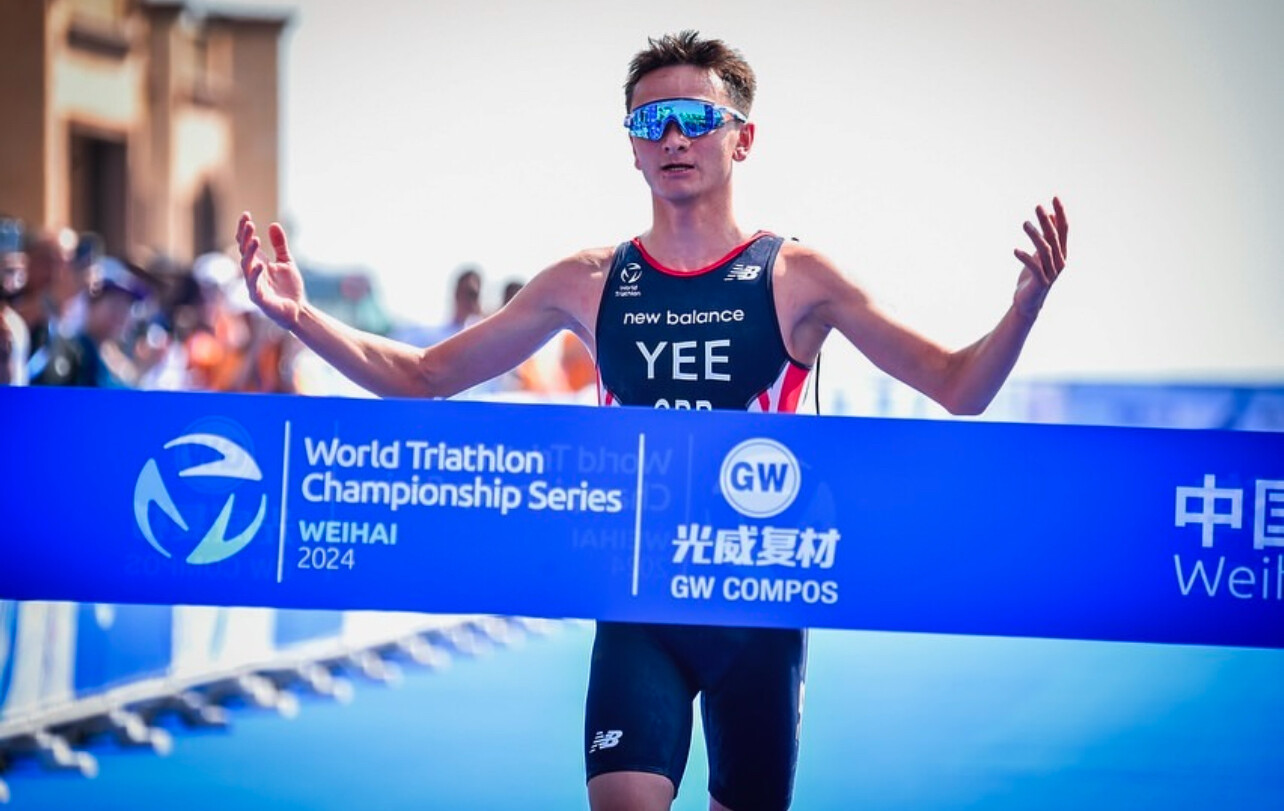
While Cairess’s absence is a blow to British hopes, the men’s elite field remains stacked with talent. Eliud Kipchoge, Kenenisa Bekele, and Olympic champion Tamirat Tola are set to headline the race, joined by world half-marathon record-holder Jacob Kiplimo and defending champion Alex Mutiso.
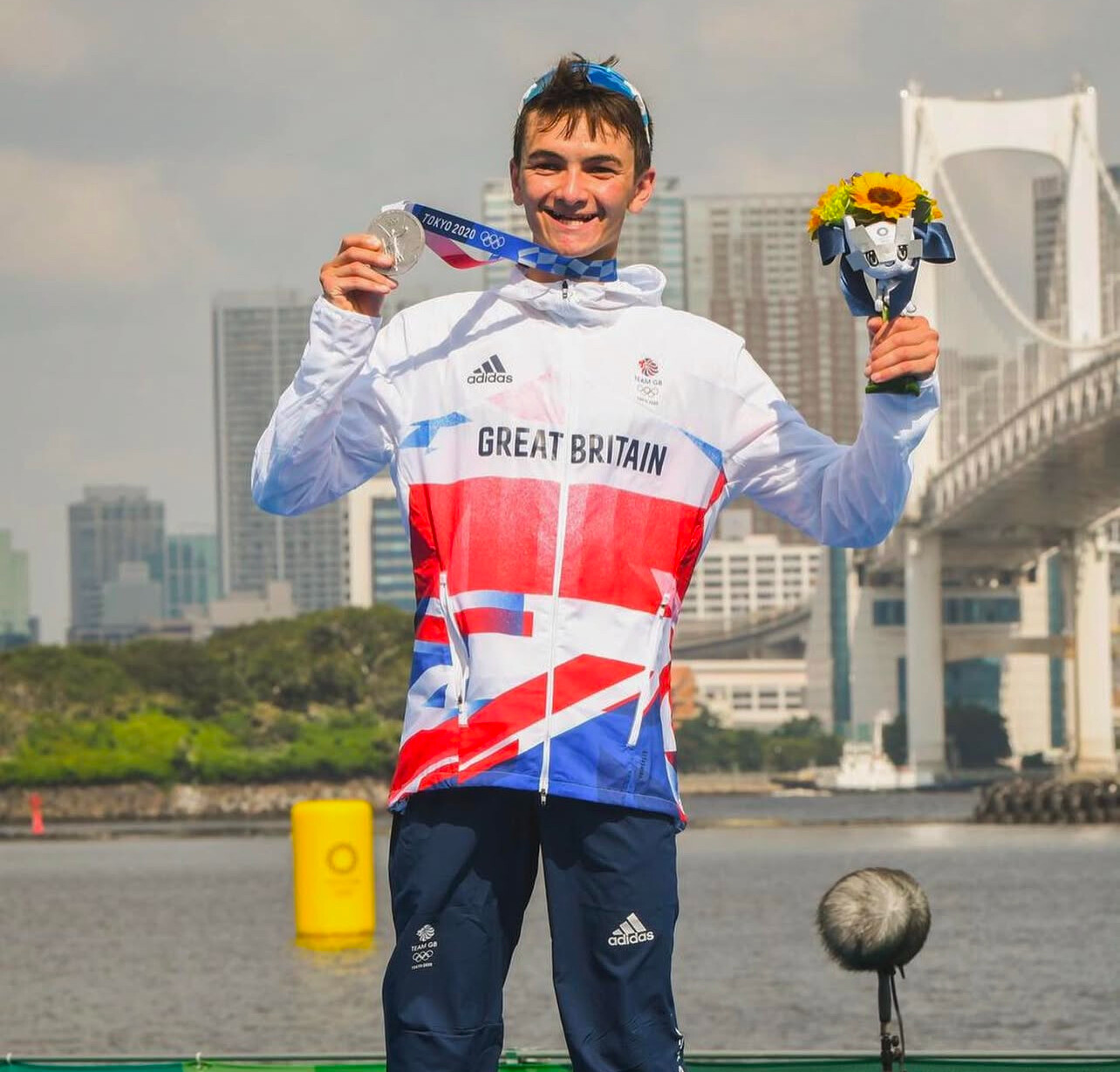
On the British front, Olympic triathlon champion Alex Yee will make his highly anticipated marathon debut, while Mahamed Mahamed and Phil Sesemann, both fresh from the Paris Olympics, aim to make their mark on home soil.
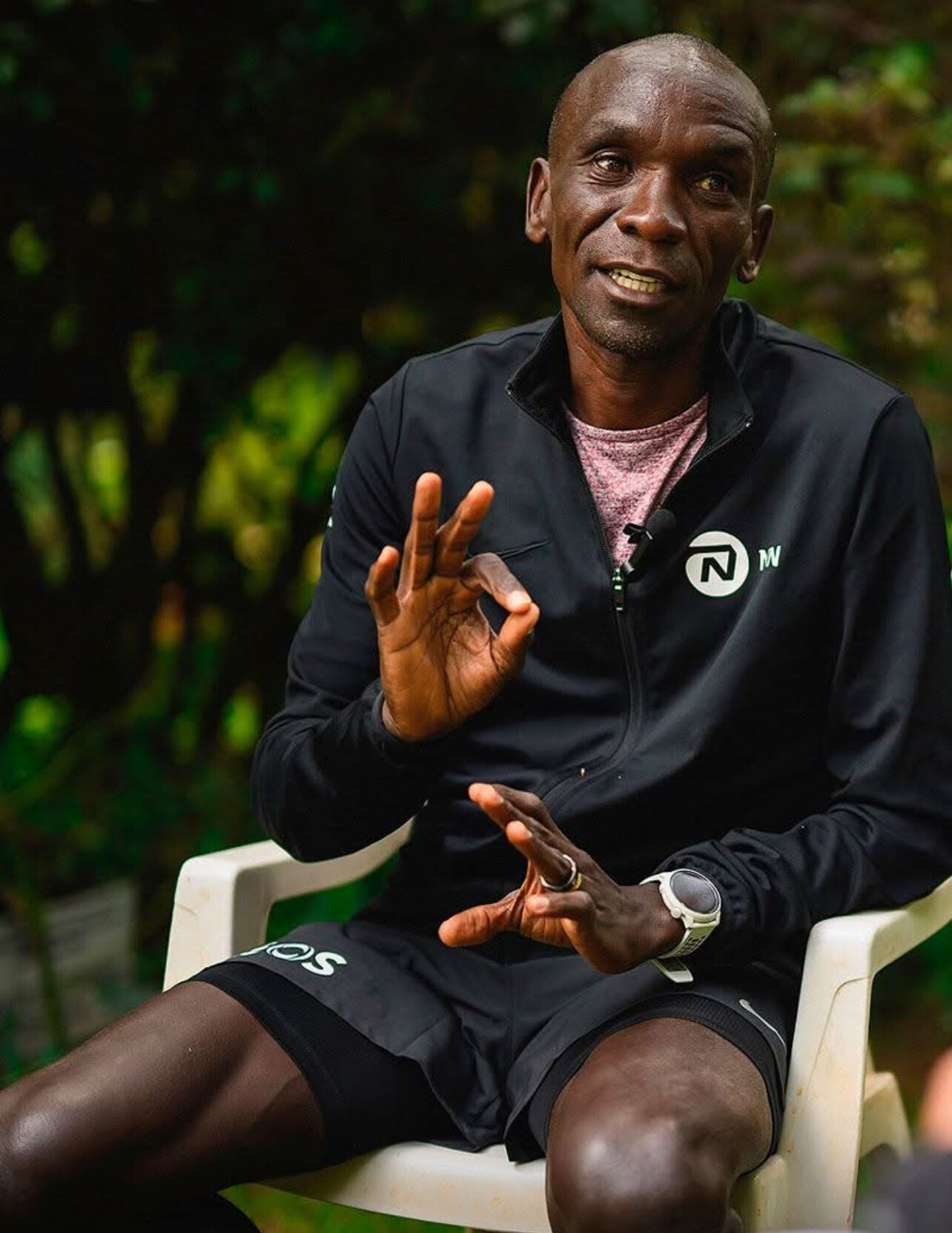
Women’s Elite Race Draws Global Talent
In the women’s race, Lucy Reid has also withdrawn due to injury after initially planning her London debut following a breakthrough 2:26:35 in Malaga last December. However, the competition remains fierce, with world record-holder Ruth Chepngetich, reigning Olympic champion Sifan Hassan, and Tigst Assefa—who famously shattered the Berlin Marathon record—leading the charge.
Adding to the excitement, defending champion Peres Jepchirchir will return, while British star Eilish McColgan is set to make her long-awaited marathon debut, bringing further domestic interest to the race.
While Cairess’s withdrawal is undoubtedly disappointing, the marathon season is far from over. With careful rehabilitation, he remains hopeful for a return later this year, possibly targeting the Berlin or Chicago Marathons as alternative stages for his record pursuit.
The London Marathon, meanwhile, continues to promise world-class performances, with a stellar field ready to light up the streets of the British capital come race day.
Login to leave a comment
2025 London Marathon: Will This Be the Year of the Sub-Two Hour Marathon?
The anticipation for the 2025 London Marathon has reached new heights with the announcement of one of the strongest elite marathon fields ever assembled. This year’s race could witness history: the first-ever sub-two-hour marathon in an official competition. With world-class talent toeing the line and conditions often favorable in London, I'm excited to see how this race unfolds.
Leading the conversation is Jacob Kiplimo, the half marathon world record holder with an astonishing 56:42 recently. Kiplimo didn't need pacers during his world record run. He just went for it clocking unbelievable splits. One of his 10k split would be his best time ever for that distance. And no one had ever run 15k under 40 minutes before. But the marathon is twice the distance. What will his strategy be for London? Will he use his blistering speed over the full 42K and go out on his own or will he stay with the pack for at least the half way point? Going to be interesting to see what that split will be. I am thinking 59 minutes or even faster. Kiplimo might not only win but push the clock into uncharted territory. But there will be so much talent on the starting line.
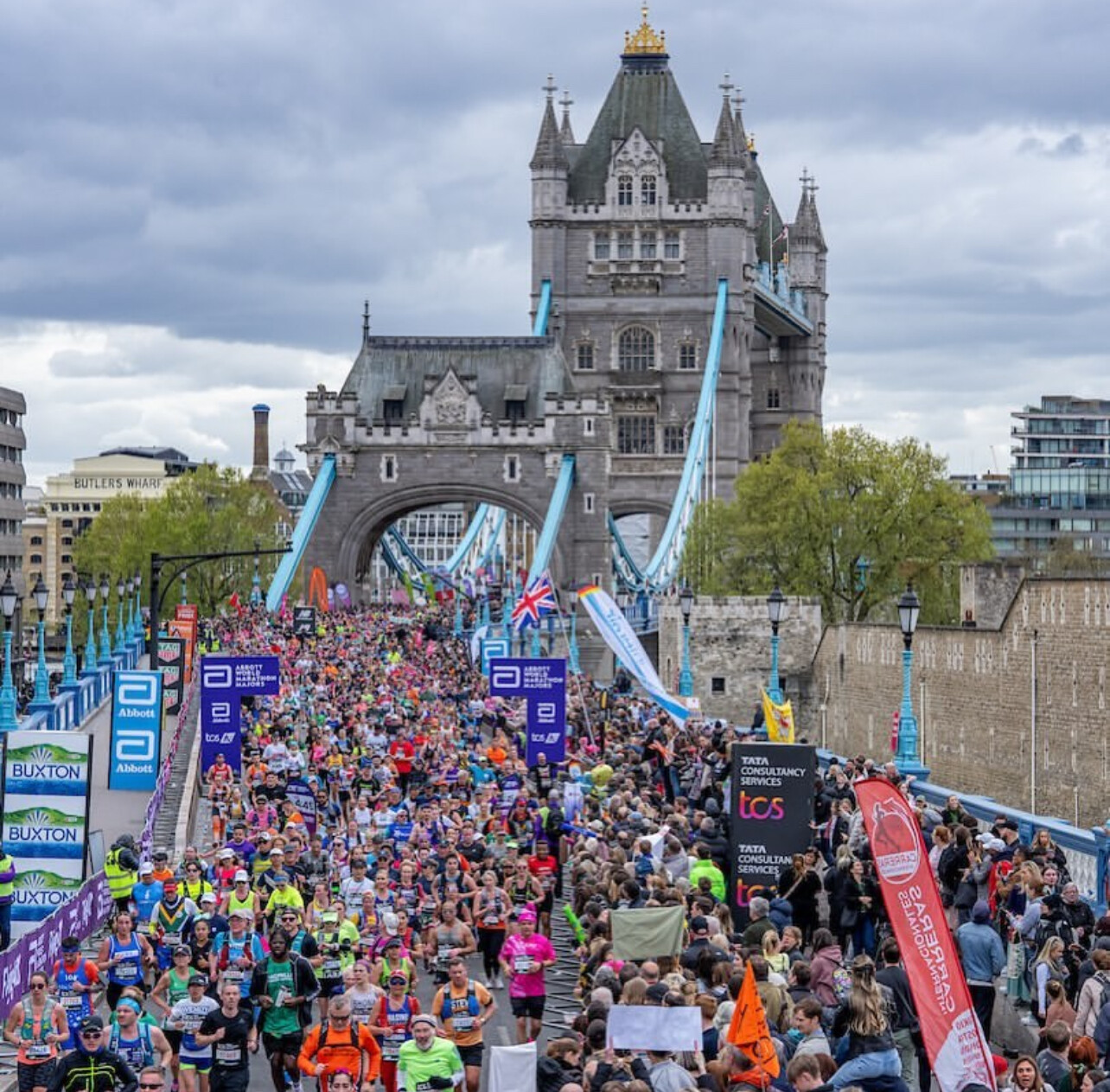
The Favorites: Kiplimo, Bekele, and Kipchoge Lead the Charge
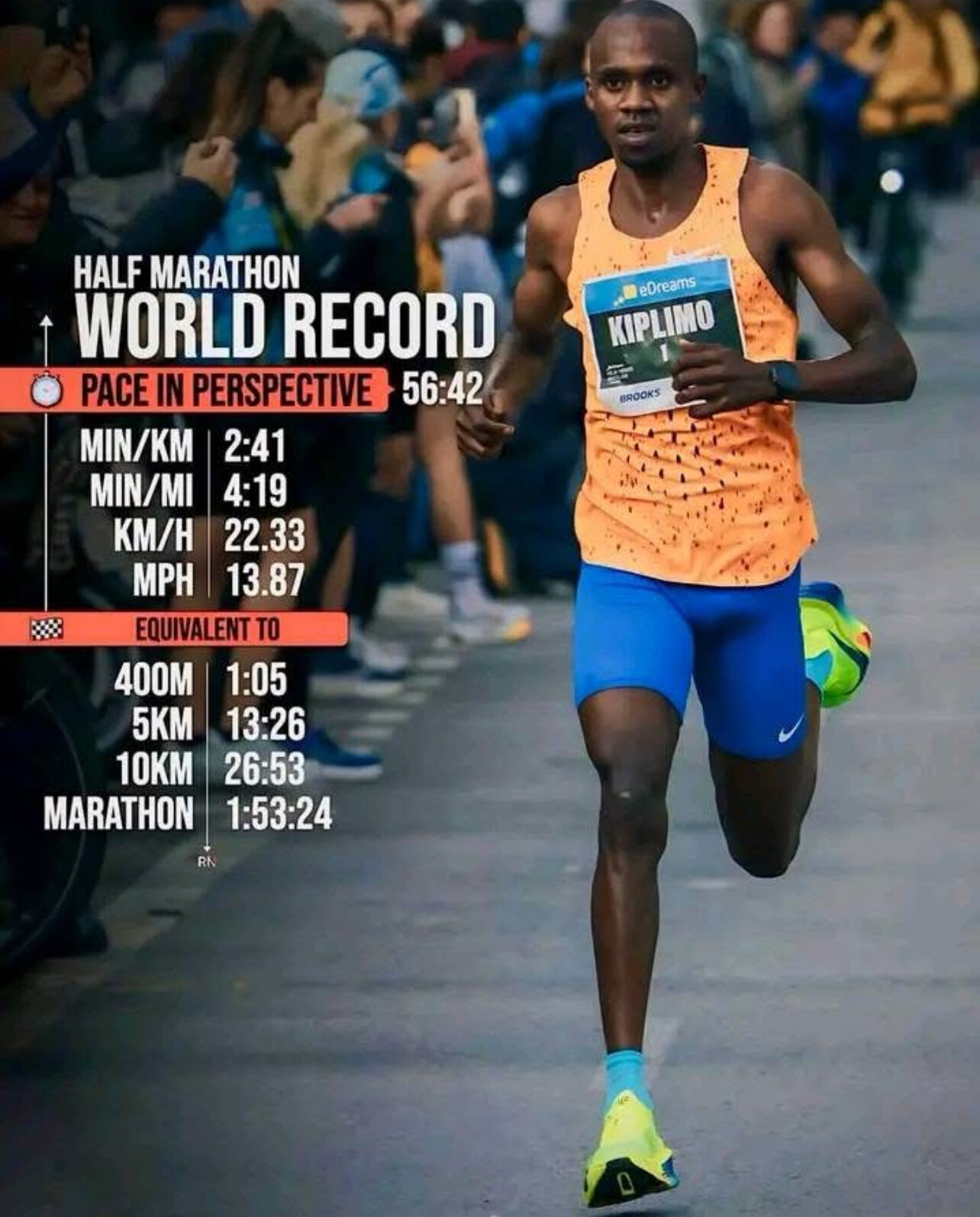
While Kiplimo's marathon debut grabs headlines, legends like Kenenisa Bekele and Eliud Kipchoge are far from conceding victory.
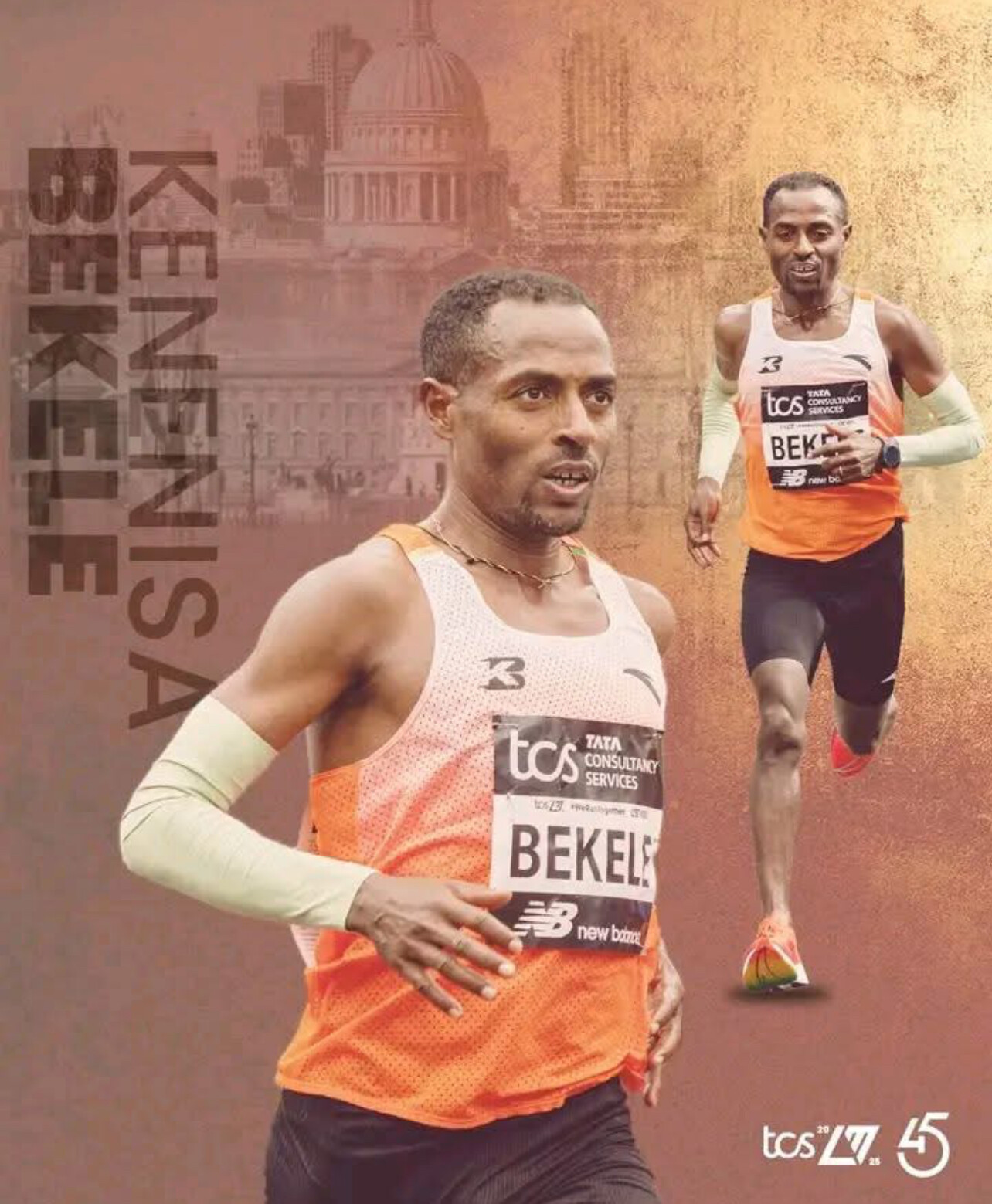
Jacob Kiplimo from Uganda enters London as the favorite, thanks to his incredible speed. The big question is whether he can maintain that pace for twice the distance.
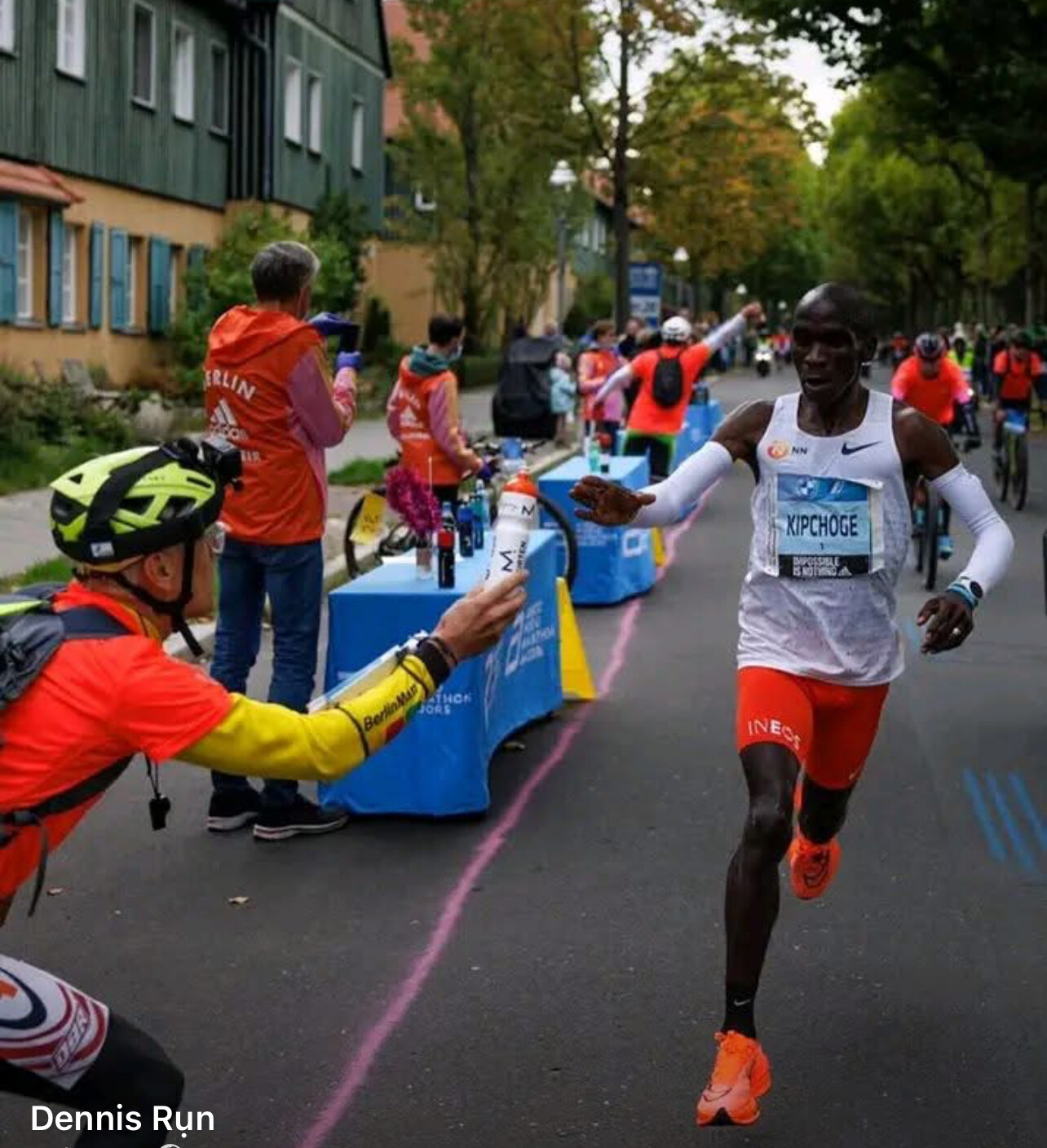
Kenenisa Bekele, with a personal best of 2:01:41, proved last year he’s still elite, setting the Masters world record (2:04:15) in London. Bekele is chasing both victory and history, knowing his window for breaking the two-hour barrier is narrowing.
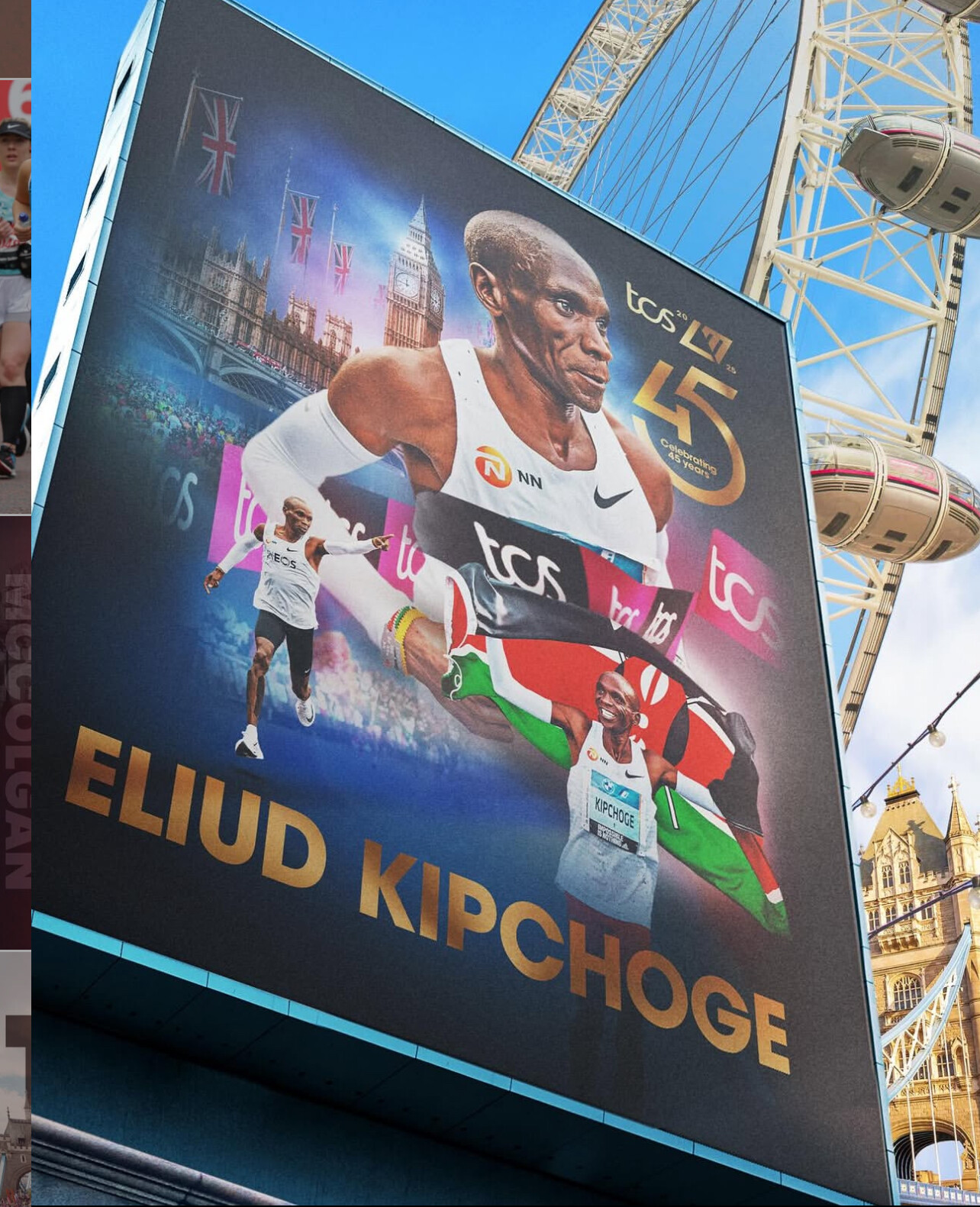
Eliud Kipchoge returns to London, where he’s won four titles. At 40 years old, Kipchoge remains focused, though he now races in the shadow of Kelvin Kiptum's world record of 2:00:35, set at the 2023 Chicago Marathon.
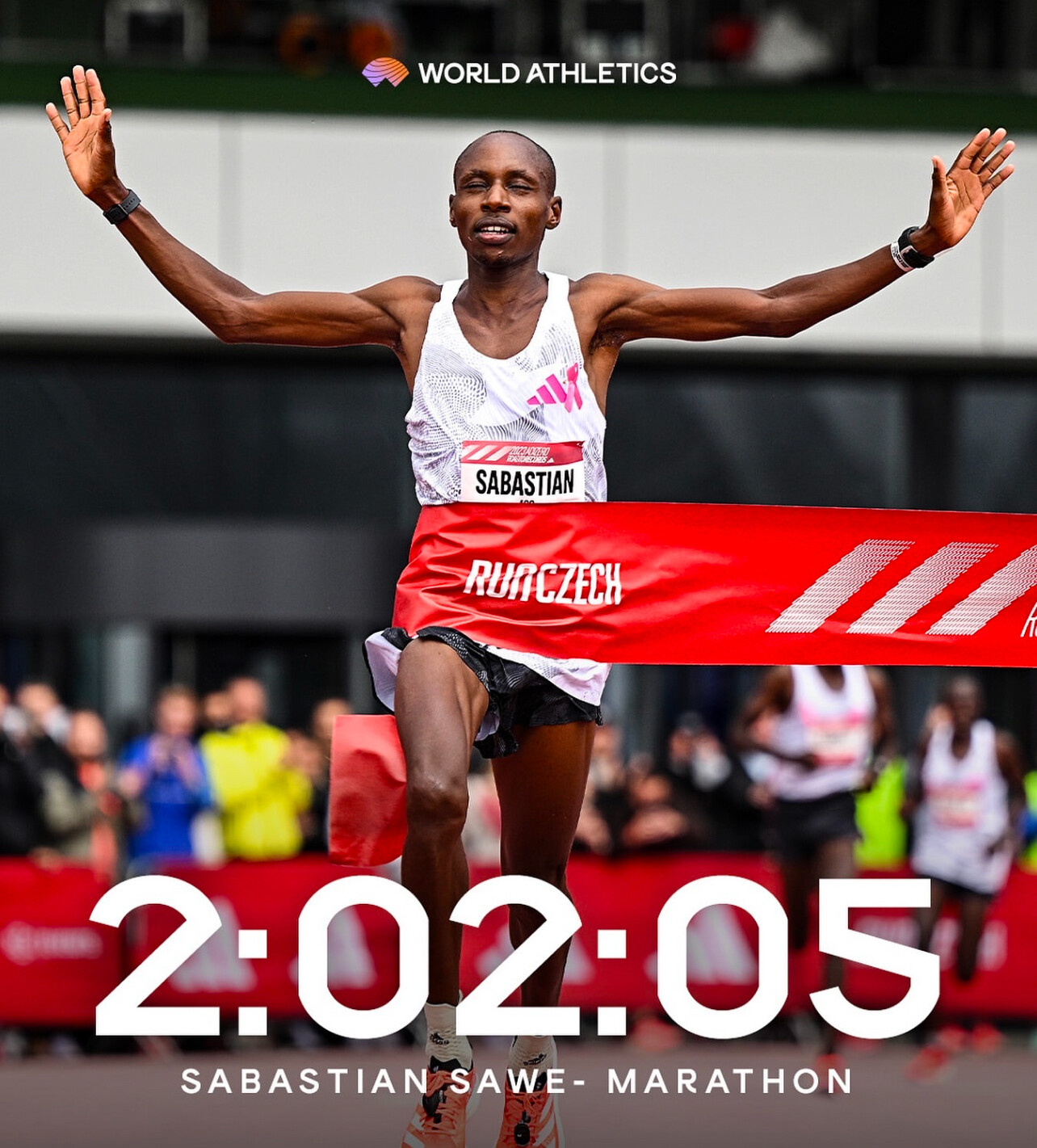
Rising Stars and Seasoned Champions
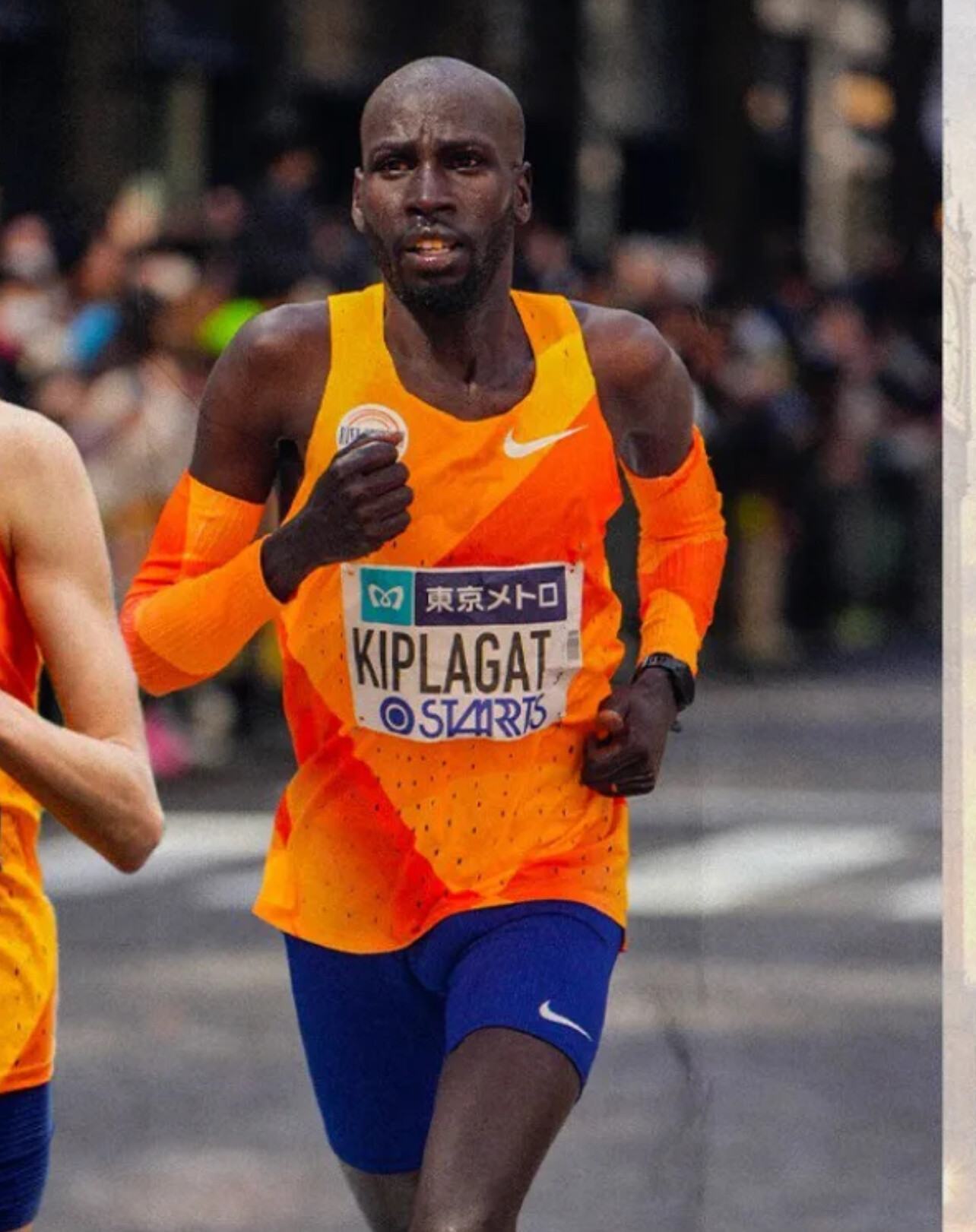
Beyond the favorites, an incredible field promises an unforgettable showdown.
Sabastian Sawe, with a personal best of 2:02:05, stunned the world by running the fastest debut marathon ever in Valencia. His aggressive racing style could drive the pace.
Timothy Kiplagat, clocking 2:02:55, thrives in fast-paced races and could be a dark horse if the leaders falter.
Alex Mutiso, the defending London Marathon champion with a best of 2:03:11, returns to prove his 2024 victory was no fluke.
Tamirat Tola, the reigning Olympic marathon gold medalist, has shown he can deliver under pressure, with a personal best of 2:03:39.
Abdi Nageeye, the 2021 NYC Marathon champion and Olympic silver medalist, is known for tactical brilliance and boasts a best of 2:04:45.
Breaking 2: Is It Possible in London 2025?
The two-hour barrier remains the sport’s ultimate milestone. While Kelvin Kiptum’s world record of 2:00:35 came heartbreakingly close, an official sub-two-hour marathon has yet to be achieved.
What makes London 2025 the perfect stage?
Stacked Field: With Kiplimo, Kipchoge, and Bekele pushing each other, the pace will be relentless.
Course Familiarity: The London course is flat, fast, and historic, where many records have fallen.
Optimal Conditions: London in April often provides the perfect cool weather for fast times.
Pacemakers: Expect world-class rabbits tasked with keeping the leaders on sub-2 pace through 30K.
A Race for the Ages
On April 27, 2025, I'll be watching closely. Will Jacob Kiplimo make history in his debut? Can Bekele turn back the clock? Will Kipchoge find one more magical performance? And—perhaps most importantly—will the sub-two-hour barrier finally fall in an official race?
One thing is certain: London 2025 promises a marathon showdown like no other.
I'm marking my calendar. History is calling.
by Bob Anderson
Login to leave a comment
TCS London Marathon
The London Marathon was first run on March 29, 1981 and has been held in the spring of every year since 2010. It is sponsored by Virgin Money and was founded by the former Olympic champion and journalist Chris Brasher and Welsh athlete John Disley. It is organized by Hugh Brasher (son of Chris) as Race Director and Nick Bitel...
more...Grant Fisher Shatters 5,000m Indoor World Record with 12:44.09 at BU Valentine Invite
American distance running star Grant Fisher delivered a historic performance at the Boston University David Hemery Valentine Invitational, setting a new world indoor record in the 5,000 meters with an astonishing time of 12:44.09. Fisher’s blistering run on February 14, 2025, broke the previous record of 12:49.60, set by Ethiopia’s Kenenisa Bekele in 2004.
The race saw Fisher dominate the competition, with French athlete Jimmy Gressier finishing second in 12:54.92, setting a new European indoor record and breaking his own French national record. Fisher’s remarkable pace and precision in the race demonstrated his growing dominance on the track and solidified his place among the sport’s greatest distance runners.
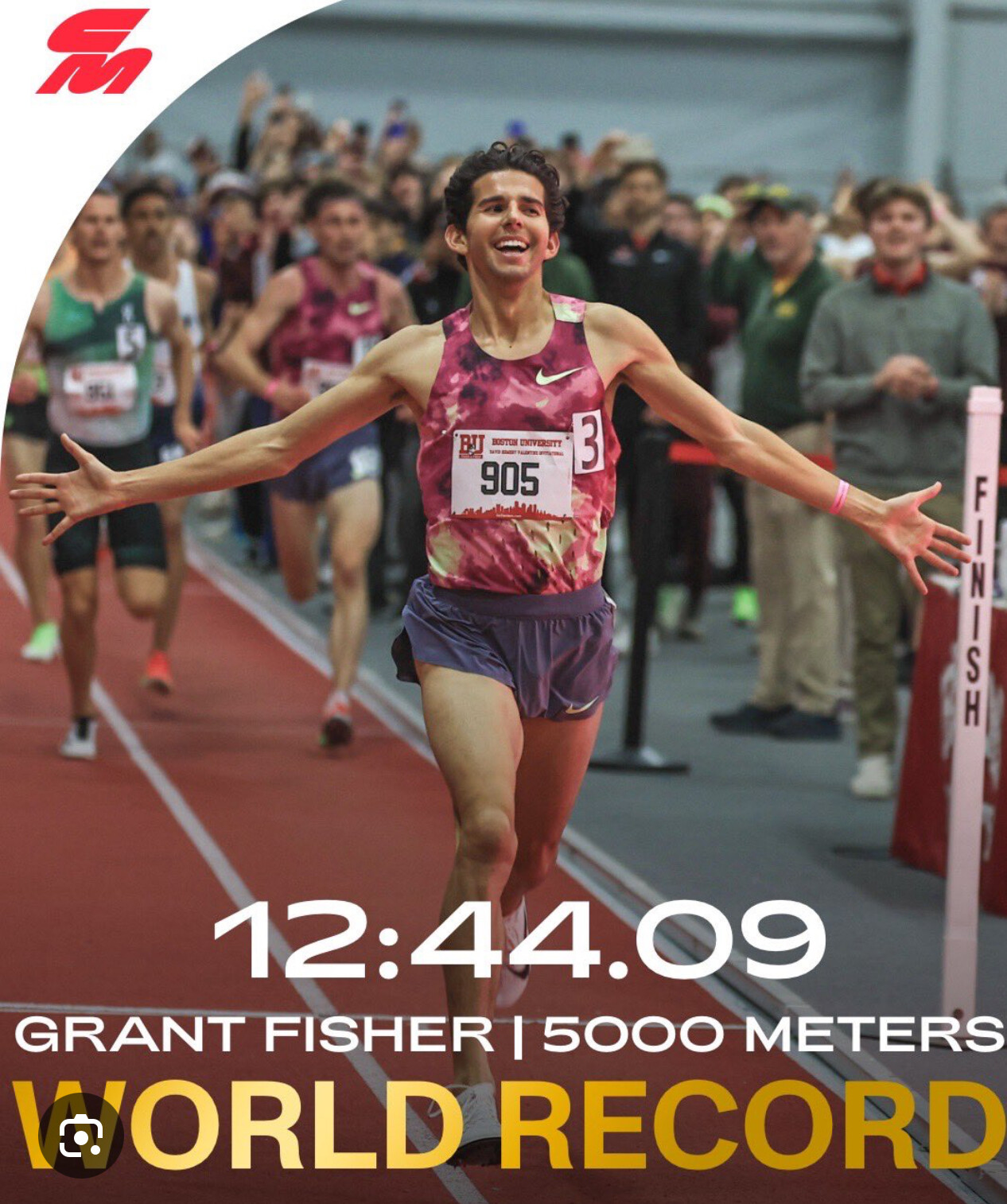
Back-to-Back World Records
This milestone comes just days after Fisher set the world indoor 3,000-meter record at the Millrose Games in New York on February 8, clocking 7:22.91. With two world records in less than a week, Fisher has established himself as one of the most formidable long-distance runners in history.
His recent performances build upon his success at the 2024 Paris Olympics, where he claimed bronze medals in both the 5,000m and 10,000m events—becoming the first American to medal in both events at a single Olympics.
Fisher’s Reaction and Looking Ahead
After his record-breaking run, Fisher expressed his excitement and gratitude for the support from his team and the electric atmosphere in Boston. He acknowledged the significance of breaking Bekele’s long-standing record and credited the momentum gained from his recent 3,000m world record as a key factor in his historic performance.
As Fisher continues to push the limits of American and global distance running, all eyes will be on what he does next. Could this be just the beginning of an even greater legacy?
Stay tuned to My Best Runs for more coverage of the latest record-breaking performances and distance running news.
by Boris Baron
Login to leave a comment
The Science Behind Negative Splits
In the world of distance running, pacing is paramount. One strategy that has garnered attention for its effectiveness is the negative split—running the second half of a race faster than the first. This approach not only conserves energy but also positions runners to finish strong, often leading to personal bests.
Starting a race conservatively allows the body to warm up thoroughly, optimizing muscle efficiency and oxygen utilization. As the race progresses, a well-timed increase in pace can capitalize on this preparedness. Physiologically, this method helps in managing glycogen stores and delaying the onset of fatigue, enabling a stronger finish.

Training Techniques to Master Negative Splits
Progression Runs: Begin at a comfortable pace and gradually increase speed throughout the run. For instance, on a 10-mile run, start at a relaxed pace for the first 5 miles, then incrementally quicken your pace in the latter half.
Tempo Runs with a Fast Finish: Maintain a steady tempo pace for a set distance, then accelerate in the final segment. This trains the body to handle increased effort when fatigued.
Interval Training: Incorporate intervals that encourage finishing faster. For example, run 800-meter repeats where the second 400 meters is faster than the first. This not only builds speed but also instills the discipline to negative split.
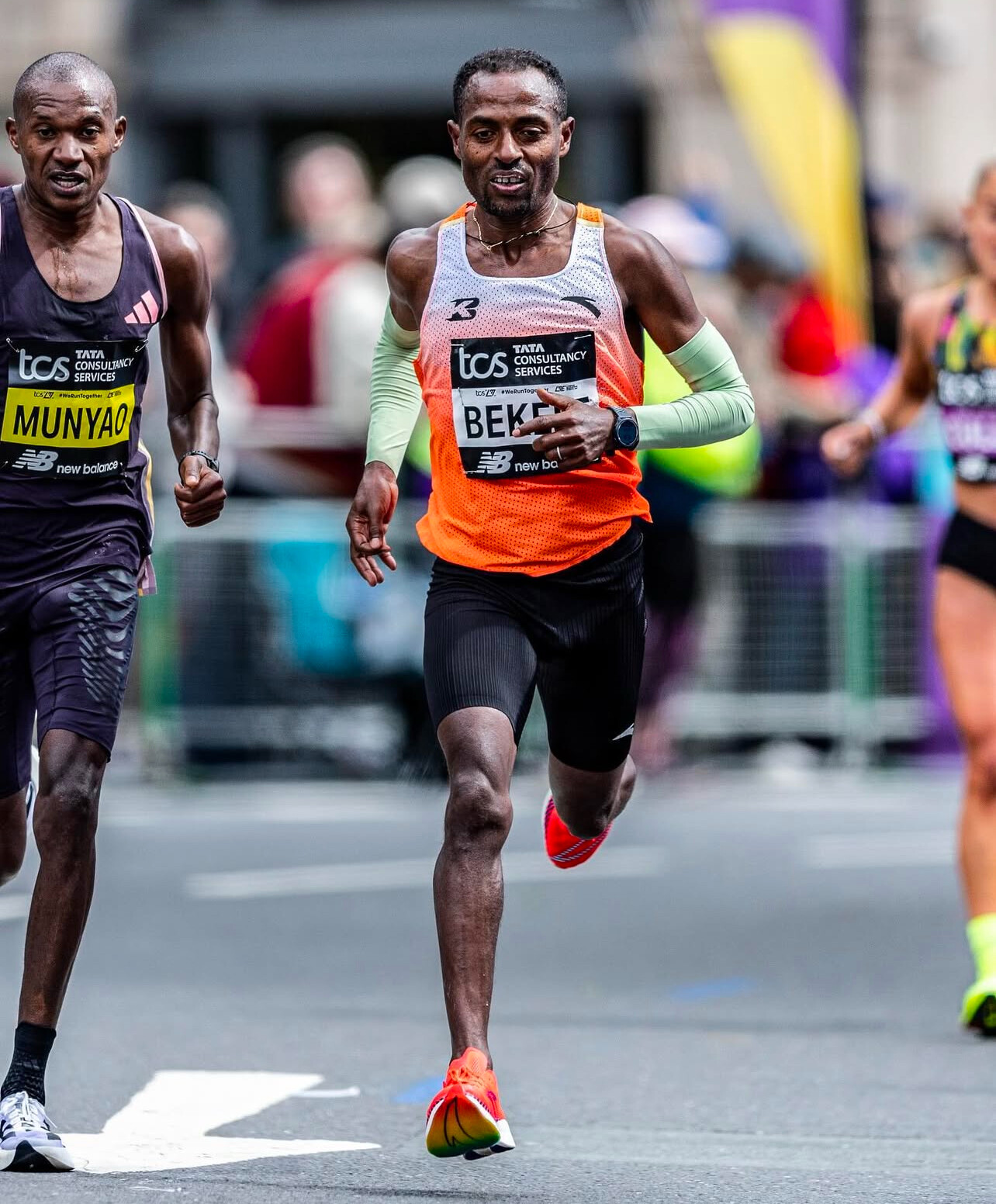
Controlled Long Runs: During long runs, practice starting slower than your target race pace and finishing the last few miles faster. This simulates the fatigue of a race and conditions the mind and body to push through.
Elite Runners Embracing Negative Splits
Many elite runners have successfully employed negative splits in their racing strategies:
Eliud Kipchoge: During the 2016 Olympic Marathon, Kipchoge ran the first half in 1:05:55 and the second half in 1:02:49, securing the gold medal with a significant negative split.
Kelvin Kiptum: In the 2023 Chicago Marathon, Kiptum set a new world record by running the first half in 60:48 and the second half in 59:47, showcasing a remarkable negative split.
Kenenisa Bekele: In his 5000-meter world-record run, Bekele progressively increased his speed, running each kilometer faster than the previous one, exemplifying the negative split strategy.
Implementing Negative Splits in Your Racing Strategy
To effectively incorporate negative splits into your racing:
Start Conservatively: Begin slightly slower than your goal pace to conserve energy.
Mid-Race Assessment: Regularly check in with your body and adjust your pace as needed, ensuring you have the energy to increase speed in the latter stages.
Strong Finish: Aim to progressively quicken your pace in the final miles, capitalizing on your conserved energy.
By mastering the art of negative splits, runners can race smarter, harnessing their energy efficiently to achieve stronger finishes and personal bests.
by Boris Baron
Login to leave a comment
'I was thinking about him' - How Eliud Kipchoge fueled Tamirat Tola to Olympic title following late Ethiopian marathon team inclusion
Tamirat Tola on how constantly thinking about Eliud Kipchoge's threat helped him clinch the 2024 Olympic marathon title in Paris following his late inclusion into the Ethiopian team for the games.
Olympic marathon champion Tamirat Tola admits marathoner Eliud Kipchoge was his biggest headache heading into the Paris Olympics and was thinking about him following his late inclusion to the Ethiopian team.
The 2022 world marathon champion had just two weeks to prepare for the Olympics after his late inclusion, thanks to the injury sustained by compatriot Sisay Lema.
Tola, 33, said while he considered other marathoners as worthy opponents, it was Kipchoge he feared the most if his past achievements were anything to go by.
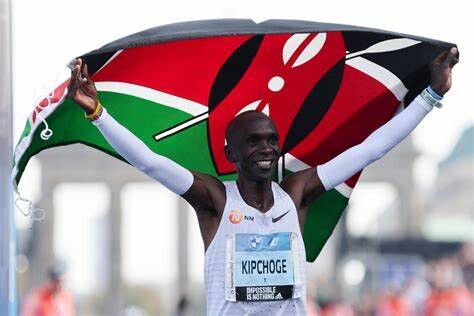
"When I got to Paris, I was thinking about how I could challenge (Eliud) Kipchoge and other athletes. I knew the main contenders. There were lots of talented athletes. But I reminded myself that I had worked hard. And when I got in front in the final kilometres, I knew I could win,” Tola told World Athletics.
Kipchoge is the 2016 and 2020 Olympic marathon champion, and was the world record holder in the marathon from 2018 to 2023, until that record was broken by Kelvin Kiptum at the 2023 Chicago Marathon.
Despite being a late entrant into the Ethiopian team, Tola said he was mentally prepared for the rigorous exercise having trained with his team mates for three months.
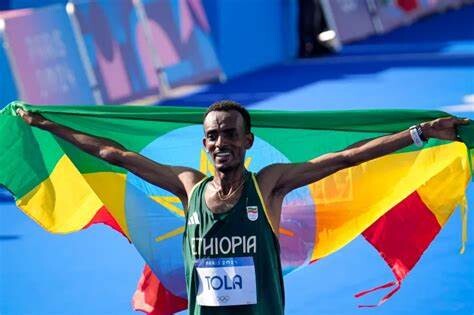
“For three months together with Kenenisa Bekele, Sisay Lemma, Deresa Geleta and I prepared for the national team. At that time my coach said, ‘prepare with them, and if you are not needed for Paris then go to do the New York City marathon’. When I heard the news that I was on the team, I was really excited for the following two weeks," Tola observed.
Tola who is the 2023 New York City marathon champion presumed that he had the blessings of Lemma and this too, gave him confidence to put his best foot forward. "For Sisay, it wasn’t an easy decision because it was for our country. We discussed it with him and he said, ‘It won’t be easy for me to run injured in Paris, so you go."
by Evans Ousuru
Login to leave a comment
World out-of-stadium athlete of the year Tamirat Tola’s 2024 – in numbers
Tamirat Tola earned Ethiopia’s only gold medal at the Paris 2024 Olympics with an extraordinary performance in the men’s marathon.
On a uniquely testing course, and in gruelling conditions, he won gold in an Olympic record of 2:06:26 – a performance that was all the more remarkable for the fact that he had only been called into the team with two weeks’ notice as a replacement for his injured compatriot Sisay Lemma.
The 33-year-old, who earned Olympic bronze over 10,000m in 2016, thus added a second global marathon title to his collection after his victory at the 2022 World Athletics Championships.
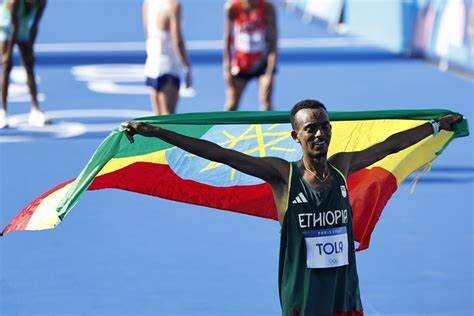
Tola’s 2024 in numbers
With the hills, and the heat, it was tough enough to run on the Paris marathon course. But you set an Olympic record of 2:06:26. How did you manage this feat?
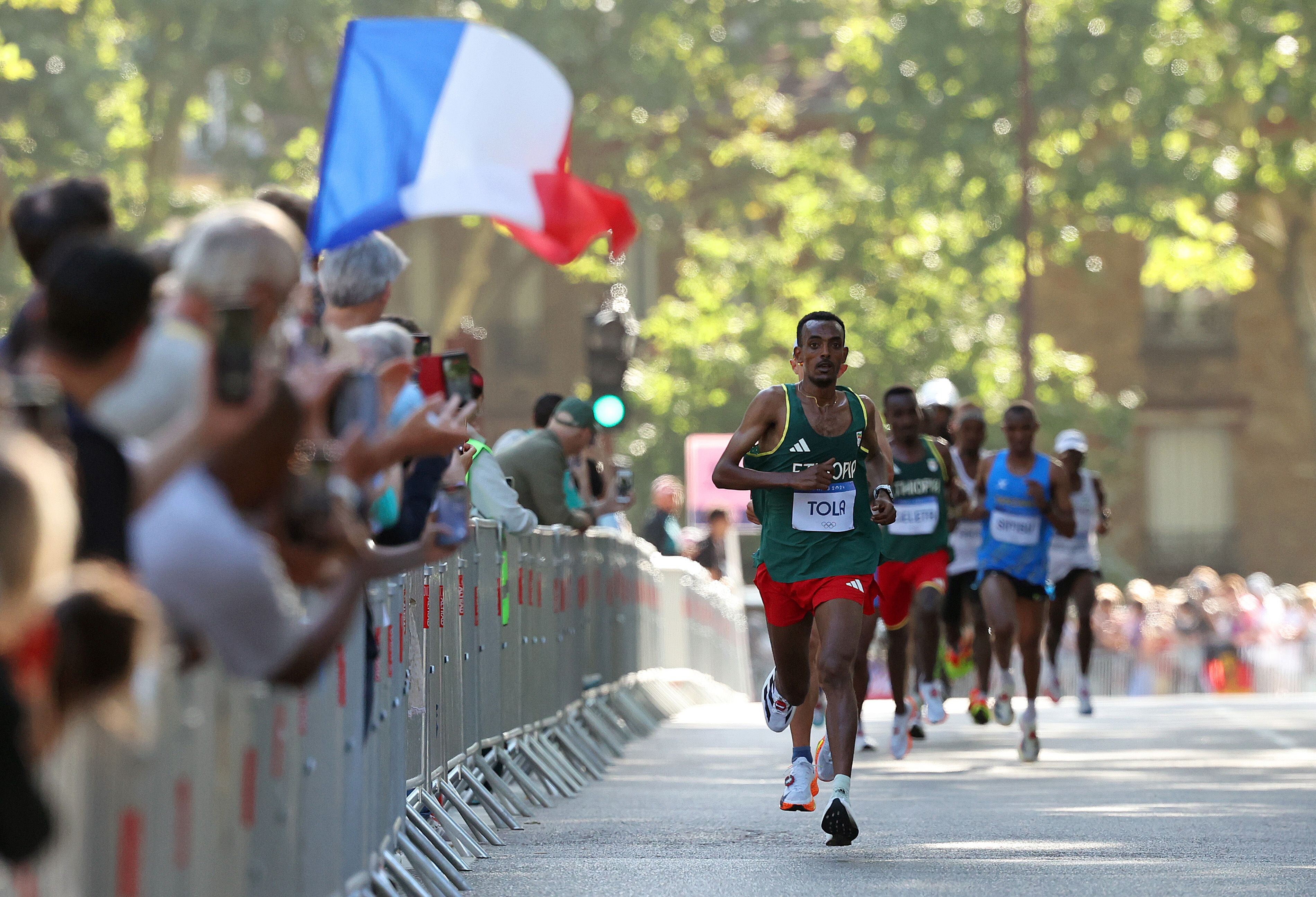
“It was a very difficult course in Paris. But the only thought in my mind was that I could not lose. Our country had won no gold medals on the track, and the marathon races were the last chance for us, so I needed to make the most of my talent.”
Many athletes found the steep hills and long descents of the Paris course the toughest they had faced, particularly around the 28km mark. Where did it hurt most for you?
“It was hardest from 27 to 30 kilometres, with the steep hill and the long drop. I wasn’t thinking about the time, but when I finished I had the Olympic record, which was another reason to be proud.
“My coach had told me that this was a very difficult course, so when I arrived in Paris I thought about how I could run my best on this course. I used this challenge as motivation, and thankfully I overcame it.
“In athletics, challenges are part of the sport. And we always have to do the best for our country.”
This was your second global marathon title following your success at the 2022 World Championships. How did the two victories compare?
“In 2022 it was not easy, all the champions were also there. In the past I had been concentrating on the 10,000m, which led to the Olympic bronze medal in 2016. After that I won the marathon silver at the 2017 World Championships in London.
“I improved my talent in 2022 to win the gold medal. I was happy at that time because after a long injury I was able to win for my country.
“In 2023 I lost that title because of a problem with my stomach. But that made it all the more amazing to fulfil my goals at the Olympics in Paris.”
You had just two weeks to prepare after being told you were running in the Olympic marathon following the withdrawal of Sisay Lemma, after which you stepped up as the third Ethiopian entrant alongside Deresa Geleta and Kenenisa Bekele. How did you manage this challenge?
“For three months together with Kenenisa, Lemma, Deresa and I prepared for the national team. At that time my coach said, ‘prepare with them, and if you are not needed for Paris then go to do the New York City marathon’.
“When I heard the news that I was on the team, I was really excited for the following two weeks. But for Sisay, it wasn’t an easy decision because it was for our country. We discussed it with him and he said, ‘It won’t be easy for me to run injured in Paris, so you go’.
“When I got to Paris, I was thinking about how I could challenge (Eliud) Kipchoge and other athletes. I knew the main contenders. There were lots of talented athletes.
“But I reminded myself that I had worked hard. And when I got in front in the final kilometres, I knew I could win.”
In Paris you became the fourth Ethiopian to win the Olympic marathon title after Abebe Bikila in 1960 and 1964, Mamo Wolde in 1968 and Gezahegne Abera in 2000. How proud are you to have done this, and what inspiration did you take from your victorious compatriots?
“I did not expect to win because I knew there were runners there like Eliud Kipchoge, the two-time winner. But once I got ahead, I knew I could do it.
“For a long time after Gezahegne, for 24 years, we were without an Ethiopian win in the men’s marathon at the Olympics. I was happy to attain this goal in a Games record and to join the other Olympic champions.
“It was Ethiopia’s only gold medal in Paris – I was able to provide happiness for our country.”
by Mike Rowbottom for World Athletics
Login to leave a comment
Olympic triathlon champ to make 42.2 debut at 2025 London Marathon
On Monday, the organizers of the TCS London Marathon announced there will be a new face headlining the 2025 race. Great Britain’s Alex Yee, the reigning Olympic triathlon champion from Paris 2024, will make his marathon debut on Sunday, April 27, in his hometown of London.
The 26-year-old, who has won four Olympic medals in triathlon, has a ton of experience in distance running, representing Great Britain in track and cross-country events internationally. He has a 5K personal best of 13 minutes and 26 seconds and has run under 28 minutes for 10,000 meters.
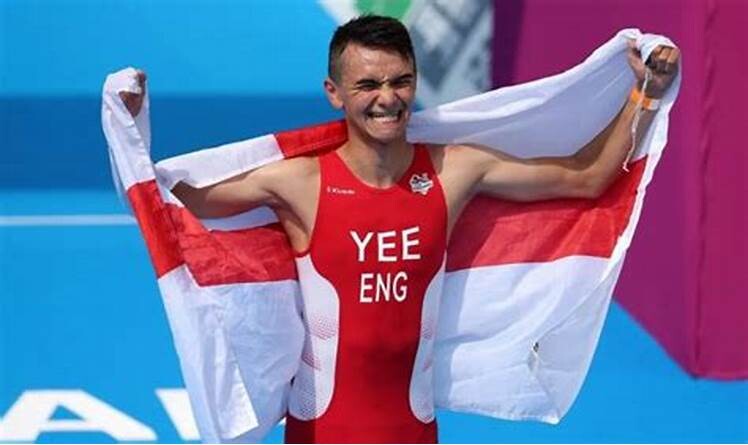
In triathlon, Yee is often regarded as the strongest runner in the sport. The reputation played in his favor earlier this summer in Paris when he caught New Zealand’s Hayden Wilde on the final lap of the Olympic triathlon to win gold. The strong field Yee will face at the 2025 TCS London Marathon will make it one of his biggest challenges to date. However, Yee will look to his home course advantage.
According to the press release, Yee raced the 2.6km Mini London Marathon five times during his junior career and grew up 15 minutes from the start line in Blackheath. “London Marathon day has been such a big part of my life growing up,” recalls Yee. “I remember racing the Mini London Marathon multiple times as a young athlete, and it was one of my biggest and most exciting races of the year. Taking part in a full marathon has always been an itch I’ve wanted to scratch, and there isn’t any other place than London where I would want to start that journey.”
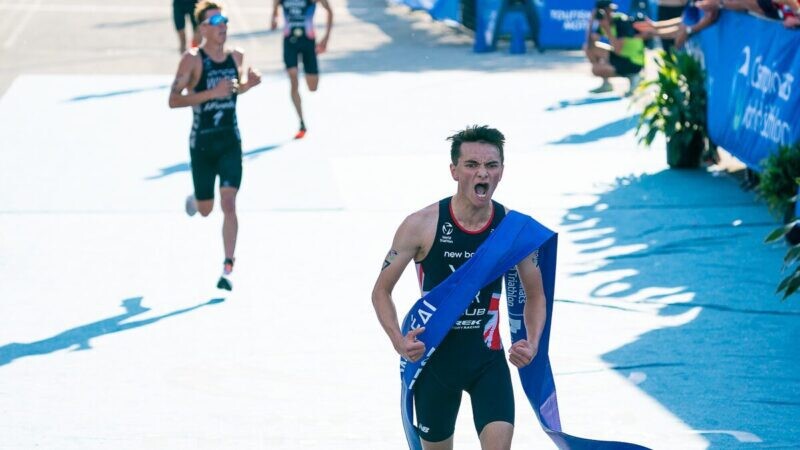
For his London build-up, Yee plans to put his triathlon training on pause to focus solely on marathon training. “I will be focusing my training over the coming months on the marathon and am looking forward to seeing what I can do over the 26.2 miles,” he said.
Last year, Kenya’s Alexander Munyao won his first Abbott World Marathon Major in London, denying Ethiopian distance legend Kenenisa Bekele a hoped-for first London Marathon win with a time of 2:04:01. Bekele did, however, set a new masters marathon record with his time of 2:04:15. The top British finisher was Emile Cairess, who ran 2:06:46 finish third, making him the second-fastest British marathon runner of all time behind Mo Farah.
Yee is the first runner announced for the 2025 London Marathon elite field. The full elite field will be announced in the new year.
by Marley Dickinson
Login to leave a comment
TCS London Marathon
The London Marathon was first run on March 29, 1981 and has been held in the spring of every year since 2010. It is sponsored by Virgin Money and was founded by the former Olympic champion and journalist Chris Brasher and Welsh athlete John Disley. It is organized by Hugh Brasher (son of Chris) as Race Director and Nick Bitel...
more...Marathon world lead for debutant Sawe in Valencia
Kenya’s Sabastian Sawe set a world lead on his marathon debut, while Ethiopia’s Megertu Alemu also captured a solid victory at the Valencia Marathon Trinidad Alfonso – a World Athletics Elite Platinum Label event – on Sunday (1).
Sawe’s winning time was 2:02:05, just 12 seconds off the fastest ever debut set by his compatriot Kelvin Kiptum two years ago and a mark that moves him to fifth on the world all-time list, while Alemu ran 2:16:49, just 15 seconds outside her lifetime best.
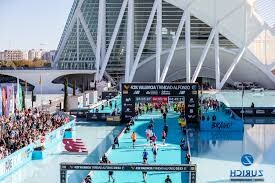
The men’s event had been billed as a thrilling showdown between experienced specialists such as Sisay Lemma, Deresa Geleta and Kenenisa Bekele, versus some promising debutants including Sawe and Hillary Kipkoech. Perfectly paced by a trio of pacemakers – Kenya’s Samwel Mailu, Erick Sang and Vincent Nyageo – the leading men went through the opening 5km in 14:31. That cadence was maintained until the leading pack reached the 10km checkpoint in 29:04 and 15km in 43:39. By then, nine athletes remained at the helm including all the favourites, Geleta and Lemma running closest to the pacemakers.
The halfway mark was passed in 1:01:17, 42 seconds slower than last year’s split when Lemma set the course record of 2:01:48. Unlike last year, when he performed conservatively over the first half, Bekele was running quite bravely as the 42-year-old travelled in third or fourth place. But some two kilometres later, the multiple Olympic and world champion began to lose ground and by the 28th kilometre the relentless 2:55/km rhythm whittled down the leading pack to five: Kenya’s Mateiko and Sawe plus Ethiopia’s Geleta, Lemma and Birhanu Legese.
Once the last pacemaker dropped out with the clock reading 1:33, Lemma began to falter to lose any chance of retaining his title. At the front, Mateiko and Geleta broke away from Sawe and Legese, those pairs separated by 30 metres inside the 32nd kilometre. It was Mateiko, who was not able to finish the Chicago 2023 and London 2024 marathons, who seemed to decide the victory was in his favour shortly afterwards as he became a lonesome leader. The three-time Valencia half-marathon podium place finisher had built a five-second gap on Sawe and Geleta, while Legese could not maintain that pace and travelled in fourth place way back.
Mateiko’s getaway proved to be short-lived as he was reeled in by Sawe and Geleta at the 36th kilometre, when the predicted final time remained at 2:02:35. It was then that the eventual winner found another gear to speed away easily from Mateiko and Geleta, who finished fifth at the Paris Olympics. Sawe, who has completed all his nine half marathons under the 60-minute barrier, upped his pace to the 2:48/2:50 range to gradually extend his lead. By the 40km point he clocked 1:55:42, 20 seconds ahead of Geleta, while a tired Mateiko travelled another 35 seconds in arrears.
Sawe showed a magnificent display of solo running over the closing kilometres, going faster and faster as the end was approaching to finally finish unopposed in a world leading performance of 2:02:05, including a 14:06 closing five kilometres.
Geleta, the Seville Marathon winner, improved his career best to 2:02:38 for second place, while Mateiko slowed dramatically over the final stages but still managed to finish the distance at the third time of asking in 2:04:24, holding off a late challenge from Tanzania’s 2017 world bronze medallist Alphonce Simbu.
Simbu achieved a perfectly balanced two halves (1:02:13/1:02:25) to finish fourth in a PB of 2:04:38, two seconds clear of the 42-year-old Swiss athlete Tadesse Abraham, who clocked a lifetime best and national record of 2:04:40 for fifth. In a race of an incredible depth, 10 men ducked under the 2:05 milestone while Bekele dropped out shortly after the 31st kilometre.
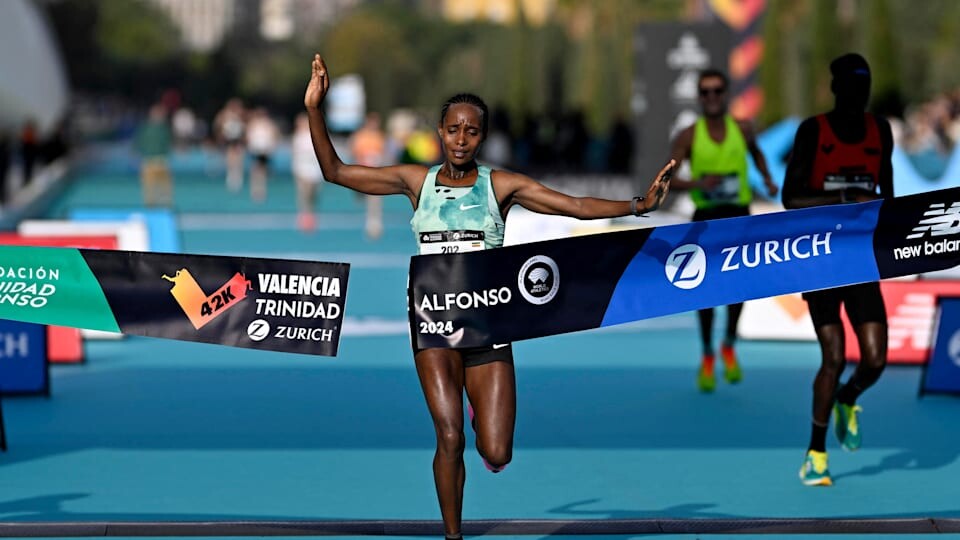
Sawe, the world half marathon champion, has won seven out of his nine half marathon appearances, topped by a 58:02 time in Rome in 2022. His two defeats came in Valencia, so Sunday’s performance marks his first victory in the city.
The winner, whose two halves were timed at 1:01:18 and 1:00:47, said: “Honestly, I had built up very good for this debut and was quite confident of doing well. It’s an amazing day, I’m so happy to be here and win in Valencia, which is so beautiful.
“I was used to running the half marathon event, I was comfortable during the first half, then I was close to the helm of the race and I thought I could go faster and I just did it. I dedicate this win to the victims of the Valencia floods, I pray for them.”
Alemu confirms she is the strongest
Following the withdrawal of Ethiopia’s course record-holder Amane Beriso due to a stress fracture, the women’s contest kicked off at the scheduled 3:12 rhythm on an attempt to lower the current 2:14:58 course record set in 2022. The opening five and 10 kilometres were covered in 16:02 and 32:03, respectively, and by then all the favourites stayed in the leading pack, with Alemu joined by her compatriot Tiruye Mesfin, Uganda’s Stella Chesang and Kenya’s Evaline Chirchir. The clock read 47:56 for the 15th kilometre and that cadence proved to be too quick for Mesfin and Chirchir, that pair running 18 seconds in arrears by then.
Running alongside lots of male athletes, Alemu and the Paris Olympics eighth-place finisher Chesang went through halfway in 1:07:15, well on schedule to break Beriso’s record, with Mesfin and Chirchir some 300 metres back timed at 1:08:06 but quick enough to set respective career bests. Chesang’s resistance came to an end some 1:11 into the race when she just could not stay with Alemu’s pace. The Ethiopian managed to maintain her speed until the 30th kilometre, which she reached in 1:35:55, but from then on the 27-year-old dropped her rhythm as she timed 16:48 for the following two five-kilometre sections (30-40km) and her chances of a course record clearly vanished.
Even so, Alemu’s win was never in jeopardy as she strengthened gradually her advantage on Chesang to 40 seconds by the 30th kilometre and a massive 1:21 at the 40km checkpoint, while Mesfin easily got rid of Chirchir just before reaching the 25th kilometre. At the tape, Alemu posted her second quickest ever time thanks to a 2:16:49 clocking, while the runner-up Chesang broke the 2:20 barrier for the first time in a national record of 2:18:26. Mesfin completed the classy podium, also improving her lifetime best by 12 seconds with 2:18:35.
“I know I can do a better mark but I’m happy to win today,” said Alemu. “Between 35 and 40 kilometres I wasn’t feeling good, so I decided to reduced my rhythm. At the finish line, all the people were clapping and that was really special. I can feel today it’s a different day for Valencia.”
It is only in recent weeks that event organisers were able to confirm that the race would go ahead. At the end of October, the province of Valencia was hit by extreme floods, claiming the lives of 229 people. The natural disaster lasted for more than two weeks, causing substantial damage in the area. Organisers confirmed that all the proceeds from the sponsors, the organisation’s own funds and the runners will be donated to one or more projects for the reconstruction of the affected areas.
Leading results
Women1 Megertu Alemu (ETH) 2:16:492 Stella Chesang (UGA) 2:18:263 Tiruye Mesfin (ETH) 2:18:354 Evaline Chirchir (KEN) 2:20:335 Majida Maayouf (ESP) 2:21:436 Chimdesa Kumsa (ETH) 2:21:547 Laura Luengo (ESP) 2:22:318 Isobel Batt-Doyle (AUS) 2:22:599 Moira Stewartova (CZE) 2:23:4410 Sara Hall (USA) 2:23:45
Men1 Sabastian Sawe (KEN) 2:02:052 Deresa Geleta (ETH) 2:02:383 Daniel Mateiko (KEN) 2:04:244 Alphonce Simbu (TAN) 2:04:385 Tadesse Abraham (SUI) 2:04:406 Chimdessa Debele (ETH) 2:04:447 Maru Teferi (ISR) 2:04:458 Hillary Kipkoech (KEN) 2:04:459 Samuel Fitwi (GER) 2:04:5610 Sisay Lemma (ETH) 2:04:59
by World Athletics
Login to leave a comment
VALENCIA TRINIDAD ALFONSO
The Trinidad Alfonso EDP Valencia Marathon is held annually in the historic city of Valencia which, with its entirely flat circuit and perfect November temperature, averaging between 12-17 degrees, represents the ideal setting for hosting such a long-distance sporting challenge. This, coupled with the most incomparable of settings, makes the Valencia Marathon, Valencia, one of the most important events in...
more...Sabastian Sawe ready to debut at Valencia Marathon after insightful lessons from mentors
Sabastian Sawe is bubbling with confidence ahead of his marathon debut in Valencia on Sunday as he gears up for a race against legends Sisay Lemma and Kenenisa Bekele.
Sabastian Sawe will be making his full marathon on Sunday at the Valencia Marathon and he expects to have a great outing, racing against a stacked field.
His greatest opposition will come from the Ethiopian duo of Sisay Lemma and Kenenisa Bekele but he is confident in his training and has fingers crossed to post impressive results.
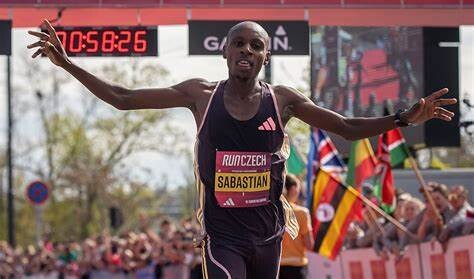
Sabastian Sawe’s previous outings in Valencia have not yielded great results as he was forced to finish outside the podium bracket and as he takes on a greater milestone, he hopes for great results.
The world half marathon champion competed at the 2022 Valencia Half Marathon where he finished sixth before heading to finish fifth at the 2023 edition of the race. He revealed that he will be competing with his mentors in the field and that gives him a lot of optimism that he will run a great race.
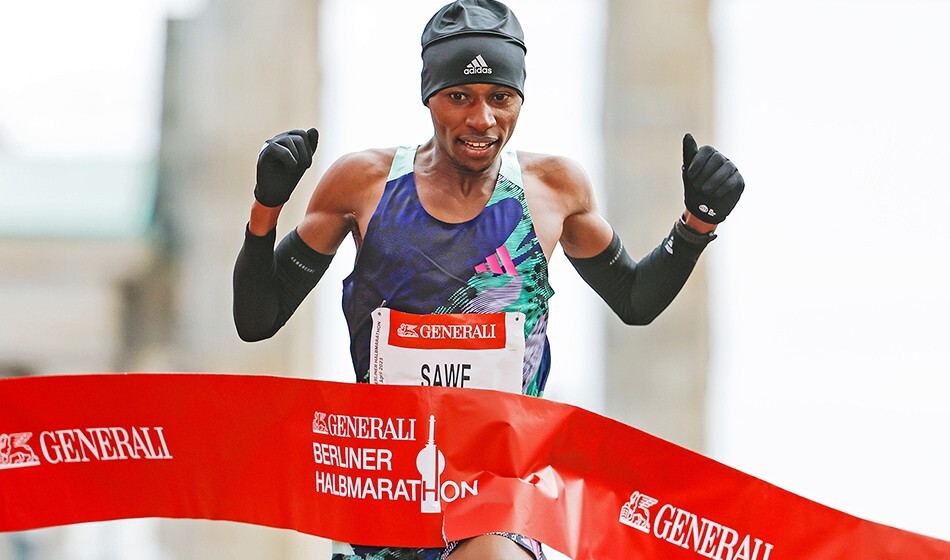
“Thank you for inviting me and thank you to the race organizers. My condolences to the tragedy that has happened in Valencia. This time, I hope for good results, I have trained well and I’m well prepared for it,” Sabastian Sawe said in a pre-race press conference.
“I’m eager to run with mentors like Sisay Lemma and Kenenisa Bekele who are strong opponents and I hope they help me to run well and I hope to get good results. It will be my first time running the full marathon and I don’t want to predict any fast times but I’m ready.”
He trains with the likes of Olympic marathon bronze medallist Benson Kipruto and the 2022 New York City marathon champion Evans Kipruto under coach Claudio Berardelli and there is a lot he has picked from them as he prepares for the debut.
He promised to execute everything learnt from his training mates who are also accomplished marathon runners.
“My training mates have encouraged me a lot because they are also my mentors and they have taught me a lot. I’m ready, on Sunday to use everything they have taught me,” he shared.
by Abigael Wafula
Login to leave a comment
VALENCIA TRINIDAD ALFONSO
The Trinidad Alfonso EDP Valencia Marathon is held annually in the historic city of Valencia which, with its entirely flat circuit and perfect November temperature, averaging between 12-17 degrees, represents the ideal setting for hosting such a long-distance sporting challenge. This, coupled with the most incomparable of settings, makes the Valencia Marathon, Valencia, one of the most important events in...
more...Kenenisa Bekele and Alemu Megertu lead Valencia line-ups
The Spanish city hosts star-studded fields, with athletes hoping to run extremely quick times on the traditionally fast course.
Some of the greatest marathon runners in the world will once again descend on Valencia on Sunday (December 1), just two months on from the horrific floods that devastated the region.
Given the severity of the damage on Valencia – it saw two months of rain in as many days at the end of October – there was uncertainty about whether the event would even take place.
Organisers decided that the Valencia Marathon would go ahead in the end, with a moment of remembrance occurring before the start of the elite races.
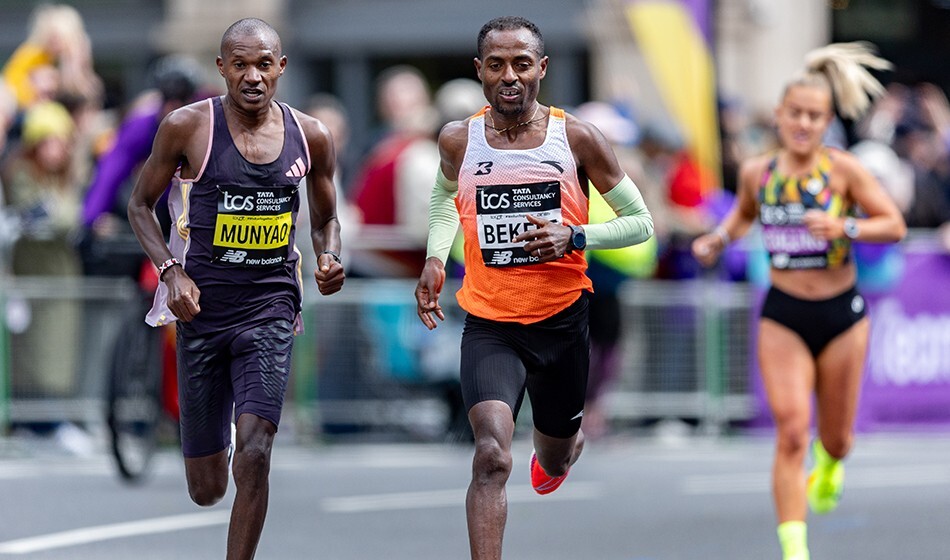
“It will be a hug to this wounded city and a promise of recovery, a moment in which sport becomes hope and help for those who need it most,” organisers said.
“This year, the record we want to beat is that of solidarity, the record of a marathon that will remind each one of us of the power of being together. The immense strength of the collective as a society, and of sport, as a vehicle for reconstruction and recovery.
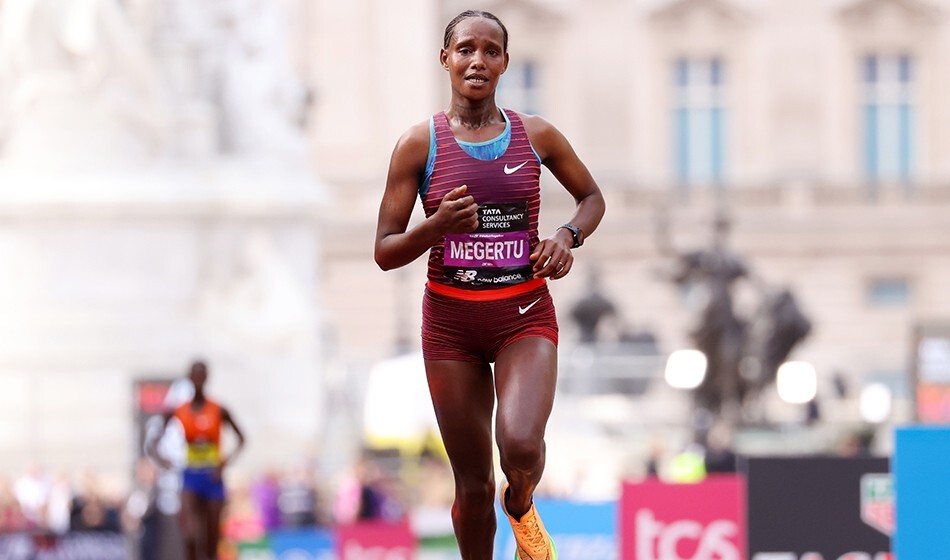
“We want that Valencia Marathon, your race, be a symbol of support for every family that has suffered, for every street and every corner of Valencia that is in the process of reconstruction.”
People lining the streets can look forward to watching some scintillating action, with a myriad of stars taking to the streets of the Spanish city.
A stacked men’s field is led by Kenenisa Bekele and Sisay Lemma.
Bekele, a triple Olympic and five-time world track champion, is the third fastest marathon runner in history, with his personal best of 2:01:41 set back in Berlin five years ago.
The 42-year-old also created in history at last year’s Valencia Marathon, after he became the first athlete aged over 40 to run a sub-2:05 marathon, clocking 2:04:19.
At this year’s London Marathon, Bekele lowered that mark by four seconds, before going on to finish 39th for Ethiopia in the Olympic marathon in Paris.
On paper, Lemma – the reigning champion in Valencia – is the one to beat once again.
Last year, the 33-year-old clocked 2:01:48 in his victory, going fourth on the all-time list over 26.2 miles behind Bekele, Eliud Kipchoge and the late Kelvin Kiptum.
Lemma also secured the Boston marathon crown back in March and is a two-time major marathon champion, after his victory in London three years ago.
The athlete who might be most likely to challenge Lemma is Sabastian Sawe, who is the world half-marathon champion and making his debut over 26.2 miles in Valencia.
The Kenyan’s first ever marathon carries a lot of anticipation and expectation, given the 28-year-old’s personal best in the half-marathon is a blistering 58:05, which he set in Copenhagen back in September.
Double Tokyo Marathon champion Birhanu Legese and the 2021 Berlin Marathon winner Guye Adola will also be ones to watch.
The British challenge is led by Ross Braden, who boasts a personal best of 2:14:32 from London two years ago and has clocked 2:19:49 this season. Dan Nash and Norman Shreeve are also among the British men in action.
Expect a pulsating battle in the women’s field, with Ethiopian Megertu Alemu the stand-out name, following the withdrawal of her compatriot Amane Beriso through injury.
Alemu, who’s placed second and third at the London Marathon in the last two years respectively, has a best of 2:16:34, which has her 14th on the all-time list.
You should also be aware of Hiwot Gebrekidan and Tiruye Mesfin, who are the second and third quickest athletes in the women’s field, with respective bests of 2:17:59 and 2:18:47.
Sara Hall flies the flag for the US and goes into Valencia off the back of fifth and 15th place finishes at the US Olympic Marathon trials and Boston.
Clara Evans will be hoping to improve her PB of 2:25:01, which was set in Valencia last year, after finishing top British woman at the Olympics with 46th place in Paris.
Evans is fresh from setting a Welsh half-marathon record of 69:00 in Valencia too.
She is joined by fellow Brits Becky Briggs and Alice Wright among others.
Ireland’s Fionnuala McCormack finishes off a spectacular season in the Spanish City, with the 40-year-old having finished 28th in the Olympic marathon – her fourth Games – in Paris.
Another fascinating storyline is that of Alice Braham, who is aiming to get near her personal best of 2:35:20 from 2008.
The 48-year-old became the oldest British female to run a marathon in under 2:40 in Berlin, clocking an incredible 2:39:42 on the streets of the German capital.
Braham recently spoke exclusively with AW, opening up about how she got into running, overcoming adversity and her top tips for others over 26.2 miles.
by Tim Adams
Login to leave a comment
VALENCIA TRINIDAD ALFONSO
The Trinidad Alfonso EDP Valencia Marathon is held annually in the historic city of Valencia which, with its entirely flat circuit and perfect November temperature, averaging between 12-17 degrees, represents the ideal setting for hosting such a long-distance sporting challenge. This, coupled with the most incomparable of settings, makes the Valencia Marathon, Valencia, one of the most important events in...
more...Valencia marathon participants promised millions if they break Kelvin Kiptum's record
The 2024 Valencia marathon will take place this weekend as runners return to one of the fastest courses in the world.
It is in Valencia that the late Kelvin Kiptum introduced himself to the world by running the fastest-ever time clocked by a debutant after he used 2:01:53 in 2022.
Valencia Marathon 2024 start list
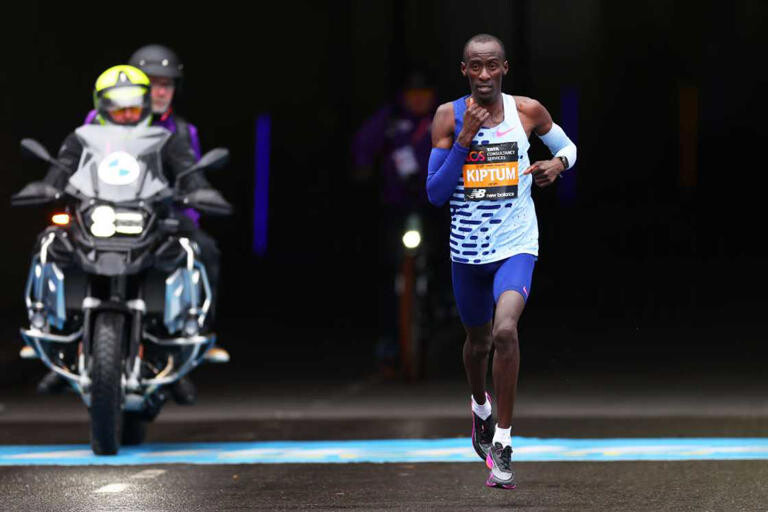
This year, 2023 champion Sisay Lemma will headline the stacked list. The Ethiopian will be looking to win a second marathon this year after winning in Boston in March.
His time of 2:01:48 to win in Valencia last year is the sixth-fastest time in history, making him an overwhelming favorite on Sunday.
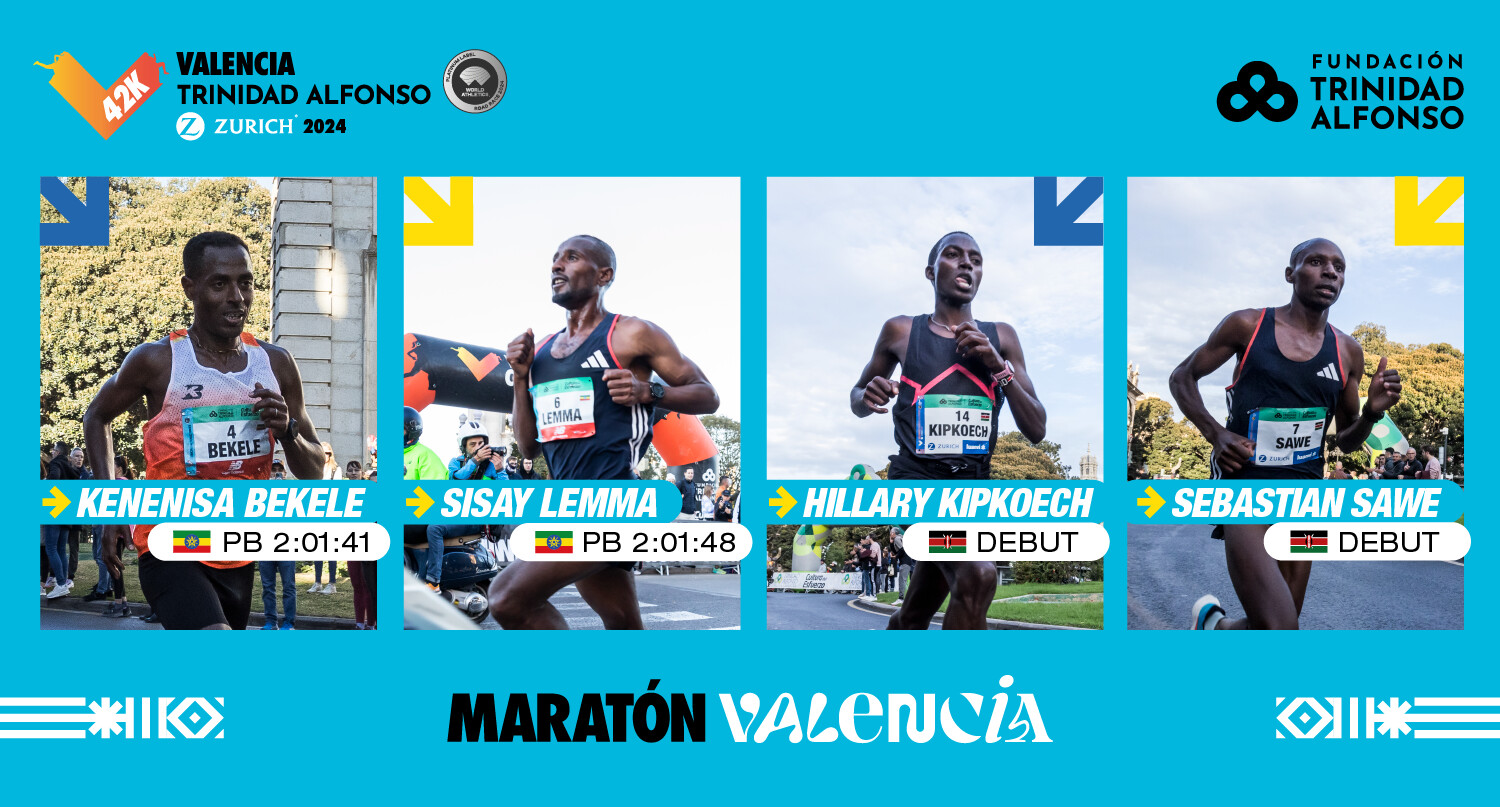
Kenenisa Bekele will also be part of the start list. Bekele is the third-fastest marathoner in history. The 42-year-old finished a distant 39th at the 2024 Paris Olympics, and redemption will be on his mind.
Others include world half marathon champion Sebastian Sawe and two-time Tokyo marathon winner Birhanu Legese.
The organizers have made the race sweeter by introducing a raft of monetary awards if certain records are broken.
Valencia Marathon 2024 prize money
Athletes who break the course record of 2:01:48 (men's) and 2:14:58 (women's) will win €30,000 (approximately 4 million Kenya shillings).
Meanwhile, athletes who break the men's and women's marathon world records will get a whooping €1,000,000 (approximately 135 million Kenya shillings).
What is the men's marathon world record?
The late Kiptum is the current world record holder. He clocked 2:00:35 to win the 2023 Chicago Marathon.
The website indicates that the women's time the participants need to beat is 2:11:53 despite Ruth Chepng'etich lowering it to 2:09:56 last month in Chicago. Chepng'etich's record is, however, yet to be ratified by World Athletics.
The 2:11:53 mentioned therein is the former world record set by Ethiopian Tigst Assefa. Evaline Chirchir is the only Kenyan registered in the women's race.
by Richard Nutakor
Login to leave a comment
VALENCIA TRINIDAD ALFONSO
The Trinidad Alfonso EDP Valencia Marathon is held annually in the historic city of Valencia which, with its entirely flat circuit and perfect November temperature, averaging between 12-17 degrees, represents the ideal setting for hosting such a long-distance sporting challenge. This, coupled with the most incomparable of settings, makes the Valencia Marathon, Valencia, one of the most important events in...
more...World half marathon champion Sabastian Sawe to lead Kenyan quartet against star-studded Ethiopian lineup at Valencia Marathon
The debuting quartet of Sebastian Sawe, Daniel Mateiko, Mathew Kimeli, and Hillary Kipkoech will attempt to challenge the Ethiopian dominance at the Valencia Marathon
The Kenyan athletics scene will once again be in the spotlight as four formidable runners Sebastian Sawe, Daniel Mateiko, Mathew Kimeli, and Hillary Kipkoech gear up to challenge Ethiopia's dominance at the Valencia Marathon on December 1.
Each member of this Kenyan quartet has established themselves as a powerhouse in road running and half marathons, promising an electrifying race against a star-studded Ethiopian lineup.
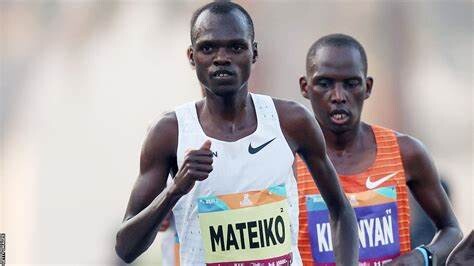
Leading the charge for the Kenyan team is Sebastian Sawe, the reigning World Road Running champion.
Sawe has completed all nine of his half marathons under the coveted 60-minute mark, boasting a personal best (PB) of 58:02.
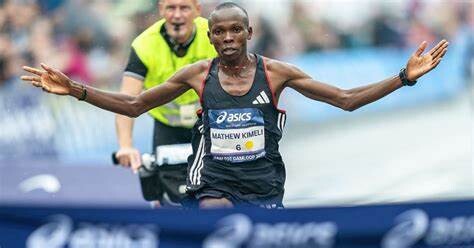
Close on his heels is Mateiko, another consistent performer who has clocked sub-59-minute times on seven occasions, making him one of the most reliable half-marathoners in the world.
Kipkoech, who holds a PB of 59:22, enters the marathon as a serious contender after previously pacing Ethiopian course record holder Sisay Lemma in 2023.
Kimeli who triumphed at the 2023 Bangsaen21 Half Marathon in Thailand with a time of 1:03:39, adds another layer of depth to Kenya’s challenge.
The Kenyan quartet will face stiff competition from a stellar Ethiopian team led by Sisay Lemma, the Valencia Marathon course record holder.
Lemma’s breathtaking 2:01:48, set last year, ranks as the sixth-fastest marathon time in history.
Following his Valencia triumph, Lemma claimed the Boston Marathon title earlier this year with a time of 2:06:17.
Joining Lemma is Ethiopian legend Kenenisa Bekele, whose PB of 2:01:41 makes him the fastest man in the field.
Bekele, a three-time Olympic gold medalist and five-time world champion, continues to be a force at the marathon distance, ranking third on the all-time list.
The Ethiopian roster further includes two-time Tokyo Marathon champion Birhanu Legese, winner of the 2021 Berlin Marathon Guye Adola and Olympian Deresa Geleta who placed fifth at the 2024 Paris Olympics.
by Stephen Awino
Login to leave a comment
VALENCIA TRINIDAD ALFONSO
The Trinidad Alfonso EDP Valencia Marathon is held annually in the historic city of Valencia which, with its entirely flat circuit and perfect November temperature, averaging between 12-17 degrees, represents the ideal setting for hosting such a long-distance sporting challenge. This, coupled with the most incomparable of settings, makes the Valencia Marathon, Valencia, one of the most important events in...
more...2024 Valencia Marathon Elite Fields Announced: Sisay Lemma, Kenenisa Bekele and Amane Beriso Headline
Race organizers for the Valencia Marathon have announced the elite fields for the 2024 edition of the race on Dec. 1.
The field is headlined by 2024 Boston Marathon champion Sisay Lemma returning from injury after withdrawing from the Paris Olympics. He will be challenged by his compatriot and all-time great Kenenisa Bekele, who finished second in April’s London Marathon and 39th at the Paris Olympics at 42 years old.
Kenya’s Sebastian Sawe, who boasts a half marathon personal best of 58:05, and Daniel Mateiko, who has also run 58:17 for the half, are the most intriguing debutants.
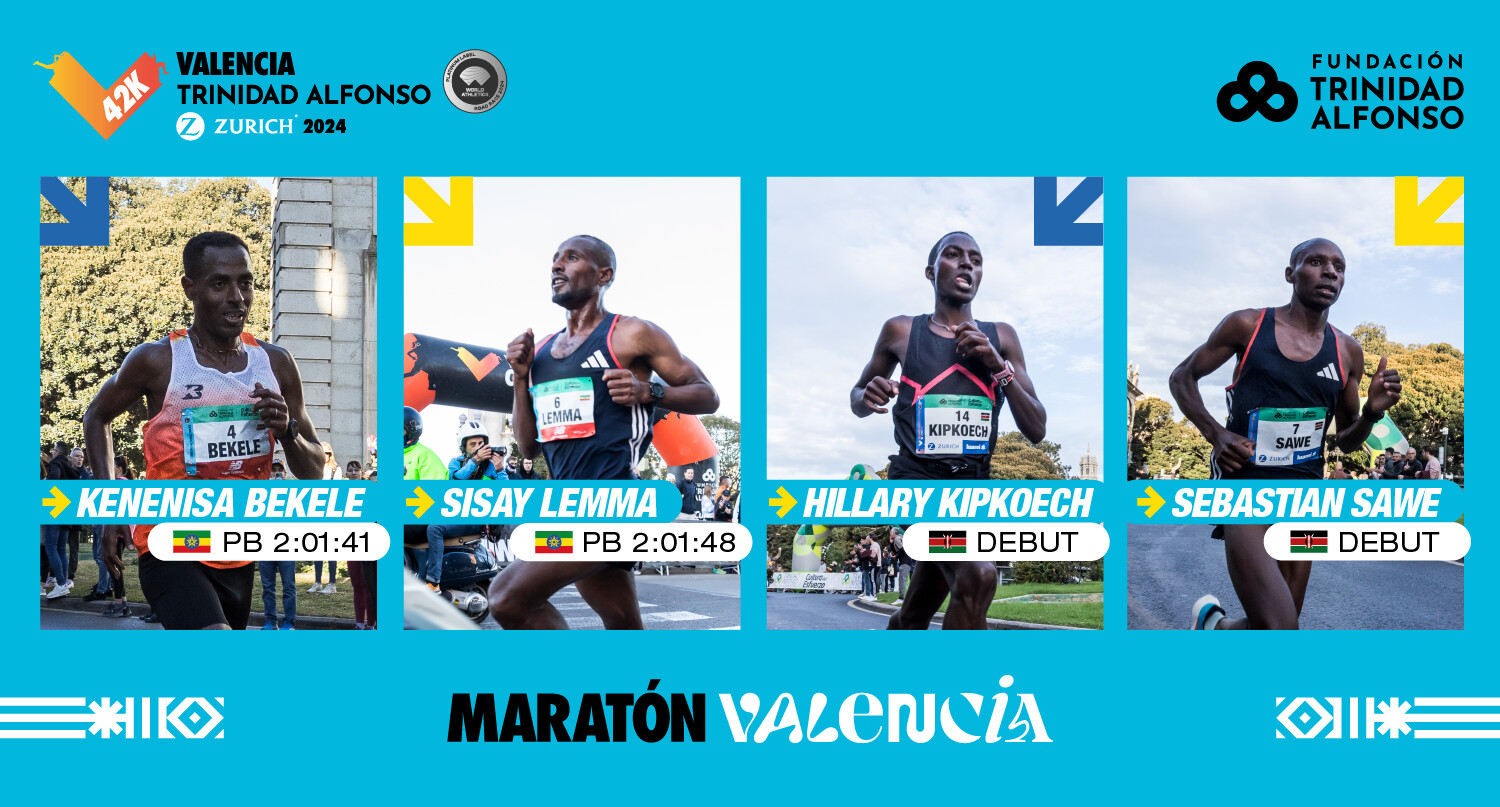
On the women’s side, 2023 World champion Amane Beriso headlines the field with her 2:14:58 personal best from the 2022 Valencia Marathon, which puts her at No. 6 on the all-time list. Her fellow countrywomen Megertu Alemu (2:16:34) and Hiwot Gebrekidan (2:17:59) are the only two other women under 2:18.
American Sara Hall will be running her fourth marathon of the year. Biya Simbassa, who has a personal best of 2:10:34 and was 11th at the U.S. Olympic Marathon Trials in February, is heading to Spain for his third career marathon.
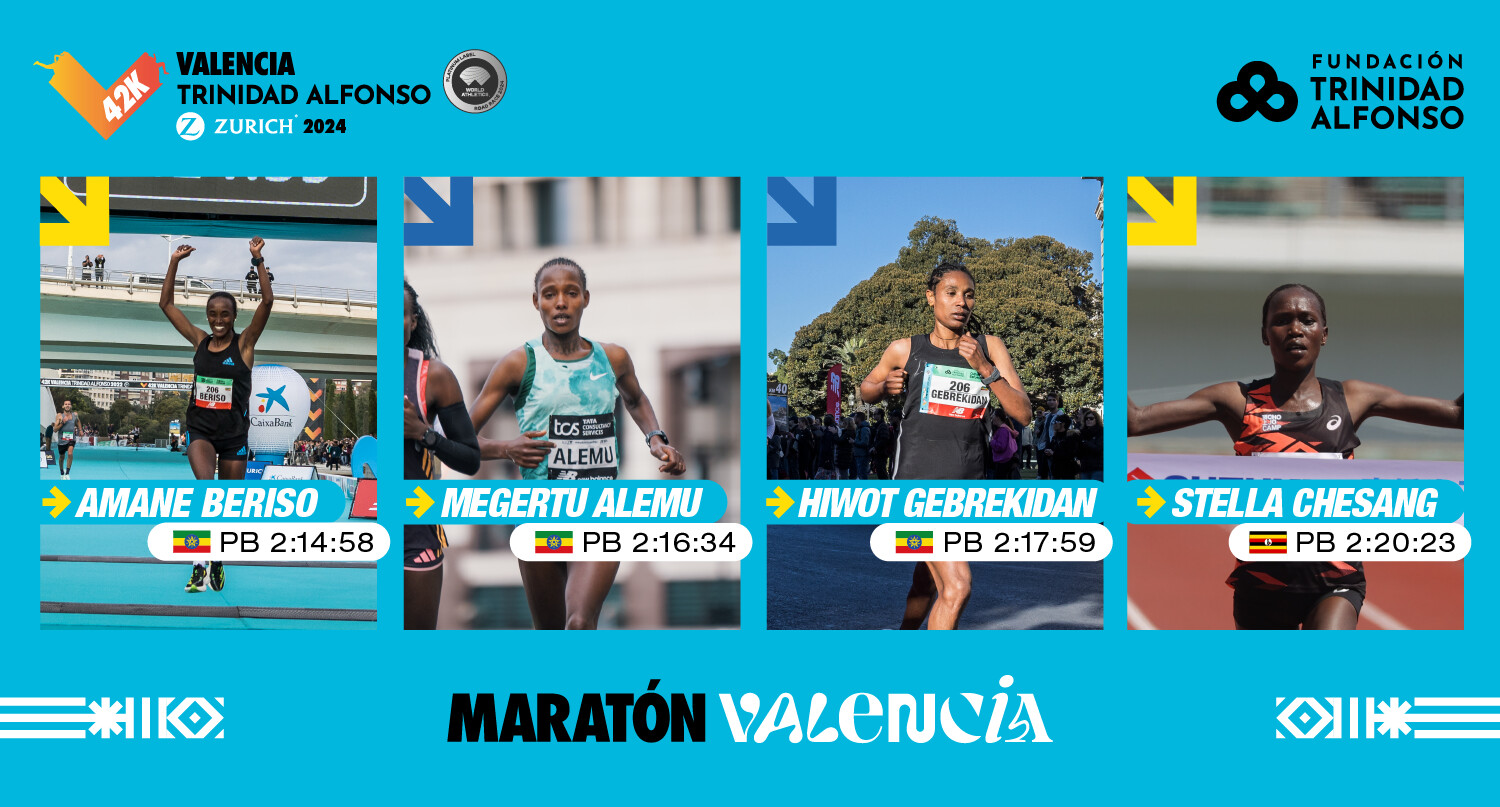
Here’s a list of the notable men who are running…
Men’s Elite Field
Kenenisa Bekele – 2:01:41
Sisay Lemma – 2:01:48
Birhanu Legese – 2:02:48
Deresa Geleta – 2:03:27
Guye Adola – 2:03:46
Gashau Ayale – 2:04:53
Tadesse Abraham – 2:05:01
Alphonce Simbu – 2:05:39
Sondre Moen – 2:05:48
Samwel Fitwi – 2:06:27
Andamlak Belihu – 2:06:40
Maru Teferi – 2:06:43
Shokhrukh Davlyatov – 2:07:02
Richard Ringer – 2:07:05
Zerei Kbrom – 2:07:10
Iliass Aouani – 2:07:16
Samuel Barata – 2:07:35
Héctor Garibay – 2:07:44
Ibrahim Chakir – 2:07:48
Mohamed El Talhaoui – 2:08:03
Peiyou Feng – 2:08:07
Dani Mateo – 2:08:22
Lahsene Bouchikhi – 2:08:36
Abderrazak Charik – 2:08:37
Andy Buchanan – 2:08:58
Weldu Negash Gebretsadik – 2:09:14
Therence Bizoza – 2:09:18
Yohan Durand – 2:09:21
Mohamed Chaaboud – 2:09:21
Simon Boch – 2:09:25
Yimer Getahun – 2:09:27
Bukayawe Malede – 2:09:28
Emmanuel Roudolff – 2:09:34
Yohanes Chiappinelli – 2:09:46
Stephen Scullion – 2:09:49
Paulo Paula – 2:09:50
Peter Herzog – 2:10:06
Bart van Nunen – 2:10:16
Felicien Muhitira – 2:10:17
Dieter Kersten – 2:10:22
Arkadiusz Gardielewski – 2:10:31
Bjorn Koreman – 2:10:32
Abbabiya Simbassa – 2:10:34
Hicham Sigueni – 2:10:37
Johannes Motschmann – 2:10:39
Patricio Castillo – 2:10:40
Jorge Blanco Alvarez – 2:10:49
Archie Casteel – 2:10:49
Yongzheng Huang – 2:10:49
Jakoub Labquira – 2:10:50
Alejandro Jiménez – 2:10:54
Juan Luis Barrios – 2:10:55
Thijs Nijhuis – 2:10:57
Iraitz Arrospide – 2:10:59
Christian Zamora – 2:11:02
Nicolás Cuestas – 2:11:03
Edward Cheserek – 2:11:07
Kamil Jastrzebski – 2:11:09
Necho Tayachew – 2:11:21
Richard Douma – 2:11:21
Linus Rosdahl – 2:11:30
Mohamed El Ghazouany – 2:11:48
Thomas do Canto – 2:11:51
Hesiquio Flores – 2:11:57
Ahmed Elhassouni – 2:12:12
René Cunéaz – 2:12:48
Mario Bauernfeind – 2:12:49
Patrik Wageli – 2:12:58
Jason Pointeau – 2:13:00
Adam Lipschitz – 2:13:01
Joris Keppens – 2:13:18
Alexis Godefroy – 2:13:32
Pierre Denays – 2:13:34
Sebastian Sawe – Debut
Daniel Mateiko – Debut
Matthew Kimeli – Debut
Dillon Maggard – Debut
Here’s a list of the notable women who are running…
Amane Beriso – 2:14:58
Megertu Alemu – 2:16:34
Hiwot Gebrekidan – 2:17:59
Tiruye Mesfin – 2:18:47
Stella Chesang – 2:20:23
Sara Hall – 2:20:32
Majida Maayouf – 2:21:27
Evaline Chirchir – 2:22:11
Chimdesa Kumsa – 2:22:13
Isobel Batt-Doyle – 2:23:27
Malindi Elmore – 2:23:30
Sofia Assefa – 2:23:33
Fionnuala McCormack – 2:23:58
Jessica Stenson – 2:24:01
Gerda Steyn – 2:24:03
Laura Hottenrott – 2:24:32
Camilla Richardsson – 2:24:38
Kaoutar Boulaid – 2:25:03
Clara Evans – 2:25:04
Fatima Azzaharaa Ouhaddou – 2:25:30
Laura Luengo – 2:25:35
Susana Santos – 2:25:35
Moira Stewartova – 2:25:36
Marie Perrier – 2:26:19
Tereza Hrochová – 2:26:38
Zhanna Mamazhanova – 2:26:42
Aleksandra Brzezinska – 2:27:20
Solange Jesus – 2:27:30
Paola Bonilla – 2:27:38
Nora Szabo – 2:28:25
Jane Bareikis – 2:29:00
Becky Briggs – 2:29:06
Alice Wright – 2:29:08
Roberta Groner – 2:29:09
Molly Gravill – 2:29:45
Monika Jackiewicz – 2:29:51
Event organizers announced the race will move forward as scheduled despite severe flooding and more than 200 deaths in the Valencia province. In a statement, organizers announced fundraising plans to aid the city and those affected by the recent storms and flooding.
by Chris Chavez
Login to leave a comment
VALENCIA TRINIDAD ALFONSO
The Trinidad Alfonso EDP Valencia Marathon is held annually in the historic city of Valencia which, with its entirely flat circuit and perfect November temperature, averaging between 12-17 degrees, represents the ideal setting for hosting such a long-distance sporting challenge. This, coupled with the most incomparable of settings, makes the Valencia Marathon, Valencia, one of the most important events in...
more...Chebet and Aregawi poised to strike in Seville
The Cross Internacional de Itálica in Santiponce on the outskirts of the Spanish city of Seville – the fifth Gold standard meeting in the current World Athletics Cross Country Tour – always boasts a quality line-up, and this year’s race on Sunday (17) features the most prominent line-up so far this season.
Entries for the women’s race, contested over 7.5km, are headed by Kenya’s two-time world cross-country champion and double Olympic gold medalist Beatrice Chebet. The 24-year-old has enjoyed a superb season, topped by her 5000m and 10,000m titles at the Paris Olympics, three months after becoming the first woman to dip under the 29-minute barrier for the latter distance thanks to a 28:54.14 clocking in Eugene on 25 May.
Chebet, who is also the reigning world champion and world record holder for the road 5km, will be making her third appearance here following her runner-up spot in 2020 and her third place in 2021. It will be her first race since her 14:09.82 5000m victory at the Diamond League Final in Brussels.
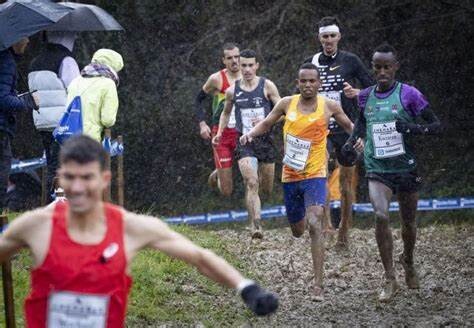
She will start as the overwhelming favourite for the victory, though she’ll face quality opposition in the form of compatriot Mercy Chepkemoi and Kazakhstan’s Daisy Jepkemei. The latter finished seventh at this year’s World Cross Country Championships in Belgrade, and more recently she captured a commanding win in Atapuerca last month.
Chepkemoi is fresh from a fine win in Cardiff last Saturday. She placed fourth over 5000m at the World U20 Championships in Lima in August, finishing just behind bronze medalist Charity Cherop of Uganda, who will also be racing in Santiponce this weekend.
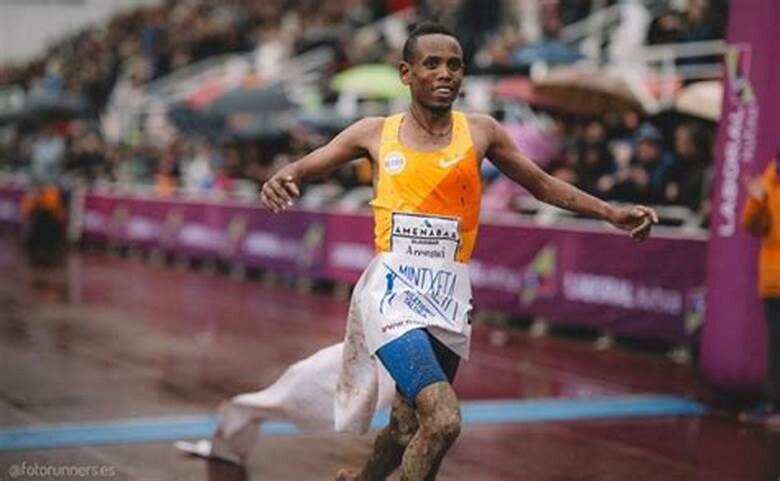
The line-up also comprises Diana and Sharon Chepkemoi, who finished third and seventh respectively in the steeplechase in Lima. Both also competed in Soria last Sunday where they finished third (Diana) and fourth (Sharon).
Meanwhile, France’s Alice Finot, who set a European record of 8:58.67 when finishing fourth in the steeplechase at the Paris Olympics, will be contesting just her second cross-country race in the past seven years.
Portugal’s Mariana Machado recently finished sixth in Atapuerca, sandwiched between Spanish cross-country champion Carolina Robles and Olympic 1500m finalist Agueda Marques who finished fourth and seventh respectively there, closely followed by Maria Forero, the 2022 European U20 cross-country champion. All of them will renew their rivalry this weekend.
European 5000m bronze medalist Marta García, meanwhile, will be making her only cross-country outing of the winter before focusing on the indoor season.
The men’s race has been reduced to 7.5km which plays into the hands of the middle-distance specialists. But that shouldn’t be a problem for Olympic 10,000m silver medalist Berihu Aregawi, as the Ethiopian is also the third-fastest man in history over 3000m.
The 23-year-old opened the year in style by retaining his silver medal at the World Cross Country Championships in Belgrade before setting a 10,000m PB of 26:31.13 in Nerja. Following his Olympic silver in Paris, he clocked an Ethiopian record of 7:21.28 for 3000m and won the 5000m at the Diamond League Final in Brussels.
Sunday’s race will be Aregawi’s first cross-country outing this season, but fellow Etiopians Ayele Tadesse and Wegene Addisu have already made a mark on the tour, finishing second and fourth respectively in Soria last weekend.
Yet Aregawi’s fiercest opposition should come from Burundi’s Rodrigue Kwizera and Spain’s Thierry Ndikumwenayo. Kwizera is still unbeaten this cross-country season, having won in Amorebieta, Atapuerca and Soria. He has successively finished first, second and third on his appearances in Seville over the past three years.
Meanwhile, his training partner Ndikumwenayo – winner in Seville in 2022 – is the European 10,000m bronze medallist and lowered his 10,000m PB to 26:49.49 for ninth place at the Paris Olympics. Ndikumwenayo will travel to Seville from his altitude stint in Sierra Nevada where he’s building up for the European Cross Country Championchips in Antalya on 8 December.
Watch out too for Uruguay’s Santiago Catrofe. He boasts PBs of 7:37:15 for 3000m and 13:05.95 for 5000m and was a surprise winner in San Sebastian two weeks ago when he kicked away from Uganda’s Martin Kiprotich, who’ll also be in contention on Sunday.
Kiprotich will be joined by his compatriots Kenneth Kiprop, Dan Kibet and Hosea Kiplangat. The former is the world U20 5000m bronze medallist and triumphed in Cardiff where Kibet had to settle for third.
The Spanish charge will be led by European indoor 3000m silver medallist Adel Mechaal, US-based Aarón Las Heras, national 10km record-holder Abdessadam Oukhelfen, and the always consistent Nassim Hassaous.
Past winners in Seville include Fernando Mamede (1984 and 1985), Paul Tergat (1998 and 1999), Paula Radcliffe (2001), Kenenisa Bekele (2003, 2004 and 2007), Faith Kipyegon (2016), Joshua Cheptegei (2018) and Jacob Kiplimo (2019).
Temperatures between 22-24C are predicted for the time of the elite races on Sunday.
by World Athletics
Login to leave a comment
Cross internacional de Italica
The Cross Internacional de Itálica is an annual cross country running competition it will be held on 21st of November in Santiponce, near Seville, Spain. Inaugurated in 1982, the race course is set in the ruins of the ancient Roman city of Italica. As one of only two Spanish competitions to hold IAAF permit meeting status, it is one of...
more...Kenya's Elisha Rotich eyes record breaking time at Frankfurt Marathon
Rotich who stands out in the men’s lineup with his exceptional personal best of 2:04:21 is eying a record time finish on the course.
Kenya’s elite marathoners are set for a fierce showdown at the Frankfurt Marathon this Sunday, with seasoned runner Elisha Rotich leading the charge.
Rotich, renowned for his prowess on the marathon circuit, stands out in the men’s lineup with his exceptional personal best of 2:04:21, achieved during his record-breaking win at the 2021 Paris Marathon.
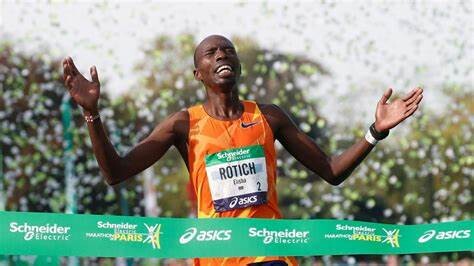
This feat notably saw him surpass the esteemed Kenenisa Bekele’s best time, firmly establishing Rotich as a formidable presence in international marathon running.
Rotich has expressed confidence in his preparations, noting he has spent five intensive months training specifically for the Frankfurt Marathon.
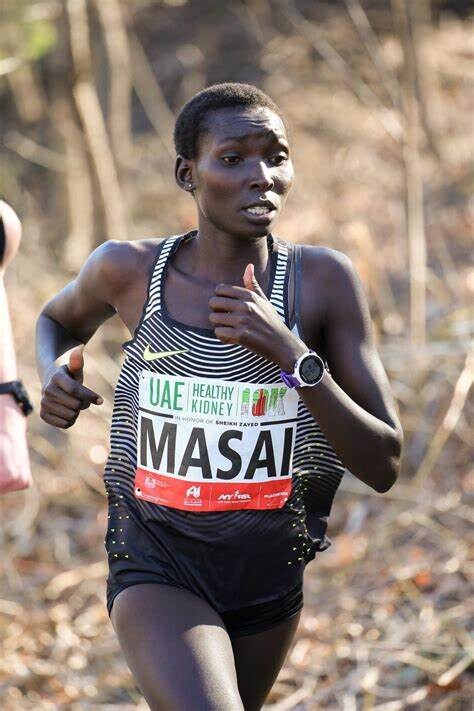
“I’ve rigorously trained for five months targeting the Frankfurt Marathon. Favorable weather, cooler temperatures, and cooperative pacing within the lead group could facilitate sub-2:05 performances,” he shared via Watch Athletics.
Optimistic about favorable weather conditions and strong pacing, Rotich hopes these factors will help him achieve another remarkable sub-2:05 finish.
However, Rotich’s path to the top won’t be without challenge.
He faces tough competition from a talented Ethiopian quartet, including Lencho Tesfaye, who has a personal best of 2:06:18, Aychew Banti (2:06:23), Abay Alemu (2:06:50), and Birhan Nebebew (2:06:52).
Each of these runners has consistently delivered strong performances, underscoring the intense competition that awaits on Sunday.
In addition to Rotich, Kenya is represented by Reuben Kiprop (2:09:06), Bernard Muia (2:09:17), and Vincent Ronoh (2:09:21). T
his group, while less heralded, brings both depth and resilience to Kenya's bid for top honors in Frankfurt.
The women’s field also promises excitement, with Kenya’s Magdalyne Masai leading her country’s contingent with a commendable personal best of 2:22:16.
Masai will face tough competition from Ethiopia’s Shuko Genemo, who has clocked 2:21:35, and Meseret Dinke (2:22:35).
All eyes, however, remain on the 2019 Frankfurt course record of 2:19:10 set by Kenya’s Valary Aiyabei.
With such a strong lineup, the possibility of breaking Aiyabei’s record appears within reach.
by Stephen Awino
Login to leave a comment
Cherop, Negewo and Kipkemoi are set to challenge for victory in Istanbul
A mix of highly experienced marathon runners with strong personal records and younger challengers could produce some fascinating races at the 46th Türkiye Is Bankasi Istanbul Marathon on November 3rd.
Ethiopia’s Abebe Negewo and Kenneth Kipkemoi of Kenya head the current start list with personal bests of sub 2:05:00. Kenya’s former World Championships’ marathon bronze medalist Sharon Cherop is the fastest woman on the list with 2:22:28. Cherop, Negewo and Kipkemoi have all turned 40 this year, but they are still going very strong. They will have to hit top form if they want to challenge for victory in Istanbul. Ethiopians Kelkile Gezahegn and Sentayehu Lewetegn will be among their rivals while 24 year-old debutante Betty Kibet of Kenya could produce a surprise.
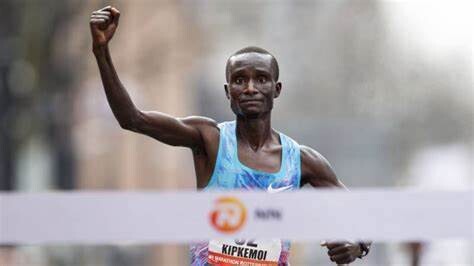
A total of 42,500 runners have entered the race that leads the athletes from the Asian side of the city onto the July 15 Martyrs Bridge and then into the European part of Istanbul. 7,500 of them will run the classic distance on 3rd November. The event is a World Athletics Gold Label Road Race, which guarantees high standards in every aspect. Entries will still be accepted until next Monday (October 14th) at: https://maraton.istanbul
“No marathon is run in a city that bears the traces of three great empires that have left a significant mark on world history. No marathon passes over a bridge that connects continents above a magnificent strait. Thanks to this unique feature, we believe that the Türkiye Is Bankasi Istanbul Marathon is the best thematic marathon in the world,” said Race Director Renay Onur.
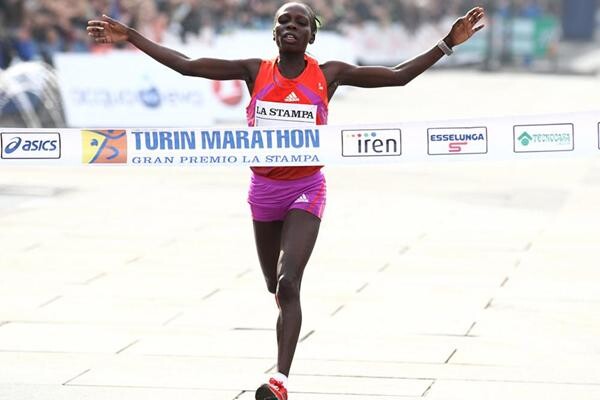
There are now many examples of runners who have turned 40 and still going strong: Kenenisa Bekele, Tadesse Abraham or Edna Kiplagat are among them. With a personal best of 2:04:51 Abebe Negewo is the runner with the fastest PB in the Istanbul field. He ran this time in Valencia in 2019 when he was fourth. While Negewo, who is also known as Abebe Degefa, has not raced as often as during his early career he produced one excellent marathon in each year: 2:05:27 in Valencia in 2021, 2:06:05 in Hamburg in 2022 and 2:08:12 in Rotterdam last year. Negewo has not competed yet this year, so if he wants to continue this streak of strong results Istanbul will be his best chance.
Kenneth Kipkemoi is the other top-class marathon runner in Istanbul’s men’s field who turned 40 this year. The Kenyan’s last three marathons were consistently fast: Kipkemoi ran 2:08:15 in Rotterdam in 2023 and then won the Eindhoven Marathon in the autumn with a personal best of 2:04:52. This year he returned to Rotterdam where he was fourth with 2:05:43.
Two Ethiopians who are more than ten years younger will be among the favourites as well. 28 year-old Kelkile Gezahegn, who has a PB of 2:05:56, is a runner who focusses fully on the classic distance. Since the start of his international career in 2016 he competed only in city marathons. He managed to win all his first four marathons in the year 2016, all in China. “The marathon is my distance,“ said Kellie Gezahegn when he won the Frankfurt Marathon in 2018. Dejene Debela is 29 years old and ran his personal best of 2:05:46 when he was runner-up in Chicago in 2019. After a two year-break, which seems to have been injury related, he came back this year with 2:09:33 in Taiyuan, China.
Sharon Cherop is the most prominent athlete in the elite field of the Türkiye Is Bankasi Istanbul Marathon. The 40 year-old Kenyan took the bronze medal in the marathon at the World Championships in Daegu, South Korea, in 2011. A year later Cherop won the prestigious Boston Marathon and in 2013 she clocked her PB of 2:22:28 when she was runner-up in Berlin. This PB makes her the fastest woman on the start list in Istanbul. Sharon Cherop is still going strong. Last year she won the Milan Marathon and this spring she was second in Hannover with 2:24:41. “I think I can run for a couple of more years,“ she said after the race in Germany.
Sentayehu Lewetegn will be among Sharon Cherop’s challengers. The Ethiopian ran a strong debut in Frankfurt in 2018 with 2:22:45 for sixth place. The 28 year-old could not improve this PB yet, but she came close in Ljubljana: Two years ago she was second there with 2:22:36.
Betty Kibet is an athlete who could have an immediate impact in the marathon. The 24 year-old Kenyan will run her debut over the classic distance in Istanbul. While she has a promising 66:37 half marathon PB she ran the Türkiye Is Bankasi Istanbul Half Marathon this April and finished sixth with a fine 68:39. Betty Kibet, who was a world-class junior athlete in her early career, has a strong 10k PB of 31:08 and ran 1:21:43 in Kolkata, India, for 25k in December last year.
by AIMS
Login to leave a comment
N Kolay Istanbul Marathon
At the beginning, the main intention was simply to organise a marathon event. Being a unique city in terms of history and geography, Istanbul deserved a unique marathon. Despite the financial and logistical problems, an initial project was set up for the Eurasia Marathon. In 1978, the officials were informed that a group of German tourists would visit Istanbul the...
more...Kandie spearheads star-studded field to Berlin Marathon
Former World Half Marathon record holder Kibiwott Kandie spearheads a stellar lineup at the Berlin Marathon on September 29.
The organisers anticipate a record-breaking turnout of over 50,000 participants, surpassing last year’s 48,000.
“The organisers of the BMW Berlin Marathon are expecting a record number of more than 50,000 runners on September 29, when Germany's most high-class and spectacular road race will take place for the 50th time,” the organisers said in a statement.
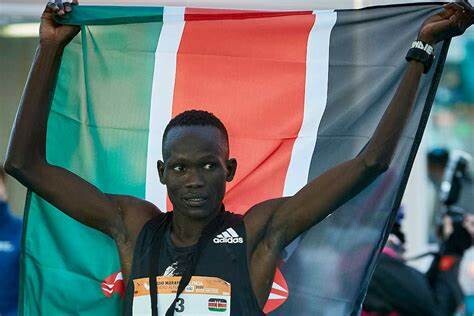
“However, two names are missing from the start list this time. Kenya's superstar Eliud Kipchoge and Ethiopia's running legend Kenenisa Bekele. For the first time since 2014, neither of them will be taking part in Berlin.”
Kipchoge is the all-time Berlin Marathon champion having won a record five times. Last year, Kipchoge cut the tape in 2:02:42 followed by Vincent Kipkemoi (2:03:13) and Tadese Tekele of Ethiopia (2:03:24).
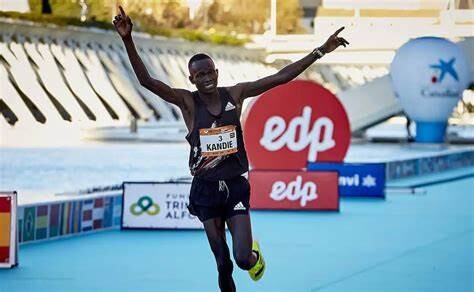
Kandie is a three-time Valencia Half Marathon champion from 2020 (57:32), 2022 (58:10) and 2023 (57:40).
He boasts titles from the 2020 Prague Half Marathon (58:38), the 2022 Adizero Road to Records 10km race (26:50) and the 2020 Ras Al Khaimah Half Marathon (58:58).
He has a silver at the 2020 World Half Marathon Championships (58:54) and a bronze in the 10,000m at the 2022 Commonwealth Games (27:20.34).
He will team up with 2022 Castellon Marathon winner Ronald Korir, Amsterdam Marathon runner-up Cyprian Kotut, 2023 World Road Running bronze medallist Samwel Mailu and Shanghai Marathon champion Philemon Kiptoo.
Ethiopia’s Takele, last year’s silver medallist, is expected to pose a serious challenge for the Kenyans, alongside compatriot Hailemaryam Kiros, the 2023 Osaka Marathon champion.
Tokyo Marathon runner-up Rosemary Wanjiru leads the charge in the women’s elite race.
The 29-year-old’s accolades include victories at the 2023 Tokyo Marathon (2:16:28) and the Hokuren Distance Challenge in the 10,000m (30:38.18) in Japan.
She is also a runner-up at the 2020 Valencia 10km Road race (29:50) and the 2022 Berlin Marathon (2:18:00).
She faces a rich Ethiopian contingent led by Dubai Marathon champion Tigist Ketema, 2018 Shanghai Marathon champion Yebrgual Melese, Paris Marathon champion Mestawut Fikir and 2023 Osaka Marathon runner-up Sisay Meseret.
Also in the mix is three-time Osaka Marathon champion Mizuki Matsuda of Japan.
by Teddy Mulei
Login to leave a comment
BMW Berlin Marathon
The story of the BERLIN-MARATHON is a story of the development of road running. When the first BERLIN-MARATHON was started on 13th October 1974 on a minor road next to the stadium of the organisers‘ club SC Charlottenburg Berlin 286 athletes had entered. The first winners were runners from Berlin: Günter Hallas (2:44:53), who still runs the BERLIN-MARATHON today, and...
more...Wanjiru and Takele return for 50th Berlin Marathon
Four women with sub-2:20 PBs and six men to have dipped under 2:05 feature on the entry lists for the BMW Berlin Marathon, a World Athletics Platinum Label road race, on September 29.
Ethiopia’s Tigist Ketema and Kenya’s Rosemary Wanjiru top the women’s entry list with PBs that put them in the top 10 on the world marathon all-time list.
Ketema, who had been better known as an 800m and 1500m specialist, stormed into the marathon spotlight in Dubai in January as she ran 2:16:07, a time that makes her the ninth-fastest women’s marathon runner in history. She followed that with 2:23:21 for seventh place in London in April and Berlin will be her first race since then.
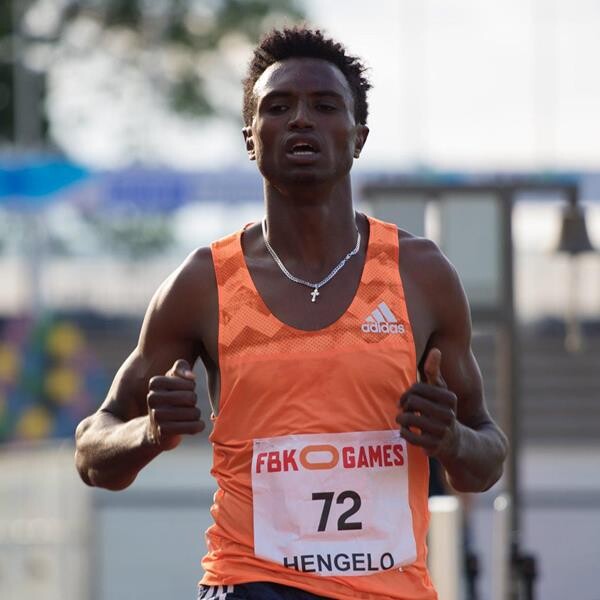
Just one place behind Ketema on the all-time list is Wanjiru, who clocked 2:16:14 to finish second in Tokyo in March. That followed her sixth place in the World Championships marathon in Budapest and victory in the Tokyo Marathon last year. Wanjiru also finished second in Berlin in 2022, running 2:18:00 on her debut.
Joining them on the start line are Ethiopia’s Genzebe Dibaba and Yebrugal Melese, who have respective PBs of 2:18:05 and 2:19:36, plus their compatriots Mestawot Fikir (2:20:45), Azmera Gebru (2:20:48), Sisay Gola (2:20:50), Ababel Yeshaneh (2:20:51) and Fikrte Wereta (2:21:32), as well as Japan’s Mizuki Matsuda (2:20:52).
A total of 13 world records have so far been set in the Berlin Marathon, the most recent being the 2:11:53 by Tigist Assefa in last year’s women’s race.
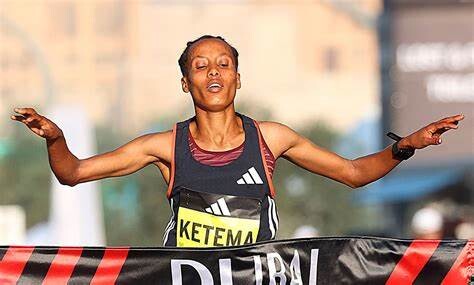
The men’s title on that occasion was won by Eliud Kipchoge, as he claimed a record fifth victory.
This year, for the first time since 2014, the men’s race will not feature Kipchoge or Kenenisa Bekele – who between them have won the race seven times, with two of Kipchoge’s wins having been claimed in world records – but fast times will still be the target.
Among those who will be returning to Berlin are Ethiopia’s Tadese Takele and Ronald Korir of Kenya, who placed third and fourth last year in respective PBs of 2:03:24 and 2:04:22.
Kenya’s Cybrian Kotut ran his PB of 2:04:34 when finishing second in Amsterdam last year and makes his Berlin Marathon debut, while Ethiopia’s Hailemaryam Kiros and Bazezew Asmare have also broken 2:05 in their careers so far, respectively running 2:04:41 in Paris in 2021 and 2:04:57 in Amsterdam in 2022.
Kenya’s Kibiwott Kandie races the marathon for the third time. The former world half marathon record-holder, who clocked 57:32 for 13.1 miles in 2020, will be looking to build on the PB of 2:04:48 he set in Valencia last year.
Also seeking a spot on the podium will be Kenya’s Samwel Mailu, the world half marathon bronze medallist who set a course record of 2:05:08 to win the Vienna City Marathon last year and continues his comeback after injury.
by World Athletics
Login to leave a comment
BMW Berlin Marathon
The story of the BERLIN-MARATHON is a story of the development of road running. When the first BERLIN-MARATHON was started on 13th October 1974 on a minor road next to the stadium of the organisers‘ club SC Charlottenburg Berlin 286 athletes had entered. The first winners were runners from Berlin: Günter Hallas (2:44:53), who still runs the BERLIN-MARATHON today, and...
more...50th BMW BERLIN-MARATHON ON 29 SEPTEMBER: ELITE FIELD
The men’s elite field for the 50th edition of the BMW BERLIN-MARATHON race comes with a change that reflects the recent development at the very top of elite marathon racing.
It will be the first time since 2014 that you will not find the name of either Eliud Kipchoge or Kenenisa Bekele on the start list of the BMW BERLIN-MARATHON. However the Elite Race Director of the marathon where most world records (13) were broken, Mark Milde, can be confident that not so much will change regarding the outcome. Although world-records will not be the target on 29th September, the jubilee race could well deliver extraordinary fast times yet again.
A record number of more than 50,000 runners are expected to run the 50th BMW BERLIN-MARATHON on 29th September. The race, that saw its first edition back in 1974 with 244 finishers, never had over 50,000 runners before.
From those on the men’s start list at least one has the potential to become Kenya’s next marathon superstar: Kibiwott Kandie is a former world half marathon record holder with a personal best of 57:32. This time suggests that he could become one of the fastest marathon runners of all time if he can transform his talent to the classic distance. The 28 year-old, who has a current PB of 2:04:48 and was inspired by former Berlin world record breaker Paul Tergat, is one of half a dozen runners who feature very strong personal bests of sub 2:05:00.
Returning to the BMW BERLIN-MARATHON will be Ethiopia’s Tadese Takele and Ronald Korir of Kenya, who placed third and fourth last year. Both ran their personal bests of 2:03:24 and 2:04:22 here. Kenya’s Cybrian Kotut, a younger brother of former Abbott World Marathon Majors Champion Martin Lel, will run his first BMW BERLIN-MARATHON. Kotut features a PB of 2:04:34. Ethiopians Hailemaryam Kiros (2:04:41) and Bazezew Asmare (2:04:57) are the other two runners with sub 2:05 PBs. Another runner who could challenge for a place on the podium is Samwel Mailu. The Kenyan smashed the course record of the Vienna City Marathon last year with 2:05:08. Due to an injury the bronze medallist from the 2023 World Half Marathon Championships was unable to compete this spring.
The women’s race could see a battle between Ethiopia’s newcomer Tigist Ketema and Kenya’s Rosemary Wanjiru. With their personal bests they are among the top ten on the marathon all-time list. Tigist Ketema took the Dubai Marathon this year with an unofficial world debut record of 2:16:07.
She is a training partner of Tigst Assefa, who smashed the world record at the BMW BERLIN-MARATHON a year ago. Rosemary Wanjiru ran her marathon debut in Berlin two years ago and finished second with a brilliant 2:18:00. This year she improved to 2:16:14 when she was runner-up in Tokyo.
Former 1,500m world record holder Genzebe Dibaba, who is the younger sister of Ethiopian running legend Tirunesh Dibaba, will hope to achieve a fast time on the flat Berlin course. She ran a 2:18:05 debut in Amsterdam two years ago, but was not yet able to improve this time. Genzebe Dibaba was the 2014 Laureus World Sportswoman of the Year. Fellow-Ethiopian Yebrgual Melese is the fourth woman on the start list who has a sub 2:20 PB with 2:19:36.
Elite Runners for the 50th BMW BERLIN-MARATHON:
MEN
Tadese Takele ETH 2:03:24
Ronald Korir KEN 2:04:22
Cybrian Kotut KEN 2:04:34
Hailemaryam Kiros ETH 2:04:41
Kibiwott Kandie KEN 2:04:48
Bazezew Asmare ETH 2:04:57
Samwel Mailu KEN 2:05:08
Milkesa Mengesha ETH 2:05:29
Haymanot Alew ETH 2:05:30
Philimon Kipchumba KEN 2:05:35
Stephen Kiprop KEN 2:07:04
WOMEN
Tigist Ketema ETH 2:16:07
Rosemary Wanjiru KEN 2:16:14
Genzebe Dibaba ETH 2:18:05
Yebrugal Melese ETH 2:19:36
Mestawot Fikir ETH 2:20:45
Azmera Gebru ETH 2:20:48
Sisay Gola ETH 2:20:50
Ababel Yeshaneh ETH 2:20:51
Mizuki Matsuda JPN 2:20:52
Fikrte Wereta ETH 2:21:32
Login to leave a comment
BMW Berlin Marathon
The story of the BERLIN-MARATHON is a story of the development of road running. When the first BERLIN-MARATHON was started on 13th October 1974 on a minor road next to the stadium of the organisers‘ club SC Charlottenburg Berlin 286 athletes had entered. The first winners were runners from Berlin: Günter Hallas (2:44:53), who still runs the BERLIN-MARATHON today, and...
more...Ethiopia’s late sub Tola wins marathon in Olympic record in brutal conditions over hugely challenging course
Tamirat Tola, called into the Ethiopian team as a late replacement, won the men’s marathon title in an Olympic record of 2:06:26 in brutal heat and humidity over a course of hugely demanding hills, with Belgium’s Bashir Abdi earning silver in 2:06:47.
Kenya’s Benson Kipruto, fastest in the world this year after winning the Tokyo marathon in 2:02:16, marked his Olympic debut with bronze in 2:07:00 on a day when his 39-year-old compatriot Eliud Kipchoge, seeking a third consecutive title, failed to finish.
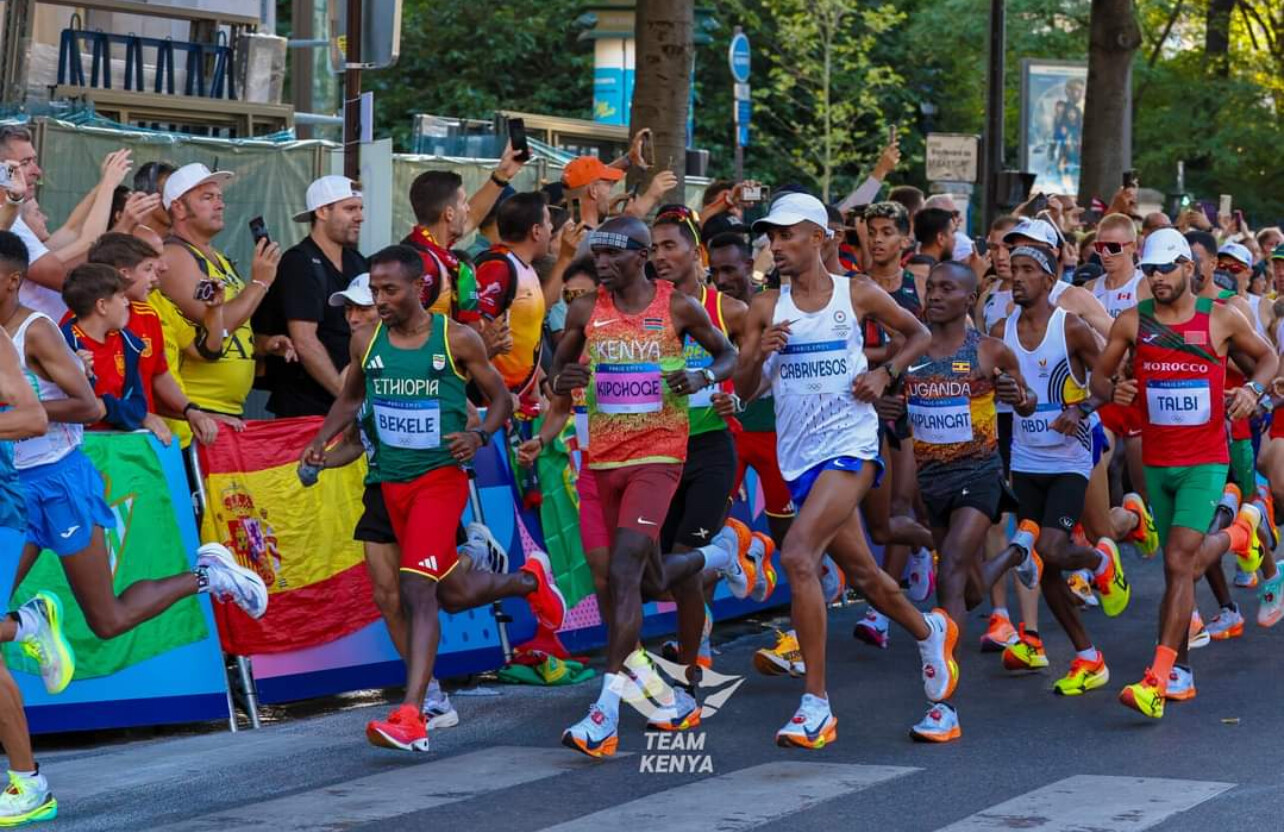
Britain’s Emile Cairess, making his Olympic debut, finished in fourth place, clocking 2:07:29 after moving past Ethiopia’s Deresa Geleta in the finishing stages, with the latter recording 2:07:31 and finishing a second ahead of Japan’s Akira Akasaki, who set a personal best.
In the circumstances it was scarcely creditable that Tola bettered the Olympic mark of 2:06:32 set at the Beijing 2008 Games by the late Kenyan runner Sammy Wanjiru.
Huge crowds lined the route in the closing stages, and the spectacle concluded amid packed grandstands in front of Les Invalides, its gilded dome glinting in the morning sunshine.
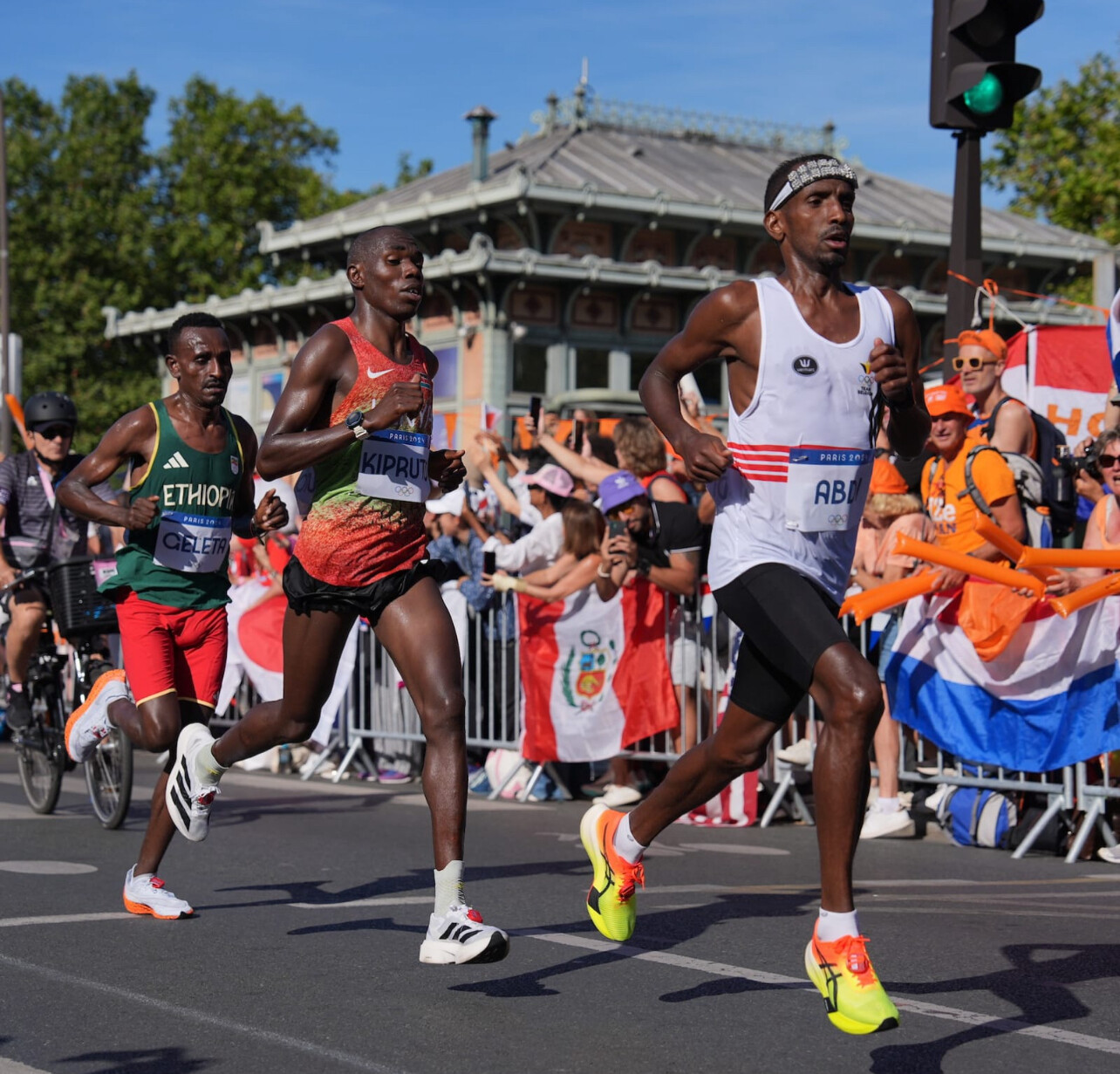
On a day like this, on a course like this, there was something fitting about the race concluding alongside the building constructed in the 17th century as a haven for disabled soldiers. Everyone completing the course today was a warrior.
Tola, the 2022 world champion, thus joins the fabled list of fellow Ethiopians who have won this prized race – Abebe Bikila in 1960 and 1964, Mamo Wolde in 1968 and Gezahegne Abera in 2000 – and added gold to the Olympic 10,000m bronze he won in 2016.
For an Ethiopian team that has not enjoyed its customary success on the track, this was a day of days – and they will have hopes of further success when the athletics programme concludes with the women’s marathon tomorrow.
“I am happy today because I fulfilled my goal,” said Tola, Ethiopia’s first gold medallist of these Games. “I prepared well. I trained hard so I could win. In my life, this is my great achievement.
“I was the reserve in the Ethiopian team, but when Sisay (Lemma) had injuries, then I had a chance to represent him. I was fully prepared and knew I could fulfil my dream. I am happy to do that today.
“This is the Olympics and it is not easy to win the Olympic Games, not at all. I am very proud, very happy.”
Abdi, who has recently recovered from a stress fracture of the hip, commented: "The course was very tough today. I tried not to lose a lot of energy. I tried to run as smartly as possible, so I am very, very happy with this result.
"The weather was hot, (the terrain featured) a lot of ups and downs. Actually, I expected going uphill would be most challenging, but I found going downhill most difficult.
“It was very steep and you don’t have control of your body. That was very scary, especially after 29km, we had almost 2km of running downhill and it was just going more down and down, and I was really afraid of falling.
"This is the hardest marathon course I’ve ever run."
Asked about his return from injury, he added: "It was really a long journey. At the beginning of the year I got a stress fracture, which meant I couldn’t run any races. I came here without any preparation and didn’t know what to expect.
"I told myself before I started, 'OK, you don’t have any race rhythm, but you are fresh, it is your first race of the season, you will be the only guy who is fresh’. That’s what I was repeating to myself during the race."
Kipruto commented: “The course was tough but I’m happy with the result I posted. I trained with the mind first before going to the legs and the heart. Running uphill and downhill was not easy.
“This was the hardest marathon I have run, and a different experience because it was my first Olympic Games."
"I saw Tola pushing but I said, 'no, it’s too early', so I tried to close the gap slowly."
Always in touch with the lead, Tola first took control of the race just after the 20km mark as the field came to the brow of the first long climb, overtaking Italy’s Eyob Faniel, who had pushed ahead by 23 seconds at the 15km mark before the start of the grinding uphill stretch.
The pack, led by Akasaki, Geleta and South Africa’s Elroy Gelant, caught up with him by the 25km mark, which was passed in 1:16:08, but Tola made his decisive move in the hardest part of the course – a brutal, extended climb from 27.5km to 29km involving a 16 per cent incline.
The pack soon became a straggling line as each runner worked out the best way of coping with a challenge so severe that some coaches here had been wondering whether it might be best for their charges to walk this stretch.
Once he got to the brow of the hill, he made the most of it, accelerating away from his labouring rivals and establishing an 11-second lead as he went through 30km in 1:32:12.
Such were the ups and downs of the route that it almost resembled a roller-coaster – but one which guaranteed no one involved had any fun at the fair.
The crucial question at this point was: could Tola, alone, resist the pack that was gradually re-gathering behind him? The answer became gradually and gloriously clear. Tola was never headed thereafter.
At 35km his lead was 18 seconds, at 40km it was 22 seconds. No one was going to stop him.
It was a tribute to Tola’s dedication that he should have been so patently ready to take on this monster of a marathon course at such short notice following the injury to Lemma, who won this year’s Boston Marathon in 2:06:17, having moved to fourth on the world all-time list with his 2:01:48 victory in Valencia last year.
They were huge super-shoes to fill – but Tola did so magnificently.
For Kipchoge it was clear well before the halfway point that he was not going to be challenging for a third consecutive title as he began dropping back, his hand going to his left hip as his face registered discomfort and pain. He dropped out shortly after falling back to 71st position at 30km.
Meanwhile his long-time rival Kenenisa Bekele, returning aged 42 to the Olympic arena where he won three golds and a silver on the track, finished 39th in 2:12:24.
"Around 15km my hamstring felt stretched, so I could not do any more after that,” Bekele said. “Even after 10km I was feeling the strain, so I knew I could not catch up with the leaders."
"It is fantastic that Ethiopia won the race. Tola is very strong, and I am happy for him."
"People have been talking about me and Kipchoge, but you see it was the young generation today. These guys are stronger than us.”
by Mike Rowbottom (World Athletics)
Login to leave a comment
Paris 2024 Olympic Games
For this historic event, the City of Light is thinking big! Visitors will be able to watch events at top sporting venues in Paris and the Paris region, as well as at emblematic monuments in the capital visited by several millions of tourists each year. The promise of exceptional moments to experience in an exceptional setting! A great way to...
more...Joshua Cheptegei reigns in 10,000
The 27-year-old Ugandan, who took silver in Tokyo and gold over 5,000m, produced a devastating last 600m to come home in 26:43.14 minutes, knocking 18 seconds off Kenenisa Bekele’s 2008 Olympic record
World record holder Joshua Cheptegei claimed the Olympic 10,000m title he so desperately wanted on Friday when he found a late surge to win a fantastic race and take the Games' first track gold.
The 27-year-old Ugandan, who took silver in Tokyo and gold over 5,000m, produced a devastating last 600m to come home in 26:43.14 minutes, knocking 18 seconds off Kenenisa Bekele’s 2008 Olympic record.
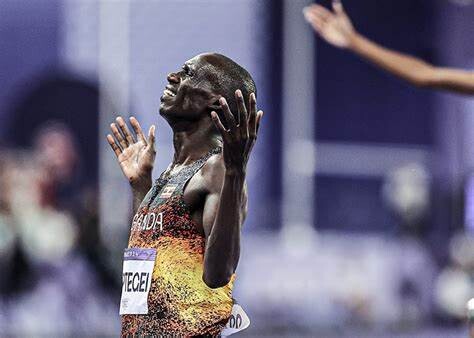
Berihu Aregawi, part of a three-pronged Ethiopian front-running group almost from the start, finished strongly for silver in 26:43.44 and Grant Fisher took a superb bronze in 26:43.46 — only the United States' fourth medal over the distance since the event was added to the Games in 1912.
Cheptegei, world champion in 2019, 2022 and 2023, was surprisingly beaten to gold by Ethiopian Selemon Barega in Tokyo and was desperate for revenge. "My collection for this run is really complete. I'm so excited," he told reporters.
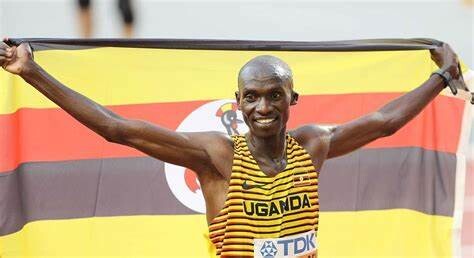
"I said, 'one day I want to be Olympic champion'. It is the most special day. I can’t describe the feeling. I’ve wanted this for a long time. When I took silver in Tokyo I was so disappointed. I just wanted to win the 10,000m."
by Reuters
Login to leave a comment
Paris 2024 Olympic Games
For this historic event, the City of Light is thinking big! Visitors will be able to watch events at top sporting venues in Paris and the Paris region, as well as at emblematic monuments in the capital visited by several millions of tourists each year. The promise of exceptional moments to experience in an exceptional setting! A great way to...
more...There Are Going to Be People Walking:’ A Look at the Grueling Olympic Marathon Course
Getting to run by all those historic spots requires some epic climbs and descents.The final weekend of the 2024 Paris Olympics will host back-to-back days of thrilling marathons. These prestigious races, set against the backdrop of two of France’s most iconic landscapes—Paris and Versailles—will weave through a tapestry of history, culture, and breathtaking scenery. They begin on August 10 with the men’s race, and then, in a nod to the 40th anniversary of the first women’s Olympic Marathon in Los Angeles, the Paris Olympics will conclude on August 11 with the women’s race for the first time in history.
Here are some of the key details you’ll want to know:
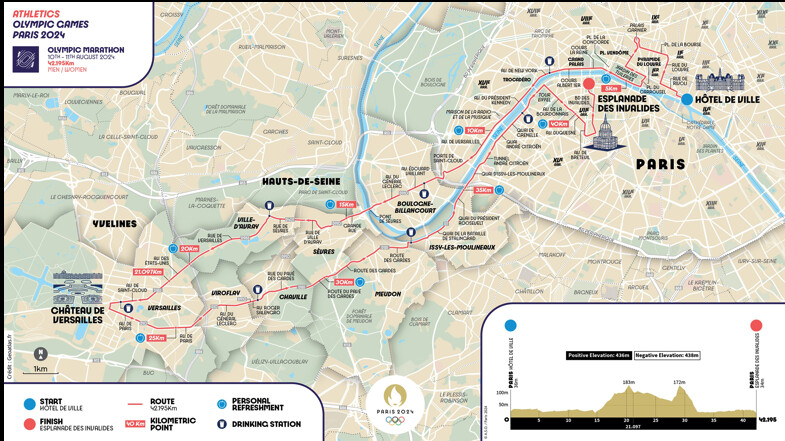
What sites will the runners pass?
It’s not a bad way to tour the area, and it’s quite different than the Paris Marathon that is held each April. Athletes will find themselves tracing a route that dances through nine arrondissements (neighborhoods) of Paris along the banks of the Seine. The runners will begin at the Hôtel de Ville, or city hall, and then pass landmarks such as the Palais Garnier opera house, Place Vendôme, the Louvre museum, and past the Trocadéro.
Next, they will leave the city to run through historic French towns, including Sevres, on their way to Versailles. The return to the city is a different route and will take them through the Forêt Domaniale de Meudon, a forest. When back in the city, they will be on the Left Bank and run past the Eiffel Tower as well as Parisian neighborhoods. The race ends at the Esplanade des Invalides, in which Napoleon is buried.
This route is based on significant French history. In October 1789, between 6,000 and 7,000 Parisian women, joined by men, marched from the Hôtel de Ville through the city to Versailles. It was because of that march that Louis XVI agreed to ratify the Universal Declaration of the Rights of Man and Citizens. The marathoners are symbolically running in their footsteps.
How tough is the course?
Unlike some more recent Olympics and U.S. Marathon Trials races, this course isn’t a circuit of repeated loops. Instead, it’s a full loop starting in Paris and loops down to Versailles outside of the city.
While the elevation profile for the first nine miles looks fairly tame, once the runners are past the halfway mark the landscape changes. The most notable course feature is the three uphill stretches—they’re incredibly steep and very long.
The first big hill comes just before the 10-mile mark, and it climbs at a 4 percent grade, which is roughly the same as Boston’s famed Newton hills. The difference with the Paris version is that it ascends for about 1.25 miles before it levels off for a bit. (Boston’s longest hill is less than half a mile, according to Sean Hartnett, emeritus professor of geography at the University of Wisconsin-Eau Claire, who specializes in marathon routes and other running competitions.)
The next hill at the 12-mile mark is at 5 percent, steeper than anything on the Boston course and 900 meters long. But those two are just appetizers for the real challenge. That hits just after the 18-mile mark.
Runners will have to climb for 600 meters, at an average grade of 10.5 percent. Yes, picture putting your treadmill at 10 percent and trying to run up it at marathon pace. Hartnett calls it a “doozy” and struggles to find courses to compare it to. The Bix 7 in Davenport, Iowa, perhaps? Then he gives up. “It’s unlike anything in any competitive road marathon,” he said. (You can view a detailed description of the 15K-33K section as mapped by Hartnett here.)
In total, the route will include 1,430 feet of elevation gain. Possibly more challenging is the 1,437 feet of descent. The make-or-break point for the route might be just after that final brutal uphill, when they are bombing downhill—at some points at a gradient of 13.5 percent. Runners will have to be efficient going down, without pounding so much they trash their quads before the final flat stretch before the finish. To put the course into some more perspective, the World Marathon Majors that are considered the hilliest—Boston and New York City—each have an elevation gain of a little over 800 total feet. And for one final nugget, the average grade of the Mount Washington Auto Road Race is 12 percent. The course record for that 7.4-miler is at around 8:00 pace.
This course will make the fastest marathoners in the world look almost human at times.
How do the marathoners feel about the course?
Pat Tiernan, an Olympian for Australia who is running the marathon, made two trips to Paris from his training base with Puma in North Carolina to examine the course. His first trip, in early April, was just to get a feel for the course. The second, in late May, was to train on it.
“The first thing you notice,” Tiernan said in a phone call with Runner’s World, “is that it’s going to be a brutal course. There are going to be people walking.”
If you look closely at the official Strava route, you can spot some U.S. Olympic marathoners on the leaderboards of the course’s toughest segments.
On April 10, U.S. team member Clayton Young did a 12.80-mile run on the hilliest section of the course, where he “pushed the uphills, chilled the downhills.” During the steepest climb—right before the mile 18 split—Young tackled a .44-mile segment in 3:09, giving him a modest average pace (for a world-class marathoner) of 7:01 per mile. But if you look at Strava’s “grade adjusted pace,” which factors in elevation, that 7:01 converts to 5:03 mile pace. His average heart rate was 179 beats per minute.
Dakotah Lindwurm, a U.S. team member for the women, also previewed the course in April in a run she called, “Tour de La Olympic hills ?].” She racked up an impressive 16 “course records” during her 10.87-mile workout, and on the same steep segment that Young ran, she averaged 7:43 pace with a grade-adjusted pace of 5:21 per mile.
Emily Sisson, the U.S. record holder in the marathon, has been training for both the hills and the flats. “We’ve been doing a lot of stuff on hills, because [we] want to come out of the hills into the last 10K feeling good,” she says. “That’s also why you don’t want to slack on 10K work, because it could be quite fast at the end. So kind of trying to do it all.”
Tiernan agreed with Sisson on the unique challenge. If marathoners go too hard through the hills, they could struggle at the end, he said. If they go too easy through the hills and subsequent descents, they might be out of touch by the final 10K. He said the Paris course is as “if you were to do a 10K road race, then go and run a hard 10K hill cross country course, then a 10K road race.”
If nothing else, it could make for some surprises on the podium.
When exactly are the races?
The men’s event happens on Saturday, August 10. If you want to watch live, get your favorite espresso ready. The event begins at 2 a.m. ET/11 p.m. PT in the U.S. The following day for the women’s race, the 2024 Paris Olympics fully conclude in honor of the 40th anniversary of the first women’s Olympic marathon event, won by Joan Benoit-Samuelson. The start time is also at 2 a.m. ET/11 p.m. PT.
Who are the major names in each race?
Both races are packed with star power in the form of returning Olympic champions, world record holders, and World Marathon Majors winners. The biggest storyline in the men’s race is whether Eliud Kipchoge, the two-time Olympic marathon gold medalist who many consider to be the greatest of all time, will be able to retain his crown in what may be his final Olympics at age 39.
The women’s event is even more stacked and should make for quite the event to cap off the 2024 Olympics. Newly ratified world record holder Tigist Assefa of Ethiopia will have to match speed and strategy against the likes of Hellen Obiri and Peres Jepchirchir of Kenya and the Netherlands’s Sifan Hassan, who is running the marathon after racing in the 5,000 and 10,000 meters on the track.
Men’s Marathon Contenders
Eliud Kipchoge, Kenya (2:01:09)
Kenenisa Bekele, Ethiopia (2:01:41)
Benson Kipruto, Kenya (2:02:16)
Tamirat Tola, Ethiopia (2:03:39)
Conner Mantz, USA (2:07:47)
Clayton Young, USA (2:08:00)
Women’s Marathon Contenders
Tigist Assefa, Ethiopia (2:11:53)
Sifan Hassan, Netherlands (2:13:44)
Peres Jepchirchir, Kenya (2:16:16)
Emily Sisson, USA (2:18:29)
Hellen Obiri, Kenya (2:21:38)
Rose Chelimo, Bahrain (2:22:51)
Fiona O’Keeffe, USA (2:22:10)
Sharon Lokedi, Kenya (2:22:45)
Did you know there is a mass participation race?
If not, now you do. It’s called the Marathon Pour Tous, and we’re pretty jealous we can’t run this one. There will be a full marathon and a 10K on the same route as the Olympic marathon on the evening of August 10. Yes, a night race in the City of Lights. More than 20,000 participants are expected for each event.
by Runner’s World
Login to leave a comment
Kenya's hopes rest on Daniel Mateiko, Nicholas Kimeli & Bernard Kibet to win 10,000m gold since 1968
Daniel Mateiko, Nicholas Kimeli, and Bernard Kibet will have the pressure to deliver Kenya's gold medal since Naftali Temu's exploits at the 1968 Mexico City Olympics.
The trio of Daniel Mateiko, Nicholas Kimeli and Bernard Kibet are tasked with a daunting task to reclaim Kenya’s 10,000m title once they toe the line at the Stade de France on Friday, August 2.
The men’s race starts at 10:20 p.m. East African Time with the trio taking on one of the strongest fields in history with the main aim to reclaim Naftali Temu’s title won at the 1968 Mexico City Olympics.
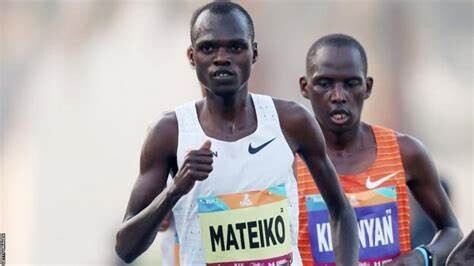
Kenyans have had a rough time of winning the gold medal following the emergence of Ethiopians and Ugandans who have dominated the race. Kenenisa Bekele, Mo Farah, Joshua Cheptegei have dominated the global stage with Bekele and Farah winning two titles each.
Selemon Barega won the title at the delayed 2020 Tokyo Olympic Games with Cheptegei and Jacob Kiplimo taking second and third place respectively.
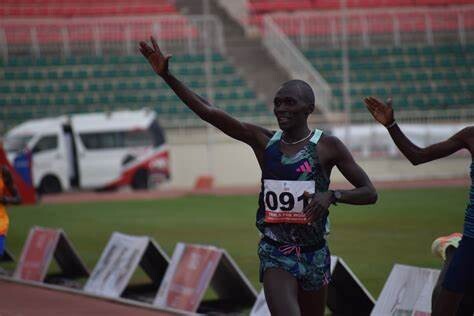
Mateiko made headlines, winning the Prefontaine Classic to secure his slot to the Olympic Games with Kimeli and Kibet finishing second and third respectively. The trio has the much-needed confidence to impress following their training sessions that have been extensive so far.
Mateiko and Kimeli train with Eliud Kipchoge and they certainly draw inspiration from the two-time Olympic champion who will also be chasing his third Olympic title.
However, they will not have an easy task in title reclamation as they go up against very strong opponents. Defending champion Barega will be out to defend his Olympic gold with Cheptegei also in the mix.
Being the world record holder and a three-time world champion, Cheptegei will going for the only title missing in his decorated CV. The Ethiopians have fielded their best, with world leader Yomif Kejelcha and Berihu Aregawi also in the mix. Paris marks the first Olympics for Kejelcha who will have the pressure on him after the world lead.
Cheptegei has raced sparingly, making it difficult to gauge his shape. He will be competing for the first time since end of May when he finished ninth in the 5000m at the Diamond League Meeting in Oslo.
The American duo Grant Fisher and Nico Young have also been entered and they will also be chasing history for the US. Young will b debuting at the Olympics and the race will just be his third 10,000m race on a track.
On his part, Fisher has great experience racing on the global stage and after finishing fifth at the delayed 2020 Tokyo Olympics, he will be out to improve on that.
by Abigael Wafula
Login to leave a comment
Paris 2024 Olympic Games
For this historic event, the City of Light is thinking big! Visitors will be able to watch events at top sporting venues in Paris and the Paris region, as well as at emblematic monuments in the capital visited by several millions of tourists each year. The promise of exceptional moments to experience in an exceptional setting! A great way to...
more...Retired British track icon predicts the medal Eliud Kipchoge might win at Paris Olympic Games
The retired British star noted that Kipchoge might win a medal at the Olympics but it will definitely not be a gold medal.
Retired British long-distance Mo Farah has predicted the medal Eliud Kipchoge will win at the Paris Olympic Games, and it’s not a gold medal.
The four-time Olympic champion disclosed that the quality of the field is strong, hence making it difficult for Kipchoge to win his third successive Olympic marathon title.
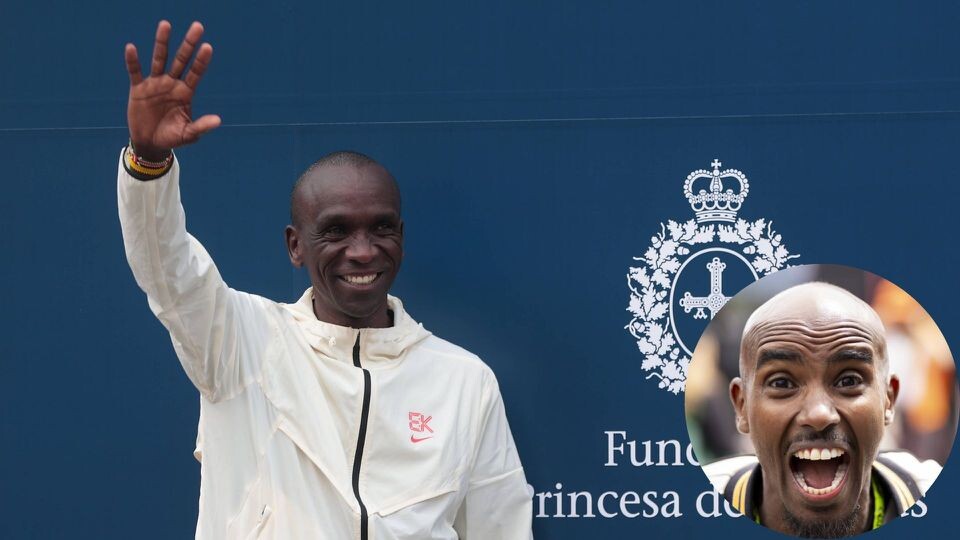
Kipchoge won the title at the 2016 Rio Olympic Games and defended his title at the delayed 2020 Tokyo Olympic Games. The five-time Berlin Marathon champion looks to make history in Paris and win his third successive marathon title.
Farah explained that there are many youngsters in the race, admitting that the race will be a battle between Kenyans and Ethiopians, with a winner coming from either of the two countries. He added that Kipchoge might win a medal, but was not sure of the medal it would be, either the silver and bronze medal.
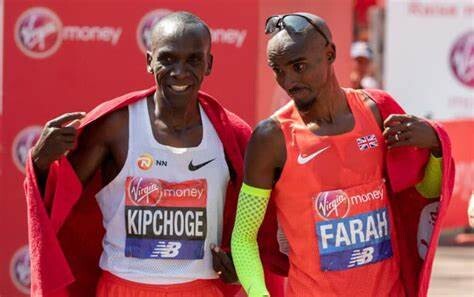
“Eliud Kipchoge…I think the marathon is going to be tough, honestly, there is a lot of Kenyans and youngsters. He could get a medal, but I think it’s going to come from the Kenyans or Ethiopian new guy to win that race,” Farah said in an interview with Olympics.com.
Kipchoge will be joined by Tokyo Marathon champion Benson Kipruto and the reigning London Marathon champion Alexander Mutiso.
The Ethiopian contingent will be led by legendary marathoner Kenenisa Bekele, who will be racing his final Olympic Games.
Sisay Lemma had also been selected in the team but was forced to withdraw due to an injury and he was replaced by Tamirat Tola, the 2022 world champion. Deresa Geleta completes the Ethiopian team.
The Kenyan and Ethiopian rivalry will once again be witnessed on the Olympic stage with the Ethiopians looking to reclaim their title after Kenya’s reign in two consecutive Olympic Games.
by Sky Sports
Login to leave a comment
Paris 2024 Olympic Games
For this historic event, the City of Light is thinking big! Visitors will be able to watch events at top sporting venues in Paris and the Paris region, as well as at emblematic monuments in the capital visited by several millions of tourists each year. The promise of exceptional moments to experience in an exceptional setting! A great way to...
more...Ethiopia set the bar high at the Paris Olympic Games
Ethiopia is well-prepared to win more than four medals at the Paris 2024 Olympics and write a new chapter in the country's athletics history, a senior official of the Ethiopian Olympic Committee said.
Briefing the media in Addis Ababa, the capital of Ethiopia, Ashebir Woldegiorgis, president of the Ethiopian Olympic Committee, said top-performing athletes are leaving for Paris to pick up scores of gold medals from the event.
"We are leaving for Paris to grab as many gold medals in the marathon, 10,000m, 5,000m, and 3,000m steeplechase among other events. We are not going there to lose," said Woldegiorgis in an interview with Xinhua after the briefing.
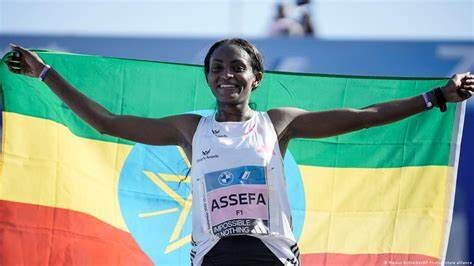
Besides athletics, Ethiopia will also take part in swimming and boxing, among others. Kenenisa Bekele, former world record holder in both 5,000m and 10,000m and Olympic gold medalist at Beijing 2008, will represent the East African country in marathon at the upcoming Olympics. According to the president, the women's marathon event will feature world record-holder Tigist Assefa and three other famous athletes.
Selemon Barega will defend his 10,000m title and also compete in the 5,000m event, while current women's world record holder for 5,000m Gudaf Tsegay will enter both the women's 5,000m and 10,000m races in Paris.
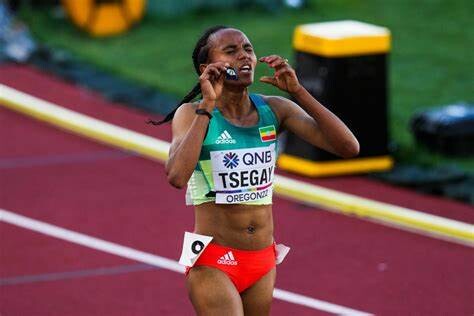
World record holder Lamecha Girma, along with three others, will compete in the 3,000m steeplechase after securing silver in the Tokyo 2020 Olympics.
"We are ready to win. We have made good preparations," Woldegiorgis told Xinhua, noting that it won't be easy to compete with athletes coming from all over the world.
Ethiopia won four medals, including one gold, at the Tokyo 2020 Olympics. The president said this time confidence is high and Ethiopia will by far, surpass its four medals earned at the Tokyo 2020 Olympics.
by Xinhua News
Login to leave a comment
Paris 2024 Olympic Games
For this historic event, the City of Light is thinking big! Visitors will be able to watch events at top sporting venues in Paris and the Paris region, as well as at emblematic monuments in the capital visited by several millions of tourists each year. The promise of exceptional moments to experience in an exceptional setting! A great way to...
more...The top 5 male Marathon runners in 2024
Kenya has 3 in the top 5 marathoners, list
In the world of marathon running, Kenya continues to produce elite athletes who dominate the global stage. As we approach the 2024 Paris Olympics, let's delve into the top five marathoners who are making headlines with their exceptional performances.
1. Benson Kipruto - 2:02:16
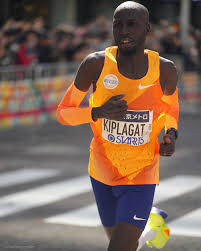
At the forefront is Benson Kipruto, whose recent victory at the 2024 Tokyo Marathon not only set a world-leading time but also established a new personal best. Known for his resilience and strategic prowess, Kipruto's triumph over Eliud Kipchoge in Tokyo solidified his status as a formidable contender for the gold medal in Paris. His impressive track record includes wins at prestigious events like the Boston Marathon (2021) and the Chicago Marathon (2022), highlighting his consistency at the highest level of competition.
2. Timothy Kiplagat - 2:02:55
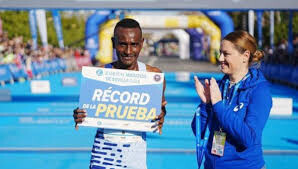
Timothy Kiplagat emerges as another standout performer, narrowly missing out on Kenya's Olympic team but securing his spot as the reserve athlete. His remarkable second-place finish at the 2024 Tokyo Marathon, where he outpaced Eliud Kipchoge, showcased his ability to excel under pressure and set a new personal best time. With the potential to join the Olympic squad if circumstances permit, Kiplagat remains a key figure to watch in Kenya's marathon scene.
3. Deresa Geleta - 2:03:27
Deresa Geleta represents Ethiopia but deserves mention for his exceptional performance at the 2024 Zurich Maraton de Sevilla, where he set a course record. As part of Ethiopia's Olympic team alongside legends like Kenenisa Bekele, Geleta's prowess in long-distance running underscores East Africa's dominance in the sport.
4. Morhad Amdouni - 2:03:47
Morhad Amdouni, a prominent figure in French athletics, secured second place at the 2024 Seville Marathon and will represent his country at the upcoming Olympics. His training stints in Kenya highlight the allure of Kenyan terrain for honing marathon skills, reflecting the global appeal of East African training camps.
5. Alexander Munyao - 2:04:01
Alexander Munyao rounds off the top five with his impressive performance at the London Marathon, where he triumphed over Bekele in a thrilling finish. With a strong track record in European half marathons and marathons, Munyao's ability to compete at the highest level underscores Kenya's deep talent pool in long-distance running.
by Eric Munene
Login to leave a comment
Gudaf Tsegay, Lamecha Girma head Ethiopia's 43-athlete squad to battle Kenya in Paris Olympics
In the 2021 Tokyo Olympics, Kenya bested Ethiopia as the top African nation, finishing 19th overall with 10 athletics medals.
World record-holders Gudaf Tsegay and Lamecha Girma are set to lead a formidable Ethiopian squad of 43 athletes at the upcoming Paris Olympic Games.
The robust team comprising top-tier talent across various track and field events promises to offer fierce competition to their long-time rivals Kenya in the race for Olympic medals.
Tsegay will be competing in the 10,000 meters, 5,000 meters, and 1,500 meters events.
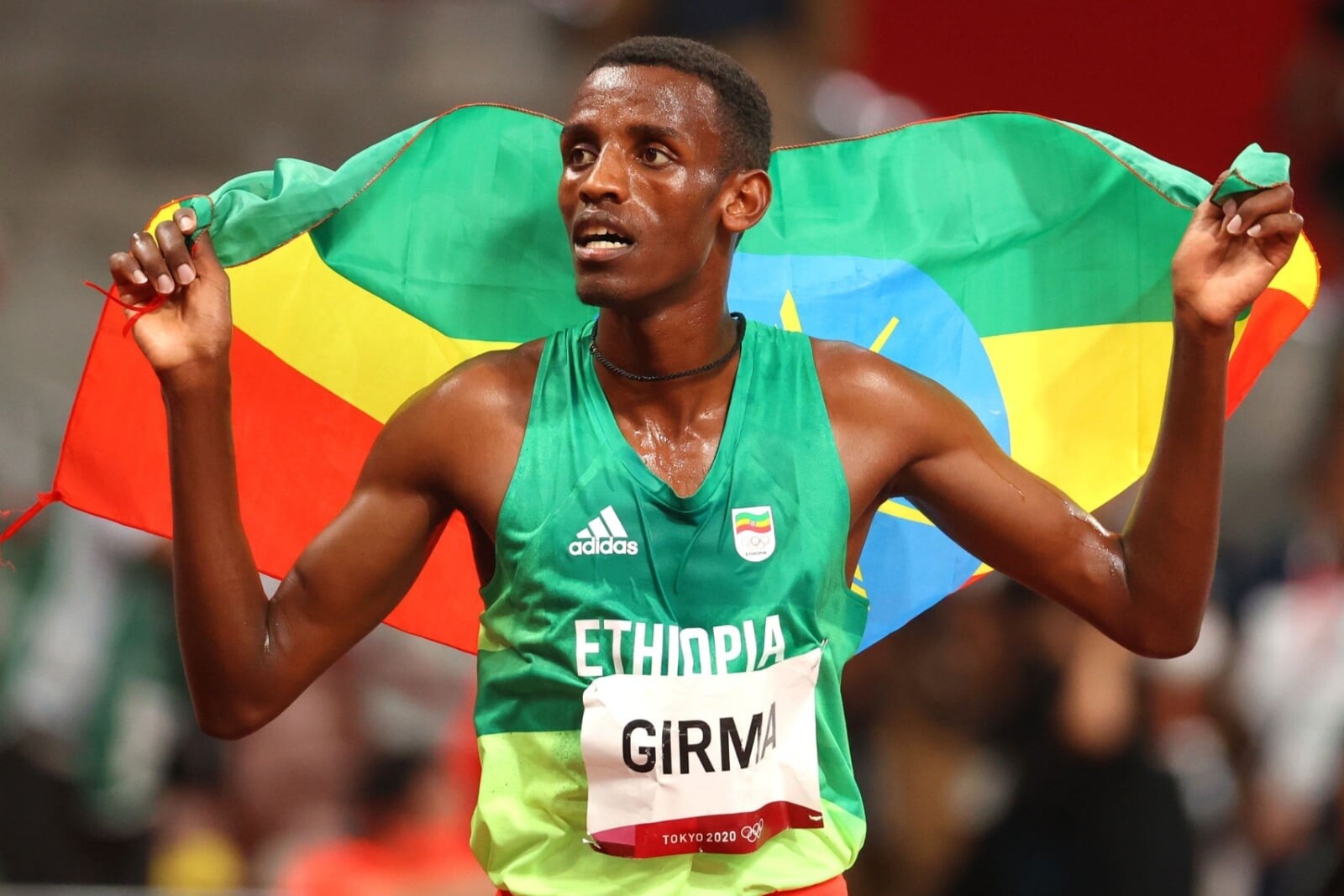
The 27-year-old athlete's standout performance at the Prefontaine Classic, where she shattered the world record in the 5,000 meters with an astounding time of 14:00.21, means she will be challenging rival Kenya's Faith Kipyegon who will chase two gold medals after winning the 1500m and 5000m.
The women's team also boasts an impressive lineup in the 800 meters, featuring Tsige Duguma, Habitam Alemu, and Werknesh Mesele, with Nigist Getachew as the reserve.
In the 1,500 meters, Tsegay will be joined by Birke Haylom and Diribe Wolteji, with Hirut Meshesha on standby. Medina Eisa and Ejgayehu Taye will support Tsegay in the 5,000 meters, with Freweyni Hailu as reserve, while Fotyen Tesfay, Tsigie Gebreselama, and Aynadis Mebratu will compete in the 10,000 meters.
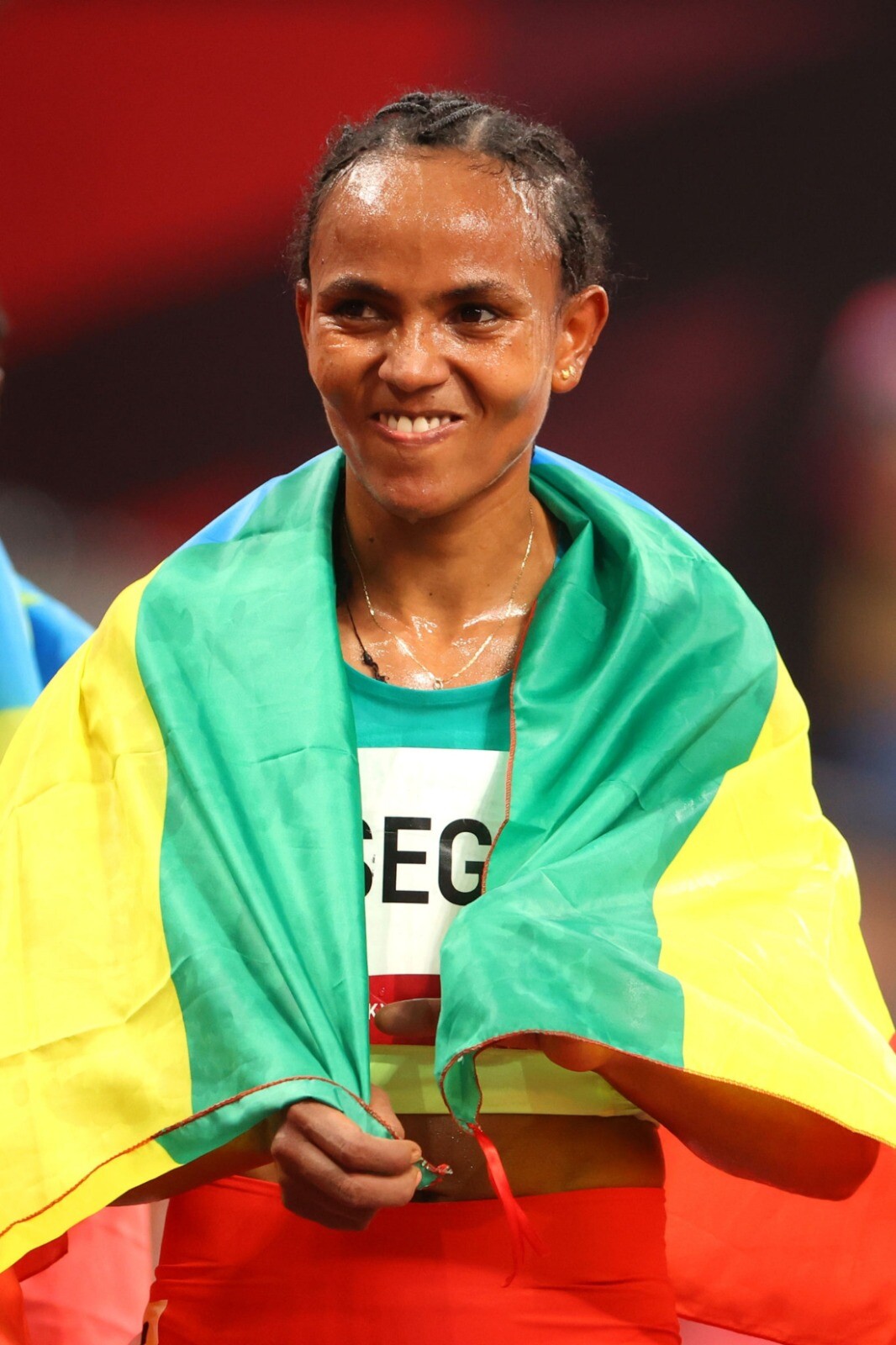
The 3,000 meters steeplechase will see Sembo Almayew and Lomi Muleta in action, and the marathon team includes Tigst Assefa, Amane Beriso, and Megertu Alemu, with Gotytom Gebreslase as reserve.
On the men's side, the team is equally impressive as Abdisa Fayisa, Samuel Tefera, and Ermias Girma will compete in the 1,500 meters.
The 5,000 meters team includes Hagos Gebrhiwet, Yomif Kejelcha, and Addisu Yihune, with Selemon Barega as reserve.
Kejelcha will also contest the 10,000 meters alongside Berihu Aregawi and Biniam Mehari, with Barega again as a reserve.
Lamecha Girma, alongside Samuel Firewu and Getnet Wale, will vie for victory in the men's 3,000 meters steeplechase, with Abrham Sime as reserve.
Ethiopia team to Paris
Women
800 meters: Tsige Duguma, Habitam Alemu, Werknesh Mesele, Nigist Getachew (Reserve)
1500 meters: Gudaf Tsegay, Birke Haylom, Diribe Wolteji, Hirut Meshesha (Reserve)
5000 meters: Gudaf Tsegay, Medina Eisa, Ejgayehu Taye, Freweyni Hailu (Reserve)
10,000 meters: Gudaf Tsegay, Fotyen Tesfay, Tsigie Gebreselama, Aynadis Mebratu (Reserve)
3000 meters Steeplechase: Sembo Almayew, Lomi Muleta
Marathon:Tigst Assefa, Amane Beriso, Megertu Alemu, Gotytom Gebreslase (Reserve)
Men
1500 meters: Abdisa Fayisa, Samuel Tefera, Ermias Girma, Teddese Lemi (Reserve)
5000 meters: Hagos Gebrhiwet, Yomif Kejelcha, Addisu Yihune, Selemon Barega (Reserve)
10,000 meters: Yomif Kejelcha, Berihu Aregawi, Selemon Barega, Biniam Mehari (Reserve)
Men's 3000 meters steeplechase: Lamecha Girma, Samuel Firewu, Getnet Wale, Abrham Sime (Reserve)
Marathon: Sisay Lemma, Deresa Geleta, Kenenisa Bekele, Tamirat Tola (Reserve)
20 km Race walk: Misgana Wakuma
by Festus Chuma
Login to leave a comment
Paris 2024 Olympic Games
For this historic event, the City of Light is thinking big! Visitors will be able to watch events at top sporting venues in Paris and the Paris region, as well as at emblematic monuments in the capital visited by several millions of tourists each year. The promise of exceptional moments to experience in an exceptional setting! A great way to...
more...An amazing fast 5k in Oslo
OSLO, Norway (AP) — Hagos Gebrhiwet of Ethiopia ran the second-fastest 5,000 meters of all time in winning at the Diamond League meeting in Oslo on Thursday.
Gebrhiwet ran a final lap of 54.99 to finish in 12 minutes, 36.73 seconds — 1.37 seconds off the world record set by Olympic champion Joshua Cheptegei.
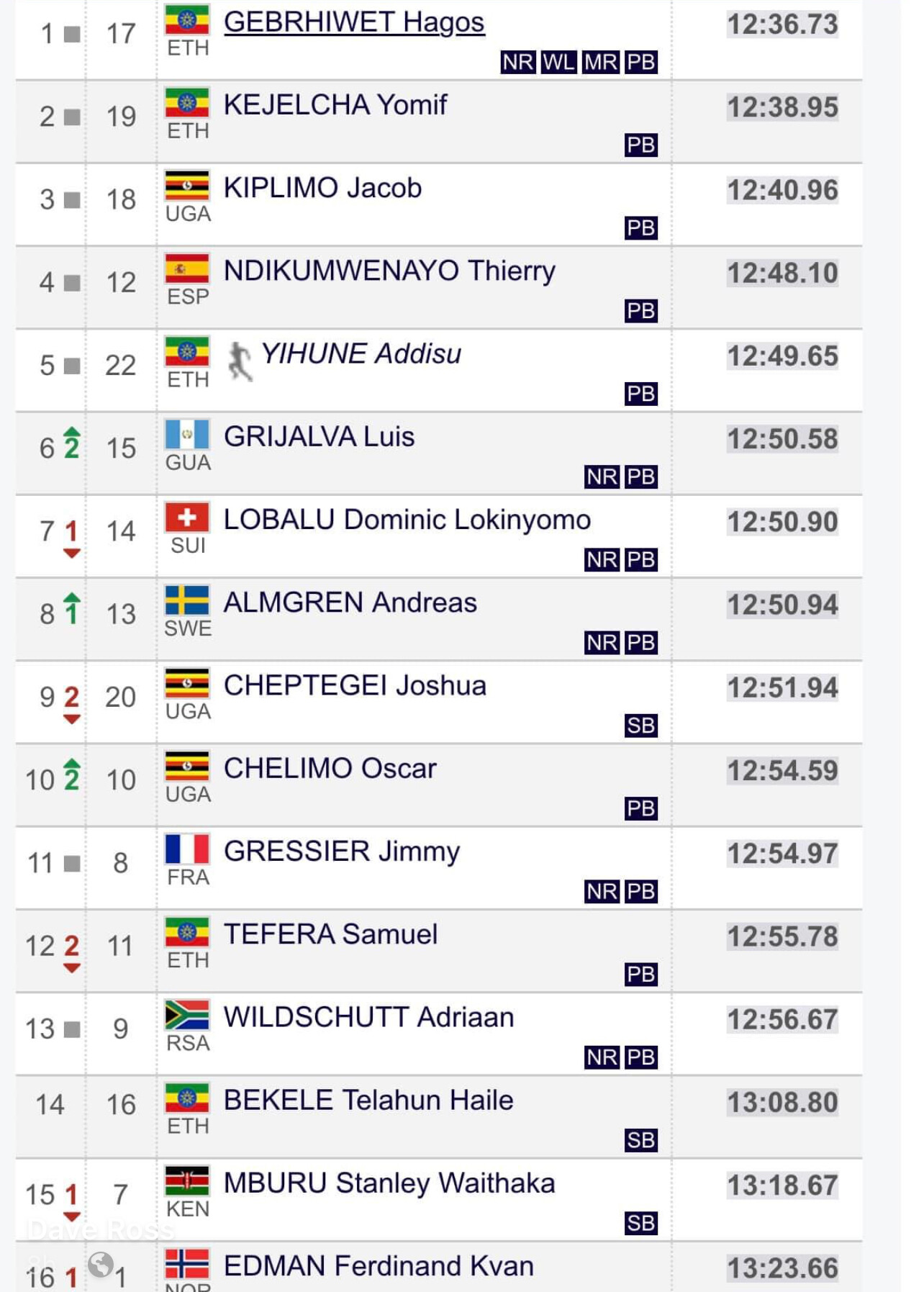
Gebrhiwet's time is not only the second fastest time ever it was also a new national record for Ethiopia. New personal bests for the top eight finishers and new National records for Guatemala, Switzerland, Sweden, France and South Africa!
Also at the Bislett Games, home favorite Jakob Ingebrigtsen dived for the line to win the men's 1,500 just ahead of Timothy Cheruiyot in a world-leading 3 minutes, 29.74 seconds.
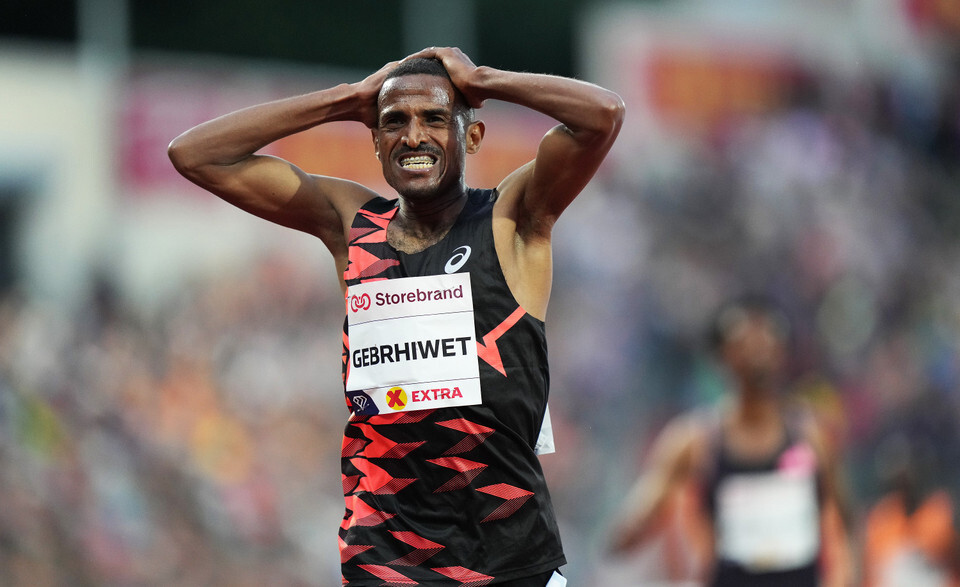
More details: Hagos Gebrhiwet produced the standout performance of the Bislett Games – and one of the biggest surprises of the year so far – when winning the men’s 5000m in 12:36.73 at the Wanda Diamond League meeting in Oslo on Thursday (30).
It was one of three meeting records and five world leads set on an enthralling night of athletics action in the Norwegian capital, just two months away from the Paris Olympic Games.
Going into the men’s 5000m, many eyes were on world record-holder and Olympic champion Joshua Cheptegei, two-time world cross-country champion Jacob Kiplimo and last year’s Bislett Games winner Yomif Kejelcha. But Gebrhiwet – who produced the first sub-13-minute run of his career on this track as a teenager back in 2012 – ensured his name won’t be forgotten in the lead-up to the Olympics.
The early pace was strong but not spectacular as the field was paced through the first 1000m in 2:33.13 and 2000m in 5:07.05. Addisu Yihune maintained that tempo through 3000m, reached in 7:41.05, with all the big contenders still in contention.
Kejelcha took control soon after and started to wind up the pace. Gebrhiwet stayed close to his fellow Ethiopian with Ugandan duo Kiplimo and Cheptegei close behind as 4000m was reached in 10:11.86, the previous kilometre being covered in 2:30.
Cheptegei was unable to hold on for much longer and started to drift back. Kejelcha continued to drive the pace but the challenge from Gebrhiwet and Kiplimo wasn’t fading, despite the increase in pace. Gebrhiwet struck as the bell sounded and moved into the lead, kicking past his compatriot and pulling away with each stride.
With a final lap of 54.99, Gebrhiwet charged through the line in 12:36.73 to win by more than two seconds from Kejelcha (12.38.95) – the first time in history that two men have broken 12:40 in the same race.
Gebrhiwet’s winning time is just 1.37 seconds shy of the world record Cheptegei set in 2020 and moves him to second on the world all-time list, one place ahead of Kenenisa Bekele, whose Ethiopian record Gebrhiwet broke.
Kiplimo held on for third, setting a PB of 12:40.96, while Spain’s Thierry Ndikumwenayo (12:48.10) and Yihune (12:49.65) also finished inside 12:50.
It was just the second time in history that 13 men have broken 13 minutes. Along with Gebrhiwet, there were national records for Guatemala’s Luis Grijalva (12:50.58), Switzerland’s Dominic Lokinyomo Lobalu (12:50.90), Sweden’s Andreas Almgren (12:50.94), France’s Jimmy Gressier (12:54.97) and South Africa’s Adriaan Wildschutt (12:56.67).
“I’m really happy with my time,” said Gebrhiwet, the world road 5km champion. “I set a PB when I first ran in Oslo, and now it’s even better. The conditions and the crowd were great. It was a very fast race and it wasn’t easy for me, but it went very well. I’ll now try to qualify for the Olympics in the 10,000m too.”
There were notable performances in two other endurance events in Oslo.
Australia’s Georgia Griffith continued her breakthrough to win the 3000m in an Oceanian record of 8:24.20. The field had been paced through 1000m in 2:50.34, then that pace was maintained through 2000m in 5:40.73.
The field became more strung out over the final kilometre as the pace increased. Griffith made a break in the closing stages and Ethiopia’s Likina Amebaw tried to come back, but her challenge was in vain as the Australian won in a meeting record of 8:24.20, 0.09 ahead of Amebaw in a race where the top six women finished inside 8:30.
In the closing event of the night, Olympic champion Jakob Ingebrigtsen was made to dive for the line to ensure a home victory for the Norwegian fans.
He controlled the pace in the second half, but still had 2019 world champion Timothy Cheruiyot for company on the final lap. The Kenyan challenged the Norwegian down the home straight and appeared to have timed his kick to perfection, but Ingebrigtsen collapsed over the line to get the verdict in a world-leading 3:29.74, 0.03 ahead of Cheruiyot. The first 11 finishers all set either season’s or personal bests.
Login to leave a comment
Munyao to exploit underdog status in hunt for Olympic title
London Marathon champion Alexander Munyao says he will exploit his underdog status in the hunt for the men’s marathon title at the Paris Olympic Games.
Two-time Olympic Marathon champion Eliud Kipchoge and Ethiopian great Kenenisa Bekele are front runners.
The duo have won numerous championships and major marathons while Munyao only has last month's London Marathon title to boast of.
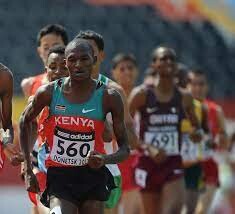
Tokyo Marathon champion Benson Kipruto will be the other Kenyan athlete in the race. But undaunted by the challenge, Munyao is determined to pull off a surprise in the French capital.
“I’m targeting nothing less than gold in Paris. I know Kipchoge will be chasing his third Olympic title and Kipruto is an equally serious contender but I’m ready for the challenge,” Munyao stated.
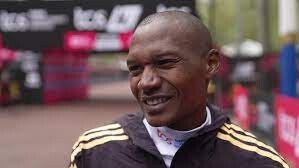
The London Marathon London Marathon champion envisions a Kenyan sweep on the podium and expects the trio to push each other to victory.
“A Kenya 1-2-3 finish is very possible. We’ll be pushing each other hard, and I believe Kenya will dominate in Paris,” he added.
Beyond winning gold, Munyao is keen to lower his personal best (PB). “I aim to reduce my PB to 2:01 or 2:02,” he added.
The 27-year-old boasts a PB of 2:03:11 set in December 2023 during the Valencia Marathon, where he placed second.
Last week, the Ethiopian Athletics Federation announced its three male representatives for Paris, headlined by three-time Olympic track champion Bekele. He will team up with Valencia Marathon champion Sisay Lemma and Beijing Marathon champion Deresa Geleta.
Despite acknowledging the strength of the Ethiopian team, Munyao views his Kenyan compatriots as his main rivals.
“Ethiopia have a strong team no doubt but I don't see them posing any threat to us. I have run with Bekele and Lemma before and I know their techniques. However, I haven't run with Kipchoge or Kipruto before and that makes them more competitive unlike the Ethiopians,” he noted.
During his triumph in London last month, Munyao beat Bekele to the title, clocking 2:04:01 with Bekele, who was the pre-race favorite, settling for second place in 2:04:15.
At the 2023 Prague Marathon, Munyao clinched the title in 2:05:09, beating Lemma to second place in 2:06:51. Looking ahead to Paris, Munyao plans to stay with the leading pack and make his decisive move close to the finish.
“My strategy will be simple! I have to stay with the leading pack and make my move a few kilometres to the finish as was the case in London,” Munyao noted.
However, Munyao tempered expectations for a new world record in Paris, citing the challenging nature of the course.
“I have not run the Paris course before but from what I have heard from athletes, it is a tough course. Breaking a world record there will not be easy. What will be important for us athletes is a medal,” he added.
Munyao resumed full training last week at Ngong Hills under the guidance of his coach Peter Muteti, running 30km daily.
“I resumed full training for the Olympics last week at Ngong Hills. I do 30km daily runs, 20km in the morning with light 10km runs in the evening,” he added.
by Teddy Mulei
Login to leave a comment
Paris 2024 Olympic Games
For this historic event, the City of Light is thinking big! Visitors will be able to watch events at top sporting venues in Paris and the Paris region, as well as at emblematic monuments in the capital visited by several millions of tourists each year. The promise of exceptional moments to experience in an exceptional setting! A great way to...
more...Kenenisa Bekele named to Ethiopian Olympic marathon team
Ethiopia's Kenenisa Bekele and Kenya's Eliud Kipchoge will square off in the marathon at the Paris Olympics.
It’s been 12 years since Ethiopian distance runner Kenenisa Bekele last put on his country’s singlet at an Olympic Games, but he has officially earned his spot on the Ethiopian marathon team for Paris 2024.
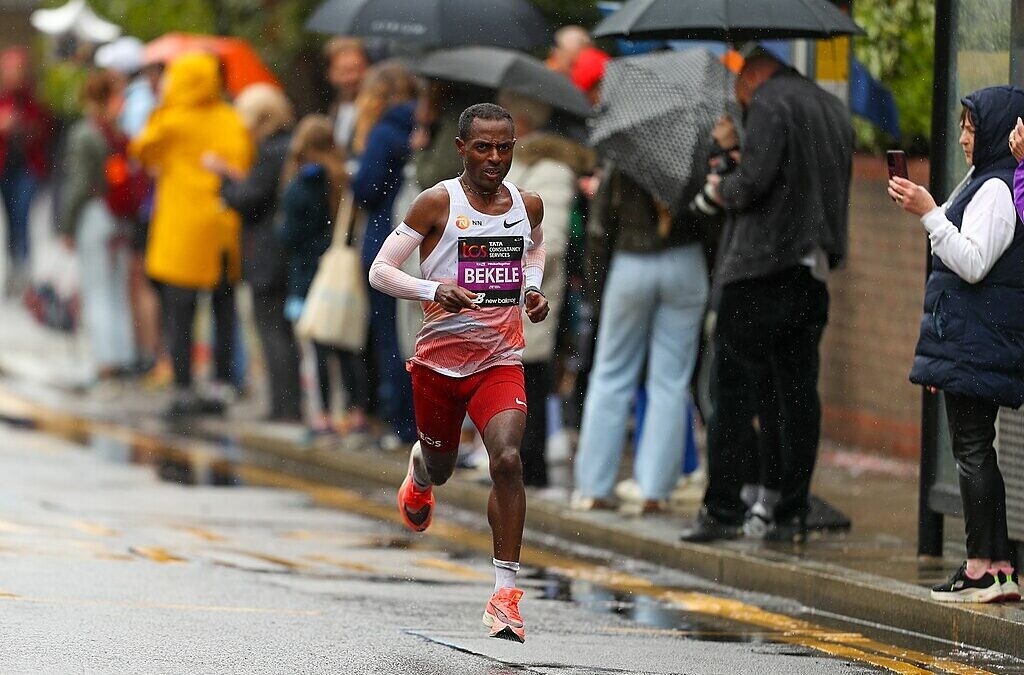
As reported by ESPN, Bekele is one of three men selected by the Ethiopian Athletics Federation to represent Ethiopia in the marathon at the 2024 Paris Olympics. This will be Bekele’s fourth Olympic Games and the first time he has represented his country in the marathon. He has previously won four Olympic medals (three gold, one silver) across the 5,000m and 10,000m events, at Athens (2004) and Beijing (2008).
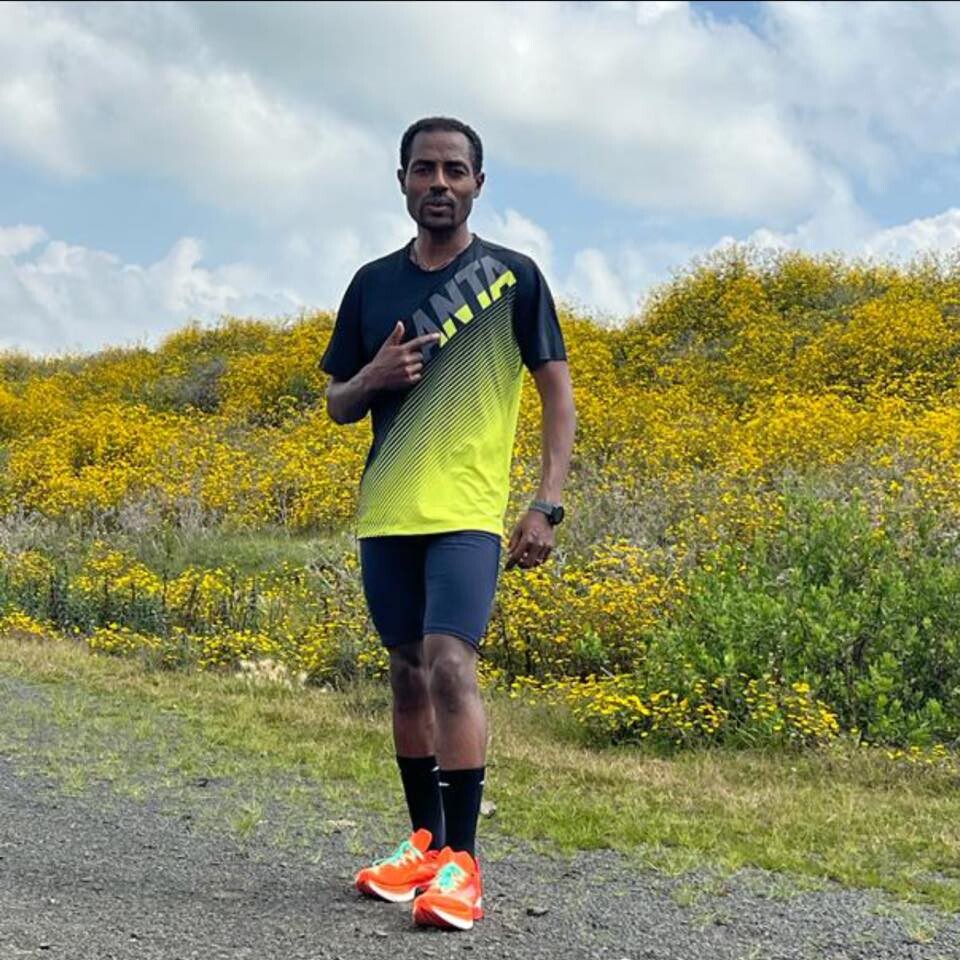
Bekele earned his spot on the Ethiopian team after an excellent showing at the 2024 London Marathon, where he placed second behind Kenya’s Alexander Mutiso, in 2:04:15 (a men’s 40+ world record). His time was four seconds faster than his previous master’s best, from the 2023 Valencia Marathon in December (2:04:19).
Bekele will face his long-time rival, Kenya’s Eliud Kipchoge, at one final Olympic Games in the streets of Paris, almost exactly 20 years after their first Olympic matchup in Athens. Kipchoge and Bekele are two of the fastest marathoners in history, and are part of the exclusive club of four men who have gone under the 2:02 marathon mark.
Joining Bekele on the Ethiopian team is another athlete in that exclusive club, Sisay Lemma. Lemma has a personal best of 2:01:53 from the Valencia Marathon in December. Most recently, Lemma won the 2024 Boston Marathon in 2:06:17, ending Evans Chebet of Kenya’s two-year reign.
2022 world marathon champion and 2023 New York City Marathon champion Tamirat Tola rounds out the Ethiopian squad. The difficult 2024 Paris Olympic course suits Tola’s style of racing well, and he’ll certainly be one of the favorites to win gold and end Kenya’s streak of champions. Ethiopia has not won gold in the men’s marathon since Gezahegne Abera in Sydney in 2000.
by Marley Dickinson
Login to leave a comment
Paris 2024 Olympic Games
For this historic event, the City of Light is thinking big! Visitors will be able to watch events at top sporting venues in Paris and the Paris region, as well as at emblematic monuments in the capital visited by several millions of tourists each year. The promise of exceptional moments to experience in an exceptional setting! A great way to...
more...Kipchoge expects tough test in Paris
Two-time Olympic champion Eliud Kipchoge anticipates a fierce battle at the Paris Olympic marathon, even tougher than when he won the first of his two titles in Rio 2016.
“It will be a tough race. 106 countries will be participating. Everyone at the start line is a champion in their rights. I do not underrate anybody. I am not the same as when I won my first title,” Kipchoge noted.
Last month, Kipchoge ran at the Tokyo Marathon, where he placed 10th in 2:06:50.
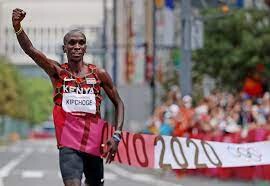
In a post-race interview, Kipchoge stated that it was a bad day in office for him but he hopes to build on the lessons learned.
The legendary Olympian said his sights are set solely on the Olympics, ruling out any other race as he puts all his energy and focus into securing a hat-trick of titles.
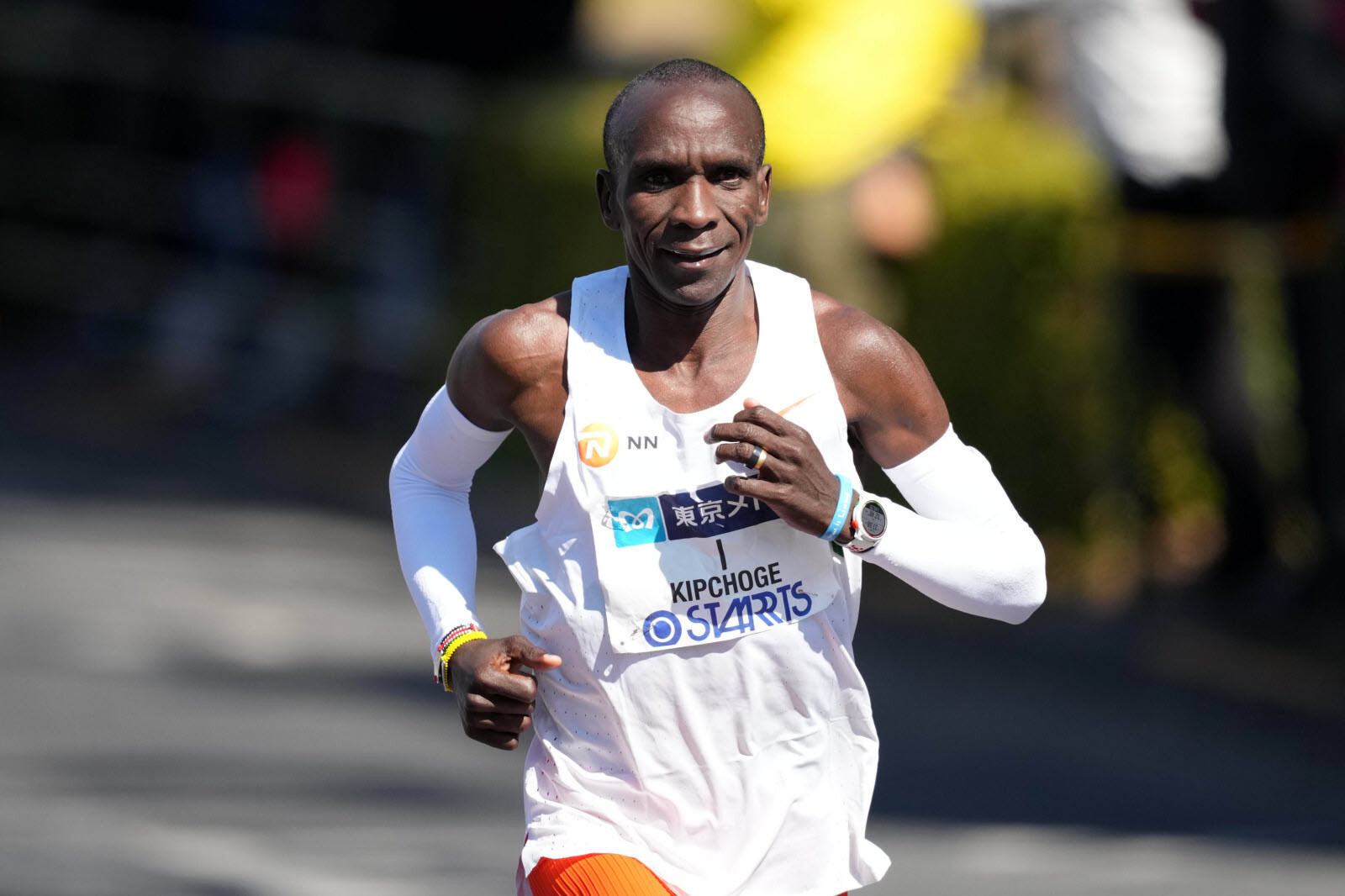
“I have no plans to race in any other marathon. I am putting all my mind and training into the Olympics. I want to win a third title,” he noted.
Confident in his abilities, the 39-year-old is determined to earn his spot to make his fifth appearance in the global extravaganza.
“I trust I will make the final three to represent Kenya in Paris. This will be my fifth appearance in the Olympics,” he noted.
Athletics Kenya presented a list of five male athletes to the National Olympics Committee of Kenya to undergo training in readiness for the Olympics. Only three will go to Paris.
Kipchoge is joined by the Tokyo Marathon champion Benson Kipruto, Kagawa Half Marathon silver medalist Alexander Mutiso and Tokyo Marathon silver and bronze medalists Timothy Kiplagat and Vincent Ngetich.
“Representing Kenya at such a stage feels good. This is the only way I can give back to my country. I can’t build bridges or roads. This is how I show my patriotism to my country,” he noted.
Kipchoge’s first appearance at the Olympics was in Athens 2004, where he won bronze in the 5,000m clocking 13:15.10. He upgraded it to silver at Beijing 2008 in a time of 13:02.80 — behind Ethiopia’s Kenenisa Bekele (12:57.82).
In Rio 2016, he clocked 2:08:44 to bag the marathon title and defended it at Tokyo 2020, clocking 2:08:38.
NOC-K secretary general Francis Mutuku tipped Kipchoge to achieve his dreams, especially with the determination and discipline he has shown in training under Patrick Sang.
“Sang told us that when he says training starts at 5 am, Kipchoge is ready at that time. He is devoted and disciplined in his training,” he noted.
Despite facing criticism, Kipchoge remains grounded, believing that humility is the ultimate key to triumph.
“The longest tree receives all the wind. The tree can lose all its leaves and endure the winter and still be firm. Being humble has been and will always be the key to success,” he added.
by Teddy Mulei
Login to leave a comment
The marathon in Paris at the Olympics could be a fast one but you never know with all the pressure there will be on all the athletes. - Bob Anderson 4/26 1:21 pm |
Paris 2024 Olympic Games
For this historic event, the City of Light is thinking big! Visitors will be able to watch events at top sporting venues in Paris and the Paris region, as well as at emblematic monuments in the capital visited by several millions of tourists each year. The promise of exceptional moments to experience in an exceptional setting! A great way to...
more...Alexander Munyao Wins Men’s Race at the 2024 London Marathon
The 27-year-old broke away from Kenenisa Bekele, who finished second in a new masters world record.
For the second time in the past week, the men’s winner at a World Marathon Majors crossed the line in survival mode. Six days ago, it was Sisay Lemma holding on to win Boston. This morning, it was Alexander Munyao in London. The Kenyan survived a strong move in the 18th mile to win in 2:04:01.
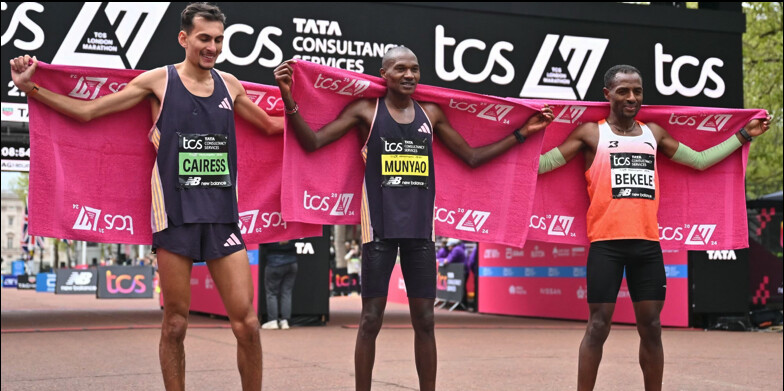
Kenenisa Bekele, arguably the greatest male distance runner in history, placed second in 2:04:15, four seconds faster than the masters world record he set in Valencia last December. The 41-year-old Ethiopian superstar was, surprisingly, largely responsible for the 4:35 18th mile that broke up what had been a nine-man pack.
By 35K (21.7 miles), the race was down to Munyao and Bekele. The two shared the lead more because of doing the best job of recovering after the earlier push than because they were speeding up. Munyao then got half a step on Bekele early in the 22nd mile, and broke him for good over the next mile.
Once they were dropped by Munyao and Bekele, the other earlier members of the lead pack that hit halfway in 61:29 suffered significantly. Tamirat Tola of Ethiopia, the 2022 world champion who broke the New York City course record last November, had looked eager to take over after the final pacer exited the course a little before 30K. Instead, Tola lost more than 20 seconds to the leaders before 35K, and dropped out before 40K.
The severe disintegration of the lead pack led to third and fourth place going to British runners who had been paced more moderately early on. Emile Cairess finished third in a personal best of 2:06:16 after being in 13th place at halfway (62:50). Mahamed Mahamed placed fourth in 2:07:05, also a personal best. Both men are now likely to be named to the British team for the Olympic Marathon, which will be held on August 10.
Munyao and Bekele were also running in part to secure spots on their Olympic teams. Munyao’s win, combined with his 2:03:13 PR and runner-up finish in Valencia in December, makes a good case. Bekele’s bid is even stronger. With Tola’s poor showing and Bekele’s second strong marathon in a row, will Ethiopian selectors recognize that a three-time Olympic and 19-time world champion deserves to toe the line in Paris?
Brian Shrader, the lone U.S. elite entrant, placed tenth in 2:10:50.
Login to leave a comment
TCS London Marathon
The London Marathon was first run on March 29, 1981 and has been held in the spring of every year since 2010. It is sponsored by Virgin Money and was founded by the former Olympic champion and journalist Chris Brasher and Welsh athlete John Disley. It is organized by Hugh Brasher (son of Chris) as Race Director and Nick Bitel...
more...

